Second-hand vehicle, auto parts dealers push for review of ‘discriminatory’ up-front duty payment
- 19 Feb 2019 --
Used vehicle and auto spare parts importers in Kumasi are calling for a review of the upfront payment of duty, describing it as discriminatory.
They say the policy threatens the survival of indigenous businesses to the advantage of their foreign counterparts.
Their call was made when officials of the Customs Division of Ghana Revenue Authority (GRA) engaged the importers in Kumasi to trash out challenges in the business.
Secretary of the Used Truck and Spare Parts Importers Association, Nyaaba-Aweeba Azongo, explained that import volumes have dropped significantly as a result, with consequences for government revenue.
“We are by this petition calling on you to humbly request an urgent audience with the relevant government authorities to resolve a common recourse to a post duty sale regime,” he said.
He continued: The deficiencies in this upfront policy regime as applied to our industry is rather at cross-purposes with the object of the policy to improve the prospects government revenue
“The upfront duty policy regime on our members is a major locked –up capital challenge to the indigenous business, which has in effect reduced significantly the volumes of importation and consequently affects the general volume of revenue that would have accrued to the government.”
Increasing invasion of the spare parts business by foreigners, the local players say, evade tax due to weak border controls.
They say the fraudulent manner in which these businesses are carried out, without proper checks and duties could collapse the businesses of our members in the few years ahead
“We need the establishment of a bonded warehouse for the mutual benefits of government, and the used trucks and spare parts importers dealership”.
The group is also calling for a policy to hedge the duties (fixed rate) against currency depreciation to lend some stability in the payment of duties.
This, they believe will minimise the extortions in the delivery and transportation chain of their containers.
“This current move measures the degree of discontent amongst our members and the result of the institutional communication gap between government and we the major players in the industry, it is our hope that this basic requirement of policy engagement with the primary stakeholders will not be side-stepped in this manner as obtains in our case,” he said.
Ultimatum to address grievances
The group has given government up to the month of March, this year to address their concerns which they have put in a petition delivered through the Customs boss.
“We are thus calling upon your high office an urgent meeting with relevant stakeholders not later than March 2019 to address the issues raised in this petition.
“We are of the deepest conviction that this would set the stage for an effective partnership to ensure that our interest is taken on board as required to enable the Association to respond to the immense interest and demands of government in this sector.”
Commissioner for CEPS, Isaac Crentsil, advised the importers to form a stronger national body to seek redress to their grievances.
“You must come together in a strong union or association so that if the government wants to deal with your challenges or grievances it can be done easily,” Mr Crentsil said.
The need for state facilitation of speedy clearance of goods at the port to reduce cost was also highlighted.

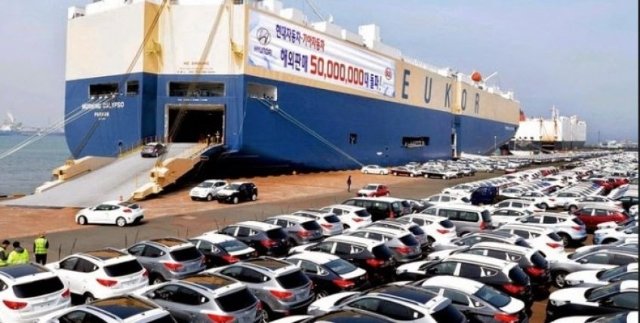































































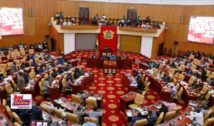












































































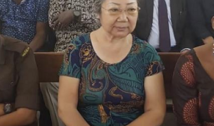

































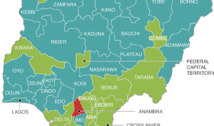












































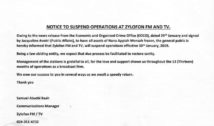











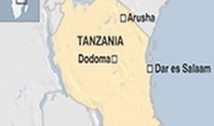




































































2,625 comments
The Confidential
7:25 amExcellent web site. Lots of helpful information here. I?m sending it to a few friends ans also sharing in delicious. And of course, thank you on your effort!
https://bit.ly/3w5PxbW
The Confidential
7:25 amI used to be able to find good info from your articles.
https://tinyurl.com/fakazaio
The Confidential
7:25 amGood blog! I truly love how it is easy on my eyes and the data are well written. I am wondering how I could be notified whenever a new post has been made. I’ve subscribed to your feed which must do the trick! Have a great day!
https://homedesigninstitute.com/question/5272/what_is_the_best_way_to_incorporate_technology_in_modern_kitchen/
The Confidential
7:25 amI?ve read some just right stuff here. Certainly worth bookmarking for revisiting. I surprise how much attempt you put to make the sort of magnificent informative web site.
https://www.coydoll.com/
The Confidential
7:25 amExcellent post! We are linking to this great article on our website. Keep up the good writing.
https://staff.blog.ui.ac.id/rendi.supiana/cara-download-lagu-youtube-gratis-mudah-cepat-downloadlagu321/
The Confidential
7:25 amI’ve observed that in the world of today, video games include the latest craze with kids of all ages. There are times when it may be extremely hard to drag young kids away from the activities. If you want the best of both worlds, there are many educational games for kids. Interesting post.
https://www.eurasc.org/supplements/night-shred-review/
The Confidential
7:25 amThanks a bunch for sharing this with all of us you really know what you are talking about! Bookmarked. Kindly also visit my web site =). We could have a link exchange contract between us!
https://www.teckmart.com
The Confidential
7:25 amThanks for the posting. My partner and i have continually observed that a lot of people are desperate to lose weight because they wish to appear slim in addition to looking attractive. Nevertheless, they do not constantly realize that there are many benefits for losing weight also. Doctors declare that overweight people experience a variety of illnesses that can be perfectely attributed to their own excess weight. The good news is that people who sadly are overweight along with suffering from numerous diseases are able to reduce the severity of their own illnesses by simply losing weight. You are able to see a continuous but noted improvement in health whenever even a bit of a amount of weight-loss is obtained.
https://99bitcoins.com/buy-bitcoin/paypal/
The Confidential
7:25 amI have taken note that of all different types of insurance, health care insurance is the most questionable because of the clash between the insurance policy company’s duty to remain profitable and the client’s need to have insurance cover. Insurance companies’ commission rates on wellness plans are extremely low, hence some providers struggle to generate income. Thanks for the concepts you reveal through this web site.
https://www.offshoresportsbooks.com/
The Confidential
7:25 amThanks a lot for the helpful article. It is also my opinion that mesothelioma cancer has an really long latency interval, which means that indication of the disease may well not emerge right up until 30 to 50 years after the 1st exposure to mesothelioma. Pleural mesothelioma, that is the most common form and has an effect on the area throughout the lungs, could potentially cause shortness of breath, chest pains, along with a persistent coughing, which may bring on coughing up blood.
https://xcaosystemgroup.com/
The Confidential
7:25 amGreetings! Very useful advice in this particular post! It is the little changes which will make the largest changes. Thanks a lot for sharing!
http://emcspb.ru/user/yamfinger49/
The Confidential
7:25 amI was suggested this blog by my cousin. I’m not sure whether this post is written by him as no one else know such detailed about my problem. You are amazing! Thanks!
https://www.picktechsolution.com/
The Confidential
7:25 amThe very root of your writing whilst appearing agreeable at first, did not really settle very well with me personally after some time. Someplace within the sentences you were able to make me a believer unfortunately just for a while. I however have a problem with your leaps in assumptions and one would do well to fill in those gaps. In the event that you actually can accomplish that, I would surely end up being impressed.
https://wishescave.com/category/anniversary-wishes
The Confidential
7:25 amNext time I read a blog, I hope that it doesn’t fail me just as much as this particular one. I mean, Yes, it was my choice to read, but I truly believed you would probably have something interesting to say. All I hear is a bunch of crying about something you could fix if you weren’t too busy looking for attention.
https://orangebookmarks.com/story13976785/mp3juices-comprehensive-review
The Confidential
7:25 amPretty section of content. I just stumbled upon your site and in accession capital to assert that I get actually enjoyed account your blog posts. Anyway I will be subscribing to your augment and even I achievement you access consistently rapidly.
https://solitairegames.website/
The Confidential
7:25 amExcellent beat ! I wish to apprentice while you amend your website, how can i subscribe for a blog web site? The account helped me a acceptable deal. I had been tiny bit acquainted of this your broadcast provided bright clear idea
http://workwithgenesis.com/get-the-finest-ideas-in-order-to-change-into-an-internationale-organisation-fac29cr-standardisierung-agent/
The Confidential
7:25 amIt’s the best time to make a few plans for the long run and it is time to be happy. I have read this put up and if I may I desire to suggest you few interesting issues or suggestions. Perhaps you could write subsequent articles referring to this article. I want to learn more issues approximately it!
https://www.ikariajuice-ikariajuice.com/
The Confidential
7:25 amSpot on with this write-up, I honestly believe that this website needs a lot more attention. I’ll probably be back again to read through more, thanks for the advice!
https://trentonwfjot.blogzet.com/fakaza-brief-review-31059813
The Confidential
7:25 amGood ? I should certainly pronounce, impressed with your web site. I had no trouble navigating through all the tabs and related information ended up being truly easy to do to access. I recently found what I hoped for before you know it in the least. Reasonably unusual. Is likely to appreciate it for those who add forums or something, web site theme . a tones way for your customer to communicate. Nice task..
https://bitcoinwisdom.com/british-bitcoin-profit-review/
The Confidential
7:25 amVery good post! We are linking to this particularly great post on our website. Keep up the good writing.
https://yoursocialpeople.com/story14114320/a-easy-crucial-for-fakaza-unveiled
The Confidential
7:25 amGood post. I will be facing some of these issues as well..
https://getsocialsource.com/story14098655/about-tubidy-mp4-download
The Confidential
7:25 amSpot on with this write-up, I really believe this amazing site needs a great deal more attention. I’ll probably be returning to read more, thanks for the info!
https://sitesrow.com/story3289138/fakaza-assess-an-overview
The Confidential
7:25 amHelpful info. Fortunate me I discovered your website by chance, and I’m shocked why this twist of fate didn’t took place in advance! I bookmarked it.
https://www.carhubsales.com.au/user/profile/1124086
The Confidential
7:25 amThis site really has all of the information and facts I wanted concerning this subject and didn’t know who to ask.
https://music62067.canariblogs.com/top-ambil-lagu-dari-youtube-secrets-32044320
The Confidential
7:25 amI precisely desired to say thanks once more. I am not sure what I would’ve tried in the absence of the hints contributed by you concerning such a theme. It was actually a challenging issue in my circumstances, but witnessing your specialized manner you processed that made me to weep with contentment. I am happy for this support and even hope that you realize what a great job you are always providing teaching many others via your webblog. Most likely you haven’t met any of us.
https://www.zoritolerimol.com
The Confidential
7:25 amThis site is known as a stroll-through for the entire info you wanted about this and didn?t know who to ask. Glimpse here, and also you?ll positively uncover it.
https://easytvuk.co.uk/digital-aerials/
The Confidential
7:25 amHi, i think that i saw you visited my site thus i came to ?return the favor?.I am trying to find things to enhance my website!I suppose its ok to use a few of your ideas!!
https://thepetagrees.org/get-cheap-pet-insurance-prices-for-cats/
The Confidential
7:25 amI couldn’t refrain from commenting. Perfectly written!
https://zbookmarkhub.com/story14032441/top-guidelines-of-tubidy
The Confidential
7:25 amAnother issue is really that video gaming became one of the all-time biggest forms of entertainment for people of all ages. Kids have fun with video games, plus adults do, too. Your XBox 360 has become the favorite video games systems for people who love to have a huge variety of games available to them, and who like to experiment with live with other folks all over the world. Thank you for sharing your opinions.
https://thechronicbeaver.com/best-online-dispensary-canada-top-6-list/
The Confidential
7:25 amVery good article. I absolutely appreciate this site. Thanks!
http://51newyork.com/home.php?mod=space&uid=327483
The Confidential
7:25 amIt?s laborious to search out educated people on this subject, but you sound like you recognize what you?re talking about! Thanks
http://de295.com/2023/02/02/service-provider-services-what-the-small-business-to-realize/
The Confidential
7:25 amGenerally I don’t read post on blogs, however I would like to say that this write-up very pressured me to take a look at and do so! Your writing style has been amazed me. Thank you, quite nice post.
https://cards2cash.co.uk/
The Confidential
7:25 amThis is the right website for everyone who would like to understand this topic. You know a whole lot its almost hard to argue with you (not that I actually would want to…HaHa). You certainly put a new spin on a topic that’s been written about for a long time. Great stuff, just excellent.
https://messiahdb808.activosblog.com/18857986/top-rules-of-mp3-juice-music-downloads
The Confidential
7:25 amExcellent web site. A lot of helpful info here. I am sending it to several friends ans also sharing in delicious. And naturally, thanks on your sweat!
https://winterlyrics.wordpress.com/2012/03/09/if-you-think-you-know-everything-why-dont-you-just-change-your-name-to-google/
The Confidential
7:25 amPretty great post. I simply stumbled upon your blog and wanted to say that I have truly enjoyed surfing around your weblog posts. After all I will be subscribing on your feed and I’m hoping you write again very soon!
https://fangwallet.com/
The Confidential
7:25 amI’m amazed, I must say. Rarely do I encounter a blog that’s both equally educative and interesting, and let me tell you, you’ve hit the nail on the head. The problem is something too few men and women are speaking intelligently about. I’m very happy that I came across this during my hunt for something regarding this.
https://yourbookmark.stream/story.php?title=raih-kebebasan-finansial-dengan-menjual-beli-mobil#discuss
The Confidential
7:25 amI?m impressed, I need to say. Really rarely do I encounter a weblog that?s each educative and entertaining, and let me inform you, you might have hit the nail on the head. Your concept is outstanding; the problem is one thing that not enough persons are talking intelligently about. I’m very completely happy that I stumbled throughout this in my search for one thing relating to this.
https://fangwallet.com/
The Confidential
7:25 amThanks for your write-up. I would also like to opinion that the first thing you will need to complete is verify if you really need credit restoration. To do that you will have to get your hands on a duplicate of your credit score. That should never be difficult, considering that the government makes it necessary that you are allowed to have one free of charge copy of your own credit report yearly. You just have to request that from the right persons. You can either browse the website for your Federal Trade Commission or perhaps contact one of the leading credit agencies straight.
https://www.prodentim-prodentim-prodentim.com/
The Confidential
7:25 amGreat post. I used to be checking continuously this weblog and I am inspired! Very useful info particularly the final phase 🙂 I handle such information much. I used to be seeking this certain info for a long time. Thank you and good luck.
https://fixedmatches-1×2.com/
The Confidential
7:25 amI savour, lead to I discovered just what I used to be looking for. You’ve ended my 4 day long hunt! God Bless you man. Have a nice day. Bye
https://isma.ppsma.dindik.jatimprov.go.id/isma/data/
The Confidential
7:25 amI like it when individuals get together and share opinions. Great site, stick with it!
https://downloadlagu321.icu
The Confidential
7:25 amGreat post! We will be linking to this great content on our website. Keep up the good writing.
https://downloadlagu321.icu
The Confidential
7:25 amThanks for the helpful posting. It is also my opinion that mesothelioma has an very long latency phase, which means that the signs of the disease would possibly not emerge till 30 to 50 years after the 1st exposure to asbestos fiber. Pleural mesothelioma, which is the most common kind and influences the area round the lungs, might result in shortness of breath, torso pains, along with a persistent coughing, which may cause coughing up blood.
https://usdirectlystore.com/2023/02/10/free-merchant-accounts-vs-internet-merchant-accounts/
The Confidential
7:25 amHaving read this I believed it was rather informative. I appreciate you taking the time and energy to put this informative article together. I once again find myself personally spending a significant amount of time both reading and commenting. But so what, it was still worth it.
https://bookmarkfavors.com/story14436644/enjoy-the-most-updated-trending-movie-lessons-ready-yourself-becoming-satisfied
The Confidential
7:25 amThe subsequent time I read a weblog, I hope that it doesnt disappoint me as much as this one. I imply, I know it was my choice to learn, but I actually thought youd have one thing attention-grabbing to say. All I hear is a bunch of whining about one thing that you would fix when you werent too busy searching for attention.
https://www.youtube.com/watch?v=2l1a7QskEhc
The Confidential
7:25 amHi, I do think this is an excellent web site. I stumbledupon it 😉 I am going to come back once again since I book-marked it. Money and freedom is the greatest way to change, may you be rich and continue to guide other people.
https://pukkabookmarks.com/story14155594/the-ideal-personal-aid-guide-to-tubidy
The Confidential
7:25 amWe are a group of volunteers and opening a brand new scheme in our community. Your web site provided us with valuable information to paintings on. You have done an impressive job and our whole neighborhood might be thankful to you.
https://theintrovertreader.com/editing-and-proofreading-services/
The Confidential
7:25 amThis blog was… how do you say it? Relevant!! Finally I’ve found something that helped me. Many thanks.
https://disciplined-pear-dgjwq7.mystrikingly.com/blog/tubidy-discover-music-and-movie-streaming-at-its-finest
The Confidential
7:25 amI will immediately seize your rss feed as I can’t in finding your e-mail subscription hyperlink or newsletter service. Do you’ve any? Please permit me understand so that I could subscribe. Thanks.
https://pxhere.com/en/photographer-me/3953858
The Confidential
7:25 amI want to to thank you for this excellent read!! I certainly loved every bit of it. I’ve got you bookmarked to check out new things you post…
https://toolbarqueries.google.ba/url?q=https://tubidy.org.za
The Confidential
7:25 amGood site you have got here.. It’s hard to find good quality writing like yours nowadays. I honestly appreciate people like you! Take care!!
https://makassar.tribunnews.com/2023/02/23/simak-begini-cara-mudah-download-musik-offline-dengan-tubidy
The Confidential
7:25 amExcellent beat ! I wish to apprentice even as you amend your site, how could i subscribe for a weblog site? The account aided me a applicable deal. I were a little bit familiar of this your broadcast offered bright transparent concept
https://koh-lanta-hotels.info/มิเกลอาร์เตต้า/
The Confidential
7:25 amGood article. It is rather unfortunate that over the last decade, the travel industry has already been able to to fight terrorism, SARS, tsunamis, bird flu virus, swine flu, as well as the first ever real global economic collapse. Through it the industry has proven to be robust, resilient plus dynamic, locating new approaches to deal with hardship. There are constantly fresh issues and opportunity to which the market must again adapt and act in response.
https://listproperty.ng/listing-location/abuja-fct/abuja/
The Confidential
7:25 amThank you a bunch for sharing this with all people you actually recognise what you’re speaking approximately! Bookmarked. Kindly additionally visit my site =). We may have a hyperlink exchange contract between us!
https://ypacmalang.org/
The Confidential
7:25 amYou are so interesting! I don’t think I’ve read through anything like this before. So wonderful to find somebody with a few original thoughts on this issue. Seriously.. many thanks for starting this up. This website is something that’s needed on the web, someone with a bit of originality.
https://www.mixcloud.com/lynxplough17/
The Confidential
7:25 amI have witnessed that intelligent real estate agents almost everywhere are Promoting. They are noticing that it’s not just placing a sign post in the front area. It’s really pertaining to building interactions with these sellers who later will become buyers. So, when you give your time and effort to encouraging these sellers go it alone — the “Law regarding Reciprocity” kicks in. Good blog post.
http://sports.unisda.ac.id/champions-league-drawing-results-2022/
The Confidential
7:25 amThanks a bunch for sharing this with all of us you actually know what you are talking about! Bookmarked. Please also visit my website =). We could have a link exchange contract between us!
http://909app7.com/prevent-lagging-behind-together-with-your-merchant-services-system/
The Confidential
7:25 amMy brother suggested I might like this website. He was entirely right. This post actually made my day. You can not imagine simply how much time I had spent for this information! Thanks!
https://www.werockthespectrumloudoun.com/
The Confidential
7:25 amA different issue is that video gaming has become one of the all-time greatest forms of fun for people of nearly every age. Kids participate in video games, plus adults do, too. The actual XBox 360 is amongst the favorite gaming systems for individuals that love to have a huge variety of games available to them, and who like to relax and play live with other individuals all over the world. Many thanks for sharing your opinions.
http://babyalexandra.com/why-do-business-owners-of-small-companies-look-for-merchant-services/
The Confidential
7:25 amI?m impressed, I have to say. Really rarely do I encounter a blog that?s each educative and entertaining, and let me let you know, you will have hit the nail on the head. Your thought is outstanding; the issue is one thing that not enough individuals are talking intelligently about. I am very happy that I stumbled throughout this in my search for something relating to this.
http://www.sekaantika.com/
The Confidential
7:25 amIt?s really a great and useful piece of info. I am satisfied that you simply shared this useful info with us. Please stay us up to date like this. Thank you for sharing.
https://usananosoft.com/product/buy-ssn-number/
The Confidential
7:25 amGood write-up, I?m regular visitor of one?s web site, maintain up the excellent operate, and It is going to be a regular visitor for a lengthy time.
https://lumpcharcoalsuppliermanuf80051.imblogs.net/66427214/facts-about-indonesia-hardwood-charcoal-supplier-revealed
The Confidential
7:25 amYou ought to take part in a contest for one of the best sites on the net. I’m going to recommend this site!
https://lppm.uniks.ac.id/index.php?pilih=forum&modul=yes&action=viewthread&forum_id=0&thread_id=9051
The Confidential
7:25 amYou made some decent points there. I regarded on the internet for the difficulty and found most individuals will associate with with your website.
https://www.realdildos.com/suction-cup-dildos/
The Confidential
7:25 amThanks for your post on the traveling industry. We would also like contribute that if your senior considering traveling, it can be absolutely vital that you buy travel insurance for elderly people. When traveling, older persons are at greatest risk being in need of a health-related emergency. Buying the right insurance package for your age group can protect your health and provide you with peace of mind.
https://www.linkedin.com/pulse/how-can-digital-gift-cards-help-your-business-ruben-das-/
The Confidential
7:25 amThis website really has all of the info I needed about this subject and didn’t know who to ask.
https://w3.interforcecms.nl/m_Mailingen/Klik.asp?m=2091&cid=558216&url=https://tubidy.org.za/
The Confidential
7:25 amThank you, I have recently been looking for information about this topic for a long time and yours is the greatest I’ve discovered till now. However, what in regards to the bottom line? Are you positive concerning the source?
https://almetals.cn/product/4×8-aluminum-sheet/
The Confidential
7:25 amThanks alot : ) for your post. I would like to write my opinion that the expense of car insurance differs a lot from one plan to another, simply because there are so many different issues which play a role in the overall cost. For example, the model and make of the vehicle will have a huge bearing on the charge. A reliable older family motor vehicle will have a more affordable premium than just a flashy expensive car.
https://lookerstudio.google.com/u/0/reporting/416e8eed-1b4c-448d-8cd4-00a6e2118b54/page/VJjGD
The Confidential
7:25 amThe subsequent time I learn a weblog, I hope that it doesnt disappoint me as a lot as this one. I imply, I know it was my choice to learn, however I truly thought youd have one thing interesting to say. All I hear is a bunch of whining about something that you could fix if you werent too busy on the lookout for attention.
https://nigellasativa.org/черен-кимион/
The Confidential
7:25 amAnother important part is that if you are an elderly person, travel insurance intended for pensioners is something you should make sure you really contemplate. The more aged you are, the greater at risk you might be for getting something terrible happen to you while in foreign countries. If you are certainly not covered by several comprehensive insurance policy, you could have quite a few serious issues. Thanks for discussing your guidelines on this web blog.
https://victoriay.com/
The Confidential
7:25 amHi there! I could have sworn I’ve visited this website before but after looking at some of the articles I realized it’s new to me. Regardless, I’m definitely pleased I came across it and I’ll be book-marking it and checking back frequently.
https://aixindashi.stream/story.php?title=how-to-download-tunes-from-youtube#discuss
The Confidential
7:25 amI have read several good stuff here. Certainly worth bookmarking for revisiting. I surprise how much effort you put to make such a excellent informative website.
https://csaf.net/
The Confidential
7:25 amHello there, You’ve done a fantastic job. I?ll definitely digg it and personally recommend to my friends. I’m sure they’ll be benefited from this site.
https://stensoul.com/
The Confidential
7:25 amHowdy, There’s no doubt that your blog might be having web browser compatibility problems. Whenever I look at your site in Safari, it looks fine however, when opening in I.E., it has some overlapping issues. I simply wanted to provide you with a quick heads up! Apart from that, great website.
https://directmysocial.com/story14406756/top-rated-recommendations-of-libianca-folks
The Confidential
7:25 amhi!,I really like your writing very much! share we keep in touch extra about your post on AOL? I need a specialist in this space to solve my problem. Maybe that is you! Looking ahead to peer you.
https://totoswing.com
The Confidential
7:25 amHey There. I found your blog using msn. This is an extremely well written article. I?ll be sure to bookmark it and return to read more of your useful information. Thanks for the post. I?ll certainly comeback.
https://club-8.org
The Confidential
7:25 amVery nice post. I just stumbled upon your weblog and wished to say that I’ve truly loved surfing around your blog posts. In any case I?ll be subscribing in your feed and I’m hoping you write once more very soon!
https://watermanaustralia.com/product/zero-liquid-discharge-system-zld-system/
The Confidential
7:25 amHi there! I just wish to give an enormous thumbs up for the good information you will have right here on this post. I might be coming back to your blog for more soon.
http://ucnewswire.org/
The Confidential
7:25 amI?m not sure where you’re getting your information, but good topic. I needs to spend some time learning more or understanding more. Thanks for magnificent information I was looking for this info for my mission.
https://www.wugt.news/post/pr/January-10-2023/Apple-Maps-announces-partnership-with-SpotHero-a-parking-service
The Confidential
7:25 amThank you for another great post. Where else could anybody get that kind of information in such a perfect way of writing? I have a presentation next week, and I’m on the look for such info.
https://totobts.com/
The Confidential
7:25 amJust wish to say your article is as astonishing. The clarity in your post is just cool and i can assume you’re an expert on this subject. Fine with your permission allow me to grab your RSS feed to keep up to date with forthcoming post. Thanks a million and please keep up the gratifying work.
https://www.wugt.news/post/automotive/February-08-2023/Industrybacked-study-finds-auto-industry-could-miss-climate-goal-by-75
The Confidential
7:25 amI have been exploring for a little for any high quality articles or blog posts on this sort of house . Exploring in Yahoo I finally stumbled upon this website. Studying this info So i?m satisfied to convey that I have a very just right uncanny feeling I discovered just what I needed. I most unquestionably will make sure to don?t fail to remember this site and give it a look on a constant basis. Dr Vi PDO Thread Lift Melbourne 602A Bourke Street Melbourne Victoria Australia 3000
https://www.google.com/maps/place/602+Bourke+St,+Melbourne+VIC+3000/@-37.8161822,144.955908,17z/data=!3m1!4b1!4m5!3m4!1s0x6ad65d4c26c6aac1:0x1d7e87b56c266f95!8m2!3d-37.8161822!4d144.955908
The Confidential
7:25 amI have been absent for a while, but now I remember why I used to love this web site. Thanks , I will try and check back more frequently. How frequently you update your web site?
https://red–boost.pro
The Confidential
7:25 amOne other issue is when you are in a problem where you do not possess a co-signer then you may want to try to make use of all of your financing options. You could find many funds and other scholarships or grants that will give you funds to aid with classes expenses. Thanks a lot for the post.
https://watermanaustralia.com/tailings-and-tailings-storage-facilities/
The Confidential
7:25 amI loved as much as you will receive carried out right here. The sketch is attractive, your authored subject matter stylish. nonetheless, you command get bought an edginess over that you wish be delivering the following. unwell unquestionably come further formerly again as exactly the same nearly a lot often inside case you shield this increase.
https://www.kxan36news.com/cat/sports
The Confidential
7:25 amOne thing I’d like to say is that before purchasing more personal computer memory, check out the machine directly into which it could be installed. When the machine is actually running Windows XP, for instance, the memory ceiling is 3.25GB. Adding over this would simply constitute some sort of waste. Be sure that one’s motherboard can handle your upgrade volume, as well. Thanks for your blog post.
https://iptv-getline.com/
The Confidential
7:25 amfantastic post, very informative. I wonder why the other experts of this sector do not notice this. You must continue your writing. I’m sure, you’ve a great readers’ base already!
https://159.65.12.174/
The Confidential
7:25 amAccording to my research, after a foreclosed home is sold at an auction, it is common for your borrower to still have a remaining unpaid debt on the bank loan. There are many financial institutions who try to have all service fees and liens paid back by the next buyer. Nevertheless, depending on particular programs, legislation, and state guidelines there may be a few loans which aren’t easily fixed through the exchange of loans. Therefore, the obligation still lies on the lender that has got his or her property in foreclosure process. Many thanks sharing your ideas on this web site.
https://www.wugt.news/post/fashion/March-01-2023/Perpetual-Motion
The Confidential
7:25 amThanks for your article. It is unfortunate that over the last years, the travel industry has already been able to to deal with terrorism, SARS, tsunamis, bird flu virus, swine flu, along with the first ever entire global economic depression. Through all of it the industry has proven to be effective, resilient and also dynamic, locating new tips on how to deal with adversity. There are continually fresh issues and the possiblility to which the industry must just as before adapt and act in response.
https://savingspromocodes.com/bulk-office
The Confidential
7:25 amAfter examine just a few of the blog posts on your website now, and I really like your approach of blogging. I bookmarked it to my bookmark website checklist and will probably be checking again soon. Pls try my website online as well and let me know what you think.
https://flyavia.ge/
The Confidential
7:25 amThat is a really good tip particularly to those fresh to the blogosphere. Brief but very accurate information… Appreciate your sharing this one. A must read article.
https://www.musicplug.in
The Confidential
7:25 amMagnificent beat ! I wish to apprentice while you amend your website, how could i subscribe for a blog site? The account helped me a acceptable deal. I had been a little bit acquainted of this your broadcast provided bright clear concept
janda diperkosa keenakan
The Confidential
7:25 amCan I simply say what a aid to find someone who truly is aware of what theyre speaking about on the internet. You undoubtedly know tips on how to bring an issue to light and make it important. Extra individuals must learn this and understand this facet of the story. I cant believe youre no more well-liked since you positively have the gift.
https://www.thebergenbk.com/
The Confidential
7:25 amOne other thing I would like to convey is that as opposed to trying to accommodate all your online degree classes on days and nights that you finish work (because most people are worn out when they return), try to have most of your sessions on the weekends and only a few courses in weekdays, even if it means a little time away from your saturday and sunday. This pays off because on the weekends, you will be much more rested plus concentrated on school work. Thanks for the different suggestions I have acquired from your blog site.
https://www.schonpuppen.com/
The Confidential
7:25 amThanks for your write-up. I would love to comment that the first thing you will need to carry out is to see if you really need credit repair. To do that you will have to get your hands on a copy of your credit report. That should not be difficult, because government mandates that you are allowed to be issued one absolutely free copy of your own credit report on a yearly basis. You just have to request that from the right people today. You can either look at website for that Federal Trade Commission or even contact one of the main credit agencies specifically.
https://l4rgrummy.com/
The Confidential
7:25 amIt?s really a nice and helpful piece of info. I am glad that you shared this helpful information with us. Please keep us informed like this. Thanks for sharing.
https://metaboflex.uk/
The Confidential
7:25 amOne important issue is that if you find yourself searching for a student loan you may find that you will want a co-signer. There are many situations where this is true because you may find that you do not have a past credit ranking so the bank will require that you have someone cosign the money for you. Thanks for your post.
https://tempus-machina.com/
The Confidential
7:25 amI’m not sure why but this weblog is loading incredibly slow for me. Is anyone else having this problem or is it a issue on my end? I’ll check back later and see if the problem still exists.
https://bestseos.net/20926/txtag-bill-payment-the-simple-and-convenient-way/
The Confidential
7:25 amThis is very interesting, You’re a very skilled blogger. I have joined your feed and look forward to seeking more of your magnificent post. Also, I’ve shared your website in my social networks!
https://www.lawrencedrive.org/
The Confidential
7:25 amI blog frequently and I seriously appreciate your information. The article has really peaked my interest. I am going to book mark your website and keep checking for new details about once a week. I opted in for your Feed too.
https://directmysocial.com/story14467414/new-in-depth-graph-for-tubidy-south-african
The Confidential
7:25 amYet another thing I would like to state is that in place of trying to match all your online degree programs on times that you finish off work (considering that people are exhausted when they return), try to have most of your sessions on the weekends and only a couple courses on weekdays, even if it means a little time away from your weekend. This is really good because on the week-ends, you will be far more rested and also concentrated on school work. Thanks a lot for the different suggestions I have realized from your blog site.
https://sultanhoki89.beauty/
The Confidential
7:25 amIt?s really a great and helpful piece of information. I am glad that you shared this helpful info with us. Please keep us up to date like this. Thanks for sharing.
https://hoagiay.org/p/cay-hoa-giay-la-nho-hoa-giay-my-tim-cam-thach/
The Confidential
7:25 amHello! I could have sworn I’ve visited this site before but after looking at a few of the articles I realized it’s new to me. Anyhow, I’m definitely delighted I found it and I’ll be bookmarking it and checking back often.
https://www.driverpoisk.ru/user/russiaoven47
The Confidential
7:25 amOne more thing I would like to convey is that in lieu of trying to match all your online degree lessons on times that you end work (because most people are drained when they go back home), try to obtain most of your classes on the saturdays and sundays and only a couple courses in weekdays, even if it means a little time off your saturdays. This is really good because on the saturdays and sundays, you will be much more rested plus concentrated on school work. Thanks a bunch for the different points I have discovered from your web site.
https://s3.amazonaws.com/excavatingsk/excavation/click-here.html
The Confidential
7:25 amHello very nice web site!! Man .. Beautiful .. Wonderful .. I will bookmark your web site and take the feeds additionally?I’m satisfied to find a lot of useful information right here in the post, we need work out extra techniques in this regard, thanks for sharing. . . . . .
https://www.dailynewsen.com/business/877-area-code-location-who-is-calling-me-where-are-the-caller-h32932.html
The Confidential
7:25 amI am often to running a blog and i actually appreciate your content. The article has really peaks my interest. I am going to bookmark your website and maintain checking for new information.
https://tempus-machina.com/
The Confidential
7:25 ambookmarked!!, I love your web site.
http://hawkee.com/profile/3504651/
The Confidential
7:25 amI do accept as true with all of the ideas you have introduced in your post. They are very convincing and can certainly work. Nonetheless, the posts are very short for newbies. May just you please prolong them a bit from next time? Thanks for the post.* JJ’s Ducted Gas Heating Repairs and Installation * 162 Mitchell Rd, Lilydale VIC 3140 * 0412 531 821
https://www.air-conditioning.net.au/
The Confidential
7:25 amDefinitely believe that which you stated. Your favorite justification seemed to be on the net the easiest thing to be aware of. I say to you, I certainly get annoyed while people consider worries that they just do not know about. You managed to hit the nail upon the top as well as defined out the whole thing without having side effect , people can take a signal. Will likely be back to get more. Thanks
https://faltusova.cz/
The Confidential
7:25 amA formidable share, I simply given this onto a colleague who was doing just a little analysis on this. And he in fact purchased me breakfast as a result of I found it for him.. smile. So let me reword that: Thnx for the treat! But yeah Thnkx for spending the time to debate this, I feel strongly about it and love studying more on this topic. If doable, as you become experience, would you mind updating your weblog with more particulars? It is extremely helpful for me. Large thumb up for this blog submit!
https://dzmind.com/nuts-bulk
The Confidential
7:25 amI have really learned new things from your blog post. Yet another thing to I have recognized is that normally, FSBO sellers will reject you. Remember, they can prefer not to use your services. But if a person maintain a gentle, professional romance, offering support and being in contact for four to five weeks, you will usually be able to win a discussion. From there, a house listing follows. Thanks
https://www.dailynewsen.com/business/844-area-code-location-what-are-the-area-codes-how-they-work-h24789.html
The Confidential
7:25 amExcellent weblog right here! Additionally your site so much up very fast! What host are you the use of? Can I am getting your associate hyperlink to your host? I wish my web site loaded up as fast as yours lol
https://bombb.com/
The Confidential
7:25 amYour style is really unique compared to other people I have read stuff from. Thank you for posting when you’ve got the opportunity, Guess I will just bookmark this web site.
https://www.zahradnejazierka.sk/?URL=https://tubidy.net.za/
The Confidential
7:25 amHello there, I found your blog via Google while searching for a related topic, your site came up, it looks great. I’ve bookmarked it in my google bookmarks.
https://sellpaymentprocessing.blogspot.com
The Confidential
7:25 amWould you be all for exchanging hyperlinks?
https://decidetotravel.com/a-guide-to-bangkoks-public-transportation-how-to-get-around-the-city/2023/03/18/
The Confidential
7:25 amThis web page is really a stroll-by means of for the entire info you wished about this and didn?t know who to ask. Glimpse here, and also you?ll undoubtedly discover it.
https://arij.net/investigations/panadora-papers/Yemen-Oil/
The Confidential
7:25 amOne more thing to say is that an online business administration training is designed for people to be able to well proceed to bachelor degree programs. The Ninety credit certification meets the lower bachelor diploma requirements then when you earn your own associate of arts in BA online, you will have access to up to date technologies within this field. Some reasons why students would like to get their associate degree in business is because they may be interested in this area and want to receive the general schooling necessary in advance of jumping into a bachelor education program. Thanks alot : ) for the tips you actually provide with your blog.
https://mp3juice.website
The Confidential
7:25 amHello my friend! I want to say that this article is awesome, nice written and include almost all important infos. I?d like to see more posts like this.
https://thungxop.net/kich-thuoc-thung-xop-va-quy-cach-thung-mut-xop/
The Confidential
7:25 amThanks for your information on this blog. One thing I would want to say is always that purchasing electronics items on the Internet is certainly not new. In fact, in the past decade alone, the market for online electronic products has grown significantly. Today, you will find practically any kind of electronic system and gizmo on the Internet, which include cameras as well as camcorders to computer pieces and gambling consoles.
https://patrimoinetours.com/
The Confidential
7:25 amExcellent post. I was checking constantly this blog and I am impressed! Extremely helpful information specifically the final section 🙂 I handle such info a lot. I used to be looking for this particular info for a very long time. Thanks and best of luck.
https://ikaria-juice.net
The Confidential
7:25 amI have to thank you for the efforts you’ve put in penning this site. I’m hoping to view the same high-grade content by you in the future as well. In truth, your creative writing abilities has encouraged me to get my own, personal blog now 😉
https://downloadlagunetmp3.page.tl/
The Confidential
7:25 amDefinitely believe that which you said. Your favorite reason seemed to be on the internet the easiest thing to be aware of. I say to you, I certainly get annoyed while people think about worries that they plainly do not know about. You managed to hit the nail upon the top and defined out the whole thing without having side-effects , people could take a signal. Will probably be back to get more. Thanks
https://ikariajuices.org
The Confidential
7:25 amWONDERFUL Post.thanks for share..extra wait .. ?
https://komdatkesmas.kemkes.go.id/-/slot-gacor/
The Confidential
7:25 amThese days of austerity and also relative panic about running into debt, most people balk up against the idea of employing a credit card in order to make purchase of merchandise or even pay for any occasion, preferring, instead just to rely on the actual tried and also trusted method of making repayment – hard cash. However, if you have the cash there to make the purchase entirely, then, paradoxically, this is the best time to be able to use the cards for several motives.
https://mt-toto.net/
The Confidential
7:25 amYou have made some decent points there. I checked on the net to learn more about the issue and found most people will go along with your views on this site.
https://myanc.anc.edu/ICS/Academics/DS/DS00300/205T-DS00300-BE1/Overview.jnz?portlet=Course_Organizer&screen=MainView&screenType=change&id=2bd2e7e2-826e-460b-85e4-62f5d3f94c34
The Confidential
7:25 amThroughout the grand design of things you’ll secure a B+ with regard to effort and hard work. Where you misplaced everybody was first in all the specifics. As it is said, details make or break the argument.. And it could not be more true here. Having said that, let me say to you precisely what did do the job. The authoring can be rather persuasive and that is probably the reason why I am making the effort to opine. I do not make it a regular habit of doing that. Second, even though I can easily see a leaps in logic you make, I am not really sure of just how you seem to connect your points which make the conclusion. For right now I will, no doubt subscribe to your position however hope in the foreseeable future you link the facts better.
https://cleartest.com/
The Confidential
7:25 amUsually I don’t read article on blogs, but I would like to say that this write-up very forced me to try and do so! Your writing style has been surprised me. Thanks, quite nice article.
https://www.pumpclic.com/
The Confidential
7:25 amThank you for the good writeup. It in fact was a amusement account it. Look advanced to far added agreeable from you! By the way, how could we communicate?
https://www.gdsgt.net
The Confidential
7:25 amHello! I could have sworn I’ve been to this website before but after checking through some of the post I realized it’s new to me. Nonetheless, I’m definitely glad I found it and I’ll be book-marking and checking back frequently!
https://www.pernillapersson79.com/9773/the-benefits-of-paying-your-txtag-bill-online/
The Confidential
7:25 amI love reading an article that can make men and women think. Also, thank you for permitting me to comment.
https://bookmarkblast.com/story14419307/acquiring-my-tubidy-mp3-download-to-function
The Confidential
7:25 amThanks for any other informative site. Where else may I am getting that type of info written in such an ideal way? I have a challenge that I am just now operating on, and I have been at the glance out for such info.
https://www.elovedolls.com/cheap-sex-dolls.html
The Confidential
7:25 amThat is very fascinating, You are an excessively skilled blogger. I have joined your rss feed and look forward to in search of extra of your excellent post. Additionally, I’ve shared your website in my social networks!
https://www.ebay.com/itm/256017299102
The Confidential
7:25 amIt?s really a nice and helpful piece of information. I am glad that you shared this helpful info with us. Please keep us up to date like this. Thanks for sharing.Mathew J Anti-Wrinkle Injections 58 Cotham Road, Kew VIC 3101
http://bit.ly/3ZkTPYV
The Confidential
7:25 amWay cool! Some extremely valid points! I appreciate you penning this write-up and also the rest of the website is really good.
https://www.littlegolem.net/jsp/info/player.jsp?plid=168911
The Confidential
7:25 amToday, considering the fast way of living that everyone leads, credit cards have a huge demand throughout the economy. Persons out of every discipline are using credit card and people who not using the credit card have lined up to apply for one in particular. Thanks for expressing your ideas about credit cards.
https://urinedrugtesthq.com/
The Confidential
7:25 amExcellent post! We are linking to this great post on our website. Keep up the great writing.
https://warga.bpkp.go.id/Forum_Diskusi_Evaluasi_Lintas_Sektor_Konektivitas.nsf/topicThread.xsp?action=openDocument&documentId=573A584F852EA875472589720009A23B
The Confidential
7:25 amHi there! I simply want to give an enormous thumbs up for the good info you may have here on this post. I will likely be coming back to your blog for more soon.
https://www.inkstation.com.au/dymo-labelwriter-450-label-cartridges-prn-6269.html
The Confidential
7:25 amNice post. I was checking constantly this blog and I am impressed! Extremely helpful info specially the last part 🙂 I care for such info a lot. I was looking for this certain info for a very long time. Thank you and best of luck.
http://cardmachineweb.guildwork.com/forum
The Confidential
7:25 amMay I simply just say what a comfort to uncover an individual who truly knows what they’re discussing online. You definitely realize how to bring a problem to light and make it important. More and more people need to look at this and understand this side of your story. I can’t believe you’re not more popular because you definitely possess the gift.
https://www.choisir-son-copieur.com/PubRedirect.php?id=24&url=https://tubidy.web.za/
The Confidential
7:25 amYoure so cool! I dont suppose Ive learn something like this before. So good to find anyone with some unique thoughts on this subject. realy thank you for beginning this up. this web site is something that’s wanted on the web, someone with somewhat originality. helpful job for bringing something new to the internet!
https://www.dailynewsen.com/how-to-fix-outlook-mail-error-codes-h24798.html
The Confidential
7:25 amYour style is very unique compared to other people I have read stuff from. I appreciate you for posting when you’ve got the opportunity, Guess I’ll just book mark this page.
https://dispar.bengkuluutarakab.go.id/forums/topic/tentang-tubidy-aplikasi-video-musik-yang-sedang-viral/
The Confidential
7:25 amI am very happy that I came across“강남안마” this in my search for something concerning this.
The Confidential
7:25 amI think other website proprietors should take this website as an model, very clean and wonderful user friendly style and design, let alone the content. You’re an expert in this topic!
https://www.affilorama.com/member/byron52346
The Confidential
7:25 amPretty! This has been a really wonderful post. Many thanks for supplying this information.
https://getsocialpr.com/story14321583/new-cycle-by-phase-information-and-facts-for-audio
The Confidential
7:25 amIm thankful for the blog article.Much thanks again. Really Cool.
http://zplusdrive.co.uk/
The Confidential
7:25 amexcellent issues altogether, you simply received a new reader. What may you recommend in regards to your post that you just made a few days ago? Any certain?
https://www.yemenetihadi.net/local/85176/
The Confidential
7:25 amThis is a very good tip especially to those fresh to the blogosphere. Short but very precise information… Thanks for sharing this one. A must read post!
https://setan2020.blogspot.com/2023/04/musik-seni-yang-mendalami-kehidupan.html
The Confidential
7:25 amTogether with every thing which appears to be building within this particular subject matter, all your opinions happen to be fairly radical. Nonetheless, I beg your pardon, because I do not subscribe to your entire theory, all be it exhilarating none the less. It seems to everyone that your comments are not completely rationalized and in actuality you are generally your self not really completely certain of your assertion. In any case I did appreciate looking at it.
https://www.forsythsoftware.com/salesforce-services/?src=b1
The Confidential
7:25 amI have viewed that intelligent real estate agents everywhere you go are getting set to FSBO ***********. They are noticing that it’s in addition to placing a sign post in the front place. It’s really in relation to building human relationships with these dealers who sooner or later will become customers. So, after you give your time and effort to serving these dealers go it alone : the “Law regarding Reciprocity” kicks in. Interesting blog post.
https://www.isoapply.com/2023/03/best-point-of-sale-systems-and-pos.html
The Confidential
7:25 amIt’s hard to find experienced people on this subject, but you seem like you know what you’re talking about! Thanks
https://jaidentpkdu.ja-blog.com/18807175/the-amount-you-need-to-be-determined-by-you-ll-pay-income-for-an-efficient-tubidy-mp3-download
The Confidential
7:25 amI have discovered some essential things through your blog post post. One other stuff I would like to express is that there are numerous games in the marketplace designed in particular for preschool age small children. They contain pattern acceptance, colors, pets, and models. These typically focus on familiarization in lieu of memorization. This makes children and kids engaged without feeling like they are studying. Thanks
https://web-design-new-jersey-2.s3.amazonaws.com/what-is-the-secret-to-producing-a-standout-web-design-in-new-jersey-3.html
The Confidential
7:25 amPlease let me know if you’re looking for a author for your blog. You have some really great posts and I think I would be a good asset. If you ever want to take some of the load off, I’d absolutely love to write some material for your blog in exchange for a link back to mine. Please shoot me an email if interested. Thanks!
https://playslot77jackpot.win/slot/habanero_slot
The Confidential
7:25 amI have observed that of all different types of insurance, medical insurance is the most debatable because of the turmoil between the insurance company’s need to remain afloat and the consumer’s need to have insurance cover. Insurance companies’ revenue on health and fitness plans have become low, so some corporations struggle to generate income. Thanks for the tips you talk about through this site.
https://employment-lawyer-des-moines-1.b-cdn.net/what-is-the-advantage-of-working-with-an-employment-legal-representative-in-des-moines.html
The Confidential
7:25 amThanks for the ideas shared using your blog. Something else I would like to convey is that weight-loss is not supposed to be about going on a celebrity diet and trying to reduce as much weight as you’re able in a set period of time. The most effective way to shed pounds is by getting it gradually and using some basic suggestions which can assist you to make the most through your attempt to drop some weight. You may recognize and be following many of these tips, nevertheless reinforcing expertise never does any damage.
https://yzbuwoercmje.compat.objectstorage.ca-toronto-1.oraclecloud.com/winnipeg-painting-company2/winnipeg-painting-company2/what-is-the-secret-to-picture-perfect-paint-jobs-winnipeg-painting-company-has-the-response.html
The Confidential
7:25 amThanks for the recommendations on credit repair on this blog. Some tips i would tell people would be to give up the mentality they will buy at this point and fork out later. As a society most people tend to make this happen for many things. This includes vacation trips, furniture, along with items we’d like. However, you have to separate the wants from all the needs. While you’re working to fix your credit score make some trade-offs. For example you’ll be able to shop online to save cash or you can go to second hand retailers instead of costly department stores pertaining to clothing.
https://www.mobygames.com/user/972340/jimmie3576/
The Confidential
7:25 amYet another issue is that video gaming has become one of the all-time main forms of recreation for people of various age groups. Kids engage in video games, and adults do, too. The XBox 360 is among the favorite gaming systems for folks who love to have a lot of video games available to them, as well as who like to experiment with live with other folks all over the world. Many thanks for sharing your notions.
https://www.fiverr.com/freeson/give-your-one-crypto-guest-post-backlink-on-my-dr71-website
The Confidential
7:25 amHi, this weekend is good for me, for the reason that this moment i am reading this impressive
“온라인카지노” educational article here at my home.
The Confidential
7:25 amYour house is valueble for me. Thanks!?
https://hwcsjg.top/business-cash-advance-and-credit-card-processing-strategies/
The Confidential
7:25 amHi there! This blog post could not be written much better! Reading through this article reminds me of my previous roommate! He always kept talking about this. I most certainly will send this post to him. Pretty sure he’ll have a very good read. Many thanks for sharing!
https://sites.cns.utexas.edu/learner/tubidy-r-everything-you-need-know
The Confidential
7:25 amWe are the Worlds Largest Cannabis Seedbank with over 100,000 marijuana seed strains in stock.
https://momseedbank.com/
The Confidential
7:25 amI am no longer positive where you’re getting your information, however good topic. I must spend some time learning more or working out more. Thanks for great information I used to be searching for this info for my mission.
https://surgwinmax3.live/
The Confidential
7:25 amThanks for finally writing about >Company Tax Audit Service in Bangalore Auditand Assurance Service
https://suba.me/
The Confidential
7:25 amThe next time I read a blog, I hope that it does not disappoint me as much as this particular one. After all, I know it was my choice to read through, nonetheless I genuinely thought you would probably have something useful to talk about. All I hear is a bunch of crying about something you could possibly fix if you were not too busy searching for attention.
https://downloadlagu321.sbs
The Confidential
7:25 amGreat information. Lucky me I came across your website by chance (stumbleupon). I’ve book marked it for later!
https://music12344.actoblog.com/23033566/identify-the-finest-amapiano-mix-2023-your-best-mp3-download-guideline
The Confidential
7:25 amAn outstanding share! I have just forwarded this onto a colleague who had been doing a little research on this. And he in fact ordered me dinner simply because I stumbled upon it for him… lol. So let me reword this…. Thank YOU for the meal!! But yeah, thanx for spending the time to talk about this topic here on your internet site.
https://learn.centa.org/forums/users/pastetrial79/
The Confidential
7:25 amVery good post. I will be going through some of these issues as well..
https://www.theexpresswire.com/pressrelease/Tubidy-the-Ultimate-Platform-for-Seamless-Music-and-Video-Streaming_20906636
The Confidential
7:25 amGood day very nice blog!! Man .. Beautiful .. Superb .. I’ll bookmark your website and take the feeds additionally?I’m satisfied to seek out a lot of helpful info here within the submit, we need work out more strategies on this regard, thank you for sharing. . . . . .
https://www.vingle.net/posts/5717156
The Confidential
7:25 amI really treasure your piece of work, Great post.
https://playslot77.iadc-online.org/
The Confidential
7:25 amIts excellent as your other posts : D, thanks for putting up.
https://autodetailinglosangeles.us/
The Confidential
7:25 amWow! Thank you! I permanently wanted to write on my website something like that. Can I implement a fragment of your post to my website?
https://cardetailinglosangeles.us/
The Confidential
7:25 amI just couldn’t leave your site before suggesting that I really loved the usual information an individual supply to your visitors? Is gonna be again continuously in order to investigate cross-check new posts
https://s3.us-west-004.backblazeb2.com/divorce-lawyers-surrey/what-is-the-most-effective-means-to-discover-separation-attorney-in-surrey-1.html
The Confidential
7:25 amThank you for another magnificent article. Where else could anybody get that type of information in such a perfect way of writing? I have a presentation next week, and I’m on the look for such information.
https://seo-surrey.s3.amazonaws.com/what-is-seo-surrey-and-exactly-how-can-it-assist-your-service-expand.html
The Confidential
7:25 amDoes running a blog like this take a large attention-grabbing discussion is worth comment.
It’s difficult to find knowledgeable people using the same blog platform 바카라사이트”Anyways I am here now and would just like to say thank you for a marvelous post It’s on a completely different subject but it has pretty much the same layout and design.
The Confidential
7:25 amVirtually all of what you state is astonishingly appropriate and it makes me wonder why I had not looked at this with this light before. This particular article really did switch the light on for me personally as far as this subject goes. Nevertheless there is actually just one point I am not really too comfortable with and while I make an effort to reconcile that with the actual core idea of the issue, let me see exactly what all the rest of the readers have to say.Nicely done.
https://s3.us-east-1.wasabisys.com/chiropractor-port-moody/what-is-the-secret-to-pain-free-living-attempt-chiropractic-physician-port-moody-17.html
The Confidential
7:25 amExcellent weblog right here! Also your web site loads up fast! What web host are you the usage of? Can I get your associate link for your host? I desire my site loaded up as fast as yours lol
https://www.1stcarshipping.com/car-shipping-rates/international-car-shipping-rates-how-much-should-you-pay-to-ship-your-car-overseas/
The Confidential
7:25 amAt this time it looks like Expression Engine is the preferred blogging platform available right now. (from what I’ve read) Is that what you are using on your blog?
https://www.automobile-shipping.com/automobile-transport/how-much-does-automobile-transport-cost/
The Confidential
7:25 amI don’t even know how I ended up here, but I thought this post was great. I don’t know who you are but certainly you are going to a famous blogger if you are not already 😉 Cheers!
https://www.carshippingauto.com/car-shipping-auto/the-best-car-shipping-company-in-the-u-s/
The Confidential
7:25 amEverything is very open and very clear explanation of issues. was truly information. Your website is very useful. Thanks for sharing.
https://www.carshippingcenter.com/carshippingcenter/top-5-car-shipping-companies-in-portland-oregon-which-one-is-right-for-you/
The Confidential
7:25 amhi!,I like your writing so a lot! proportion we keep in touch more approximately your article on AOL? I require a specialist in this area to unravel my problem. May be that’s you! Taking a look forward to look you.
https://www.carshippinginstantquotes.com/instant-car-shipping/military-families-should-check-out-these-car-shipping-quotes/
The Confidential
7:25 amI’m still learning from you, but I’m improving myself. I definitely enjoy reading everything that is written on your website.Keep the posts coming. I liked it!
https://www.carsonshipping.com/carsonshipping/5-reasons-why-you-need-to-keep-a-car-in-america/
The Confidential
7:25 amNice read, I just passed this onto a colleague who was doing some research on that. And he actually bought me lunch as I found it for him smile So let me rephrase that: Thank you for lunch!
https://www.expeditecarshipping.com/expeditecarshipping/top-5-auto-transport-companies-to-trust-with-your-vehicle-in-pennsylvania/
The Confidential
7:25 amThere are actually a variety of particulars like that to take into consideration. That is a great point to bring up. I offer the thoughts above as general inspiration but clearly there are questions like the one you convey up where crucial thing will be working in sincere good faith. I don?t know if best practices have emerged around issues like that, but I’m certain that your job is clearly recognized as a good game. Each boys and girls feel the influence of only a moment’s pleasure, for the remainder of their lives.
https://www.shippingcarquotes.com/shipping-quotes/understanding-the-average-cost-per-mile-auto-transport-what-you-need-to-know-before-shipping-your-vehicle/
The Confidential
7:25 amI want looking through and I believe this website got some really useful stuff on it! .
https://www.shippingcarquotes.com/shipping-quotes/understanding-the-average-cost-per-mile-auto-transport-what-you-need-to-know-before-shipping-your-vehicle/
The Confidential
7:25 amFantastic site. Lots of useful information here. I am sending it to some friends ans also sharing in delicious. And of course, thank you on your effort!
https://www.shippingcars.org/shippingcars/shipping-cars-in-australia/
The Confidential
7:25 amHello this is kinda of off topic but I was wondering if blogs use WYSIWYG editors or if you have to manually code with HTML. I’m starting a blog soon but have no coding skills so I wanted to get guidance from someone with experience. Any help would be greatly appreciated!
https://www.shipping-your-car.com/cheapest-car-shipping/your-ultimate-guide-to-shipping-a-car-overseas-from-the-us-tips-and-tricks-for-a-smooth-process/
The Confidential
7:25 amWhat i do not realize is actually how you’re not really much more well-liked than you might be now. You’re very intelligent. You realize thus significantly relating to this subject, produced me personally consider it from numerous varied angles. Its like men and women aren’t fascinated unless it is one thing to do with Lady gaga! Your own stuffs great. Always maintain it up!
https://digitaladvertisingassocation.com/credit-card-payment-processing-basics/
The Confidential
7:25 amI’ve been browsing online more than 3 hours today, yet I never found any interesting article like yours. It is pretty worth enough for me. Personally, if all webmasters and bloggers made good content as you did, the internet will be much more useful than ever before.
https://sensaslot88.worldaffairsjournal.org/
The Confidential
7:25 amThank you, I have just been searching for info approximately this topic for a long time and yours is the best I have discovered till now. However, what about the bottom line? Are you sure about the supply?
https://costplusjunkremoval.com/what-we-take/mattress-removal/
The Confidential
7:25 amIt is perfect time to make a few plans for the long run and it’s time to be happy. I have read this post and if I could I want to recommend you some interesting issues or advice. Maybe you could write next articles referring to this article. I desire to read even more things approximately it!
https://costplusjunkremoval.com/home-junk-removal/
The Confidential
7:25 amI?m now not certain where you are getting your information, however good topic. I must spend some time studying more or understanding more. Thanks for fantastic information I was on the lookout for this info for my mission.
https://costplusjunkremoval.com/property-clean-outs/
The Confidential
7:25 amNice weblog right here! Also your website a lot up fast! What host are you the use of? Can I get your affiliate link on your host? I desire my web site loaded up as quickly as yours lol
https://www.youtube.com/watch?v=1cObDeG6cP0
The Confidential
7:25 amExcellent blog here! Also your website loads up fast! What web host are you using? Can I get your affiliate link to your host? I wish my website loaded up as quickly as yours lol
https://u.pcloud.link/publink/show?code=XZ4WMTXZm6lHPTuqQQFjwHoFsUviczNlHeDy
The Confidential
7:25 amHi, I do believe this is an excellent website. I stumbledupon it 😉 I may come back once again since i have saved as a favorite it. Money and freedom is the greatest way to change, may you be rich and continue to help other people.
https://getsocialnetwork.com/story14858150/rumored-excitement-on-imnandi-lento-sphithiphithi
The Confidential
7:25 amI was more than happy to find this great site. I need to to thank you for your time for this particularly fantastic read!! I definitely loved every little bit of it and I have you book-marked to see new information on your website.
https://staff.blog.ui.ac.id/rendi.supiana/review-fakaza/
The Confidential
7:25 ami have learn several just right stuff here. Definitely value bookmarking for revisiting Aspectmontage makes it easy as can be and affordable for you to upgrade your windows, doors, roofing, showers or baths“오피뷰”’m really impressed with your writing skills and also indow replacement Boston In addition to installing abode improvement products that compel your serene,
The Confidential
7:25 amhey there and thank you for your info ? I have certainly picked up something new from right here. I did however expertise a few technical issues using this web site, as I experienced to reload the site a lot of times previous to I could get it to load properly. I had been wondering if your web host is OK? Not that I’m complaining, but sluggish loading instances times will sometimes affect your placement in google and could damage your high-quality score if advertising and marketing with Adwords. Anyway I?m adding this RSS to my e-mail and could look out for much more of your respective intriguing content. Ensure that you update this again very soon..
https://goldcoast.nsta.edu.au/author/ronaldfeliciano
The Confidential
7:25 amIt’s hard to find knowledgeable people about this topic, but you seem like you know what you’re talking about! Thanks
https://saveyoursite.date/story.php?title=it-is-possible-to-download-bayeke-toss-mp3-song-music-on-fakaza#discuss
The Confidential
7:25 amIt’s difficult to find well-informed people about this subject, however, you sound like you know what you’re talking about! Thanks
https://donovanrs412.blogacep.com/23874789/find-out-the-industry-of-south-african-music-with-imithente-upoison-mp3-download
The Confidential
7:25 amValuable information. Lucky me I found your website by accident, and I am shocked why this accident didn’t happened earlier! I bookmarked it.
https://honglinqizu.com/merchant-services-and-accepting-cards-on-your-website/
The Confidential
7:25 amIt is appropriate time to make a few plans for the future and it is time to be happy. I’ve learn this publish and if I could I desire to counsel you some fascinating things or suggestions. Perhaps you could write next articles relating to this article. I wish to read even more issues approximately it!
https://videofromtext.com
The Confidential
7:25 amThanks for your writing. I would like to say that a health insurance broker also utilizes the benefit of the particular coordinators of a group insurance cover. The health agent is given a directory of benefits looked for by a person or a group coordinator. What a broker really does is search for individuals as well as coordinators which usually best fit those needs. Then he shows his ideas and if all parties agree, this broker formulates a contract between the 2 parties.
https://www.outlookindia.com/outlook-spotlight/cortexi-reviews-scam-exposed-you-must-need-to-know-news-282058
The Confidential
7:25 amI acquired more new things on this weight loss issue. Just one issue is that good nutrition is tremendously vital if dieting. A massive reduction in bad foods, sugary foodstuff, fried foods, sugary foods, pork, and white flour products could be necessary. Possessing wastes harmful bacteria, and poisons may prevent goals for losing fat. While specific drugs in the short term solve the issue, the nasty side effects aren’t worth it, and they also never offer more than a momentary solution. It is just a known indisputable fact that 95 of diet plans fail. Thanks for sharing your ideas on this website.
https://langley-roof-moss-removal.s3.amazonaws.com/what-is-the-secret-to-a-long-lasting-as-well-as-moss-free-roof-langley-roof-moss-removal-has-the-solution.html
The Confidential
7:25 amI should say also believe that mesothelioma is a extraordinary form of cancer malignancy that is normally found in these previously subjected to asbestos. Cancerous cells form from the mesothelium, which is a shielding lining that covers most of the body’s body organs. These cells ordinarily form inside the lining on the lungs, abdomen, or the sac which actually encircles one’s heart. Thanks for giving your ideas.
https://s3.us-west-004.backblazeb2.com/vancouver-moss-removal-roof-cleaning/what-is-the-secret-to-flawlessly-tidy-roofings-and-moss-free-gutters-in-vancouver-1.html
The Confidential
7:25 amComing from my observation, shopping for electronics online can for sure be expensive, nevertheless there are some tips that you can use to help you get the best deals. There are usually ways to locate discount discounts that could make one to have the best electronic products products at the smallest prices. Good blog post.
https://crwn.co
The Confidential
7:25 amHey There. I found your weblog the usage of msn. That is a really neatly written article. I?ll make sure to bookmark it and return to learn extra of your useful information. Thank you for the post. I?ll definitely return.
https://www.gobuyship.com/jp-shipping.htm
The Confidential
7:25 amof course like your web-site but you need to check the spelling on several of your posts. Many of them are rife with spelling problems and I find it very troublesome to tell the truth nevertheless I will surely come back again.
https://migracionesatlanticas.linhd.uned.es/wp-content/et-cache/mawartoto/
The Confidential
7:25 ami have learn several just right stuff here. Definitely value bookmarking for revisiting I just would like to give you a huge thumbs up for the great info you have right here on this post.“성인웹툰” Nice blog here! Also your site rather a lot up fast! we concentration on quality! We finalize our work space and hamper within your budget no matter what kind of programme you have in mind!
a
The Confidential
7:25 amI found your blog to be very insightful and informative.
https://twitter.com/almedi2009/status/1346860361111265280
The Confidential
7:25 amI appreciated how easy it was to navigate the amcauto.co website. Finding the right truck for my needs was a breeze!
https://bit.ly/43rRga8
The Confidential
7:25 amYour writing is insightful and thought-provoking, I always come away with new ideas.
https://bit.ly/42cYgr7
The Confidential
7:25 amThanks for your article. What I want to say is that when you are evaluating a good on the net electronics retail outlet, look for a internet site with complete information on critical factors such as the security statement, basic safety details, any payment procedures, as well as other terms along with policies. Constantly take time to look into the help in addition to FAQ areas to get a far better idea of the way the shop performs, what they are able to do for you, and how you can use the features.
https://mawartoto.pn-padangsidimpuan.go.id/
The Confidential
7:25 amOne thing I’d prefer to comment on is that weight loss program fast may be accomplished by the proper diet and exercise. Ones size not just affects appearance, but also the quality of life. Self-esteem, major depression, health risks, along with physical abilities are afflicted in weight gain. It is possible to do everything right whilst still having a gain. Should this happen, a condition may be the root cause. While excessive food and never enough body exercise are usually to blame, common health conditions and key prescriptions might greatly amplify size. Thanks alot : ) for your post in this article.
https://rspaw.or.id/wp-content/uploads/-/mawartoto/
The Confidential
7:25 amWe’re a group of volunteers and starting a new scheme in our community. Your website provided us with useful info to paintings on. You have performed a formidable process and our whole group can be grateful to you.
https://xinbiquge9.com/consumer-debt-and-mediation-the-best-respond-to/
The Confidential
7:25 amWonderful post! We are linking to this particularly great article on
our website. Keep up the good writing
바카라사이트
The Confidential
7:25 amWhat i don’t understood is actually how you’re not actually much more well-liked than you may be now. You’re very intelligent. You realize therefore considerably relating to this subject, made me personally consider it from a lot of varied angles. Its like men and women aren’t fascinated unless it is one thing to do with Lady gaga! Your own stuffs excellent. Always maintain it up!
https://pastebin.com/u/brian55441
The Confidential
7:25 amThanks for your publication. I also feel that laptop computers have gotten more and more popular nowadays, and now tend to be the only kind of computer utilized in a household. The reason being at the same time potentially they are becoming more and more affordable, their processing power is growing to the point where they can be as robust as desktop computers from just a few in years past.
https://bajumaw4r.powerappsportals.com/
The Confidential
7:25 amI also believe that mesothelioma is a unusual form of most cancers that is normally found in these previously exposed to asbestos. Cancerous cells form while in the mesothelium, which is a shielding lining which covers most of the body’s body organs. These cells commonly form within the lining in the lungs, belly, or the sac that encircles one’s heart. Thanks for sharing your ideas.
https://www.personal-reviews.com/
The Confidential
7:25 amI like your blog it’s very good and informative , I do believe this is a great website. I stumbledupon it 😉 I’m going to return once again since I bookmarked it. Money and freedom is the greatest way to change “강남안마 Appreciate the helpful information Would you propose starting with a free platform like WordPress
The Confidential
7:25 amI like your blog it’s very good and informative , I do believe this is a great website. I stumbledupon it 😉 I’m going to return once again since I bookmarked it. Money and freedom is the greatest way to change “강남안마 Appreciate the helpful information Would you propose starting with a free platform like WordPress
The Confidential
7:25 amPlease let me know if you’re looking for a writer for your site. You have some really good articles and I think I would be a good asset. If you ever want to take some of the load off, I’d love to write some material for your blog in exchange for a link back to mine. Please blast me an email if interested. Cheers!
https://beermapping.com/account/sarirat780
The Confidential
7:25 amThis is really attention-grabbing, You’re an overly skilled blogger. I’ve joined your rss feed and sit up for in quest of more of your fantastic post. Additionally, I’ve shared your web site in my social networks!
https://tuoitrethudo.com.vn/cong-ty-ana-global-hoat-dong-dich-vu-viec-lam-la-vi-pham-phap-luat-219573.html
The Confidential
7:25 amHi, Neat post. There is a problem with your web site in internet explorer, would check this? IE still is the market leader and a huge portion of people will miss your magnificent writing due to this problem.
https://kafka-ui.setl.io/mawartoto.html
The Confidential
7:25 amI love your blog.. very nice colors & theme. Did you design this website yourself or did you hire someone to do it for you? Plz respond as I’m looking to create my own blog and would like to know where u got this from. thanks
https://participate.indices-culture.eu/profiles/glen000904/activity
The Confidential
7:25 amYou should participate in a contest for the most effective blogs on the web. I will advocate this web site!
http://0439lq.com/product-owner-service-becomes-more-and-more-affordable/
The Confidential
7:25 amThe article has truly peaked my interest. I will take a note of your site and keep checking for new information about once per week have learn several just right stuff here “성인망가 I’m not that much of a internet reader to be honest but your sites really
nice, keep it up! I’ll go ahead and bookmark your site to come backlater on. Cheers!!!
The Confidential
7:25 amWay cool! Some extremely valid points! I appreciate you writing this article and the rest of the site is also really good.
https://setan2020.blogspot.com
The Confidential
7:25 amHello this is somewhat of off topic but I was wanting to know if blogs use WYSIWYG editors or if you have to manually code with HTML. I’m starting a blog soon but have no coding experience so I wanted to get advice from someone with experience. Any help would be greatly appreciated!
https://www.participons-a-verrieres.fr/profiles/henry_jackson/activity
The Confidential
7:25 amGood day! Do you know if they make any plugins to safeguard against hackers? I’m kinda paranoid about losing everything I’ve worked hard on. Any tips?
https://thungxop.net/
The Confidential
7:25 amOne more issue is that video games are generally serious as the name indicated with the principal focus on knowing things rather than enjoyment. Although, we have an entertainment facet to keep children engaged, every single game is generally designed to develop a specific set of skills or area, such as math or research. Thanks for your posting.
https://google.com.cu/url?q=https://newsdirect.com/news/top-5-cheap-essay-writing-services-is-it-worth-ordering-118142495
The Confidential
7:25 amThanks for your publication on the vacation industry. We would also like to include that if your senior taking into consideration traveling, it is absolutely crucial that you buy traveling insurance for elderly people. When traveling, seniors are at biggest risk of getting a medical emergency. Receiving the right insurance coverage package on your age group can protect your health and provide you with peace of mind.
http://m.voa-islam.com/news/hidayatullah/2010/08/07/9005/polisi-berlakukan-uu-pornografi-tersangka-pengelola-situs-porno/
The Confidential
7:25 amI used to be very happy to seek out this net-site.I needed to thanks in your time for this excellent read!! I positively enjoying each little bit of it and I have you bookmarked to check out new stuff you weblog post.
https://kalman.id/
The Confidential
7:25 amValuable info. Lucky me I found your site unintentionally, and I am surprised why this twist of fate didn’t came about in advance! I bookmarked it.
https://www.crypto-casino.nl/
The Confidential
7:25 amI want to to thank you for this wonderful read!! I absolutely loved every little bit of it. I have got you book-marked to check out new stuff you post…
https://jobs.ict-edu.uk/user/snaptikindo/
The Confidential
7:25 amHello! This is my first visit to your blog! We are a collection of volunteers and starting a new initiative in a community in the same niche. Your blog provided us useful information to work on. You have done a wonderful job!
https://www.minsenslight.com/products/stadium-led-floodlight-10w-50w-100w-150w-200w-300w-400w-waterproof-sport-field-outdoor-led-flood-lights
The Confidential
7:25 amMy partner and I stumbled over here by a different page and thought I may as well check things out. I like what I see so now i’m following you. Look forward to exploring your web page again.
https://companylistingnyc.com/author/placaszaragoza/
The Confidential
7:25 amGreetings! I’ve been reading your site for a long time now and finally got the courage to go ahead and give you a shout out from Huffman Tx! Just wanted to say keep up the fantastic job!
https://ti.fst.uinjkt.ac.id/akademik/files/assets/mawartoto/
The Confidential
7:25 ammagnificent points altogether, you simply gained a new reader. What would you recommend about your post that you made some days ago? Any positive?
https://news.rthk.hk/rthk/ch/component/k2/1687715-20230213.htm
The Confidential
7:25 amAn interesting dialogue is value comment. I feel that you should write more on this subject, it won’t be a taboo subject but typically individuals are not sufficient to speak on such topics. To the next. Cheers
http://janessa.e-monsite.com/blog/
The Confidential
7:25 amThanks for the ideas shared using your blog. Yet another thing I would like to mention is that losing weight is not supposed to be about going on a dietary fads and trying to get rid of as much weight as possible in a couple of days. The most effective way to lose weight is by acquiring it slowly and using some basic guidelines which can assist you to make the most out of your attempt to lose fat. You may realize and be following these tips, however reinforcing know-how never damages.
https://allflowersexpress.com/
The Confidential
7:25 amI wanted to thank you for this very good read!! I absolutely enjoyed every little bit of it. I have got you book-marked to look at new stuff you post…
https://www.felix007.co.il/youtube-url-tips-and-tricks-you/
The Confidential
7:25 amHello there! Do you know if they make any plugins to help with SEO? I’m trying to get my blog to rank for some targeted keywords but I’m not seeing very good gains. If you know of any please share. Appreciate it!
https://www.firstpost.com/health-supplement
The Confidential
7:25 amHi, There’s no doubt that your website may be having browser compatibility problems. When I look at your web site in Safari, it looks fine however when opening in Internet Explorer, it has some overlapping issues. I just wanted to provide you with a quick heads up! Other than that, great website!
https://www.025b.cn/space-uid-688545.html
The Confidential
7:25 amGreetings! I’ve been reading your weblog for a long time now and finally got the courage to go ahead and give you a shout out from New Caney Tx! Just wanted to tell you keep up the fantastic job!
https://perizinan.butonutarakab.go.id/asset/mawar-toto/
The Confidential
7:25 amI?m impressed, I have to say. Actually hardly ever do I encounter a blog that?s each educative and entertaining, and let me inform you, you could have hit the nail on the head. Your idea is outstanding; the difficulty is something that not sufficient individuals are speaking intelligently about. I am very completely satisfied that I stumbled across this in my seek for something regarding this.
https://mawartoto.azurefd.net/
The Confidential
7:25 amToday, considering the fast life style that everyone leads, credit cards have a big demand throughout the economy. Persons from every field are using the credit card and people who are not using the credit cards have made up their minds to apply for one. Thanks for sharing your ideas in credit cards.
https://mawartoto.azurefd.net/
The Confidential
7:25 amValuable info. Lucky me I found your web site by chance, and I’m stunned why this twist of fate didn’t took place earlier! I bookmarked it.
https://allflowersexpress.com/
The Confidential
7:25 amThanks for the new stuff you have discovered in your blog post. One thing I’d really like to comment on is that FSBO human relationships are built with time. By bringing out yourself to owners the first weekend their FSBO is definitely announced, prior to the masses start off calling on Friday, you make a good network. By sending them tools, educational components, free records, and forms, you become an ally. By using a personal fascination with them plus their circumstance, you make a solid link that, most of the time, pays off if the owners decide to go with a broker they know in addition to trust – preferably you.
https://www.vonsponneck.tv/
The Confidential
7:25 amI like the helpful info you provide in your articles. I will bookmark your weblog and check again here frequently. I am quite certain I will learn many new stuff right here! Good luck for the next!
https://www.glocarts.org/
The Confidential
7:25 amI appreciate, cause I found exactly what I was looking for. You have ended my four day long hunt! God Bless you man. Have a great day. Bye
https://lltos.blob.core.windows.net/riptide/wdr1/Water-damage-restoration-professional-expert-services.html
The Confidential
7:25 amDo you mind if I quote a few of your articles as long as I provide credit and sources back to your weblog? My blog site is in the exact same niche as yours and my users would genuinely benefit from a lot of the information you provide here. Please let me know if this alright with you. Thanks!
https://bookmarkingfeed.com/story15096536/ytmp3-no-much-more-much-more-unknown
The Confidential
7:25 amThanks for your article. What I want to point out is that when evaluating a good online electronics retail outlet, look for a internet site with full information on critical indicators such as the security statement, safety details, payment guidelines, and various terms plus policies. Generally take time to see the help plus FAQ segments to get a much better idea of the way the shop functions, what they are able to do for you, and how you can make the most of the features.
https://www.vonsponneck.tv/
The Confidential
7:25 amOne thing is that often one of the most typical incentives for making use of your credit cards is a cash-back or maybe rebate offer. Generally, you’re going to get 1-5 back in various acquisitions. Depending on the credit card, you may get 1 again on most acquisitions, and 5 in return on expenditures made at convenience stores, filling stations, grocery stores plus ‘member merchants’.
https://diferr.com/difference-between-muay-thai-and-kickboxing/
The Confidential
7:25 amAn intriguing discussion is definitely worth comment. I do believe that you should publish more on this subject, it might not be a taboo matter but usually people don’t discuss such topics. To the next! Best wishes!
http://2345eny.com/home.php?mod=space&uid=578074
The Confidential
7:25 amThanks for another fantastic article. Where else could anybody get that type of information in such a perfect way of writing? I’ve a presentation next week, and I am on the look for such information.
https://akses.games/HF3an3
The Confidential
7:25 amGenerally I do not read post on blogs, but I would like to say that this write-up very forced me to try and do it! Your writing style has been surprised me. Thanks, quite nice article.
https://luckycola.tv
The Confidential
7:25 amYou should be a part of a contest for one of the most useful websites online. I am going to recommend this site!
https://publicistpaper.com/convD0B5rt-youtubD0B5-vidD0B5os-to-mp3-using-ytmp3/
The Confidential
7:25 amYou need to take part in a contest for among the finest blogs on the web. I’ll advocate this website!
https://tahurarsoerjo.dishut.jatimprov.go.id/simonster/apps/
The Confidential
7:25 amWonderful blog! I found it while browsing on Yahoo News. Do you have any suggestions on how to get listed in Yahoo News? I’ve been trying for a while but I never seem to get there! Many thanks
http://184.94.213.140/
The Confidential
7:25 amIn line with my research, after a foreclosed home is bought at an auction, it is common for your borrower to be able to still have a remaining balance on the bank loan. There are many loan companies who attempt to have all costs and liens paid by the subsequent buyer. Nevertheless, depending on a number of programs, restrictions, and state regulations there may be a number of loans which are not easily handled through the transfer of financial loans. Therefore, the duty still remains on the customer that has received his or her property foreclosed on. Thank you sharing your opinions on this blog.
http://184.94.213.140/
The Confidential
7:25 amMy brother suggested I may like this website. He was once totally right. This publish actually made my day. You cann’t imagine just how much time I had spent for this info! Thank you!
https://rollbol.com/blogs/1665230/Trade-Plus-Coin-online-trading-platform
The Confidential
7:25 amA fascinating discussion is worth comment. I do think that you need to write more on this topic, it might not be a taboo subject but usually people don’t discuss these subjects. To the next! Cheers.
https://tubidy.id
The Confidential
7:25 amYou actually make it seem so easy with your presentation but I find this matter to be really something which I think I would never understand. It seems too complex and extremely broad for me. I am looking forward for your next post, I?ll try to get the hang of it!
https://mkseo.bcz.com/2023/07/16/expand-your-reach-become-a-credit-card-processing-iso-agent-and-maximize-your-potential/
The Confidential
7:25 amPlease let me know if you’re looking for a article writer for your weblog. You have some really great articles and I think I would be a good asset. If you ever want to take some of the load off, I’d love to write some content for your blog in exchange for a link back to mine. Please blast me an email if interested. Regards!
https://www.ahlfinance.com/how-to-become-a-credit-card-processing-company/
The Confidential
7:25 amThank you for this article. I’d also like to talk about the fact that it can always be hard when you find yourself in school and simply starting out to initiate a long credit history. There are many scholars who are simply just trying to survive and have a good or favourable credit history can often be a difficult issue to have.
https://webvk.in/ai-global-group-cryptocurrency-trading/
The Confidential
7:25 amAw, this was an exceptionally good post. Spending some time and actual effort to generate a very good article… but what can I say… I procrastinate a lot and never seem to get anything done.
https://tubidy.id
The Confidential
7:25 amWhat i don’t understood is actually how you’re not really much more well-liked than you might be now. You are so intelligent. You realize thus significantly relating to this subject, made me personally consider it from a lot of varied angles. Its like women and men aren’t fascinated unless it?s one thing to accomplish with Lady gaga! Your own stuffs great. Always maintain it up!
https://w1234zy.com/offer-more-web-payment-processing-options-to-convert-more-customers/
The Confidential
7:25 amMany thanks for this article. I will also like to mention that it can end up being hard while you are in school and merely starting out to establish a long credit rating. There are many scholars who are just trying to endure and have a protracted or beneficial credit history are often a difficult element to have.
https://anotepad.com/notes/xcwnh6jc
The Confidential
7:25 amThank you for every other informative web site. Where else may just I get that kind of info written in such a perfect manner? I’ve a venture that I am simply now running on, and I’ve been at the look out for such info.
https://owningsprint.blog
The Confidential
7:25 amI’m really loving the theme/design of your site. Do you ever run into any web browser compatibility issues? A few of my blog readers have complained about my site not operating correctly in Explorer but looks great in Chrome. Do you have any recommendations to help fix this issue?
https://www.bblogo.com/
The Confidential
7:25 amThanks for your concepts. One thing we have noticed is the fact banks in addition to financial institutions are aware of the spending behavior of consumers and as well understand that a lot of people max outside their own credit cards around the breaks. They sensibly take advantage of this real fact and commence flooding ones inbox and snail-mail box using hundreds of 0 APR card offers shortly after the holiday season finishes. Knowing that for anyone who is like 98 of the American open public, you’ll get at the possiblity to consolidate card debt and shift balances to 0 interest rate credit cards.
https://wagzus.com
The Confidential
7:25 amSpot on with this write-up, I truly suppose this website wants rather more consideration. I?ll most likely be once more to read far more, thanks for that info.
https://rapidcents.com/
The Confidential
7:25 amI used to be recommended this blog via my cousin. I am not sure whether this put up is written by him as no one else know such distinctive approximately my problem. You are amazing! Thanks!
https://rapidcents.com/
The Confidential
7:25 amThis actually answered my problem, thank you!
https://forexdepositbonuses.com/
The Confidential
7:25 amThis website was… how do you say it? Relevant!! Finally I’ve found something which helped me. Thanks!
https://youtube-to-mp3-converter44321.educationalimpactblog.com/42944189/tiktok-download-a-summary
The Confidential
7:25 amI could not resist commenting. Exceptionally well written!
https://bookmarkerz.com/story15223218/tubidy-mp3-download-discharge-the-melodic-world-of-music
The Confidential
7:25 amI would like to thank you for the efforts you’ve put in penning this website. I am hoping to view the same high-grade blog posts from you in the future as well. In truth, your creative writing abilities has inspired me to get my own, personal blog now 😉
http://kenhporn.xyz
The Confidential
7:25 amNext time I read a blog, Hopefully it won’t disappoint me as much as this particular one. After all, I know it was my choice to read, nonetheless I genuinely believed you would have something interesting to talk about. All I hear is a bunch of crying about something you could fix if you weren’t too busy looking for attention.
http://dkms2.xyz
The Confidential
7:25 amThanks for your information on this blog. 1 thing I want to say is that purchasing electronic devices items through the Internet is certainly not new. In fact, in the past decade alone, the marketplace for online gadgets has grown noticeably. Today, you will discover practically almost any electronic gizmo and tools on the Internet, including cameras as well as camcorders to computer components and game playing consoles.
https://www.dnabet.app
The Confidential
7:25 amA powerful share, I just given this onto a colleague who was doing somewhat evaluation on this. And he in actual fact purchased me breakfast because I discovered it for him.. smile. So let me reword that: Thnx for the treat! But yeah Thnkx for spending the time to debate this, I feel strongly about it and love reading extra on this topic. If potential, as you turn out to be expertise, would you mind updating your blog with more particulars? It’s highly helpful for me. Big thumb up for this weblog post!
https://rtpligachampion.com/mawartoto/
The Confidential
7:25 amhi!,I really like your writing so so much! percentage we keep up a correspondence extra approximately your post on AOL? I need a specialist in this area to solve my problem. May be that’s you! Taking a look ahead to look you.
https://ppid.gianyarkab.go.id/dashboard/assets/uploads/mawartoto/
The Confidential
7:25 amYou need to be a part of a contest for one of the finest websites on the web. I most certainly will recommend this website!
https://ide.geeksforgeeks.org/tryit.php/526a16e2-751b-4bda-b180-240d2cfea52b
The Confidential
7:25 amHowdy, I do believe your website could be having browser compatibility problems. Whenever I take a look at your website in Safari, it looks fine but when opening in Internet Explorer, it has some overlapping issues. I merely wanted to give you a quick heads up! Other than that, great website.
https://ide.geeksforgeeks.org/tryit.php/5e52c778-7118-48a3-847b-7feaf03014f2
The Confidential
7:25 amIts like you read my mind! You seem to know so much about this, like you wrote the book in it or something. I think that you could do with some pics to drive the message home a bit, but other than that, this is excellent blog. A great read. I will definitely be back.
https://jda.daftarsxs.online/oo/mawartoto/
The Confidential
7:25 amI’ve been absent for a while, but now I remember why I used to love this web site. Thanks , I will try and check back more often. How frequently you update your website?
https://strippernearme.com
The Confidential
7:25 amEnjoyed every bit of your article.Really thank you! Much obliged.
http://clients1.google.com.et/url?q=http3A2F2Fngtechgist.com2F
The Confidential
7:25 amI really love your blog.. Excellent colors & theme. Did you create this site yourself? Please reply back as I’m looking to create my very own website and would love to find out where you got this from or just what the theme is called. Thank you!
http://deperumaster.edu.pe/author/agama-islam
The Confidential
7:25 amHello there! I know this is kinda off topic however , I’d figured I’d ask. Would you be interested in trading links or maybe guest authoring a blog post or vice-versa? My blog covers a lot of the same subjects as yours and I believe we could greatly benefit from each other. If you might be interested feel free to shoot me an email. I look forward to hearing from you! Fantastic blog by the way!
https://hentaistgma.net/parody/banner-of-the-stars-seikai-no-senki/
The Confidential
7:25 amI have come across that now, more and more people are increasingly being attracted to surveillance cameras and the area of images. However, as a photographer, it’s important to first invest so much time period deciding the model of digicam to buy along with moving out of store to store just so you may buy the cheapest camera of the trademark you have decided to choose. But it won’t end now there. You also have take into consideration whether you can purchase a digital digicam extended warranty. Thanks alot : ) for the good tips I gained from your website.
https://www.hotpartystripper.com/houstonstrippers.htm
The Confidential
7:25 amExcellent blog you have here.. It’s hard to find quality writing like yours nowadays. I seriously appreciate individuals like you! Take care!!
https://onlinebetting64175.ziblogs.com/21453193/online-betting-an-overview
The Confidential
7:25 amOne other thing is that an online business administration program is designed for students to be able to without problems proceed to bachelor degree programs. The 90 credit diploma meets the other bachelor college degree requirements and once you earn your own associate of arts in BA online, you will get access to up to date technologies on this field. Several reasons why students want to get their associate degree in business is because they can be interested in the field and want to obtain the general knowledge necessary ahead of jumping right bachelor diploma program. Many thanks for the tips you provide in the blog.
https://maine-mendoza.bingoplus.net.ph/
The Confidential
7:25 amI appreciate you sharing this post. Cool.
https://wholesale-nutrition17271.pointblog.net/little-known-facts-about-best-self-drive-car-rental-in-coimbatore-61640001
The Confidential
7:25 amHi there! I simply wish to give you a big thumbs up for your great info you’ve got right here on this post. I’ll be returning to your website for more soon.
https://music29654.blog5.net/62474070/absolute-best-tubidy-techniques
The Confidential
7:25 amI like what you guys are up too. Such smart work and reporting! Keep up the superb works guys I have incorporated you guys to my blogroll. I think it’ll improve the value of my site 🙂
https://mawartoto.dev-sec.io/
The Confidential
7:25 amThanks-a-mundo for the blog article.Really looking forward to read more. Really Great.
http://oslavajara.freepage.cz/chatt/
The Confidential
7:25 amHello I am so happy I found your webpage, I really found you by mistake, while I was searching on Google for something else, Nonetheless I am here now and would just like to say cheers for a fantastic post and a all round entertaining blog (I also love the theme/design), I don’t have time to look over it all at the moment but I have bookmarked it and also added your RSS feeds, so when I have time I will be back to read a lot more, Please do keep up the excellent job.
http://mawar-toto.cvxopt.org/
The Confidential
7:25 amIm thankful for the blog. Much obliged.
https://stephensycgj.bloggazza.com/23023016/top-gk-questions-secrets
The Confidential
7:25 amIm thankful for the article post.Really looking forward to read more. Really Great.
https://weddingvenues01345.xzblogs.com/59590216/visa-consultant-secrets
The Confidential
7:25 amMajor thanks for the article.Really looking forward to read more. Awesome.
https://josueisyhn.ampedpages.com/the-single-best-strategy-to-use-for-car-booking-online-47776308
The Confidential
7:25 amMuchos Gracias for your article post.Much thanks again. Fantastic.
https://amritsarescorts71481.tblogz.com/the-fact-about-kamagra-review-that-no-one-is-suggesting-34968317
The Confidential
7:25 amReally enjoyed this article post.Thanks Again. Keep writing.
https://beaugouci.blogrenanda.com/25463735/the-single-best-strategy-to-use-for-online-flight-booking
The Confidential
7:25 amI have been browsing on-line more than 3 hours nowadays, but I by no means found any interesting article like yours. It is beautiful value sufficient for me. In my opinion, if all web owners and bloggers made excellent content material as you probably did, the internet might be much more useful than ever before.
http://www.damnrasoi.com
The Confidential
7:25 amMajor thanks for the article.Thanks Again. Really Great.
https://www.shjlpack.com/markets/door-packing.html
The Confidential
7:25 amWow, marvelous blog layout! How long have you been blogging for? you made blogging look easy. The overall look of your website is excellent, as well as the content!
https://miamisuperhero.com/spider-man/
The Confidential
7:25 amOne more thing. I do believe that there are many travel insurance sites of reputable companies than enable you to enter your journey details and find you the insurance quotes. You can also purchase the particular international travel cover policy on-line by using your current credit card. All that you should do is to enter your travel details and you can begin to see the plans side-by-side. Just find the plan that suits your allowance and needs and after that use your credit card to buy it. Travel insurance on the internet is a good way to search for a reputable company for international holiday insurance. Thanks for revealing your ideas.
https://websitextra.com/how-to-become-a-merchant-account-provider-steps-for-success/
The Confidential
7:25 amVery neat article.Really thank you! Fantastic.
https://net7795059.articlesblogger.com/43965409/an-unbiased-view-of-e-visa-india
The Confidential
7:25 amIts such as you learn my mind! You appear to understand so much approximately this, such as you wrote the book in it or something. I think that you could do with a few to pressure the message house a little bit, however instead of that, this is magnificent blog. An excellent read. I’ll certainly be back.
https://cnc-master.com/product/tk6920-floor-type-boring-mills-copy/
The Confidential
7:25 amHave you ever considered writing an ebook or guest authoring on other websites? I have a blog based upon on the same information you discuss and would love to have you share some stories/information. I know my viewers would enjoy your work. If you’re even remotely interested, feel free to shoot me an e mail.
https://rockymtn-afcea.org/
The Confidential
7:25 amHey there, You have done a great job. I will definitely digg it and personally recommend to my friends. I’m sure they’ll be benefited from this web site.
https://www.arktechcn.com/3mm-super-flux-led.html
The Confidential
7:25 amWhat i do not realize is if truth be told how you’re no longer really a lot more well-favored than you might be now. You’re so intelligent. You understand therefore considerably in the case of this matter, produced me individually believe it from so many various angles. Its like women and men aren’t involved unless it is one thing to do with Lady gaga! Your own stuffs outstanding. At all times maintain it up!
https://officeblock.io
The Confidential
7:25 amThanks for your information on this blog. 1 thing I want to say is that often purchasing consumer electronics items from the Internet is certainly not new. In reality, in the past several years alone, the market for online electronic devices has grown noticeably. Today, you could find practically any kind of electronic unit and other gadgets on the Internet, including cameras and also camcorders to computer spare parts and games consoles.
https://guestbloggingwebsites.com/how-to-become-a-credit-card-processing-company-white-label-program-explained/
The Confidential
7:25 amToday, I went to the beachfront with my kids. I found a sea shell and gave it to my 4 year old daughter and said “You can hear the ocean if you put this to your ear.” She put the shell to her ear and screamed. There was a hermit crab inside and it pinched her ear. She never wants to go back! LoL I know this is entirely off topic but I had to tell someone!
https://finestego.com/cybersecurity-why-organization-leaders/
The Confidential
7:25 amYour style is very unique compared to other people I’ve read stuff from. Many thanks for posting when you have the opportunity, Guess I will just bookmark this site.
https://tubidy-jerussalem-post.thoughtlanes.net/tubidy-your-best-on-the-net-music-vacation-location
The Confidential
7:25 amI’m not that much of a internet reader to be honest but your sites really nice, keep it up! I’ll go ahead and bookmark your website to come back later. Cheers
https://www.hotpartystripper.com/north-carolina-raleigh-strippers.htm
The Confidential
7:25 amIm thankful for the blog post.Really looking forward to read more. Really Cool.
https://pleval.com/
The Confidential
7:25 amwow, awesome blog post.Really looking forward to read more. Want more.
https://pleval.com/product/short-handle-7-0mm-pvc-jump-rope/
The Confidential
7:25 amyou are really a good webmaster. The site loading speed is amazing. It seems that you are doing any unique trick. Moreover, The contents are masterwork. you have done a fantastic job on this topic!
https://mawartoto.iainfmpapua.ac.id/
The Confidential
7:25 amGood day! Would you mind if I share your blog with my zynga group? There’s a lot of people that I think would really enjoy your content. Please let me know. Many thanks
https://www.china-magnetics.com/What-is-the-difference-between-isotrophic-rubber-magnet-and-anisotropic-id3543001.html
The Confidential
7:25 amOne more thing. In my opinion that there are numerous travel insurance web-sites of reputable companies that permit you to enter a trip details and have you the rates. You can also purchase your international travel cover policy on-line by using your own credit card. All you have to do is usually to enter your travel information and you can view the plans side-by-side. Merely find the program that suits your finances and needs then use your credit card to buy that. Travel insurance on the internet is a good way to take a look for a reputable company regarding international holiday insurance. Thanks for revealing your ideas.
https://www.hotpartystripper.com/tampastrippers.htm
The Confidential
7:25 amI was suggested this blog via my cousin. I’m now not positive whether or not this post is written by him as nobody else recognize such certain about my trouble. You’re incredible! Thank you!
https://watermanaustralia.com/product/mineral-water-bottling-plant/
The Confidential
7:25 amAn intriguing discussion is definitely worth comment. I do think that you ought to publish more about this subject, it might not be a taboo matter but usually people don’t speak about such subjects. To the next! Best wishes!
http://forums.visualtext.org/member.php?action=profile&uid=1022728
The Confidential
7:25 amThanks for expressing your ideas right here. The other factor is that when a problem develops with a laptop or computer motherboard, individuals should not have some risk with repairing this themselves for if it is not done correctly it can lead to irreparable damage to the full laptop. It will always be safe just to approach any dealer of your laptop for your repair of motherboard. They’ve already technicians that have an know-how in dealing with laptop motherboard difficulties and can carry out the right diagnosis and conduct repairs.
https://yourlastheist.com/how-to-become-a-credit-card-processing-reseller-white-label-options/
The Confidential
7:25 amGood day! This is kind of off topic but I need some help from an established blog. Is it tough to set up your own blog? I’m not very techincal but I can figure things out pretty fast. I’m thinking about setting up my own but I’m not sure where to begin. Do you have any points or suggestions? Thank you
https://trostlosen.com/on-line-plastic-card-control-precisely-how-the-idea-performs/
The Confidential
7:25 amExcellent blog here! Also your web site loads up fast! What host are you using? Can I get your affiliate link to your host? I wish my website loaded up as quickly as yours lol
https://learncswithus.com/2023/08/18/e4bba3e58699e6a188e4be8b-python-flask-e7bd91e7ab99e5bc80e58f91/
The Confidential
7:25 amAn impressive share! I have just forwarded this onto a colleague who was doing a little research on this. And he in fact bought me dinner due to the fact that I stumbled upon it for him… lol. So let me reword this…. Thank YOU for the meal!! But yeah, thanx for spending time to discuss this issue here on your web page.
https://www.behance.net/tubidyeastlo
The Confidential
7:25 amI think one of your commercials caused my internet browser to resize, you might want to put that on your blacklist.
https://miamisuperhero.com/ninja-turtle-characters/
The Confidential
7:25 amI like what you guys are up too. Such smart work and reporting! Carry on the excellent works guys I?ve incorporated you guys to my blogroll. I think it’ll improve the value of my site 🙂
https://learncswithus.com/blog/
The Confidential
7:25 amAdmiring the persistence you put into your website and in depth information you present. It’s nice to come across a blog every once in a while that isn’t the same unwanted rehashed material. Great read! I’ve saved your site and I’m adding your RSS feeds to my Google account.
https://shitporno.net/amateur-scat-porn/18163-dirty-betty-dirty-plugs-poop-videos-xxx-with-dirtybetty-amateurs-13-september-2022-291-mb.html
The Confidential
7:25 amEnjoyed every bit of your article.Really thank you!
https://collagen39504.daneblogger.com/23673907/how-much-you-need-to-expect-you-ll-pay-for-a-good-wholesale-spices
The Confidential
7:25 amI just like the helpful info you provide for your articles. I will bookmark your weblog and take a look at again right here frequently. I am rather sure I?ll be informed plenty of new stuff proper right here! Good luck for the following!
https://watermanaustralia.com/product/plasma-pyrolysis-system-manufacturer/
The Confidential
7:25 amIm obliged for the blog.Really looking forward to read more. Really Cool.
https://meatking.hk/
The Confidential
7:25 amI really liked your blog post.Really looking forward to read more. Will read on…
https://www.creatingway.com/tips-on-successfully-performing-the-undercut-process-of-injection-molding/
The Confidential
7:25 amAw, this was a really nice post. Taking a few minutes and actual effort to make a top notch article… but what can I say… I procrastinate a whole lot and don’t seem to get nearly anything done.
http://vnvista.com/forums/member121237.html
The Confidential
7:25 amThanks for the recommendations on credit repair on all of this web-site. What I would tell people would be to give up the mentality that they can buy at this point and fork out later. As a society most of us tend to do this for many factors. This includes holidays, furniture, and also items we would like. However, you need to separate a person’s wants from the needs. While you’re working to raise your credit ranking score you have to make some sacrifices. For example it is possible to shop online to save money or you can turn to second hand shops instead of expensive department stores to get clothing.
https://www.hotpartystripper.com/newjersey-strippers.htm
The Confidential
7:25 amDo you mind if I quote a few of your articles as long as I provide credit and sources back to your webpage? My blog site is in the exact same area of interest as yours and my users would really benefit from a lot of the information you provide here. Please let me know if this okay with you. Many thanks!
https://www.comledlamp.com/
The Confidential
7:25 amI think this is a real great blog.Thanks Again. Really Great.
https://learncswithus.com/2023/01/13/case-operating-system/
The Confidential
7:25 amI am really impressed with your writing talents and also with the format in your weblog. Is this a paid theme or did you modify it yourself? Anyway stay up the nice high quality writing, it is uncommon to peer a nice blog like this one these days..
https://news24tg.com/kredittkort-debt-things-to-remember/
The Confidential
7:25 amThanks for your post made here. One thing I would really like to say is most professional domains consider the Bachelor’s Degree as the entry level standard for an online degree. While Associate Certifications are a great way to begin with, completing your own Bachelors reveals many entrance doors to various professions, there are numerous online Bachelor Course Programs available via institutions like The University of Phoenix, Intercontinental University Online and Kaplan. Another thing is that many brick and mortar institutions provide Online versions of their certifications but generally for a greatly higher price than the organizations that specialize in online qualification programs.
https://implantveneers.co.uk/how-to-start-a-merchant-processing-business-white-label-iso-program/
The Confidential
7:25 amA big thank you for your blog article.Really thank you! Great.
https://honeylovedoll.com/
The Confidential
7:25 amSaved as a favorite, I really like your web site.
https://juliusgs067.blog4youth.com/22144201/the-ideal-area-of-descargar-mp3-gratis
The Confidential
7:25 amI have realized that online diploma is getting well-known because getting your degree online has become a popular method for many people. A large number of people have never had a possibility to attend an established college or university nonetheless seek the elevated earning possibilities and career advancement that a Bachelor Degree affords. Still others might have a diploma in one field but would like to pursue anything they now possess an interest in.
https://www-109494.com/as-soon-as-wi-fi-credit-based-card-finalizing-is-required/
The Confidential
7:25 amThanks again for the blog.Really thank you! Will read on…
https://www.kmdbioscience.com
The Confidential
7:25 amI’m curious to find out what blog platform you are working with? I’m experiencing some minor security problems with my latest website and I’d like to find something more safeguarded. Do you have any recommendations?
http://simak.poltektegal.ac.id/Data/?tunnel=MAWARTOTO
The Confidential
7:25 amAn intriguing discussion is definitely worth comment. I think that you need to publish more about this issue, it might not be a taboo subject but generally people don’t speak about these topics. To the next! Best wishes!
https://linkashop.camera/t2/changecurrency/25?returnurl=https://simp3.im/
The Confidential
7:25 amThat is a great tip particularly to those fresh to the blogosphere. Simple but very precise information… Thank you for sharing this one. A must read post!
http://vcteens.com/cgi-bin/at3/out.cgi?id=112&trade=https://mp3juice.com.co/
The Confidential
7:25 amA round of applause for your article post. Want more.
https://bnhealthy.com/
The Confidential
7:25 amReally enjoyed this article post. Want more.
https://www.theusameds.com/
The Confidential
7:25 amGreat, thanks for sharing this blog.Really looking forward to read more. Much obliged.
https://feed.babyhome.com.tw/1317255/about
The Confidential
7:25 ammagnificent post, very informative. I’m wondering why the other specialists of this sector do not understand this. You should continue your writing. I’m sure, you’ve a great readers’ base already!
https://rylanwatches.com/
The Confidential
7:25 amIt’s nearly impossible to find educated people about this subject, however, you sound like you know what you’re talking about! Thanks
https://smithonline.smith.edu/mod/forum/discuss.php?d=65932
The Confidential
7:25 amHello there, You have done a fantastic job. I will certainly digg it and individually recommend to my friends. I’m sure they will be benefited from this web site.
https://www.casino-utan-svensk-licens.net/
The Confidential
7:25 amIm obliged for the article.Much thanks again. Great.
https://kuafotiyu.com
The Confidential
7:25 amI cannot thank you enough for the article post.Much thanks again. Will read on…
https://www.irontechdoll.com
The Confidential
7:25 amHey there just wanted to give you a quick heads up. The text in your article seem to be running off the screen in Chrome. I’m not sure if this is a format issue or something to do with internet browser compatibility but I figured I’d post to let you know. The style and design look great though! Hope you get the issue resolved soon. Cheers
https://www.hilaud.com/
The Confidential
7:25 amThanks for helping me to acquire new tips about computer systems. I also possess the belief that certain of the best ways to help keep your laptop in prime condition is a hard plastic-type case, or maybe shell, that suits over the top of your computer. A majority of these protective gear will be model distinct since they are manufactured to fit perfectly across the natural housing. You can buy these directly from owner, or from third party sources if they are designed for your notebook, however its not all laptop may have a spend on the market. All over again, thanks for your tips.
https://sportvf.com/2023/09/19/that-genuine-commitments-in-card-developing/
The Confidential
7:25 amYour style is really unique compared to other people I have read stuff from. I appreciate you for posting when you have the opportunity, Guess I will just book mark this site.
https://www.obertauern-webcam.de/cgi-bin/exit-webcam.pl?url=http://mp3-juice.link/
The Confidential
7:25 amI loved your article post.Really looking forward to read more.
https://net7730638.bleepblogs.com/22167678/details-fiction-and-ifb-center-service-at-your-doorstep-in-mysore
The Confidential
7:25 amI blog quite often and I seriously thank you for your information. The article has truly peaked my interest. I am going to bookmark your website and keep checking for new information about once a week. I opted in for your Feed too.
https://click4r.com/posts/g/12041251/
The Confidential
7:25 amMuchos Gracias for your blog post.Really thank you! Really Great.
https://www.minoo-cn.com/
The Confidential
7:25 amI cannot thank you enough for the article post.Really thank you! Want more.
https://www.speed-doors.com/
The Confidential
7:25 amI cannot thank you enough for the blog post. Great.
https://pre-workout61504.blogs100.com/24989275/facts-about-places-to-visit-in-andaman-island-revealed
The Confidential
7:25 amHi, Neat post. There is a problem with your website in internet explorer, would check this? IE still is the market leader and a huge portion of people will miss your wonderful writing due to this problem.
https://speedymonster.com/how-to-start-a-payment-gateway-company-keys-to-success/
The Confidential
7:25 amMajor thankies for the blog post. Great.
https://www.intensedebate.com/people/vijayig23
The Confidential
7:25 amWay cool! Some extremely valid points! I appreciate you writing this article and the rest of the website is also really good.
The Confidential
7:25 amHello, I would like to subscribe for this web site to get newest updates, so where can i do it please help.
The Confidential
7:25 amI really enjoy the blog article.Thanks Again. Fantastic.
https://rafaelcpokm.bleepblogs.com/22171766/dpboss-online-game-things-to-know-before-you-buy
The Confidential
7:25 amI blog often and I really thank you for your information. Your article has really peaked my interest. I am going to book mark your website and keep checking for new details about once per week. I subscribed to your Feed as well.
https://fieldgrain2.bloggersdelight.dk/2023/09/25/mendalami-mode-info-aceh-terakhir-serta-banyak-desas-desus/
The Confidential
7:25 amMuchos Gracias for your blog post.Really thank you! Really Great.
https://network-91053.mn.co/posts/40190032
The Confidential
7:25 amThe other day, while I was at work, my cousin stole my iphone and tested to see
if it can survive a 30 foot drop, just so she can be a youtube
sensation. My iPad is now destroyed and she has 83 views.
I know this is entirely off topic but I had to share it with someone!
The Confidential
7:25 amThanks so much for the blog article.Thanks Again. Keep writing.
https://wholesalenutrition83827.glifeblog.com/22859047/a-review-of-12-seater-maharaja-tempo-traveller-rental-in-bangalore
The Confidential
7:25 amI blog often and I really appreciate your content. The article has really peaked my interest. I’m going to bookmark your site and keep checking for new details about once per week. I subscribed to your RSS feed too.
https://pastelink.net/cg6ymfht
The Confidential
7:25 amThanks a lot for the article post. Great.
https://zeedwallet21986.tusblogos.com/20859198/the-2-minute-rule-for-apsc-coaching-center-in-guwahati
The Confidential
7:25 amFantastic blog article.Really thank you! Cool.
https://whey-protein73727.bloginwi.com/55438644/5-simple-statements-about-and-gain-a-deeper-understanding-of-the-region-s-rich-heritage-explained
The Confidential
7:25 amYou are so interesting! I don’t think I’ve read through something like that before. So nice to find another person with a few genuine thoughts on this issue. Really.. thank you for starting this up. This web site is something that is needed on the web, someone with a little originality.
https://www.scoop.it/u/mp3juicelink-6
The Confidential
7:25 amI found your blog site on google and examine just a few of your early posts. Continue to keep up the very good operate. I just extra up your RSS feed to my MSN Information Reader. Searching for forward to reading extra from you later on!?
https://takkalasi.barrukab.go.id/.-/mawartoto/
The Confidential
7:25 amGreat blog article. Great.
https://brooksckpux.ja-blog.com/22295724/tattoo-studio-secrets
The Confidential
7:25 amHeya i?m for the primary time here. I found this board and I find It really helpful & it helped me out much. I’m hoping to offer something again and aid others such as you aided me.
https://healtheword.xyz/you/21/mawar.html
The Confidential
7:25 amThis is one awesome article post.Much thanks again. Will read on…
https://finneyqf21098.aioblogs.com/75656718/bay-leaves-malvani-masala
The Confidential
7:25 amReally enjoyed this blog. Much obliged.
https://shengbenzhejiangchina.com/
The Confidential
7:25 amGood post. I learn something new and challenging on websites I stumbleupon every day. It will always be helpful to read content from other authors and practice a little something from other web sites.
https://www.unisinucartagena.edu.co/forums/users/acehground
The Confidential
7:25 amYou really make it seem really easy with your presentation but I in finding this topic to be really something that I believe I’d by no means understand. It seems too complicated and extremely wide for me. I am having a look forward in your next publish, I?ll try to get the hold of it!
https://symmetrysoutherncalifornia.com/the-essential-guide-to-merchant-services-boosting-your-businesss-financial-success/
The Confidential
7:25 amI appreciate you sharing this article post.Thanks Again. Want more.
https://www.josenart.com/products/haylen-583h
The Confidential
7:25 amExcellent post. I’m facing some of these issues as well..
https://www.fundable.com/juhl-villadsen
The Confidential
7:25 amI really like and appreciate your post.Thanks Again. Really Cool.
https://www.nide-international.com/pro-127-8-segmented-DC-motor-hook-commutator-for-Push-rod-motor.html
The Confidential
7:25 amHey, thanks for the blog post.Thanks Again. Keep writing.
https://www.hdconnectorstore.com/products.html
The Confidential
7:25 amSay, you got a nice blog article. Awesome.
https://www.wireropeassy.com/wire-rope-sling/adjustable-braided-galvanized-steel-wire-rope.html{wire
The Confidential
7:25 amAfter I originally commented I seem to have clicked the -Notify me when new comments are added- checkbox and now every time a comment is added I get 4 emails with the exact same comment. There has to be a means you can remove me from that service? Kudos.
https://www18.tubidy.buzz
The Confidential
7:25 amThanks for sharing, this is a fantastic article post.Thanks Again. Fantastic.
https://www.rntico.com/s/about-Details.php?id=94
The Confidential
7:25 amSay, you got a nice article post.Much thanks again. Great.
https://bingoregister.com/
The Confidential
7:25 amI really enjoy the post. Really Great.
https://www.vape-manufactory.com/
The Confidential
7:25 amThis info is priceless. When can I find out more?
The Confidential
7:25 amI feel this is among the so much significant info for me. And i am glad studying your article.
But should statement on some general things, The site taste is
ideal, the articles is really excellent : D. Excellent job, cheers
The Confidential
7:25 amVery informative post.Thanks Again. Awesome.
https://hlj.fun
The Confidential
7:25 amGreat info. Lucky me I ran across your website by chance (stumbleupon). I’ve book marked it for later!
http://74novosti.ru/user/gongbrazil2/
The Confidential
7:25 amVery informative article.Thanks Again. Want more.
https://en.tongwei.com.cn/
The Confidential
7:25 amGreetings, There’s no doubt that your website could be having web browser compatibility problems. Whenever I take a look at your blog in Safari, it looks fine but when opening in Internet Explorer, it has some overlapping issues. I simply wanted to give you a quick heads up! Aside from that, fantastic site!
https://applv.com/home.php?mod=space&uid=704042
The Confidential
7:25 amThis is the correct weblog for anyone who needs to seek out out about this topic. You understand so much its almost hard to argue with you (not that I truly would want?HaHa). You undoubtedly put a new spin on a subject thats been written about for years. Great stuff, just nice!
https://www.fourlangwebprogram.com/enhance-your-instagram-followers-from-these-sites/
The Confidential
7:25 amyou are actually a good webmaster. The site loading speed is amazing. It seems that you’re doing any distinctive trick. In addition, The contents are masterwork. you’ve performed a great job in this topic!
https://post.news/@/john78/2W4MQN41K6CrVEuDzpel11Be3WE
The Confidential
7:25 amI’ve been browsing online more than three hours today, yet I never found any interesting article like yours. It is pretty worth enough for me. Personally, if all site owners and bloggers made good content as you did, the net will be a lot more useful than ever before.
https://www.getbackdata.net/the-value-of-synthetic-data-when-training-a-neural-network-model/
The Confidential
7:25 amIt’s nearly impossible to find well-informed people for this subject, however, you sound like you know what you’re talking about! Thanks
https://tubidy.watch
The Confidential
7:25 amA big thank you for your blog.Really thank you! Great.
https://www.chemistry-labfurniture.com
The Confidential
7:25 amWith havin so much content do you ever run into any issues of plagorism or copyright violation? My website has a lot of unique content I’ve either written myself or outsourced but it appears a lot of it is popping it up all over the web without my agreement. Do you know any techniques to help stop content from being stolen? I’d truly appreciate it.
https://ohoinewfoundlands.com/small-enterprises-around-the-usa-must-apply-their-particular-cell-phone-product-owner-companies-today/
The Confidential
7:25 amWay cool! Some extremely valid points! I appreciate you writing this write-up and the rest of the website is very good.
https://u.to/2KcBIA
The Confidential
7:25 amGreat beat ! I wish to apprentice while you amend your website, how could i subscribe for a blog website? The account helped me a acceptable deal. I had been a little bit acquainted of this your broadcast provided bright clear concept
https://170.64.181.52/
The Confidential
7:25 amI blog frequently and I genuinely appreciate your content. This article has truly peaked my interest. I will bookmark your website and keep checking for new details about once per week. I subscribed to your RSS feed as well.
https://tubidy.cool
The Confidential
7:25 amI truly appreciate this post.Really looking forward to read more. Keep writing.
https://bonito-packaging.com/
The Confidential
7:25 amGreat article post.Much thanks again. Awesome.
https://www.streampumps.com/
The Confidential
7:25 amAwesome blog.Really thank you!
https://whey-protein27271.ampedpages.com/5-easy-facts-about-golden-triangle-tour-3-nights-4-days-described-48705324
The Confidential
7:25 amI really like it when people come together and share opinions. Great site, continue the good work!
https://clients1.google.co.mz/url?q=https://www.acehground.com
The Confidential
7:25 amI was able to find good info from your blog posts.
http://uno-en-ligne.com/profile.php?user=368098
The Confidential
7:25 amToday, taking into consideration the fast lifestyle that everyone is having, credit cards have a huge demand in the economy. Persons throughout every arena are using the credit card and people who are not using the card have arranged to apply for even one. Thanks for sharing your ideas in credit cards.
http://66sssss.com/author/admin/page/2/
The Confidential
7:25 amI have noticed that over the course of building a relationship with real estate managers, you’ll be able to come to understand that, in most real estate deal, a payment is paid. Eventually, FSBO sellers will not “save” the fee. Rather, they fight to win the commission by simply doing a agent’s work. In accomplishing this, they devote their money along with time to accomplish, as best they might, the duties of an real estate agent. Those duties include uncovering the home via marketing, introducing the home to all buyers, building a sense of buyer desperation in order to trigger an offer, organizing home inspections, dealing with qualification inspections with the mortgage lender, supervising fixes, and aiding the closing.
https://xn--12cfvb5etcxfbb7a3itdjh.com/เซ็กซี่บาคาร่า/
The Confidential
7:25 amYour style is very unique compared to other people I have read stuff from. Thank you for posting when you’ve got the opportunity, Guess I will just book mark this blog.
https://www.outlookindia.com/outlook-spotlight/y2mate-best-youtube-music-video-downloader-mp3-mp4-converter-news-323091
The Confidential
7:25 amI absolutely love your blog and find many of your post’s to be what precisely I’m looking for. Would you offer guest writers to write content for yourself? I wouldn’t mind writing a post or elaborating on a number of the subjects you write concerning here. Again, awesome site!
https://66sssss.com/2023/09/11/the-truth-of-sports-betting/
The Confidential
7:25 amAlmanya’nın en iyi medyumu haluk hoca sayesinde sizlerde güven içerisinde çalışmalar yaptırabilirsiniz, 40 yıllık uzmanlık ve tecrübesi ile sizlere en iyi medyumluk hizmeti sunuyoruz.
https://sites.google.com/view/almanyamedyumofficial/home
The Confidential
7:25 amWhen I originally left a comment I appear to have clicked the -Notify me when new comments are added- checkbox and now every time a comment is added I recieve four emails with the exact same comment. Perhaps there is a way you are able to remove me from that service? Thanks a lot.
https://forum.tip.it/topic/35558-issue-in-iraq-updated-again/page/4/
The Confidential
7:25 amI?d need to examine with you here. Which is not something I normally do! I get pleasure from studying a publish that will make individuals think. Additionally, thanks for permitting me to remark!
https://danbammassage.com/incheon-massage/
The Confidential
7:25 amI have taken notice that in video cameras, special devices help to {focus|concentrate|maintain focus|target|a**** automatically. These sensors with some surveillance cameras change in contrast, while others utilize a beam associated with infra-red (IR) light, specially in low lumination. Higher standards cameras often use a mixture of both methods and probably have Face Priority AF where the video camera can ‘See’ your face while keeping your focus only upon that. Thank you for sharing your notions on this web site.
https://explorethehorizon.co.uk/
The Confidential
7:25 amI like the helpful information you supply to your articles. I?ll bookmark your blog and check once more here frequently. I am slightly certain I will be informed many new stuff right here! Good luck for the following!
https://bigballerclub.asia/
The Confidential
7:25 amThanks for this wonderful article. Also a thing is that many digital cameras come equipped with a zoom lens that allows more or less of the scene to generally be included by ‘zooming’ in and out. These changes in {focus|focusing|concentration|target|the a**** length are reflected in the viewfinder and on substantial display screen right on the back of the actual camera.
https://bit.ly/m/wargabet
The Confidential
7:25 amIt is the best time to make some plans for the future and it is time to be happy. I’ve read this put up and if I may I want to counsel you few interesting issues or advice. Perhaps you can write next articles relating to this article. I want to read even more things approximately it!
https://ufabet15676.blogocial.com/
The Confidential
7:25 amThanks for the helpful write-up. It is also my belief that mesothelioma cancer has an very long latency interval, which means that warning signs of the disease may not emerge until 30 to 50 years after the initial exposure to mesothelioma. Pleural mesothelioma, which is the most common sort and has an effect on the area round the lungs, will cause shortness of breath, torso pains, as well as a persistent coughing, which may bring about coughing up our blood.
https://moveserver42cool.com/author/admin/page/2/
The Confidential
7:25 amI quite like looking through a post that can make people think. Also, thanks for allowing for me to comment.
http://www.emx2000.net/EMStatLink.aspx?URL=https://ytmp3.lc/
The Confidential
7:25 amThis is a good tip particularly to those new to the blogosphere. Simple but very precise info… Thank you for sharing this one. A must read post!
https://bit.ly/acehground
The Confidential
7:25 amOne more issue is that video gaming became one of the all-time most significant forms of excitement for people spanning various ages. Kids enjoy video games, and also adults do, too. The actual XBox 360 is just about the favorite video games systems for people who love to have a lot of games available to them, as well as who like to experiment with live with other folks all over the world. Many thanks for sharing your notions.
https://bigballerclub.me/
The Confidential
7:25 amYour style is very unique in comparison to other folks I’ve read stuff from. I appreciate you for posting when you’ve got the opportunity, Guess I’ll just book mark this site.
https://bit.ly/3s00FZx
The Confidential
7:25 amIt is really a nice and useful piece of info. I am glad that you shared this helpful info with us. Please keep us up to date like this. Thank you for sharing.
http://opensource.platon.sk/forum/projects/viewtopic.php?p=12403246
The Confidential
7:25 amYou can definitely see your enthusiasm within the work you write. The sector hopes for more passionate writers such as you who aren’t afraid to say how they believe. Always go after your heart.
https://forum.frandroid.com/topic/136895-rC3A9solu-htc-qui-fait-plouf/
The Confidential
7:25 amWoah! I’m really enjoying the template/theme of this website. It’s simple, yet effective. A lot of times it’s difficult to get that “perfect balance” between usability and visual appeal. I must say you’ve done a superb job with this. Also, the blog loads extremely fast for me on Chrome. Outstanding Blog!
https://forum.frandroid.com/topic/109081-prC3A9vu-le-18-juilletretardC3A9-jelly-bean-sur-nexus-s/page/3/
The Confidential
7:25 amVery rapidly this site will be famous amid all blogging and
site-building users, due to it’s nice posts
The Confidential
7:25 amAfter study a couple of of the blog posts in your website now, and I really like your manner of blogging. I bookmarked it to my bookmark website list and will probably be checking back soon. Pls try my web site as well and let me know what you think.
http://bakschool.org.ru/question/5-simple-statements-about-beautiful-women-in-bogota-explained/
The Confidential
7:25 amWrite more, thats all I have to say. Literally, it seems as though you relied on the video to make your point. You clearly know what youre talking about, why waste your intelligence on just posting videos to your site when you could be giving us something informative to read?
https://maxmsang.com/
The Confidential
7:25 amHello there, just become aware of your weblog via Google, and located that it is really informative. I am gonna be careful for brussels. I?ll appreciate if you continue this in future. A lot of other people will probably be benefited out of your writing. Cheers!
https://winjoymega.com/
The Confidential
7:25 amWe stumbled over here different page and thought I might check
things out. I like what I see so now i am following you.
Look forward to looking into your web page again.
The Confidential
7:25 amI would like to thank you for the efforts you’ve put in writing this web site. I’m hoping the same high-grade web site post from you in the upcoming as well. In fact your creative writing skills has encouraged me to get my own website now. Really the blogging is spreading its wings quickly. Your write up is a great example of it.
https://firsturl.de/NatV5pe
The Confidential
7:25 amGreat write-up, I am normal visitor of one?s blog, maintain up the excellent operate, and It’s going to be a regular visitor for a lengthy time.
http://forums.purebasic.com/french/viewtopic.php?t=1498&start=15
The Confidential
7:25 amHello, Neat post. There’s a problem with your site in web explorer, may check this? IE still is the marketplace leader and a large component to people will miss your great writing because of this problem.
https://risingland.pixnet.net/blog/post/73845397
The Confidential
7:25 amExcellent beat ! I would like to apprentice even as you amend your site, how can i subscribe for a blog site? The account helped me a acceptable deal. I were tiny bit familiar of this your broadcast provided vivid clear idea
https://orcid.org/0009-0002-0079-3445
The Confidential
7:25 amThanks for the helpful write-up. It is also my opinion that mesothelioma has an particularly long latency period, which means that the signs of the disease may not emerge until eventually 30 to 50 years after the original exposure to asbestos. Pleural mesothelioma, which is the most common type and influences the area round the lungs, might cause shortness of breath, breasts pains, along with a persistent cough, which may bring on coughing up blood.
http://qe57.com/
The Confidential
7:25 amHowdy just wanted to give you a brief heads up and let you know a few of the images aren’t loading correctly. I’m not sure why but I think its a linking issue. I’ve tried it in two different internet browsers and both show the same results.
https://getwpt.com/download/
The Confidential
7:25 amI join. It happens. We can communicate on this theme.
http://shareyourwallpapers.com/status/incs/1xbet_promo_code_106.html
The Confidential
7:25 amAwesome blog post.Thanks Again. Really Great.
https://www.etransaxle.com
The Confidential
7:25 amHi, I do believe this is an excellent web site. I stumbledupon it 😉 I am going to return yet again since i have saved as a favorite it. Money and freedom is the greatest way to change, may you be rich and continue to help other people.
https://bit.ly/3QJBfsD
The Confidential
7:25 amIm obliged for the blog article. Cool.
https://www.southlathe.com/product/350mm-swing-over-bed-manual-lathe-1500mm-machining-length/
The Confidential
7:25 amVery nice post. I simply stumbled upon your blog and wanted to say that I have truly loved surfing around your weblog posts.
In any case I’ll be subscribing for your rss feed and I’m
hoping you write again very soon!
The Confidential
7:25 amWhat’s up friends, how is everything, and what you desire
to say regarding this article, in my view its really awesome in support of me.
The Confidential
7:25 amA round of applause for your article.Much thanks again. Awesome.
https://honeylovedoll.com/
The Confidential
7:25 amYou can definitely see your expertise in the work you write. The world hopes for even more passionate writers like you who are not afraid to say how they believe. Always go after your heart.
https://wsxed.com/2023/10/29/why-businessmen-need-credit-card-merchant-accounts/
The Confidential
7:25 amHi! Would you mind if I share your blog with my zynga group? There’s a lot of folks that I think would really appreciate your content. Please let me know. Cheers
https://www.hanfusupplier.com/
The Confidential
7:25 amThere are definitely plenty of particulars like that to take into consideration. That is a nice level to convey up. I offer the ideas above as normal inspiration however clearly there are questions just like the one you bring up where a very powerful factor will likely be working in honest good faith. I don?t know if greatest practices have emerged around issues like that, however I am positive that your job is clearly recognized as a good game. Both boys and girls feel the influence of just a moment?s pleasure, for the rest of their lives.
https://locksmithpcb.com/
The Confidential
7:25 amI really like and appreciate your blog article.Really looking forward to read more. Great.
https://www.jianghehaisteels.com/
The Confidential
7:25 amThat is a really good tip particularly to those fresh to the blogosphere. Simple but very precise info… Appreciate your sharing this one. A must read post!
https://it.rsudsekayu.mubakab.go.id/info/snaptik-cara-download-video-tiktok-tanpa-watermark-mp3-slideshow-dan-story
The Confidential
7:25 amThank you for this article. I’d personally also like to talk about the fact that it can often be hard if you are in school and merely starting out to initiate a long credit score. There are many scholars who are just simply trying to live and have long or beneficial credit history can sometimes be a difficult thing to have.
https://rwnicholson.com/important-info-concering-bank-card-running-repayments/
The Confidential
7:25 amI’m impressed, I must say. Rarely do I encounter a blog that’s equally educative and engaging, and let me
tell you, you’ve hit the nail on the head. The issue is something that too few men and women are speaking intelligently about.
I am very happy that I came across this during my hunt for something
relating to this.
The Confidential
7:25 amYou actually make it seem so easy with your presentation but I find this matter to be really something which I think I would never understand. It seems too complicated and extremely broad for me. I am looking forward for your next post, I?ll try to get the hang of it!
https://mawar88.net/
The Confidential
7:25 amThanks for the article post.Thanks Again. Want more.
https://www.jcanatomy.com/en/product_show/3s6k3zpkv9gk8/Life-Size-Human-Torso-Model
The Confidential
7:25 amHello there! This is kind of off topic but I
need some advice from an established blog. Is it difficult to
set up your own blog? I’m not very techincal but I can figure things out pretty quick.
I’m thinking about creating my own but I’m not sure where to begin. Do
you have any ideas or suggestions? Thank you
The Confidential
7:25 amOne thing I’d like to touch upon is that weight loss program fast may be possible by the appropriate diet and exercise. Ones size not simply affects the look, but also the general quality of life. Self-esteem, depression, health risks, and also physical capabilities are influenced in extra weight. It is possible to just make everything right whilst still having a gain. If this happens, a condition may be the primary cause. While a lot food but not enough exercise are usually guilty, common health conditions and key prescriptions could greatly add to size. Thanks a bunch for your post right here.
https://bsytds.com/reseller-debit-card-procedure-would-make-capital-control-glance-no-fuss/
The Confidential
7:25 amSome tips i have observed in terms of laptop or computer memory is the fact there are specs such as SDRAM, DDR etc, that must fit the technical specs of the motherboard. If the pc’s motherboard is fairly current and there are no main system issues, upgrading the memory space literally normally requires under 1 hour. It’s one of many easiest laptop or computer upgrade methods one can consider. Thanks for revealing your ideas.
https://quarrelsomebasket.top/earlier-credit-cards-6-solutions-to-continue-to-be-afloat-fiscally-in-case-you-drop-work/
The Confidential
7:25 amThanks for another informative site. Where else could I get that type of information written in such a perfect way? I’ve a project that I am just now working on, and I’ve been on the look out for such info.
http://www.comprarcogumelosmagicos.com.br/seguranca
The Confidential
7:25 amThanks for expressing your ideas here. The other issue is that each time a problem arises with a laptop motherboard, folks should not consider the risk regarding repairing it themselves because if it is not done properly it can lead to irreparable damage to the whole laptop. It is almost always safe to approach your dealer of a laptop for your repair of the motherboard. They’ve already technicians who’ve an skills in dealing with pc motherboard difficulties and can make the right analysis and execute repairs.
https://www.reformasprosolbi.com/decoracion-de-banos-con-reformas-zaragoza/
The Confidential
7:25 amUseful post
https://www.google.com/maps/d/viewer?hl=en&hl=en&mid=14QtG_U5odhC7Fr0HYZAC0Bh3Lh3iO5k&ll=43.771229000000032C-79.32371470000001&z=21
The Confidential
7:25 amThank you for another informative blog. Where else could I get that type of info written in such an ideal way? I have a project that I’m just now working on, and I have been on the look out for such info.
https://mawartoto.bbpkhcinagara.com/
The Confidential
7:25 amThanks for your marvelous posting! I certainly enjoyed reading it, you could be a great author.I will make
certain to bookmark your blog and will often come back later in life.
I want to encourage you continue your great posts, have a nice day!
The Confidential
7:25 amThis design is steller! You certainly know how to keep a reader entertained. Between your wit and your videos, I was almost moved to start my own blog (well, almost…HaHa!) Great job. I really loved what you had to say, and more than that, how you presented it. Too cool!
https://www.oc777.net/
The Confidential
7:25 amI?m not sure where you are getting your information, but good topic. I needs to spend some time learning much more or understanding more. Thanks for wonderful info I was looking for this information for my mission.
https://www.1macanwin.org/
The Confidential
7:25 amEverything is very open with a precise description of the issues. It was definitely informative. Your website is very helpful. Many thanks for sharing.
https://www.alternet.org/author/gaius-publius
The Confidential
7:25 amEverything is very open with a clear explanation of the issues. It was really informative. Your website is very useful. Thank you for sharing!
https://linktr.ee/ytmp3lc
The Confidential
7:25 amThanks-a-mundo for the blog post.Thanks Again. Cool.
https://www.domo-bath.com/products/3w-am-32-shower-pan/
The Confidential
7:25 amReally enjoyed this blog.Thanks Again. Keep writing.
https://youxiaohao.com
The Confidential
7:25 amHello there, I discovered your site by way of Google even as looking for a related matter, your site got here up, it looks good. I have bookmarked it in my google bookmarks.
https://www.bestofcasinosbonus.com/machines-a-sous/rip-city
The Confidential
7:25 amI am curious to find out what blog platform you happen to be working with? I’m having some small security issues with my latest website and I’d like to find something more safe. Do you have any recommendations?
https://holistictrainingandtherapies.com/
The Confidential
7:25 amHello my loved one! I want to say that this article is amazing, great written and include approximately all significant infos. I would like to peer extra posts like this .
https://www.procontractorsusa.homes/
The Confidential
7:25 amHowdy, I believe your site could possibly be having browser compatibility problems. When I look at your web site in Safari, it looks fine however when opening in I.E., it’s got some overlapping issues. I simply wanted to provide you with a quick heads up! Other than that, wonderful blog.
https://list.ly/mccainmason863
The Confidential
7:25 amHaving read this I thought it was extremely informative. I appreciate you taking the time and effort to put this short article together. I once again find myself spending a significant amount of time both reading and leaving comments. But so what, it was still worth it!
https://roma.nsta.edu.au/author/wagbmod/
The Confidential
7:25 amThe very heart of your writing while sounding agreeable initially, did not really work perfectly with me personally after some time. Somewhere throughout the paragraphs you actually managed to make me a believer but just for a short while. I nevertheless have got a problem with your jumps in logic and one might do nicely to help fill in those breaks. When you actually can accomplish that, I would surely be fascinated.
https://mawartoto.citizensofhumanity.com/
The Confidential
7:25 amWow, wonderful weblog layout! How long have you ever been running a blog for? you made running a blog look easy. The total look of your website is fantastic, let alone the content!
http://www.familyvictory.com/
The Confidential
7:25 amExcellent website. Plenty of useful info here. I am sending it to several friends ans also sharing in delicious. And obviously, thanks for your sweat!
https://caviarassouline.com/ecommerce-payment-processing-a-grand-solution-to-your-transactions/
The Confidential
7:25 amI enjoy reading through an article that will make people think. Also, thanks for permitting me to comment.
https://amigamccc.org
The Confidential
7:25 amThanks for enabling me to achieve new ideas about pc’s. I also hold the belief that one of the best ways to keep your laptop in prime condition is to use a hard plastic material case, as well as shell, that suits over the top of your computer. A majority of these protective gear usually are model specific since they are manufactured to fit perfectly over the natural housing. You can buy these directly from the seller, or from third party sources if they are available for your laptop computer, however don’t assume all laptop may have a cover on the market. Once again, thanks for your guidelines.
https://www.etransaxle.com/10e4b887e58686e58886e381aee98791e381afe4bd95e382b0e383a9e383a0
The Confidential
7:25 amExcellent post. I certainly appreciate this website. Keep it up!
https://www.thewrapupmagazine.com/search?q=Migos&updated-max=2017-12-15T13:58:00-08:00&max-results=20&start=60&by-date=false
The Confidential
7:25 amMagnificent site. Plenty of useful information here. I?m sending it to several pals ans additionally sharing in delicious. And naturally, thanks on your effort!
https://w1234zy.com/tips-about-finding-the-right-vendor-providers/
The Confidential
7:25 amDo you have any video of that? I’d love to find out
some additional information.
The Confidential
7:25 amGreat blog you have here.. It’s difficult to find quality writing like yours these days. I honestly appreciate individuals like you! Take care!!
https://brightbookmarks.com/story16164953/tubidy-every-little-thing-you-yenned-for-to-understand-about-streaming-downloading-and-discussing
The Confidential
7:25 amThanks for your fascinating article. One other problem is that mesothelioma cancer is generally due to the breathing of material from asbestos fiber, which is a very toxic material. It really is commonly observed among workers in the structure industry who may have long experience of asbestos. It can be caused by living in asbestos covered buildings for years of time, Your age plays a crucial role, and some individuals are more vulnerable for the risk as compared to others.
http://sports.unisda.ac.id/
The Confidential
7:25 amWhat an eye-opening and well-researched article! The author’s thoroughness and ability to present complex ideas in a digestible manner is truly admirable. I’m extremely enthralled by the depth of knowledge showcased in this piece. Thank you, author, for sharing your knowledge with us. This article has been a true revelation!
http://www.familyvictory.com/
The Confidential
7:25 amGood web site you have got here.. It’s hard to find high-quality writing like yours these days. I honestly appreciate people like you! Take care!!
http://zvezdjuchki.ru/user/rewardbeer2/
The Confidential
7:25 amI loved as much as you’ll receive carried out right here. The sketch is tasteful, your authored subject matter stylish. nonetheless, you command get bought an nervousness over that you wish be delivering the following. unwell unquestionably come further formerly again since exactly the same nearly a lot often inside case you shield this increase.
https://www.bimakavach.com/blog/what-is-salvage-value-in-insurance-a-clear-explanation/
The Confidential
7:25 amHello there! I could have sworn I’ve been to this blog before but after browsing through some of the post I realized it’s new to me. Nonetheless, I’m definitely delighted I found it and I’ll be book-marking and checking back often!
https://mawar88.cynthiarowley.com/
The Confidential
7:25 amHello there! This post couldn’t be written any better! Looking through this post reminds me of my previous roommate! He constantly kept talking about this. I’ll forward this post to him. Pretty sure he’s going to have a good read. Many thanks for sharing!
https://www.rmbbk.com/space-uid-576507.html
The Confidential
7:25 amHello There. I found your blog using msn. This is a
very well written article. I will be sure to bookmark it and come back to read more of your useful info.
Thanks for the post. I will definitely return.
The Confidential
7:25 amHey There. I found your blog using msn. This is a really well written article. I?ll be sure to bookmark it and return to read more of your useful info. Thanks for the post. I will certainly comeback.
https://techeducatorpodcast.com/how-to-become-a-payment-service-provider-steps-for-success/
The Confidential
7:25 amI love it when individuals get together and share views.
Great website, continue the good work!
The Confidential
7:25 amBursa ilinde hizmet veren, çoğunlukla genç ve orta yaşlı bayanların para karşılığı yaptığı meslektir.
Bursa Escort olarak anal, oral, masaj, ucuz vb gibi hizmet için resmi ve güvenilir web site olan http://www.bursaescort.com siz ziyaretçilere fotoğraflı ve açıklamalı olarak bayan portföyü sunar.
The Confidential
7:25 amwhoah this weblog is fantastic i love reading your articles. Keep up the good work! You know, lots of people are searching round for this info, you can aid them greatly.
https://lodgeservice.com/
The Confidential
7:25 amEverything is very open with a very clear description of the challenges. It was definitely informative. Your website is very useful. Many thanks for sharing.
https://knigisamizdat.org/user/streetnote93/
The Confidential
7:25 amI’ve been surfing on-line greater than 3 hours today, but I never discovered any interesting article like yours. It?s pretty value sufficient for me. Personally, if all website owners and bloggers made just right content material as you probably did, the internet will probably be much more helpful than ever before.
https://www.tinpackagingbox.com/product/Sardine-style-tin-can-paper-clips-storage-metal-box.html
The Confidential
7:25 amHi there! This post could not be written any better! Reading through this post reminds me of my old room mate! He always kept chatting about this. I will forward this post to him. Pretty sure he will have a good read. Many thanks for sharing!
https://www.medlonchina.com/JDC-4T-005.html{board
The Confidential
7:25 amAdmiring the persistence you put into your blog and detailed information you present. It’s awesome to come across a blog every once in a while that isn’t the same unwanted rehashed information. Great read! I’ve saved your site and I’m including your RSS feeds to my Google account.
https://www.wieselprototype.com/contact-us_d2
The Confidential
7:25 amYou have made some decent points there. I looked on the web for more information about the issue and found most individuals will go along with your views on this web site.
https://onlinelearn.blogs.rice.edu/2023/11/30/how-to-download-and-convert-youtube-videos-to-mp3-online-for-free/
The Confidential
7:25 amYour passion and dedication to your craft radiate through every article. Your positive energy is infectious, and it’s evident that you genuinely care about your readers’ experience. Your blog brightens my day!
https://collin1b233.win-blog.com/2766485/?-???-?????-?????????-?????
The Confidential
7:25 amYour blog has rapidly become my trusted source of inspiration and knowledge. I genuinely appreciate the effort you invest in crafting each article. Your dedication to delivering high-quality content is apparent, and I eagerly await every new post.
https://marco7f28r.frewwebs.com/23970365/little-known-facts-about-yoga-health-quotes
The Confidential
7:25 amYour blog has rapidly become my trusted source of inspiration and knowledge. I genuinely appreciate the effort you invest in crafting each article. Your dedication to delivering high-quality content is apparent, and I eagerly await every new post.
https://alvaj146qtv1.blogaritma.com/profile
The Confidential
7:25 amUnlock exclusive rewards with the WPT Global Poker bonus code – maximize your winnings and elevate your gameplay today! -> https://wptgame.us/download <- wpt global poker bonus code
The Confidential
7:25 am体验WPT免费扑克的刺激,拥有庞大的玩家群,提供从免费赛到高额赌注的各种锦标赛。参加定期特别活动,沉浸在竞技游戏的激动中。立即加入,成为充满活力的WPT扑克社区的一员,大奖和激动人心的时刻等待着您。 -> https://wptpokerglobal.org/download <- 微扑克
The Confidential
7:25 amI wanted to take a moment to express my gratitude for the wealth of invaluable information you consistently provide in your articles. Your blog has become my go-to resource, and I consistently emerge with new knowledge and fresh perspectives. I’m eagerly looking forward to continuing my learning journey through your future posts.
https://tysonu42h3.bloggactivo.com/23465291/the-fact-about-baby-caps-newborn-that-no-one-is-suggesting
The Confidential
7:25 amYour unique approach to addressing challenging subjects is like a breath of fresh air. Your articles stand out with their clarity and grace, making them a pure joy to read. Your blog has now become my go-to source for insightful content.
https://emiliano2r01f.pages10.com/the-basic-principles-of-yoga-health-institute-59259017
The Confidential
7:25 amYour dedication to sharing knowledge is unmistakable, and your writing style is captivating. Your articles are a pleasure to read, and I consistently come away feeling enriched. Thank you for being a dependable source of inspiration and information.
https://caideni9e31.blogocial.com/??????-???????-??????????-??-??????-59118553
The Confidential
7:25 amHiya! Quick question that’s totally off topic. Do you
know how to make your site mobile friendly? My blog looks weird when viewing from my iphone 4.
I’m trying to find a template or plugin that might be able to resolve this problem.
If you have any suggestions, please share. Cheers!
The Confidential
7:25 amFantastic site you have here but I was wanting to know if you knew of any discussion boards that cover the same topics discussed in this article? I’d really like to be a part of community where I can get responses from other experienced individuals that share the same interest. If you have any suggestions, please let me know. Kudos!
https://www.hanfosan.de/hhc.html
The Confidential
7:25 amポーカーの役について、強さや確率、役の一覧などの情報を提供するウェブサイトがあります。ポーカーのやり方やルール、大会情報なども掲載されています。東京や大阪などの都市でポーカーを楽しむこともできます。初心者向けの基礎知識や戦略、強いカードや組み合わせについての情報もあります。オンラインで無料の対戦も可能です。さらに、ポーカー関連のニュースやトピックも提供しています。 -> https://wptjapan.com/download <- ポーカー 強い
The Confidential
7:25 amQQ游戏大厅是腾讯公司下的腾讯互动娱乐出品,他是一家世界领先的互联网科技公司,用创新的产品和服务提升全球各地人们的生活品质。 -> https://www.milai.games/download <- 下载安装qq游戏大厅
The Confidential
7:25 am体验WPT免费扑克的刺激,拥有庞大的玩家群,提供从免费赛到高额赌注的各种锦标赛。参加定期特别活动,沉浸在竞技游戏的激动中。立即加入,成为充满活力的WPT扑克社区的一员,大奖和激动人心的时刻等待着您。 -> https://wptpokerglobal.org/download <- 微扑克
The Confidential
7:25 amYour writing style effortlessly draws me in, and I find it nearly impossible to stop reading until I’ve reached the end of your articles. Your ability to make complex subjects engaging is indeed a rare gift. Thank you for sharing your expertise!
https://bookmarkingdelta.com/story16087612/E581A5E5BAB7E9A39FE59381E382A2E38397E383AAE381AEE382AAE38397E382B7E383A7E383B3
The Confidential
7:25 amI want to express my appreciation for this insightful article. Your unique perspective and well-researched content bring a new depth to the subject matter. It’s clear you’ve put a lot of thought into this, and your ability to convey complex ideas in such a clear and understandable way is truly commendable. Thank you for sharing your knowledge and making learning enjoyable.
https://mylesch0in.win-blog.com/2844967/not-known-details-about-care-healthy-beauty
The Confidential
7:25 amIn a world where trustworthy information is more crucial than ever, your dedication to research and the provision of reliable content is truly commendable. Your commitment to accuracy and transparency shines through in every post. Thank you for being a beacon of reliability in the online realm.
https://stephenv35r9.blogminds.com/the-fact-about-baby-caps-newborn-that-no-one-is-suggesting-21349608
The Confidential
7:25 amWhen the World Poker Tour first televised high-stakes games hit screens in 2003, the poker boom got a lot louder. The iconic WPT brand has since been at the forefront of innovation in poker -> https://wptglobalapp.com/download <- wpt poker free
The Confidential
7:25 amQQ游戏大厅是腾讯公司下的腾讯互动娱乐出品,他是一家世界领先的互联网科技公司,用创新的产品和服务提升全球各地人们的生活品质。 -> https://www.milai.games/download <- 平板怎么下载qq游戏大厅
The Confidential
7:25 amSố lượng người chơi đông đảo và có mọi giải đấu từ miễn phí gia nhập đến phí gia nhập cao – cộng thêm các sự kiện đặc biệt thường xuyên! -> https://pokerwpt.com <- game poker đổi thưởng
The Confidential
7:25 amDiscover the latest sports betting odds, expert picks, in-depth analysis, and comprehensive betting guides at Betting Sport and App Zone. Stay ahead with the BetICU’s experts and make informed wagers for a winning experience. -> https://beticu.com <- sports betting apps texas
The Confidential
7:25 amI was pretty pleased to uncover this website. I wanted to thank you for your time just for this fantastic read!! I definitely really liked every little bit of it and i also have you bookmarked to look at new stuff on your web site.
https://ytmp3.lc
The Confidential
7:25 amExperience the magic of Big Bass Bonanza, where the slots and jackpots are as wondrous as the games themselves! -> https://bigbassbonanzafree.com/games <- big bass bonanza slots
The Confidential
7:25 amI couldn’t agree more with the insightful points you’ve articulated in this article. Your profound knowledge on the subject is evident, and your unique perspective adds an invaluable dimension to the discourse. This is a must-read for anyone interested in this topic.
https://andre4x09d.isblog.net/-40314857
The Confidential
7:25 amI can’t help but be impressed by the way you break down complex concepts into easy-to-digest information. Your writing style is not only informative but also engaging, which makes the learning experience enjoyable and memorable. It’s evident that you have a passion for sharing your knowledge, and I’m grateful for that.
https://kyler1y98x.izrablog.com/23972240/yoga-health-quotes-fundamentals-explained
The Confidential
7:25 amYour blog has rapidly become my trusted source of inspiration and knowledge. I genuinely appreciate the effort you invest in crafting each article. Your dedication to delivering high-quality content is apparent, and I eagerly await every new post.
https://bookmarkmiracle.com/story17149808/the-best-side-of-healthy-massage-therapy
The Confidential
7:25 amHi! I could have sworn I’ve visited this website before but after looking at a few of the articles I realized it’s new to me. Regardless, I’m certainly delighted I came across it and I’ll be bookmarking it and checking back regularly.
https://www25.tubidy.buzz
The Confidential
7:25 amOh my goodness! Awesome article dude! Thank you, However I am having difficulties with your RSS.
I don’t understand why I am unable to subscribe to it. Is
there anybody else having identical RSS problems? Anyone who knows the
solution can you kindly respond? Thanks!!
The Confidential
7:25 amI am continually impressed by your ability to delve into subjects with grace and clarity. Your articles are both informative and enjoyable to read, a rare combination. Your blog is a valuable resource, and I am sincerely grateful for it.
https://emiliol75rq.blogerus.com/46097740/how-much-you-need-to-expect-you-ll-pay-for-a-good-baby-massage-courses-near-me
The Confidential
7:25 amIn a world where trustworthy information is more important than ever, your commitment to research and providing reliable content is truly commendable. Your dedication to accuracy and transparency is evident in every post. Thank you for being a beacon of reliability in the online world.
https://gunner81356.glifeblog.com/23482703/the-greatest-guide-to-beauty-parlour-massage-chair
The Confidential
7:25 amYour enthusiasm for the subject matter shines through in every word of this article. It’s infectious! Your dedication to delivering valuable insights is greatly appreciated, and I’m looking forward to more of your captivating content. Keep up the excellent work!
https://zanybookmarks.com/story16042488/helping-the-others-realize-the-advantages-of-chinese-medicine-body-map
The Confidential
7:25 amSố lượng người chơi đông đảo và có mọi giải đấu từ miễn phí gia nhập đến phí gia nhập cao – cộng thêm các sự kiện đặc biệt thường xuyên! -> https://pokerwpt.com <- trang poker uy tin
The Confidential
7:25 amThanks for your article on the vacation industry. We would also like contribute that if you’re a senior thinking about traveling, it can be absolutely crucial that you buy travel cover for older persons. When traveling, elderly people are at high risk of having a health emergency. Obtaining right insurance coverage package for the age group can protect your health and give you peace of mind.
https://community.wongcw.com/blogs/618284/Unbranded-Brilliance-The-Transformative-Power-of-White-Label-Payments
The Confidential
7:25 amEverything is very open with a really clear clarification of the challenges. It was truly informative. Your website is useful. Thanks for sharing.
https://m.tubidy.id
The Confidential
7:25 amI wanted to take a moment to express my gratitude for the wealth of valuable information you provide in your articles. Your blog has become a go-to resource for me, and I always come away with new knowledge and fresh perspectives. I’m excited to continue learning from your future posts.
https://dante50cl8.blogsvirals.com/23406677/??????-??????-??????-??????-?????-??????-???-?????-??-???????-???
The Confidential
7:25 amI simply wanted to convey how much I’ve gleaned from this article. Your meticulous research and clear explanations make the information accessible to all readers. It’s abundantly clear that you’re committed to providing valuable content.
https://lukas44uv6.ambien-blog.com/29450111/chinese-medicine-acupuncture-for-dummies
The Confidential
7:25 amThis article is a true game-changer! Your practical tips and well-thought-out suggestions hold incredible value. I’m eagerly anticipating implementing them. Thank you not only for sharing your expertise but also for making it accessible and easy to apply.
https://heinzm157vya3.wiki-cms.com/user
The Confidential
7:25 amI?m now not sure the place you’re getting your info, however good topic. I must spend some time studying more or figuring out more. Thanks for great information I was on the lookout for this info for my mission.
https://tongbigmoney.com/
The Confidential
7:25 am¡Un gran grupo de jugadores y todo desde free rolls hasta high rollers, además de varios eventos especiales! -> https://wpt081.com/download <- suprema poker app
The Confidential
7:25 amポーカーの役について、強さや確率、役の一覧などの情報を提供するウェブサイトがあります。ポーカーのやり方やルール、大会情報なども掲載されています。東京や大阪などの都市でポーカーを楽しむこともできます。初心者向けの基礎知識や戦略、強いカードや組み合わせについての情報もあります。オンラインで無料の対戦も可能です。さらに、ポーカー関連のニュースやトピックも提供しています。 -> https://wptjapan.com/download <- chip poker
The Confidential
7:25 amHangzhou Feiqi is a startup company primarily focused on developing mobile games. The core development team consists of some of the first Android developers in China and has already created many innovative and competitive products. -> https://ftzombiefrontier.com/download <- zombie's retreat porn game
The Confidential
7:25 amWhen the World Poker Tour first televised high-stakes games hit screens in 2003, the poker boom got a lot louder. The iconic WPT brand has since been at the forefront of innovation in poker -> https://wptfreepoker.com/download <- wpt poker free
The Confidential
7:25 amHangzhou Feiqi is a startup company primarily focused on developing mobile games. The core development team consists of some of the first Android developers in China and has already created many innovative and competitive products. -> https://ftzombiefrontier.com/download <- zombie browser game
The Confidential
7:25 amUnlock exclusive rewards with the WPT Global Poker bonus code – maximize your winnings and elevate your gameplay today! -> https://wptgame.us/download <- wpt global poker bonus code
The Confidential
7:25 amHow to get a startup business loan with no money in 2024?
The Confidential
7:25 amMy partner and I stumbled over here different page and thought
I may as well check things out. I like what I see so now i’m following you.
Look forward to finding out about your web page again.
The Confidential
7:25 amThis is a topic that’s near to my heart… Take care!
Exactly where are your contact details though?
The Confidential
7:25 amWhen the World Poker Tour first televised high-stakes games hit screens in 2003, the poker boom got a lot louder. The iconic WPT brand has since been at the forefront of innovation in poker -> https://wptdownload.com/download <- free wpt poker
The Confidential
7:25 amWhen the World Poker Tour first televised high-stakes games hit screens in 2003, the poker boom got a lot louder. The iconic WPT brand has since been at the forefront of innovation in poker -> https://wptfreepoker.com/download <- high stakes poker app
The Confidential
7:25 amInteresting blog post. A few things i would like to contribute is that personal computer memory is required to be purchased if the computer cannot cope with what you do along with it. One can set up two RAM boards of 1GB each, as an illustration, but not certainly one of 1GB and one having 2GB. One should check the car maker’s documentation for the PC to be certain what type of memory it can take.
https://eng.yidaiyilu.gov.cn/news
The Confidential
7:25 amI simply wanted to convey how much I’ve gleaned from this article. Your meticulous research and clear explanations make the information accessible to all readers. It’s abundantly clear that you’re committed to providing valuable content.
https://spencer5y24l.blogdal.com/24047706/the-2-minute-rule-for-yoga-health-institute
The Confidential
7:25 amYour passion and dedication to your craft radiate through every article. Your positive energy is infectious, and it’s evident that you genuinely care about your readers’ experience. Your blog brightens my day!
https://gustavej813jkm7.wikibyby.com/user
The Confidential
7:25 amYour positivity and enthusiasm are undeniably contagious! This article brightened my day and left me feeling inspired. Thank you for sharing your uplifting message and spreading positivity among your readers.
https://milo47y24.blogdomago.com/23253484/??-???????????-????-???-??-?-???????????-??-?-?-?-?
The Confidential
7:25 amポーカーの役について、強さや確率、役の一覧などの情報を提供するウェブサイトがあります。ポーカーのやり方やルール、大会情報なども掲載されています。東京や大阪などの都市でポーカーを楽しむこともできます。初心者向けの基礎知識や戦略、強いカードや組み合わせについての情報もあります。オンラインで無料の対戦も可能です。さらに、ポーカー関連のニュースやトピックも提供しています。 -> https://wptjapan.com/download <- ポーカー 強い 順
The Confidential
7:25 amطراحی ویلا چوبی
The Confidential
7:25 amポーカーの役について、強さや確率、役の一覧などの情報を提供するウェブサイトがあります。ポーカーのやり方やルール、大会情報なども掲載されています。東京や大阪などの都市でポーカーを楽しむこともできます。初心者向けの基礎知識や戦略、強いカードや組み合わせについての情報もあります。オンラインで無料の対戦も可能です。さらに、ポーカー関連のニュースやトピックも提供しています。 -> https://wptjapan.com/download <- ポーカー オープン
The Confidential
7:25 amThx for your post. I’d really like to comment that the tariff of car insurance varies from one insurance plan to another, simply because there are so many different facets which play a role in the overall cost. For example, the make and model of the vehicle will have a tremendous bearing on the cost. A reliable outdated family car will have a more economical premium than just a flashy racecar.
https://okmusi.com/url-to-mp3/
The Confidential
7:25 amHangzhou Feiqi is a startup company primarily focused on developing mobile games. The core development team consists of some of the first Android developers in China and has already created many innovative and competitive products. -> https://ftzombiefrontier.com/download <- best zombie games xbox
The Confidential
7:25 amDownload -> https://getwpt.com/download <- Play WPT Global App Free In Shortly
The Confidential
7:25 amYour writing style effortlessly draws me in, and I find it nearly impossible to stop reading until I’ve reached the end of your articles. Your ability to make complex subjects engaging is indeed a rare gift. Thank you for sharing your expertise!
https://chancef8x12.bluxeblog.com/55176386/????????-???-???????-???-?????-???????-??????????
The Confidential
7:25 amI am continually impressed by your ability to delve into subjects with grace and clarity. Your articles are both informative and enjoyable to read, a rare combination. Your blog is a valuable resource, and I am sincerely grateful for it.
https://jareds86s6.blogsumer.com/23301444/???????-?????-??????????-????-????
The Confidential
7:25 amYour blog is a true gem in the vast expanse of the online world. Your consistent delivery of high-quality content is truly commendable. Thank you for consistently going above and beyond in providing valuable insights. Keep up the fantastic work!
https://juliusa5m78.blogvivi.com/23656334/??????-???-?????-???????-??-???????
The Confidential
7:25 amUnlock exclusive rewards with the WPT Global Poker bonus code – maximize your winnings and elevate your gameplay today! -> https://wptgame.us/download <- wpt global poker bonus code
The Confidential
7:25 amExperience the magic of LuckyLand, where the slots and jackpots are as wondrous as the games themselves! -> https://luckylandonline.com/download <- luckyland slots free money
The Confidential
7:25 amWhen the World Poker Tour first televised high-stakes games hit screens in 2003, the poker boom got a lot louder. The iconic WPT brand has since been at the forefront of innovation in poker -> https://wptfreepoker.com/download <- high stakes poker app
The Confidential
7:25 amHi! Do you know if they make any plugins to help with SEO?
I’m trying to get my blog to rank for some targeted keywords but I’m not seeing very
good gains. If you know of any please share.
Appreciate it!
The Confidential
7:25 amI?m impressed, I need to say. Really hardly ever do I encounter a weblog that?s each educative and entertaining, and let me inform you, you could have hit the nail on the head. Your concept is excellent; the difficulty is something that not sufficient people are talking intelligently about. I am very blissful that I stumbled across this in my seek for something regarding this.
https://www.realdildos.com/big-black-dildo/
The Confidential
7:25 amWhen the World Poker Tour first televised high-stakes games hit screens in 2003, the poker boom got a lot louder. The iconic WPT brand has since been at the forefront of innovation in poker -> https://wptglobalapp.com/download <- wpt poker free
The Confidential
7:25 amI’m truly impressed by the way you effortlessly distill intricate concepts into easily digestible information. Your writing style not only imparts knowledge but also engages the reader, making the learning experience both enjoyable and memorable. Your passion for sharing your expertise is unmistakable, and for that, I am deeply grateful.
https://travis2o803.livebloggs.com/29221754/???-?????????-?????-?-??-?-???-?-???-?
The Confidential
7:25 amYour positivity and enthusiasm are undeniably contagious! This article brightened my day and left me feeling inspired. Thank you for sharing your uplifting message and spreading positivity among your readers.
https://clayton77631.dailyhitblog.com/28947216/roller-rabbit-for-dummies
The Confidential
7:25 amYour blog has quickly become my trusted source of inspiration and knowledge. I genuinely appreciate the effort you put into crafting each article. Your dedication to delivering high-quality content is evident, and I look forward to every new post.
https://lane32951.prublogger.com/23516772/roller-rabbit-can-be-fun-for-anyone
The Confidential
7:25 amOnly wanna remark on few general things, The website design is perfect, the written content is real excellent : D.
http://www.tlovertonet.com/
The Confidential
7:25 amThis is a topic that is close to my heart… Take care! Where are your contact details though?
http://www.disonde.com/jishu/bbs/home.php?mod=space&uid=1162193
The Confidential
7:25 amI’m in awe of the author’s capability to make intricate concepts understandable to readers of all backgrounds. This article is a testament to her expertise and commitment to providing useful insights. Thank you, author, for creating such an engaging and enlightening piece. It has been an incredible joy to read!
https://plantationlawnservices.com/
The Confidential
7:25 amポーカーの役について、強さや確率、役の一覧などの情報を提供するウェブサイトがあります。ポーカーのやり方やルール、大会情報なども掲載されています。東京や大阪などの都市でポーカーを楽しむこともできます。初心者向けの基礎知識や戦略、強いカードや組み合わせについての情報もあります。オンラインで無料の対戦も可能です。さらに、ポーカー関連のニュースやトピックも提供しています。 -> https://wptjapan.com/download <- ポーカー 賭け 方
The Confidential
7:25 amOkey Net olarak, en iyi çevrimiçi Okey oyun deneyimini sunmaktan tutku duyuyoruz. Okey tutkunu bir ekip olarak, Okey’in sevincini ve heyecanını dünyanın dört bir yanındaki oyunculara ulaştırmak için çaba sarf ediyoruz. -> https://okeyallin.com <- toprak okey net
The Confidential
7:25 amHangzhou Feiqi is a startup company primarily focused on developing mobile games. The core development team consists of some of the first Android developers in China and has already created many innovative and competitive products. -> https://ftzombiefrontier.com/download <- zombie game on ps4
The Confidential
7:25 amIm thankful for the article post.Really looking forward to read more. Really Cool.
https://crushon.ai/
The Confidential
7:25 amDownload -> https://getwpt.com/poker-players/female-all-time-money-list/ebony-kenney/ <- Ebony Kenney Poker
The Confidential
7:25 amI couldn’t agree more with the insightful points you’ve articulated in this article. Your profound knowledge on the subject is evident, and your unique perspective adds an invaluable dimension to the discourse. This is a must-read for anyone interested in this topic.
https://spencer0o52a.wssblogs.com/23705510/indicators-on-yoga-health-quotes-you-should-know
The Confidential
7:25 amI couldn’t agree more with the insightful points you’ve articulated in this article. Your profound knowledge on the subject is evident, and your unique perspective adds an invaluable dimension to the discourse. This is a must-read for anyone interested in this topic.
https://damiend69ad.ka-blogs.com/76586851/considerations-to-know-about-lovey-baby-toy
The Confidential
7:25 amIn a world where trustworthy information is more crucial than ever, your dedication to research and the provision of reliable content is truly commendable. Your commitment to accuracy and transparency shines through in every post. Thank you for being a beacon of reliability in the online realm.
https://marco9k792.p2blogs.com/23337245/?-?????-??????-????-??-???-??????????
The Confidential
7:25 amYour style is so unique compared to many other people. Thank you for publishing when you have the opportunity,Guess I will just make this bookmarked.2
http://www.tlovertonet.com/
The Confidential
7:25 amI don’t even know how I ended up here, but I thought this post was good.
I don’t know who you are but certainly you are going to a famous blogger if
you are not already 😉 Cheers!
The Confidential
7:25 amDownload -> https://getwpt.com/global-poker-bonus-code <- Brad Owen
The Confidential
7:25 amI am continually impressed by your ability to delve into subjects with grace and clarity. Your articles are both informative and enjoyable to read, a rare combination. Your blog is a valuable resource, and I am sincerely grateful for it.
https://gregoryg80ch.idblogmaker.com/23466227/the-smart-trick-of-lovey-baby-toy-that-no-one-is-discussing
The Confidential
7:25 amI must commend your talent for simplifying complex topics. Your ability to convey intricate ideas in such a relatable way is admirable. You’ve made learning enjoyable and accessible for many, and I appreciate that.
https://zander65pr4.affiliatblogger.com/75486974/top-latest-five-chinese-medicine-and-the-tongue-urban-news
The Confidential
7:25 amI am continually impressed by your ability to delve into subjects with grace and clarity. Your articles are both informative and enjoyable to read, a rare combination. Your blog is a valuable resource, and I am sincerely grateful for it.
https://sergioe53v7.bloggazzo.com/23588002/the-definitive-guide-to-momo-mekar-machine
The Confidential
7:25 amDownload -> https://getwpt.com/wpt-poker-app <- WPT Poker App
The Confidential
7:25 amYour style is so unique in comparison to other folks I’ve read stuff from. I appreciate you for posting when you’ve got the opportunity, Guess I will just bookmark this web site.
https://marcoapcrd.bloggazza.com/23921658/strategi-menunjuk-aged-domain-untuk-kenaikan-seo-yang-berarti
The Confidential
7:25 amYour passion and dedication to your craft radiate through every article. Your positive energy is infectious, and it’s evident that you genuinely care about your readers’ experience. Your blog brightens my day!
https://zane74948.rimmablog.com/23652159/new-step-by-step-map-for-roller-rabbit
The Confidential
7:25 amDownload -> https://getwpt.com/poker-cash-game <- poker cash game
The Confidential
7:25 amThis article resonated with me on a personal level. Your ability to emotionally connect with your audience is truly commendable. Your words are not only informative but also heartwarming. Thank you for sharing your insights.
https://ricardot580j.affiliatblogger.com/75580015/top-latest-five-chinese-medicine-cabinet-urban-news
The Confidential
7:25 amYour enthusiasm for the subject matter shines through every word of this article; it’s infectious! Your commitment to delivering valuable insights is greatly valued, and I eagerly anticipate more of your captivating content. Keep up the exceptional work!
https://louis0t997.pointblog.net/?-?-???????????-??-??-??-63934320
The Confidential
7:25 amI’m genuinely impressed by how effortlessly you distill intricate concepts into easily digestible information. Your writing style not only imparts knowledge but also engages the reader, making the learning experience both enjoyable and memorable. Your passion for sharing your expertise shines through, and for that, I’m deeply grateful.
https://elizabethd689yzz2.wikifiltraciones.com/user
The Confidential
7:25 amYour blog is a true gem in the vast expanse of the online world. Your consistent delivery of high-quality content is truly commendable. Thank you for consistently going above and beyond in providing valuable insights. Keep up the fantastic work!
https://finno8t90.theobloggers.com/29134654/???????-??????????-??-????-??-??????
The Confidential
7:25 amDownload -> getwpt.com/wpt-global-available-countries/ <- wpt global available countries
The Confidential
7:25 amEveryone loves it whenever people come together and share opinions. Great blog, keep it up.
https://automotive-review85937.blogtov.com/4651559/avandacar-very-best-auto-suggestions-overview-price-specialized-features-most-updated-auto-info
The Confidential
7:25 amYour storytelling prowess is nothing short of extraordinary. Reading this article felt like embarking on an adventure of its own. The vivid descriptions and engaging narrative transported me, and I eagerly await to see where your next story takes us. Thank you for sharing your experiences in such a captivating manner.
https://telebookmarks.com/story6019659/the-fact-about-yoga-health-quotes-that-no-one-is-suggesting
The Confidential
7:25 amYour passion and dedication to your craft radiate through every article. Your positive energy is infectious, and it’s evident that you genuinely care about your readers’ experience. Your blog brightens my day!
https://garrett4e10d.blogmazing.com/23677180/the-smart-trick-of-yoga-health-center-photos-that-nobody-is-discussing
The Confidential
7:25 amI wanted to take a moment to express my gratitude for the wealth of invaluable information you consistently provide in your articles. Your blog has become my go-to resource, and I consistently emerge with new knowledge and fresh perspectives. I’m eagerly looking forward to continuing my learning journey through your future posts.
https://jared00852.blogproducer.com/29529273/5-essential-elements-for-beauty-spa
The Confidential
7:25 amI want to express my sincere appreciation for this enlightening article. Your unique perspective and well-researched content bring a fresh depth to the subject matter. It’s evident that you’ve invested considerable thought into this, and your ability to convey complex ideas in such a clear and understandable way is truly commendable. Thank you for generously sharing your knowledge and making the learning process enjoyable.
https://ricardo79ba3.pages10.com/????-???-??????-???-??????-??????-???-58766013
The Confidential
7:25 amYou made some respectable points there. I seemed on the web for the difficulty and located most people will go together with with your website.
https://workdrive.zohopublic.com/writer/open/0ix7s507e3307f46d4981993c9ac8bdb5bed6
The Confidential
7:25 amUsually I do not learn post on blogs, but I wish to say that this write-up
very pressured me to try and do so! Your writing taste has
been surprised me. Thanks, quite nice post.
my web blog :: Trulicity
The Confidential
7:25 amYour unique approach to addressing challenging subjects is like a breath of fresh air. Your articles stand out with their clarity and grace, making them a pure joy to read. Your blog has now become my go-to source for insightful content.
https://johnnyf703n.aboutyoublog.com/24046751/examine-this-report-on-chinese-medicine-head-therapy-spa
The Confidential
7:25 amYour dedication to sharing knowledge is unmistakable, and your writing style is captivating. Your articles are a pleasure to read, and I consistently come away feeling enriched. Thank you for being a dependable source of inspiration and information.
https://griffin39nv2.blogtov.com/3981669/5-?????-????-???-????-???-??????-????????
The Confidential
7:25 amI want to express my sincere appreciation for this enlightening article. Your unique perspective and well-researched content bring a fresh depth to the subject matter. It’s evident that you’ve invested considerable thought into this, and your ability to convey complex ideas in such a clear and understandable way is truly commendable. Thank you for generously sharing your knowledge and making the learning process enjoyable.
https://cruz5b4q9.hamachiwiki.com/426824/the_5_second_trick_for_interferential_therapy_machine
The Confidential
7:25 amHangzhou Feiqi is a startup company primarily focused on developing mobile games. The core development team consists of some of the first Android developers in China and has already created many innovative and competitive products. -> https://ftzombiefrontier.com/download <- multiplayer zombie games ps4
The Confidential
7:25 amYour unique approach to tackling challenging subjects is a breath of fresh air. Your articles stand out with their clarity and grace, making them a joy to read. Your blog is now my go-to for insightful content.
https://messiah66384.blogdiloz.com/23552513/new-step-by-step-map-for-roller-rabbit
The Confidential
7:25 amI really like and appreciate your blog article.Much thanks again. Keep writing.
https://zhgjaqreport.com/
The Confidential
7:25 amAfter exploring a few of the blog posts on your blog, I really like your technique of writing a blog. I book marked it to my bookmark site list and will be checking back in the near future. Please visit my web site as well and tell me how you feel.
https://snaptik-downloader82479.blogsvila.com/24345528/snaptik-critiques-effortless-tiktok-downloader-watermark-cost-free-video-tutorials
The Confidential
7:25 amExperience the magic of Big Bass Bonanza, where the slots and jackpots are as wondrous as the games themselves! -> https://bigbassbonanzafree.com/games <- big bass bonanza slot game
The Confidential
7:25 amI wanted to take a moment to express my gratitude for the wealth of invaluable information you consistently provide in your articles. Your blog has become my go-to resource, and I consistently emerge with new knowledge and fresh perspectives. I’m eagerly looking forward to continuing my learning journey through your future posts.
https://finnd6w0g.blogproducer.com/29211089/關於人壽保險公司的未知事實陳述
The Confidential
7:25 amI simply wanted to convey how much I’ve gleaned from this article. Your meticulous research and clear explanations make the information accessible to all readers. It’s abundantly clear that you’re committed to providing valuable content.
https://trevora57r9.blogsuperapp.com/23659809/????-??????????-??????-??????????-??-?????-???-???????
The Confidential
7:25 amYour enthusiasm for the subject matter shines through every word of this article; it’s contagious! Your commitment to delivering valuable insights is greatly valued, and I eagerly anticipate more of your captivating content. Keep up the exceptional work!
https://elliotty34ih.aboutyoublog.com/23532518/the-smart-trick-of-healthy-massage-spa-photos-that-nobody-is-discussing
The Confidential
7:25 amYour positivity and enthusiasm are undeniably contagious! This article brightened my day and left me feeling inspired. Thank you for sharing your uplifting message and spreading positivity among your readers.
https://chamfortu693nuc4.eveowiki.com/user
The Confidential
7:25 amYour dedication to sharing knowledge is unmistakable, and your writing style is captivating. Your articles are a pleasure to read, and I consistently come away feeling enriched. Thank you for being a dependable source of inspiration and information.
https://judahv4m8v.develop-blog.com/29192873/?-?????????????????????????-???-???-??-????????-?-??????-???-?
The Confidential
7:25 amDiscover the latest sports betting odds, expert picks, in-depth analysis, and comprehensive betting guides at Betting Sport and App Zone. Stay ahead with the BetICU’s experts and make informed wagers for a winning experience. -> https://beticu.com <- gal sport betting south sudan app download
The Confidential
7:25 amI really like it when folks come together and share thoughts. Great site, keep it up!
https://500px.com/p/jeppesenskfmunoz
The Confidential
7:25 amDo you mind if I quote a couple of your posts as long as
I provide credit and sources back to your blog?
My blog site is in the very same niche as yours and my visitors would truly benefit from some of the information you present here.
Please let me know if this alright with you. Many thanks!
The Confidential
7:25 amYour positivity and enthusiasm are undeniably contagious! This article brightened my day and left me feeling inspired. Thank you for sharing your uplifting message and spreading positivity among your readers.
https://julius9s1h6.izrablog.com/24019624/considerations-to-know-about-interferential-therapy-machine
The Confidential
7:25 amI’d like to express my heartfelt appreciation for this enlightening article. Your distinct perspective and meticulously researched content bring a fresh depth to the subject matter. It’s evident that you’ve invested a great deal of thought into this, and your ability to articulate complex ideas in such a clear and comprehensible manner is truly commendable. Thank you for generously sharing your knowledge and making the process of learning so enjoyable.
https://1001bookmarks.com/story16059529/E8828CE381ABE581A5E5BAB7E381AAE9A39FE59381E381ABE996A2E38199E3828BE8A9B3E7B4B0E381AAE383A1E383A2
The Confidential
7:25 amI must applaud your talent for simplifying complex topics. Your ability to convey intricate ideas in such a relatable manner is admirable. You’ve made learning enjoyable and accessible for many, and I deeply appreciate that.
https://rafael2s01e.activoblog.com/23935346/a-review-of-yoga-health-center-photos
The Confidential
7:25 amHeya this is somewhat of off topic but I was
wondering if blogs use WYSIWYG editors or if you have to manually code with HTML.
I’m starting a blog soon but have no coding expertise
so I wanted to get guidance from someone with experience.
Any help would be enormously appreciated!
The Confidential
7:25 amYour unique approach to addressing challenging subjects is like a breath of fresh air. Your articles stand out with their clarity and grace, making them a pure joy to read. Your blog has now become my go-to source for insightful content.
https://raymondw58c4.theideasblog.com/23751873/?????-???-???????-?????-??????-???-?????-??-???????-???
The Confidential
7:25 amThrough my examination, shopping for gadgets online may be easily expensive, nevertheless there are some tips that you can use to acquire the best bargains. There are always ways to discover discount promotions that could make one to ge thet best electronics products at the smallest prices. Good blog post.
http://egamingsupply.com/forum/showthread.php/63011-D8A7D8B9D8B1D8A7D8B6-D8B2D98AD8A7D8AFD8A9-D8A7D984D983D8A7D984D8B3D98AD988D985
The Confidential
7:25 amWhen the World Poker Tour first televised high-stakes games hit screens in 2003, the poker boom got a lot louder. The iconic WPT brand has since been at the forefront of innovation in poker -> https://wptglobalapp.com/download <- apps de poker dinero real
The Confidential
7:25 amEverything is very open with a precise explanation of the issues. It was really informative. Your website is very helpful. Thanks for sharing!
http://sqworl.com/pikwo7
The Confidential
7:25 amYour storytelling prowess is nothing short of extraordinary. Reading this article felt like embarking on an adventure of its own. The vivid descriptions and engaging narrative transported me, and I eagerly await to see where your next story takes us. Thank you for sharing your experiences in such a captivating manner.
https://miriamh813jll7.blogtov.com/profile
The Confidential
7:25 amWhen the World Poker Tour first televised high-stakes games hit screens in 2003, the poker boom got a lot louder. The iconic WPT brand has since been at the forefront of innovation in poker -> https://wptglobalapp.com/download <- free poker wpt
The Confidential
7:25 amI must applaud your talent for simplifying complex topics. Your ability to convey intricate ideas in such a relatable manner is admirable. You’ve made learning enjoyable and accessible for many, and I deeply appreciate that.
https://brooksn91a1.activosblog.com/23350847/??????-??????-???-??????-???-????????-???????-?????
The Confidential
7:25 amI wanted to take a moment to express my gratitude for the wealth of valuable information you provide in your articles. Your blog has become a go-to resource for me, and I always come away with new knowledge and fresh perspectives. I’m excited to continue learning from your future posts.
https://charlie90890.is-blog.com/29656634/about-baby-massage-courses-near-me
The Confidential
7:25 amExperience the magic of LuckyLand, where the slots and jackpots are as wondrous as the games themselves! -> https://luckylandonline.com/download <- luckyland slots customer service number
The Confidential
7:25 amI couldn’t agree more with the insightful points you’ve articulated in this article. Your profound knowledge on the subject is evident, and your unique perspective adds an invaluable dimension to the discourse. This is a must-read for anyone interested in this topic.
https://jaiden1q63j.bluxeblog.com/55391596/the-greatest-guide-to-yoga-health-retreat-near-me
The Confidential
7:25 amHello there! Do you use Twitter? I’d like to follow you if that would be okay. I’m definitely enjoying your blog and look forward to new posts.
http://www.forum.anomalythegame.com/viewtopic.php?f=18&t=231248&sid=1ef5a702bffdbf37ba9bf5a8dd841d6a
The Confidential
7:25 amI wish to express my deep gratitude for this enlightening article. Your distinct perspective and meticulously researched content bring fresh depth to the subject matter. It’s evident that you’ve invested a significant amount of thought into this, and your ability to convey complex ideas in such a clear and understandable manner is truly praiseworthy. Thank you for generously sharing your knowledge and making the learning process so enjoyable.
https://bookmarkspedia.com/story1430903/considerations-to-know-about-care-healthy-kids
The Confidential
7:25 amI’m genuinely impressed by how effortlessly you distill intricate concepts into easily digestible information. Your writing style not only imparts knowledge but also engages the reader, making the learning experience both enjoyable and memorable. Your passion for sharing your expertise is unmistakable, and for that, I am deeply appreciative.
https://gustaveb691egh6.buyoutblog.com/profile
The Confidential
7:25 amYour positivity and enthusiasm are undeniably contagious! This article brightened my day and left me feeling inspired. Thank you for sharing your uplifting message and spreading positivity among your readers.
https://margaretb108huh2.azzablog.com/profile
The Confidential
7:25 amI must applaud your talent for simplifying complex topics. Your ability to convey intricate ideas in such a relatable manner is admirable. You’ve made learning enjoyable and accessible for many, and I deeply appreciate that.
https://arthuruy356.wikiconversation.com/6205773/vernis_vide_things_to_know_before_you_buy
The Confidential
7:25 am¡Una gran comunidad de jugadores y todo, desde freerolls hasta high rollers, además de eventos especiales regulares! -> https://onlywpt.com/download <- wpt poker online free
The Confidential
7:25 amI don’t know if it’s just me or if perhaps everybody else encountering problems
with your site. It appears like some of the written text in your posts are running off the screen. Can somebody else please comment and let me know if this is happening to them
as well? This might be a issue with my web browser because I’ve had
this happen before. Many thanks
Here is my web page … Trulicity
The Confidential
7:25 amI couldn’t agree more with the insightful points you’ve made in this article. Your depth of knowledge on the subject is evident, and your unique perspective adds an invaluable layer to the discussion. This is a must-read for anyone interested in this topic.
https://anderson14670.blogproducer.com/29492527/5-easy-facts-about-roller-rabbit-described
The Confidential
7:25 amA large percentage of of what you assert happens to be supprisingly accurate and that makes me ponder why I hadn’t looked at this with this light previously. This particular article really did switch the light on for me as far as this topic goes. Nevertheless there is one position I am not necessarily too comfy with so whilst I try to reconcile that with the actual main idea of the position, let me observe what the rest of the visitors have to point out.Nicely done.
https://www.onebythefive.com/advantages-of-merchant-services-sales-jobs/
The Confidential
7:25 amYour positivity and enthusiasm are undeniably contagious! This article brightened my day and left me feeling inspired. Thank you for sharing your uplifting message and spreading positivity among your readers.
https://kedarr086rss6.newsbloger.com/24351951/japan-massage-sex-things-to-know-before-you-buy
The Confidential
7:25 amYour blog is a true gem in the vast expanse of the online world. Your consistent delivery of high-quality content is truly commendable. Thank you for consistently going above and beyond in providing valuable insights. Keep up the fantastic work!
https://elliott1io6t.blog-ezine.com/24192348/rumored-buzz-on-city-massage-london
The Confidential
7:25 amYour dedication to sharing knowledge is evident, and your writing style is captivating. Your articles are a pleasure to read, and I always come away feeling enriched. Thank you for being a reliable source of inspiration and information.
https://nikitae567nid2.onzeblog.com/profile
The Confidential
7:25 amYour enthusiasm for the subject matter shines through every word of this article; it’s infectious! Your commitment to delivering valuable insights is greatly valued, and I eagerly anticipate more of your captivating content. Keep up the exceptional work!
https://alexish891f.bloggerswise.com/29458103/not-known-facts-about-healthy-food-delivery-near-me
The Confidential
7:25 amI simply wanted to convey how much I’ve gleaned from this article. Your meticulous research and clear explanations make the information accessible to all readers. It’s abundantly clear that you’re committed to providing valuable content.
https://battistav478vxx2.cosmicwiki.com/user
The Confidential
7:25 amYour enthusiasm for the subject matter shines through every word of this article; it’s contagious! Your commitment to delivering valuable insights is greatly valued, and I eagerly anticipate more of your captivating content. Keep up the exceptional work!
https://gogogobookmarks.com/story16144792/E7949FE6B4BBE4BF9DE581A5E79A84E69C80E4BDB3E696B9E99DA2
The Confidential
7:25 amIn a world where trustworthy information is more crucial than ever, your dedication to research and the provision of reliable content is truly commendable. Your commitment to accuracy and transparency shines through in every post. Thank you for being a beacon of reliability in the online realm.
https://alexanderv306mig8.prublogger.com/profile
The Confidential
7:25 amYour blog has rapidly become my trusted source of inspiration and knowledge. I genuinely appreciate the effort you invest in crafting each article. Your dedication to delivering high-quality content is apparent, and I eagerly await every new post.
https://mysocialname.com/story1523512/not-known-details-about-food-healthy-for-teeth
The Confidential
7:25 amWhen the World Poker Tour first televised high-stakes games hit screens in 2003, the poker boom got a lot louder. The iconic WPT brand has since been at the forefront of innovation in poker -> https://wptdownload.com/download <- suprema poker app
The Confidential
7:25 amDownload -> getwpt.com/wpt-global-available-countries/ <- wpt global available countries
The Confidential
7:25 amポーカーの役について、強さや確率、役の一覧などの情報を提供するウェブサイトがあります。ポーカーのやり方やルール、大会情報なども掲載されています。東京や大阪などの都市でポーカーを楽しむこともできます。初心者向けの基礎知識や戦略、強いカードや組み合わせについての情報もあります。オンラインで無料の対戦も可能です。さらに、ポーカー関連のニュースやトピックも提供しています。 -> https://wptjapan.com/download <- ポーカー 役 強 さ
The Confidential
7:25 amExperience the magic of LuckyLand, where the slots and jackpots are as wondrous as the games themselves! -> https://luckylandonline.com/download <- luckyland slots app download iphone
The Confidential
7:25 amI simply wanted to convey how much I’ve gleaned from this article. Your meticulous research and clear explanations make the information accessible to all readers. It’s abundantly clear that you’re committed to providing valuable content.
https://yurig160kue6.wikilinksnews.com/user
The Confidential
7:25 amYour positivity and enthusiasm are truly infectious! This article brightened my day and left me feeling inspired. Thank you for sharing your uplifting message and spreading positivity to your readers.
https://berties097wwr6.angelinsblog.com/profile
The Confidential
7:25 amThis article is a true game-changer! Your practical tips and well-thought-out suggestions hold incredible value. I’m eagerly anticipating implementing them. Thank you not only for sharing your expertise but also for making it accessible and easy to apply.
https://thebookmarkage.com/story16187798/E0B882-E0B8ADE0B884E0B8A7E0B8A3E0B89E-E0B888E0B8B2E0B8A3E0B893E0B8B2E0B897-E0B884E0B8A7E0B8A3E0B8A3-E0B980E0B881-E0B8A2E0B8A7E0B881-E0B89AE0B881E0B8B2E0B8A3E0B981E0B89EE0B897E0B8A2-E0B981E0B89CE0B899E0B888-E0B899
The Confidential
7:25 amI’d like to express my heartfelt appreciation for this enlightening article. Your distinct perspective and meticulously researched content bring a fresh depth to the subject matter. It’s evident that you’ve invested a great deal of thought into this, and your ability to articulate complex ideas in such a clear and comprehensible manner is truly commendable. Thank you for generously sharing your knowledge and making the process of learning so enjoyable.
https://alfredk913jmn8.boyblogguide.com/profile
The Confidential
7:25 amThis article resonated with me on a personal level. Your ability to emotionally connect with your audience is truly commendable. Your words are not only informative but also heartwarming. Thank you for sharing your insights.
https://abdulv726bpa5.humor-blog.com/profile
The Confidential
7:25 amThis article is a real game-changer! Your practical tips and well-thought-out suggestions are incredibly valuable. I can’t wait to put them into action. Thank you for not only sharing your expertise but also making it accessible and easy to implement.
https://felix10841.canariblogs.com/5-easy-facts-about-beauty-parlour-massage-chair-described-39001771
The Confidential
7:25 amThis article is a true game-changer! Your practical tips and well-thought-out suggestions hold incredible value. I’m eagerly anticipating implementing them. Thank you not only for sharing your expertise but also for making it accessible and easy to apply.
https://devin061b6.blogscribble.com/23872654/描述關於曼谷健康按摩的5-個簡單事實
The Confidential
7:25 amYour writing style effortlessly draws me in, and I find it nearly impossible to stop reading until I’ve reached the end of your articles. Your ability to make complex subjects engaging is indeed a rare gift. Thank you for sharing your expertise!
https://gunnerg4195.creacionblog.com/23788754/healthy-body-massage-options
The Confidential
7:25 am¡Un gran grupo de jugadores y todo desde free rolls hasta high rollers, además de varios eventos especiales! -> https://wpt081.com/download <- baixar suprema poker
The Confidential
7:25 amDiscover the latest sports betting odds, expert picks, in-depth analysis, and comprehensive betting guides at Betting Sport and App Zone. Stay ahead with the BetICU’s experts and make informed wagers for a winning experience. -> https://beticu.com <- hulu sport betting
The Confidential
7:25 amThis article resonated with me on a personal level. Your ability to emotionally connect with your audience is truly commendable. Your words are not only informative but also heartwarming. Thank you for sharing your insights.
https://socialexpresions.com/story1586990/detailed-notes-on-is-prostate-massage-healthy
The Confidential
7:25 amYour dedication to sharing knowledge is unmistakable, and your writing style is captivating. Your articles are a pleasure to read, and I consistently come away feeling enriched. Thank you for being a dependable source of inspiration and information.
https://finnrz97o.wikimillions.com/2891041/not_known_facts_about_roller_rabbit
The Confidential
7:25 amI couldn’t agree more with the insightful points you’ve articulated in this article. Your profound knowledge on the subject is evident, and your unique perspective adds an invaluable dimension to the discourse. This is a must-read for anyone interested in this topic.
https://dalton46yzz.blue-blogs.com/29772649/not-known-factual-statements-about-baby-massage-oil
The Confidential
7:25 amI’m genuinely impressed by how effortlessly you distill intricate concepts into easily digestible information. Your writing style not only imparts knowledge but also engages the reader, making the learning experience both enjoyable and memorable. Your passion for sharing your expertise shines through, and for that, I’m deeply grateful.
https://pablol914lnn8.dekaronwiki.com/user
The Confidential
7:25 amI’m genuinely impressed by how effortlessly you distill intricate concepts into easily digestible information. Your writing style not only imparts knowledge but also engages the reader, making the learning experience both enjoyable and memorable. Your passion for sharing your expertise is unmistakable, and for that, I am deeply appreciative.
https://seth55fti.alltdesign.com/new-step-by-step-map-for-lelo-oval-personal-massager-for-women-43913486
The Confidential
7:25 amThis article is a true game-changer! Your practical tips and well-thought-out suggestions hold incredible value. I’m eagerly anticipating implementing them. Thank you not only for sharing your expertise but also for making it accessible and easy to apply.
https://judahqzb4i.tblogz.com/best-chinese-massage-spa-reviews-fundamentals-explained-37851990
The Confidential
7:25 amI must applaud your talent for simplifying complex topics. Your ability to convey intricate ideas in such a relatable manner is admirable. You’ve made learning enjoyable and accessible for many, and I deeply appreciate that.
https://cristianvdf5m.fireblogz.com/54741016/the-5-second-trick-for-snacks-healthy
The Confidential
7:25 amYour unique approach to addressing challenging subjects is like a breath of fresh air. Your articles stand out with their clarity and grace, making them a pure joy to read. Your blog has now become my go-to source for insightful content.
https://sociallawy.com/story5991861/the-best-side-of-city-massage-leeds
The Confidential
7:25 amSightCare clears out inflammation and nourishes the eye and brain cells, improving communication between both organs. Consequently, you should expect to see results in as little as six months if you combine this with other healthy habits.
The Confidential
7:25 amSight Care is a daily supplement proven in clinical trials and conclusive science to improve vision by nourishing the body from within. The SightCare formula claims to reverse issues in eyesight, and every ingredient is completely natural.
The Confidential
7:25 amHi, i think that i saw you visited my web site thus i came to ?go back the favor?.I’m trying to to find things to improve my site!I guess its good enough to make use of some of your concepts!!
https://www.eikaso.shop/
The Confidential
7:25 amIn a world where trustworthy information is more crucial than ever, your dedication to research and the provision of reliable content is truly commendable. Your commitment to accuracy and transparency shines through in every post. Thank you for being a beacon of reliability in the online realm.
https://cody1rvur.blogpixi.com/24276618/top-guidelines-of-yoga-health-benefits
The Confidential
7:25 amI’ve discovered a treasure trove of knowledge in your blog. Your unwavering dedication to offering trustworthy information is truly commendable. Each visit leaves me more enlightened, and I deeply appreciate your consistent reliability.
https://elliotbf5pp.iyublog.com/23613189/5-simple-techniques-for-healthy-care-omega-3-6-9
The Confidential
7:25 amI wanted to take a moment to express my gratitude for the wealth of invaluable information you consistently provide in your articles. Your blog has become my go-to resource, and I consistently emerge with new knowledge and fresh perspectives. I’m eagerly looking forward to continuing my learning journey through your future posts.
https://sergio8f07o.full-design.com/detailed-notes-on-yoga-health-quotes-66205980
The Confidential
7:25 amYour enthusiasm for the subject matter shines through every word of this article; it’s infectious! Your commitment to delivering valuable insights is greatly valued, and I eagerly anticipate more of your captivating content. Keep up the exceptional work!
https://josue813tw.dgbloggers.com/23966550/5-?-???-???-??-?????-???-??????-????????-??????-?-?-??-?????
The Confidential
7:25 amHi there, this weekend is good designed for me, for the reason that this point in time i am reading this impressive informative article here at my residence.
https://www.pinterest.com/AraRader2/
The Confidential
7:25 amThanks for the helpful posting. It is also my opinion that mesothelioma cancer has an extremely long latency time period, which means that signs of the disease won’t emerge till 30 to 50 years after the original exposure to asbestos fiber. Pleural mesothelioma, which can be the most common type and is affecting the area within the lungs, could cause shortness of breath, torso pains, plus a persistent cough, which may bring about coughing up blood vessels.
https://www.main88idr.com/
The Confidential
7:25 amThanks for your publication on the vacation industry. We would also like contribute that if you are one senior taking into account traveling, it truly is absolutely crucial that you buy travel insurance for senior citizens. When traveling, seniors are at high risk being in need of a health emergency. Obtaining right insurance policy package in your age group can look after your health and give you peace of mind.
https://mawartoto-link.mtsn2sumedang.sch.id/
The Confidential
7:25 amYour storytelling abilities are nothing short of incredible. Reading this article felt like embarking on an adventure of its own. The vivid descriptions and engaging narrative transported me, and I can’t wait to see where your next story takes us. Thank you for sharing your experiences in such a captivating way.
https://emiliano8ou8w.smblogsites.com/23686526/the-best-side-of-beauty-bay
The Confidential
7:25 amYour passion and dedication to your craft radiate through every article. Your positive energy is infectious, and it’s evident that you genuinely care about your readers’ experience. Your blog brightens my day!
https://edwini8w2f.ampblogs.com/?-??-??-??????-?-tubby-todd-????-????????-59861608
The Confidential
7:25 amA round of applause for your article post.Really looking forward to read more.
https://www.nide-international.com/pro-86-Car-Windshield-wiper-motor-commutator.html
The Confidential
7:25 amYour dedication to sharing knowledge is unmistakable, and your writing style is captivating. Your articles are a pleasure to read, and I consistently come away feeling enriched. Thank you for being a dependable source of inspiration and information.
https://alexb691eff2.thenerdsblog.com/profile
The Confidential
7:25 amI just wanted to express how much I’ve learned from this article. Your meticulous research and clear explanations make the information accessible to all readers. It’s evident that you’re dedicated to providing valuable content.
https://rowan4st01.fare-blog.com/24111361/not-known-factual-statements-about-care-healthy-living
The Confidential
7:25 amYour writing style effortlessly draws me in, and I find it nearly impossible to stop reading until I’ve reached the end of your articles. Your ability to make complex subjects engaging is indeed a rare gift. Thank you for sharing your expertise!
https://edgardfz6f.blog2news.com/24219251/details-fiction-and-city-massage-peristeri
The Confidential
7:25 amYour unique approach to addressing challenging subjects is like a breath of fresh air. Your articles stand out with their clarity and grace, making them a pure joy to read. Your blog has now become my go-to source for insightful content.
https://listingbookmarks.com/story16182081/the-smart-trick-of-baby-machine-that-nobody-is-discussing
The Confidential
7:25 amFantastic blog.Much thanks again. Fantastic.
https://mbti36925.blogunteer.com/23472887/rumored-buzz-on-dynamic-staffing-services
The Confidential
7:25 amI truly appreciate this article.Thanks Again. Really Cool.
https://www.china-magnetics.com
The Confidential
7:25 amI have observed that of all varieties of insurance, health care insurance is the most dubious because of the clash between the insurance cover company’s need to remain adrift and the buyer’s need to have insurance. Insurance companies’ revenue on well being plans have become low, as a result some providers struggle to earn profits. Thanks for the tips you share through this web site.
https://www-1180555.com/that-merchants-tool-kit-picking-the-right-expertise-for-ones-internet-business/
The Confidential
7:25 amI couldn’t agree more with the insightful points you’ve articulated in this article. Your profound knowledge on the subject is evident, and your unique perspective adds an invaluable dimension to the discourse. This is a must-read for anyone interested in this topic.
https://simon007f0.isblog.net/-40644640
The Confidential
7:25 amI’ve discovered a treasure trove of knowledge in your blog. Your unwavering dedication to offering trustworthy information is truly commendable. Each visit leaves me more enlightened, and I deeply appreciate your consistent reliability.
https://jacquesg528mbo1.wikicorrespondence.com/user
The Confidential
7:25 amYour dedication to sharing knowledge is unmistakable, and your writing style is captivating. Your articles are a pleasure to read, and I consistently come away feeling enriched. Thank you for being a dependable source of inspiration and information.
https://griffink9124.full-design.com/china-thai-massage-reviews-for-dummies-66671717
The Confidential
7:25 amI can’t help but be impressed by the way you break down complex concepts into easy-to-digest information. Your writing style is not only informative but also engaging, which makes the learning experience enjoyable and memorable. It’s evident that you have a passion for sharing your knowledge, and I’m grateful for that.
https://chance69jlm.blogsmine.com/23893991/details-fiction-and-momo-mekar-machine
The Confidential
7:25 amآرایشگاه عروس
The Confidential
7:25 amI’m gone to say to my little brother, that he should also visit
this website on regular basis to obtain updated from most
recent information.
The Confidential
7:25 amYour positivity and enthusiasm are undeniably contagious! This article brightened my day and left me feeling inspired. Thank you for sharing your uplifting message and spreading positivity among your readers.
https://raymondb329y.link4blogs.com/45932002/a-simple-key-for-korean-massage-near-me-now-open-unveiled
The Confidential
7:25 amYour writing style effortlessly draws me in, and I find it nearly impossible to stop reading until I’ve reached the end of your articles. Your ability to make complex subjects engaging is indeed a rare gift. Thank you for sharing your expertise!
https://marcellep454wei3.techionblog.com/profile
The Confidential
7:25 amYour storytelling prowess is nothing short of extraordinary. Reading this article felt like embarking on an adventure of its own. The vivid descriptions and engaging narrative transported me, and I eagerly await to see where your next story takes us. Thank you for sharing your experiences in such a captivating manner.
https://bookmarkja.com/story17399231/D8B3D984D8A7D8AD-D8B3D8B1D98A-D984D8B8D987D8B1-D8B5D8ADD98A-D985D8B9D987D8AF-D8B1D8B9D8A7D98AD8A9-D8A7D984D8B9D985D984D8A7D8A1
The Confidential
7:25 amI wanted to take a moment to express my gratitude for the wealth of invaluable information you consistently provide in your articles. Your blog has become my go-to resource, and I consistently emerge with new knowledge and fresh perspectives. I’m eagerly looking forward to continuing my learning journey through your future posts.
https://rowann5186.getblogs.net/55882997/the-ultimate-guide-to-care-health-insurance-reviews
The Confidential
7:25 amWhen I initially commented I clicked the “Notify me when new comments are added” checkbox and now each
time a comment is added I get several emails with the same comment.
Is there any way you can remove people from that service?
Thank you!
The Confidential
7:25 amNeotonics is an essential probiotic supplement that works to support the microbiome in the gut and also works as an anti-aging formula. The formula targets the cause of the aging of the skin. https://neotonicsbuynow.us/
The Confidential
7:25 amGlucoTrust is a revolutionary blood sugar support solution that eliminates the underlying causes of type 2 diabetes and associated health risks. https://glucotrustbuynow.us/
The Confidential
7:25 amIt’s Time To Say Goodbye To All Your Bedroom Troubles And Enjoy The Ultimate Satisfaction And Give Her The Leg-shaking Orgasms. The Endopeak Is Your True Partner To Build Those Monster Powers In Your Manhood You Ever Craved For.. https://endopeakbuynow.us/
The Confidential
7:25 amI wish to express my deep gratitude for this enlightening article. Your distinct perspective and meticulously researched content bring fresh depth to the subject matter. It’s evident that you’ve invested a significant amount of thought into this, and your ability to convey complex ideas in such a clear and understandable manner is truly praiseworthy. Thank you for generously sharing your knowledge and making the learning process so enjoyable.
https://johnnyu2d45.blogspothub.com/23312471/????-???-??????-???????-??????????
The Confidential
7:25 amYour blog is a true gem in the vast expanse of the online world. Your consistent delivery of high-quality content is truly commendable. Thank you for consistently going above and beyond in providing valuable insights. Keep up the fantastic work!
https://garryv268luc3.blog-kids.com/profile
The Confidential
7:25 amYour passion and dedication to your craft shine brightly through every article. Your positive energy is contagious, and it’s clear you genuinely care about your readers’ experience. Your blog brightens my day!
https://damienm97x0.onesmablog.com/5-simple-statements-about-chinese-medicine-for-inflammation-explained-63534620
The Confidential
7:25 amI’d like to express my heartfelt appreciation for this enlightening article. Your distinct perspective and meticulously researched content bring a fresh depth to the subject matter. It’s evident that you’ve invested a great deal of thought into this, and your ability to articulate complex ideas in such a clear and comprehensible manner is truly commendable. Thank you for generously sharing your knowledge and making the process of learning so enjoyable.
https://orlandoa712dwr7.oblogation.com/23876157/helping-the-others-realize-the-advantages-of-healthy-massage-norwalk-ct
The Confidential
7:25 amI would like to thnkx for the efforts you’ve put in writing this site. I’m hoping the same high-grade website post from you in the upcoming also. In fact your creative writing skills has encouraged me to get my own blog now. Actually the blogging is spreading its wings quickly. Your write up is a good example of it.
https://www.weadultshop.com/collections/silicone-butt-plugs
The Confidential
7:25 amExperience the ultimate web performance testing with WPT Global – download now and unlock seamless optimization! -> https://wptjapan.com/ <- wpt global countries
The Confidential
7:25 amYour positivity and enthusiasm are undeniably contagious! This article brightened my day and left me feeling inspired. Thank you for sharing your uplifting message and spreading positivity among your readers.
https://beckett04h55.blognody.com/23691302/å¥åº·ç”Ÿæ´»çš„最佳方é¢
The Confidential
7:25 amThis article resonated with me on a personal level. Your ability to emotionally connect with your audience is truly commendable. Your words are not only informative but also heartwarming. Thank you for sharing your insights.
https://emersonz579add4.worldblogged.com/profile
The Confidential
7:25 amYour passion and dedication to your craft radiate through every article. Your positive energy is infectious, and it’s evident that you genuinely care about your readers’ experience. Your blog brightens my day!
https://alainm034mop9.wikifiltraciones.com/user
The Confidential
7:25 amI wanted to take a moment to express my gratitude for the wealth of invaluable information you consistently provide in your articles. Your blog has become my go-to resource, and I consistently emerge with new knowledge and fresh perspectives. I’m eagerly looking forward to continuing my learning journey through your future posts.
https://edwinm1n54.laowaiblog.com/23300371/??????-??????-??????-???????-??????????-??-???-?????
The Confidential
7:25 amI simply wanted to convey how much I’ve gleaned from this article. Your meticulous research and clear explanations make the information accessible to all readers. It’s abundantly clear that you’re committed to providing valuable content.
https://shanemuq5e.targetblogs.com/23836244/?-???-??????-???-???????-???????????
The Confidential
7:25 amI’ve discovered a treasure trove of knowledge in your blog. Your unwavering dedication to offering trustworthy information is truly commendable. Each visit leaves me more enlightened, and I deeply appreciate your consistent reliability.
https://seth3vk40.blog-mall.com/23832863/detailed-notes-on-beauty-bay
The Confidential
7:25 amI’ve noticed that fixing credit activity should be conducted with tactics. If not, chances are you’ll find yourself destroying your rank. In order to grow into success fixing your credit rating you have to verify that from this minute you pay all of your monthly costs promptly prior to their planned date. It is really significant for the reason that by never accomplishing that area, all other actions that you will choose to use to improve your credit ranking will not be powerful. Thanks for sharing your thoughts.
https://hootnholler.net/how-to-put-an-end-to-your-search-for-quality-workmanship-at-reasonable-prices/
The Confidential
7:25 amI’ve found a treasure trove of knowledge in your blog. Your dedication to providing trustworthy information is something to admire. Each visit leaves me more enlightened, and I appreciate your consistent reliability.
https://bookmarkusers.com/story16059597/can-you-brush-a-newborn-s-hair-no-further-a-mystery
The Confidential
7:25 amYour unique approach to addressing challenging subjects is like a breath of fresh air. Your articles stand out with their clarity and grace, making them a pure joy to read. Your blog has now become my go-to source for insightful content.
https://devin60ox2.arwebo.com/46248189/5-?????-??????-?????-???-??????
The Confidential
7:25 amExperience the magic of LuckyLand, where the slots and jackpots are as wondrous as the games themselves! -> https://luckylandonline.com/download <- luckyland casino review
The Confidential
7:25 amYour writing style effortlessly draws me in, and I find it nearly impossible to stop reading until I’ve reached the end of your articles. Your ability to make complex subjects engaging is indeed a rare gift. Thank you for sharing your expertise!
https://remingtonvbdy2.blogolize.com/healthy-massage-yonkers-options-63300566
The Confidential
7:25 amYour storytelling prowess is nothing short of extraordinary. Reading this article felt like embarking on an adventure of its own. The vivid descriptions and engaging narrative transported me, and I eagerly await to see where your next story takes us. Thank you for sharing your experiences in such a captivating manner.
https://damiend679w.blogunteer.com/23638408/about-korean-massage-near-19002
The Confidential
7:25 amI want to express my sincere appreciation for this enlightening article. Your unique perspective and well-researched content bring a fresh depth to the subject matter. It’s evident that you’ve invested considerable thought into this, and your ability to convey complex ideas in such a clear and understandable way is truly commendable. Thank you for generously sharing your knowledge and making the learning process enjoyable.
https://sergio6w85l.howeweb.com/24123660/the-fact-about-korean-barbershop-massage-that-no-one-is-suggesting
The Confidential
7:25 amThis article is a true game-changer! Your practical tips and well-thought-out suggestions hold incredible value. I’m eagerly anticipating implementing them. Thank you not only for sharing your expertise but also for making it accessible and easy to apply.
https://userbookmark.com/story15960020/E38388E38383E38397-E69C80E696B0-5-E381A4E381AEE38399E38393E383BC-E3839EE38383E382B5E383BCE382B8-E382AAE382A4E383AB-E382A2E383BCE38390E383B3-E3838BE383A5E383BCE382B9
The Confidential
7:25 amYour passion and dedication to your craft radiate through every article. Your positive energy is infectious, and it’s evident that you genuinely care about your readers’ experience. Your blog brightens my day!
https://shane1h0t5.activosblog.com/23768375/?-?-??-??-??-?????-?????????-??-????
The Confidential
7:25 amYour blog has rapidly become my trusted source of inspiration and knowledge. I genuinely appreciate the effort you invest in crafting each article. Your dedication to delivering high-quality content is apparent, and I eagerly await every new post.
https://stephenw714tbi6.ssnblog.com/profile
The Confidential
7:25 amI truly love your blog.. Great colors & theme. Did you build this amazing site yourself? Please reply back as I’m trying to create my own personal website and want to find out where you got this from or exactly what the theme is named. Thank you!
https://filetransfer.io/
The Confidential
7:25 amDownload -> https://getwpt.com/wpt-global-available-countries/ <- wpt global legal states
The Confidential
7:25 amMy programmer is trying to convince me to move to .net from PHP.
I have always disliked the idea because of the
expenses. But he’s tryiong none the less. I’ve been using Movable-type on numerous websites for about a year and am concerned about switching to another platform.
I have heard good things about blogengine.net.
Is there a way I can import all my wordpress content into it?
Any help would be greatly appreciated!
The Confidential
7:25 amYour enthusiasm for the subject matter shines through every word of this article; it’s infectious! Your commitment to delivering valuable insights is greatly valued, and I eagerly anticipate more of your captivating content. Keep up the exceptional work!
https://conner87zwl.hyperionwiki.com/417997/???????????_?_??_??_??_??_?_?_????_??
The Confidential
7:25 amYour enthusiasm for the subject matter radiates through every word of this article; it’s contagious! Your commitment to delivering valuable insights is greatly valued, and I eagerly anticipate more of your captivating content. Keep up the exceptional work!
https://sachad679suv1.rimmablog.com/profile
The Confidential
7:25 amI do not even know how I ended up here, but I thought this post was good. I do not know who you are but certainly you’re going to a famous blogger if you aren’t already 😉 Cheers!
http://mawartoto.smpalmujahidin.sch.id
The Confidential
7:25 amYes! Finally something about https://protrademaker.com.
The Confidential
7:25 amYour dedication to sharing knowledge is unmistakable, and your writing style is captivating. Your articles are a pleasure to read, and I consistently come away feeling enriched. Thank you for being a dependable source of inspiration and information.
https://bookmarknap.com/story5758830/E38399E38393E383BC-E3839EE38383E382B5E383BCE382B8-E3839EE38383E38388E381AEE9878DE8A681E381AAE382ACE382A4E38389E383A9E382A4E383B3
The Confidential
7:25 amThis article resonated with me on a personal level. Your ability to connect with your audience emotionally is commendable. Your words are not only informative but also heartwarming. Thank you for sharing your insights.
https://stephenh987mfz9.theisblog.com/profile
The Confidential
7:25 amThis article resonated with me on a personal level. Your ability to emotionally connect with your audience is truly commendable. Your words are not only informative but also heartwarming. Thank you for sharing your insights.
https://telegra.ph/يوميات-أسرة-التدليك-الكورية-سيراجيم-غير-معروف-واقعيا-أقوال-عن-الطب-الصيني-للاكتئاب-والقلق-التدليك-التايلاندي-لا-مزيد-من-الغموض-12-09
The Confidential
7:25 amI’m genuinely impressed by how effortlessly you distill intricate concepts into easily digestible information. Your writing style not only imparts knowledge but also engages the reader, making the learning experience both enjoyable and memorable. Your passion for sharing your expertise shines through, and for that, I’m deeply grateful.
https://titus5813w.idblogz.com/24327390/?-???????-???-?????????-?-??????-?????
The Confidential
7:25 amDownload -> https://getwpt.com/poker-cash-game <- poker cash game
The Confidential
7:25 amExcellent post! We are linking to this particularly great content on our site. Keep up the good writing.
https://play.google.com/store/apps/details?id=com.damangame.colorpredictiongames.app
The Confidential
7:25 amNice post. I learn something new and challenging on websites I stumbleupon everyday. It will always be useful to read articles from other writers and use something from other web sites.
https://stamfordtutor.stamford.edu/profile/tubidy-mp3
The Confidential
7:25 amI wish to express my deep gratitude for this enlightening article. Your distinct perspective and meticulously researched content bring fresh depth to the subject matter. It’s evident that you’ve invested a significant amount of thought into this, and your ability to convey complex ideas in such a clear and understandable manner is truly praiseworthy. Thank you for generously sharing your knowledge and making the learning process so enjoyable.
https://beckett2uy8s.thekatyblog.com/23367204/detailed-notes-on-beauty-spa
The Confidential
7:25 amHi, I do think this is a great site. I stumbledupon it 😉 I am going to come back once again since I bookmarked it. Money and freedom is the best way to change, may you be rich and continue to help other people.
https://www.cyber-sklep.pl/microsoft-windows-server-2019-standard-64bit-16-core-pl-p-1066.html
The Confidential
7:25 amI’ve discovered a treasure trove of knowledge in your blog. Your unwavering dedication to offering trustworthy information is truly commendable. Each visit leaves me more enlightened, and I deeply appreciate your consistent reliability.
https://finn9mm3g.rimmablog.com/23602879/can-you-brush-a-newborn-s-hair-for-dummies
The Confidential
7:25 amThis article resonated with me on a personal level. Your ability to connect with your audience emotionally is commendable. Your words are not only informative but also heartwarming. Thank you for sharing your insights.
https://kameron3m429.azzablog.com/23511622/5-?-???-???-??-???-??-???-???????????-??-?????
The Confidential
7:25 amYour blog has rapidly become my trusted source of inspiration and knowledge. I genuinely appreciate the effort you invest in crafting each article. Your dedication to delivering high-quality content is apparent, and I eagerly await every new post.
https://angelo7k5o5.full-design.com/the-definitive-guide-to-healthy-touch-massage-66613597
The Confidential
7:25 am🚀 Wow, blog ini seperti petualangan fantastis melayang ke galaksi dari kegembiraan! 💫 Konten yang menarik di sini adalah perjalanan rollercoaster yang mendebarkan bagi imajinasi, memicu kagum setiap saat. 🌟 Baik itu gayahidup, blog ini adalah sumber wawasan yang inspiratif! 🌟 Berangkat ke dalam pengalaman menegangkan ini dari penemuan dan biarkan pikiran Anda terbang! 🚀 Jangan hanya membaca, rasakan kegembiraan ini! #BahanBakarPikiran Pikiran Anda akan bersyukur untuk perjalanan mendebarkan ini melalui alam keajaiban yang tak berujung! ✨
https://slotisland.xyz/
The Confidential
7:25 amGood information. Lucky me I came across your site by accident (stumbleupon). I have book marked it for later!
https://pontinhoverde.com/
The Confidential
7:25 amOh my goodness! Amazing article dude! Thanks, However I am going through issues with your RSS. I don’t understand the reason why I am unable to subscribe to it. Is there anyone else getting similar RSS problems? Anybody who knows the answer can you kindly respond? Thanks!!
https://topplaytoearngames.com/
The Confidential
7:25 amSomething else is that when looking for a good on the web electronics store, look for online shops that are frequently updated, keeping up-to-date with the most up-to-date products, the top deals, and helpful information on product or service. This will make sure that you are dealing with a shop that really stays atop the competition and provide you things to make knowledgeable, well-informed electronics purchases. Thanks for the critical tips I have really learned from the blog.
https://thekingplus.com/
The Confidential
7:25 amIn a world where trustworthy information is more crucial than ever, your dedication to research and the provision of reliable content is truly commendable. Your commitment to accuracy and transparency shines through in every post. Thank you for being a beacon of reliability in the online realm.
https://jeffrey14681.elbloglibre.com/23591561/top-latest-five-healthy-massage-san-diego-urban-news
The Confidential
7:25 amPlay Best 100% Free Online Games at gameicu.com. Over 1000 mini games and 100 categories. Game ICU 100% Free Online Games -> https://gameicu.com/ <- watch buffalo bills game online free
The Confidential
7:25 amYour blog has rapidly become my trusted source of inspiration and knowledge. I genuinely appreciate the effort you invest in crafting each article. Your dedication to delivering high-quality content is apparent, and I eagerly await every new post.
https://bookmarkprobe.com/story16414660/the-single-best-strategy-to-use-for-food-healthy-fats
The Confidential
7:25 ambookmarked!!, I really like your web site!
http://genomicdata.hacettepe.edu.tr:3000/whaleslave7
The Confidential
7:25 amWhen the World Poker Tour first televised high-stakes games hit screens in 2003, the poker boom got a lot louder. The iconic WPT brand has since been at the forefront of innovation in poker -> https://wptdownload.com/download <- poke genie app
The Confidential
7:25 amI like it whenever people get together and share thoughts. Great blog, stick with it.
https://www.origin-ic.net
The Confidential
7:25 amThis article resonated with me on a personal level. Your ability to emotionally connect with your audience is truly commendable. Your words are not only informative but also heartwarming. Thank you for sharing your insights.
https://messiah5tp38.blogsmine.com/23962283/business-trip-message-options
The Confidential
7:25 amYour unique approach to addressing challenging subjects is like a breath of fresh air. Your articles stand out with their clarity and grace, making them a pure joy to read. Your blog has now become my go-to source for insightful content.
https://august7eh5n.blogminds.com/the-best-side-of-roller-rabbit-21398268
The Confidential
7:25 amI must commend your talent for simplifying complex topics. Your ability to convey intricate ideas in such a relatable way is admirable. You’ve made learning enjoyable and accessible for many, and I appreciate that.
https://troy6a42g.idblogz.com/23917614/top-guidelines-of-yoga-health-quotes
The Confidential
7:25 amYour unique approach to addressing challenging subjects is like a breath of fresh air. Your articles stand out with their clarity and grace, making them a pure joy to read. Your blog has now become my go-to source for insightful content.
https://conner7tn7s.blogitright.com/24183027/5-simple-statements-about-city-massage-tilburg-explained
The Confidential
7:25 amThis article resonated with me on a personal level. Your ability to emotionally connect with your audience is truly commendable. Your words are not only informative but also heartwarming. Thank you for sharing your insights.
https://shane82457.actoblog.com/24361409/indicators-on-empress-dress-you-should-know
The Confidential
7:25 amI’ve discovered a treasure trove of knowledge in your blog. Your unwavering dedication to offering trustworthy information is truly commendable. Each visit leaves me more enlightened, and I deeply appreciate your consistent reliability.
https://elliott6y35o.imblogs.net/73413058/the-smart-trick-of-massage-korea-price-that-nobody-is-discussing
The Confidential
7:25 amI needed to thank you for this good read!! I definitely loved every bit of it. I’ve got you saved as a favorite to check out new things you post…
https://uhamka.ac.id/
The Confidential
7:25 amYour blog has rapidly become my trusted source of inspiration and knowledge. I genuinely appreciate the effort you invest in crafting each article. Your dedication to delivering high-quality content is apparent, and I eagerly await every new post.
https://charlie008g9.bloginwi.com/57143373/å¥åº·æŒ‰æ‘©è«¾æ²ƒå…‹ct-的秘密æ¦å™¨
The Confidential
7:25 amThis article resonated with me on a personal level. Your ability to emotionally connect with your audience is truly commendable. Your words are not only informative but also heartwarming. Thank you for sharing your insights.
https://tysondos75.blogs100.com/24177953/helping-the-others-realize-the-advantages-of-mesures-de-terre
The Confidential
7:25 amI must applaud your talent for simplifying complex topics. Your ability to convey intricate ideas in such a relatable manner is admirable. You’ve made learning enjoyable and accessible for many, and I deeply appreciate that.
https://zionu4t0b.buyoutblog.com/23431897/人壽å¥åº·å’Œå‚·æ®˜ä¿éšªçš„é‡è¦æŒ‡å—
The Confidential
7:25 amGood site you’ve got here.. It’s hard to find excellent writing like yours these days. I honestly appreciate people like you! Take care!!
https://inten.ac.id/tracerstudy/download-lagu-slank-mawar-merah/
The Confidential
7:25 amYour unique approach to addressing challenging subjects is like a breath of fresh air. Your articles stand out with their clarity and grace, making them a pure joy to read. Your blog has now become my go-to source for insightful content.
https://august874s5.blogkoo.com/ct-5-42854811
The Confidential
7:25 amThis article is a true game-changer! Your practical tips and well-thought-out suggestions hold incredible value. I’m eagerly anticipating implementing them. Thank you not only for sharing your expertise but also for making it accessible and easy to apply.
https://onlybookmarkings.com/story16158469/indicators-on-can-you-brush-a-newborn-s-hair-you-should-know
The Confidential
7:25 amI just wanted to express how much I’ve learned from this article. Your meticulous research and clear explanations make the information accessible to all readers. It’s evident that you’re dedicated to providing valuable content.
https://lloydd640wqk1.blog-gold.com/profile
The Confidential
7:25 amI couldn’t agree more with the insightful points you’ve articulated in this article. Your profound knowledge on the subject is evident, and your unique perspective adds an invaluable dimension to the discourse. This is a must-read for anyone interested in this topic.
https://bookmarkity.com/story16194166/a-simple-key-for-chinese-massage-amsterdam-rijnstraat-unveiled
The Confidential
7:25 amNormally I don’t read post on blogs, but I wish to say that this write-up very compelled me to try and do so! Your writing taste has been amazed me. Thanks, very great post.
https://cdhengxindc.com/saving-money-on-payment-processing/
The Confidential
7:25 amEverything is very open with a very clear clarification of the issues. It was really informative. Your website is useful. Thank you for sharing!
https://tiamoiloveyou.com/
The Confidential
7:25 amYour blog is a true gem in the vast online world. Your consistent delivery of high-quality content is admirable. Thank you for always going above and beyond in providing valuable insights. Keep up the fantastic work!
https://agendabookmarks.com/story16134072/what-does-food-healthy-kids-mean
The Confidential
7:25 amYour blog is a true gem in the vast expanse of the online world. Your consistent delivery of high-quality content is truly commendable. Thank you for consistently going above and beyond in providing valuable insights. Keep up the fantastic work!
https://dalton2kl18.blogpostie.com/45596392/the-smart-trick-of-pyeongtaek-business-trip-massage-that-no-one-is-discussing
The Confidential
7:25 amI am continually impressed by your ability to delve into subjects with grace and clarity. Your articles are both informative and enjoyable to read, a rare combination. Your blog is a valuable resource, and I am sincerely grateful for it.
https://cristian82p90.tokka-blog.com/24235315/the-smart-trick-of-healthy-massage-clovis-that-no-one-is-discussing
The Confidential
7:25 amWay cool! Some very valid points! I appreciate you writing this post and the rest of the site is extremely good.
https://juicegenie.store/
The Confidential
7:25 amDiscover the latest sports betting odds, expert picks, in-depth analysis, and comprehensive betting guides at Betting Sport and App Zone. Stay ahead with the BetICU’s experts and make informed wagers for a winning experience. -> https://beticu.com <- win win sports betting south sudan
The Confidential
7:25 amWhen the World Poker Tour first televised high-stakes games hit screens in 2003, the poker boom got a lot louder. The iconic WPT brand has since been at the forefront of innovation in poker -> https://wptglobalapp.com/download <- app poker dinheiro real
The Confidential
7:25 amThanks for the write-up. My spouse and i have generally noticed that many people are desperate to lose weight simply because wish to show up slim along with attractive. Nevertheless, they do not continually realize that there are additional benefits so that you can losing weight also. Doctors insist that over weight people suffer from a variety of disorders that can be perfectely attributed to their own excess weight. The great thing is that people that are overweight and also suffering from numerous diseases are able to reduce the severity of their illnesses by simply losing weight. You possibly can see a constant but noticeable improvement in health if even a small amount of fat reduction is reached.
https://pr9websites.com/deciding-the-finest-service-provider-account-classification-regarding-your-own-personal-business-enterprise/
The Confidential
7:25 amYour positivity and enthusiasm are undeniably contagious! This article brightened my day and left me feeling inspired. Thank you for sharing your uplifting message and spreading positivity among your readers.
https://judah18yx7.ltfblog.com/23502985/a-review-of-chinese-medicine-acupuncture-points
The Confidential
7:25 amThis article resonated with me on a personal level. Your ability to emotionally connect with your audience is truly commendable. Your words are not only informative but also heartwarming. Thank you for sharing your insights.
https://nowbookmarks.com/story16259501/china-massage-pikeville-reviews-things-to-know-before-you-buy
The Confidential
7:25 amYour dedication to sharing knowledge is unmistakable, and your writing style is captivating. Your articles are a pleasure to read, and I consistently come away feeling enriched. Thank you for being a dependable source of inspiration and information.
https://jaidenjl15c.blogzag.com/68209836/not-known-facts-about-roller-rabbit
The Confidential
7:25 amYour positivity and enthusiasm are undeniably contagious! This article brightened my day and left me feeling inspired. Thank you for sharing your uplifting message and spreading positivity among your readers.
https://fredw580qco8.blog-ezine.com/profile
The Confidential
7:25 amYour enthusiasm for the subject matter radiates through every word of this article; it’s contagious! Your commitment to delivering valuable insights is greatly valued, and I eagerly anticipate more of your captivating content. Keep up the exceptional work!
https://williamg876uyb9.wikigop.com/user
The Confidential
7:25 amYour writing style effortlessly draws me in, and I find it nearly impossible to stop reading until I’ve reached the end of your articles. Your ability to make complex subjects engaging is indeed a rare gift. Thank you for sharing your expertise!
https://eugener324qrv8.humor-blog.com/23975441/the-best-side-of-city-massage-erfurt
The Confidential
7:25 amI wanted to take a moment to express my gratitude for the wealth of invaluable information you consistently provide in your articles. Your blog has become my go-to resource, and I consistently emerge with new knowledge and fresh perspectives. I’m eagerly looking forward to continuing my learning journey through your future posts.
https://seth379mp.blogaritma.com/23629806/?-???-?-?-?-?????-??-??????-????????????????
The Confidential
7:25 amPlay free poker games on the WPT Global online app. Download App now and showing your poker skills on WPT Global App. Win Real Money! -> https://www.globalwpt.com/app <- wpt free poker
The Confidential
7:25 amEverything is very open with a clear clarification of the issues. It was truly informative. Your website is useful. Many thanks for sharing.
https://johnthewanderer.com/
The Confidential
7:25 amI’ve discovered a treasure trove of knowledge in your blog. Your unwavering dedication to offering trustworthy information is truly commendable. Each visit leaves me more enlightened, and I deeply appreciate your consistent reliability.
https://ok-social.com/story1505683/food-healthy-app-things-to-know-before-you-buy
The Confidential
7:25 amYour storytelling prowess is nothing short of extraordinary. Reading this article felt like embarking on an adventure of its own. The vivid descriptions and engaging narrative transported me, and I eagerly await to see where your next story takes us. Thank you for sharing your experiences in such a captivating manner.
https://rafaelgos02.widblog.com/78242324/little-known-facts-about-care-healthy-living
The Confidential
7:25 amYour blog has rapidly become my trusted source of inspiration and knowledge. I genuinely appreciate the effort you invest in crafting each article. Your dedication to delivering high-quality content is apparent, and I eagerly await every new post.
https://lorenzoatw8s.dgbloggers.com/24007310/the-greatest-guide-to-city-massage-peristeri
The Confidential
7:25 amI want to express my appreciation for this insightful article. Your unique perspective and well-researched content bring a new depth to the subject matter. It’s clear you’ve put a lot of thought into this, and your ability to convey complex ideas in such a clear and understandable way is truly commendable. Thank you for sharing your knowledge and making learning enjoyable.
https://maynardz357rss9.wikicorrespondent.com/user
The Confidential
7:25 amThis article resonated with me on a personal level. Your ability to emotionally connect with your audience is truly commendable. Your words are not only informative but also heartwarming. Thank you for sharing your insights.
https://bookmark-media.com/story16210275/E4B8BBE8A681E68C87E58D97E68C89E691A9E5ACB0E58592
The Confidential
7:25 amYour unique approach to addressing challenging subjects is like a breath of fresh air. Your articles stand out with their clarity and grace, making them a pure joy to read. Your blog has now become my go-to source for insightful content.
https://epicurusr024klm7.jts-blog.com/profile
The Confidential
7:25 amYour blog is a true gem in the vast expanse of the online world. Your consistent delivery of high-quality content is truly commendable. Thank you for consistently going above and beyond in providing valuable insights. Keep up the fantastic work!
https://donovan5d6v2.blogsuperapp.com/24041271/best-chinese-massage-spa-reviews-an-overview
The Confidential
7:25 amF*ckin’ remarkable things here. I am very glad to see your post. Thanks a lot and i’m looking forward to contact you. Will you kindly drop me a e-mail?
https://www.thehiddenpages.com
The Confidential
7:25 amGreat info. Lucky me I discovered your site by chance (stumbleupon). I have book marked it for later!
https://blogs-dev.uoregon.edu/mjohn2/2024/01/18/the-tubidy-phenomenon-how-this-platform-is-changing-the-mp3-download-landscape/
The Confidential
7:25 amI simply wanted to convey how much I’ve gleaned from this article. Your meticulous research and clear explanations make the information accessible to all readers. It’s abundantly clear that you’re committed to providing valuable content.
https://charlesl321dez1.blogscribble.com/profile
The Confidential
7:25 amI just wanted to express how much I’ve learned from this article. Your meticulous research and clear explanations make the information accessible to all readers. It’s evident that you’re dedicated to providing valuable content.
https://richardq135llj6.blogripley.com/profile
The Confidential
7:25 amI must applaud your talent for simplifying complex topics. Your ability to convey intricate ideas in such a relatable manner is admirable. You’ve made learning enjoyable and accessible for many, and I deeply appreciate that.
https://ingmaru876bob9.jts-blog.com/profile
The Confidential
7:25 amFantastic post.Really looking forward to read more.
https://tycent520.com/
The Confidential
7:25 amVery informative post.
https://callmeimei.com/
The Confidential
7:25 amThis article resonated with me on a personal level. Your ability to emotionally connect with your audience is truly commendable. Your words are not only informative but also heartwarming. Thank you for sharing your insights.
https://guideyoursocial.com/story1522572/how-beauty-bay-can-save-you-time-stress-and-money
The Confidential
7:25 amYour enthusiasm for the subject matter radiates through every word of this article; it’s contagious! Your commitment to delivering valuable insights is greatly valued, and I eagerly anticipate more of your captivating content. Keep up the exceptional work!
https://caidenlqw07.wikibyby.com/445909/生活健康愛荷華基本原理解釋
The Confidential
7:25 amI’ve found a treasure trove of knowledge in your blog. Your dedication to providing trustworthy information is something to admire. Each visit leaves me more enlightened, and I appreciate your consistent reliability.
https://vona827bmq6.wikibestproducts.com/user
The Confidential
7:25 amThis article is a true game-changer! Your practical tips and well-thought-out suggestions hold incredible value. I’m eagerly anticipating implementing them. Thank you not only for sharing your expertise but also for making it accessible and easy to apply.
https://elliott58fi6.onesmablog.com/not-known-details-about-yoga-health-exercises-63381721
The Confidential
7:25 amThis is a topic that is close to my heart… Take care! Exactly where can I find the contact details for questions?
https://mzeeki.com/post/exploring-the-benefits-of-tubidy
The Confidential
7:25 amYour storytelling prowess is nothing short of extraordinary. Reading this article felt like embarking on an adventure of its own. The vivid descriptions and engaging narrative transported me, and I eagerly await to see where your next story takes us. Thank you for sharing your experiences in such a captivating manner.
https://felix0pdpb.blogerus.com/46412930/little-known-facts-about-healthy-massage-bangkok
The Confidential
7:25 amThis is one awesome blog post.Really thank you! Want more.
https://troyjbfkw.post-blogs.com/46102907/5-essential-elements-for-pawna-lake-camping
The Confidential
7:25 amI wanted to take a moment to express my gratitude for the wealth of invaluable information you consistently provide in your articles. Your blog has become my go-to resource, and I consistently emerge with new knowledge and fresh perspectives. I’m eagerly looking forward to continuing my learning journey through your future posts.
https://dirstop.com/story17941065/E9979CE696BCE7949FE591BDE986ABE79982E4BF9DE581A5E79A84E69CAAE79FA5E4BA8BE5AFA6
The Confidential
7:25 amSố lượng người chơi đông đảo và có mọi giải đấu từ miễn phí gia nhập đến phí gia nhập cao – cộng thêm các sự kiện đặc biệt thường xuyên! -> https://pokerwpt.com <- game poker đổi thưởng
The Confidential
7:25 amGood day! I simply want to give you a big thumbs up for the excellent info you have here on this post. I will be coming back to your web site for more soon.
https://diigo.com/0v469p
The Confidential
7:25 amI just wanted to express how much I’ve learned from this article. Your meticulous research and clear explanations make the information accessible to all readers. It’s evident that you’re dedicated to providing valuable content.
https://israel31t63.activosblog.com/23480767/5-simple-statements-about-newborn-bathtub-explained
The Confidential
7:25 amI want to express my sincere appreciation for this enlightening article. Your unique perspective and well-researched content bring a fresh depth to the subject matter. It’s evident that you’ve invested considerable thought into this, and your ability to convey complex ideas in such a clear and understandable way is truly commendable. Thank you for generously sharing your knowledge and making the learning process enjoyable.
https://yourbookmarklist.com/story16361664/5-tips-about-food-healthy-fats-you-can-use-today
The Confidential
7:25 amI wanted to take a moment to express my gratitude for the wealth of invaluable information you consistently provide in your articles. Your blog has become my go-to resource, and I consistently emerge with new knowledge and fresh perspectives. I’m eagerly looking forward to continuing my learning journey through your future posts.
https://cash1m6s9.creacionblog.com/24143955/baby-massage-to-help-poop-fundamentals-explained
The Confidential
7:25 amThis article resonated with me on a personal level. Your ability to emotionally connect with your audience is truly commendable. Your words are not only informative but also heartwarming. Thank you for sharing your insights.
https://tyson4h3h4.pointblog.net/the-2-minute-rule-for-bracelet-for-health-and-wealth-64214375
The Confidential
7:25 amYour storytelling prowess is nothing short of extraordinary. Reading this article felt like embarking on an adventure of its own. The vivid descriptions and engaging narrative transported me, and I eagerly await to see where your next story takes us. Thank you for sharing your experiences in such a captivating manner.
https://anneu604sah7.vidublog.com/profile
The Confidential
7:25 amYour writing style effortlessly draws me in, and I find it nearly impossible to stop reading until I’ve reached the end of your articles. Your ability to make complex subjects engaging is indeed a rare gift. Thank you for sharing your expertise!
https://arthur1uw13.topbloghub.com/29522865/??????-??????-??????-???????
The Confidential
7:25 amGreat information. Lucky me I found your site by accident (stumbleupon). I have book-marked it for later!
https://supremecleanpowerwashingny.com/
The Confidential
7:25 amNew! Enhanced options to earn 3% cash back based on Bank of America customer feedback. Maximize your rewards with 3% cash back in the category of your choice — with newly-expanded options. https://wisethink.us/
The Confidential
7:25 amVirginia News: Your source for Virginia breaking news, sports, business, entertainment, weather and traffic https://virginiapost.us/
The Confidential
7:25 amFind healthy, delicious recipes and meal plan ideas from our test kitchen cooks and nutrition experts at SweetApple. Learn how to make healthier food choices every day. https://sweetapple.site/
The Confidential
7:25 amThe best tips, guides, and inspiration on home improvement, decor, DIY projects, and interviews with celebrities from your favorite renovation shows. https://houseblog.us/
The Confidential
7:25 amView the latest from the world of psychology: from behavioral research to practical guidance on relationships, mental health and addiction. Find help from our directory of therapists, psychologists and counselors. https://therapisttoday.us/
The Confidential
7:25 amRVVR is website dedicated to advancing physical and mental health through scientific research and proven interventions. Learn about our evidence-based health promotion programs. https://rvvr.us/
The Confidential
7:25 amThe latest news on grocery chains, celebrity chefs, and fast food – plus reviews, cooking tips and advice, recipes, and more. https://megamenu.us/
The Confidential
7:25 amYour blog is a true gem in the vast expanse of the online world. Your consistent delivery of high-quality content is truly commendable. Thank you for consistently going above and beyond in providing valuable insights. Keep up the fantastic work!
https://benjaminr124lmn7.evawiki.com/user
The Confidential
7:25 amBreaking US news, local New York news coverage, sports, entertainment news, celebrity gossip, autos, videos and photos at nybreakingnews.us https://nybreakingnews.us/
The Confidential
7:25 amI couldn’t agree more with the insightful points you’ve articulated in this article. Your profound knowledge on the subject is evident, and your unique perspective adds an invaluable dimension to the discourse. This is a must-read for anyone interested in this topic.
https://rafaelu219b.blog2freedom.com/23678745/getting-my-chinese-medicine-store-to-work
The Confidential
7:25 amFresh, flavorful and (mostly) healthy recipes made for real, actual, every day life. Helping you celebrate the joy of food in a totally non-intimidating way. https://skillfulcook.us/
The Confidential
7:25 amYour source for Connecticut breaking news, UConn sports, business, entertainment, weather and traffic https://connecticutpost.us/
The Confidential
7:25 amIsland Post is the website for a chain of six weekly newspapers that serve the North Shore of Nassau County, Long Island published by Alb Media. The newspapers are comprised of the Great Neck News, Manhasset Times, Roslyn Times, Port Washington Times, New Hyde Park Herald Courier and the Williston Times. Their coverage includes village governments, the towns of Hempstead and North Hempstead, schools, business, entertainment and lifestyle. https://islandpost.us/
The Confidential
7:25 amYour unique approach to addressing challenging subjects is like a breath of fresh air. Your articles stand out with their clarity and grace, making them a pure joy to read. Your blog has now become my go-to source for insightful content.
https://jaiden10g19.blogtov.com/4181718/rumored-buzz-on-massage-beauty-bed-salon
The Confidential
7:25 amHealthcare Blog provides news, trends, jobs and resources for health industry professionals. We cover topics like healthcare IT, hospital administration, polcy
The Confidential
7:25 amBreaking food industry news, cooking tips, recipes, reviews, rankings, and interviews https://tastingcorner.us/
The Confidential
7:25 amOCNews.us covers local news in Orange County, CA, California and national news, sports, things to do and the best places to eat, business and the Orange County housing market. https://ocnews.us/
The Confidential
7:25 amYour dedication to sharing knowledge is unmistakable, and your writing style is captivating. Your articles are a pleasure to read, and I consistently come away feeling enriched. Thank you for being a dependable source of inspiration and information.
https://angelo66d07.blogoscience.com/29333742/massage-beauty-bed-salon-options
The Confidential
7:25 amThis article resonated with me on a personal level. Your ability to connect with your audience emotionally is commendable. Your words are not only informative but also heartwarming. Thank you for sharing your insights.
https://bobj801dee5.win-blog.com/profile
The Confidential
7:25 amLatest Denver news, top Colorado news and local breaking news from Denver News, including sports, weather, traffic, business, politics, photos and video. https://denver-news.us/
The Confidential
7:25 amYour positivity and enthusiasm are undeniably contagious! This article brightened my day and left me feeling inspired. Thank you for sharing your uplifting message and spreading positivity among your readers.
https://timocit368wxy2.wikilentillas.com/user
The Confidential
7:25 amBioPharma Blog provides news and analysis for biotech and biopharmaceutical executives. We cover topics like clinical trials, drug discovery and development, pharma marketing, FDA approvals and regulations, and more. https://biopharmablog.us/
The Confidential
7:25 amLooking for quick and easy dinner ideas? Browse 100
The Confidential
7:25 amI couldn’t agree more with the insightful points you’ve articulated in this article. Your profound knowledge on the subject is evident, and your unique perspective adds an invaluable dimension to the discourse. This is a must-read for anyone interested in this topic.
https://cheapbookmarking.com/story16144187/E9A082E983A8E7949FE6B4BBE581A5E5BAB7E79A84E7A798E5AF86
The Confidential
7:25 amI couldn’t agree more with the insightful points you’ve made in this article. Your depth of knowledge on the subject is evident, and your unique perspective adds an invaluable layer to the discussion. This is a must-read for anyone interested in this topic.
https://sergio0n5l2.glifeblog.com/23721664/the-fact-about-healthy-massage-winnetka-ca-that-no-one-is-suggesting
The Confidential
7:25 amYour unique approach to addressing challenging subjects is like a breath of fresh air. Your articles stand out with their clarity and grace, making them a pure joy to read. Your blog has now become my go-to source for insightful content.
https://judah6di31.csublogs.com/29562017/beauty-parlour-massage-chair-secrets
The Confidential
7:25 amI’m genuinely impressed by how effortlessly you distill intricate concepts into easily digestible information. Your writing style not only imparts knowledge but also engages the reader, making the learning experience both enjoyable and memorable. Your passion for sharing your expertise shines through, and for that, I’m deeply grateful.
https://lukas80ib4.qodsblog.com/23740952/the-ultimate-guide-to-yoga-health-exercises
The Confidential
7:25 amHi there, There’s no doubt that your blog could possibly be having internet browser compatibility issues. Whenever I look at your blog in Safari, it looks fine however, when opening in I.E., it has some overlapping issues. I simply wanted to give you a quick heads up! Besides that, wonderful site!
https://repository.ummetro.ac.id/view/2222
The Confidential
7:25 amThis blog was… how do I say it? Relevant!! Finally I have found something which helped me. Thanks!
https://cortexi-org.us/
The Confidential
7:25 amYour enthusiasm for the subject matter radiates through every word of this article; it’s contagious! Your commitment to delivering valuable insights is greatly valued, and I eagerly anticipate more of your captivating content. Keep up the exceptional work!
https://trenton03u1j.plpwiki.com/5730519/a_simple_key_for_escape_beauty_massage_fernley_nv_restaurants_unveiled
The Confidential
7:25 amYour writing style effortlessly draws me in, and I find it nearly impossible to stop reading until I’ve reached the end of your articles. Your ability to make complex subjects engaging is indeed a rare gift. Thank you for sharing your expertise!
https://judahh4307.livebloggs.com/29635020/a-secret-weapon-for-healthy-body-massage
The Confidential
7:25 amYour blog has rapidly become my trusted source of inspiration and knowledge. I genuinely appreciate the effort you invest in crafting each article. Your dedication to delivering high-quality content is apparent, and I eagerly await every new post.
https://louisu3l79.blogdiloz.com/23519259/how-much-you-need-to-expect-you-ll-pay-for-a-good-chinese-medicine-practitioner
The Confidential
7:25 amSanta Cruz Sentinel: Local News, Local Sports and more for Santa Cruz https://santacruznews.us/
The Confidential
7:25 amDownload -> https://getwpt.com/global-poker-bonus-code <- Brad Owen
The Confidential
7:25 amDownload -> https://getwpt.com/global-poker-bonus-code <- Brad Owen
The Confidential
7:25 amExperience the ultimate web performance testing with WPT Global – download now and unlock seamless optimization! -> https://wptjapan.com/ <- wpt global countries
The Confidential
7:25 amSố lượng người chơi đông đảo và có mọi giải đấu từ miễn phí gia nhập đến phí gia nhập cao – cộng thêm các sự kiện đặc biệt thường xuyên! -> https://pokerwpt.com <- bài cù lũ
The Confidential
7:25 amExperience the ultimate web performance testing with WPT Global – download now and unlock seamless optimization! -> https://getwpt.com/poker-players/global-poker-index-rankings/bin-weng/ <- bin weng poker
The Confidential
7:25 amI believe what you said was very logical. But, consider this, what if you wrote a catchier title?
I am not saying your content isn’t good, however what if you added a title to possibly get a person’s attention? I mean Second-hand vehicle, auto parts dealers push for review of ‘discriminatory’ up-front duty payment is kinda plain. You might look
at Yahoo’s front page and watch how they create news titles
to get viewers to click. You might try adding a video or a pic
or two to get people excited about what you’ve written. Just my opinion, it could make
your posts a little livelier.
The Confidential
7:25 amポーカーの役について、強さや確率、役の一覧などの情報を提供するウェブサイトがあります。ポーカーのやり方やルール、大会情報なども掲載されています。東京や大阪などの都市でポーカーを楽しむこともできます。初心者向けの基礎知識や戦略、強いカードや組み合わせについての情報もあります。オンラインで無料の対戦も可能です。さらに、ポーカー関連のニュースやトピックも提供しています。 -> https://wptjapan.com/download <- gto poker
The Confidential
7:25 amI can’t help but be impressed by the way you break down complex concepts into easy-to-digest information. Your writing style is not only informative but also engaging, which makes the learning experience enjoyable and memorable. It’s evident that you have a passion for sharing your knowledge, and I’m grateful for that.
https://crowfooty061wrp3.oneworldwiki.com/user
The Confidential
7:25 amYour writing style effortlessly draws me in, and I find it nearly impossible to stop reading until I’ve reached the end of your articles. Your ability to make complex subjects engaging is indeed a rare gift. Thank you for sharing your expertise!
https://englanda320ghj3.wikijm.com/user
The Confidential
7:25 amIn a world where trustworthy information is more crucial than ever, your dedication to research and the provision of reliable content is truly commendable. Your commitment to accuracy and transparency shines through in every post. Thank you for being a beacon of reliability in the online realm.
https://alexis26d32.jasperwiki.com/5675257/健康生活的最佳方面
The Confidential
7:25 amI’ve discovered a treasure trove of knowledge in your blog. Your unwavering dedication to offering trustworthy information is truly commendable. Each visit leaves me more enlightened, and I deeply appreciate your consistent reliability.
https://ferdinandw604qxf5.wikijm.com/user
The Confidential
7:25 amNews from the staff of the LA Reporter, including crime and investigative coverage of the South Bay and Harbor Area in Los Angeles County. https://lareporter.us/
The Confidential
7:25 amwow, amazing
https://repository.stt-wiworotomo.ac.id/inatogel/
The Confidential
7:25 amnice content!nice history!! boba 😀
http://182.16.171.98/v2/phpqrcode/temp/?tualan=TOGELON
The Confidential
7:25 amEast Bay News is the leading source of breaking news, local news, sports, entertainment, lifestyle and opinion for Contra Costa County, Alameda County, Oakland and beyond https://eastbaynews.us/
The Confidential
7:25 amI wanted to take a moment to express my gratitude for the wealth of valuable information you provide in your articles. Your blog has become a go-to resource for me, and I always come away with new knowledge and fresh perspectives. I’m excited to continue learning from your future posts.
https://andrekxr3w.blogdosaga.com/23610617/the-best-side-of-empress-dress
The Confidential
7:25 amThis article is a true game-changer! Your practical tips and well-thought-out suggestions hold incredible value. I’m eagerly anticipating implementing them. Thank you not only for sharing your expertise but also for making it accessible and easy to apply.
https://vanz581hpv2.azuria-wiki.com/user
The Confidential
7:25 amDo whatever you want. Steal cars, drive tanks and helicopters, defeat gangs. It’s your city! https://play.google.com/store/apps/details?id=com.gangster.city.open.world
The Confidential
7:25 amIt?s arduous to find knowledgeable individuals on this subject, however you sound like you know what you?re talking about! Thanks
https://snaptik.app/vn
The Confidential
7:25 amnice content!nice history!! boba 😀
https://sipkdk.uty.ac.id/berkascv/?file=togelon
The Confidential
7:25 amThis page really has all the information and facts I needed about this subject and didn’t know who to ask.
https://prettymira.com/products/bioklasse-milk-baobab-body-lotion-500ml-baby-powder
The Confidential
7:25 amnice content!nice history!! boba 😀
https://old.oyostate.gov.ng/wp-includes/product/?product=ziatogel
The Confidential
7:25 amYour positivity and enthusiasm are undeniably contagious! This article brightened my day and left me feeling inspired. Thank you for sharing your uplifting message and spreading positivity among your readers.
https://august2k6l6.timeblog.net/58966583/??????????
The Confidential
7:25 amYour blog is a true gem in the vast online world. Your consistent delivery of high-quality content is admirable. Thank you for always going above and beyond in providing valuable insights. Keep up the fantastic work!
https://socialfactories.com/story1532964/detailed-notes-on-vernis-vide
The Confidential
7:25 amYour blog has rapidly become my trusted source of inspiration and knowledge. I genuinely appreciate the effort you invest in crafting each article. Your dedication to delivering high-quality content is apparent, and I eagerly await every new post.
https://jaredy456n.pointblog.net/facts-about-chinese-medicine-doctor-revealed-64272885
The Confidential
7:25 amI simply wanted to convey how much I’ve gleaned from this article. Your meticulous research and clear explanations make the information accessible to all readers. It’s abundantly clear that you’re committed to providing valuable content.
https://israel41l3z.atualblog.com/29504574/massage-thailand-price-no-further-a-mystery
The Confidential
7:25 amIn a world where trustworthy information is more crucial than ever, your dedication to research and the provision of reliable content is truly commendable. Your commitment to accuracy and transparency shines through in every post. Thank you for being a beacon of reliability in the online realm.
https://sergiolmh1s.blogunteer.com/23348841/how-food-healthy-for-skin-can-save-you-time-stress-and-money
The Confidential
7:25 amI’m genuinely impressed by how effortlessly you distill intricate concepts into easily digestible information. Your writing style not only imparts knowledge but also engages the reader, making the learning experience both enjoyable and memorable. Your passion for sharing your expertise shines through, and for that, I’m deeply grateful.
https://messiah0shtg.theisblog.com/24219934/top-healthy-massage-bangkok-secrets
The Confidential
7:25 amI’m truly impressed by the way you effortlessly distill intricate concepts into easily digestible information. Your writing style not only imparts knowledge but also engages the reader, making the learning experience both enjoyable and memorable. Your passion for sharing your expertise is unmistakable, and for that, I am deeply grateful.
https://malcolmd641vro3.nizarblog.com/profile
The Confidential
7:25 amExcellent article. I absolutely love this website. Keep it up!
https://myholidayoffers.com/flights/
The Confidential
7:25 amindiaherald.us provides latest news from India , India News and around the world. Get breaking news alerts from India and follow today’s live news updates in field of politics, business, sports, defence, entertainment and more. https://indiaherald.us
The Confidential
7:25 amwow, amazing
http://182.16.171.98/v2/phpqrcode/temp/?tualan=GOLTOGEL
The Confidential
7:25 amYour unique approach to tackling challenging subjects is a breath of fresh air. Your articles stand out with their clarity and grace, making them a joy to read. Your blog is now my go-to for insightful content.
https://anotepad.com/notes/kkq4jbrb
The Confidential
7:25 amExcellent effort
http://182.16.171.98/v2/phpqrcode/temp/?tualan=GOLTOGEL
The Confidential
7:25 amThis excellent website definitely has all of the information I wanted concerning this subject and didn’t know who to ask.
https://www.tarot-galore.co.uk/
The Confidential
7:25 amYour blog has rapidly become my trusted source of inspiration and knowledge. I genuinely appreciate the effort you invest in crafting each article. Your dedication to delivering high-quality content is apparent, and I eagerly await every new post.
https://andre80j67.ltfblog.com/23406924/5-simple-statements-about-newborn-bathtub-explained
The Confidential
7:25 amThe latest film and TV news, movie trailers, exclusive interviews, reviews, as well as informed opinions on everything Hollywood has to offer. https://xoop.us/
The Confidential
7:25 amI wanted to take a moment to express my gratitude for the wealth of invaluable information you consistently provide in your articles. Your blog has become my go-to resource, and I consistently emerge with new knowledge and fresh perspectives. I’m eagerly looking forward to continuing my learning journey through your future posts.
https://claytonknli5.blog2news.com/23972602/??????????????-??-???-???????????-?????
The Confidential
7:25 amThis article is a real game-changer! Your practical tips and well-thought-out suggestions are incredibly valuable. I can’t wait to put them into action. Thank you for not only sharing your expertise but also making it accessible and easy to implement.
https://felixafh6q.atualblog.com/29313447/??-?????-?????????-?????-??-??-????
The Confidential
7:25 amKingston News – Kingston, NY News, Breaking News, Sports, Weather https://kingstonnews.us/
The Confidential
7:25 amFood
The Confidential
7:25 amMaryland Post: Your source for Maryland breaking news, sports, business, entertainment, weather and traffic https://marylandpost.us/
The Confidential
7:25 amGreeley, Colorado News, Sports, Weather and Things to Do https://greeleynews.us/
The Confidential
7:25 amThe latest health news, wellness advice, and exclusives backed by trusted medical authorities. https://healthmap.us/
The Confidential
7:25 amMoney Analysis is the destination for balancing life and budget – from money management tips, to cost-cutting deals, tax advice, and much more. https://moneyanalysis.us/
The Confidential
7:25 amnice content!nice history!! boba 😀
https://sigma.sumbawakab.go.id/assets/konten/file/togelon.shtml
The Confidential
7:25 amLake County Lake Reporter: Local News, Local Sports and more for Lake County https://lakereporter.us
The Confidential
7:25 amFantastic job
https://sigma.sumbawakab.go.id/assets/konten/file/togelon.shtml
The Confidential
7:25 amI’m really loving the theme/design of your blog. Do you ever run into any web browser compatibility problems? A couple of my blog readers have complained about my site not operating correctly in Explorer but looks great in Firefox. Do you have any tips to help fix this problem?
https://gadgehit.com
The Confidential
7:25 amI must thank you for the efforts you have put in writing this website. I am hoping to check out the same high-grade content from you in the future as well. In truth, your creative writing abilities has encouraged me to get my own blog now 😉
https://www.magicdecorations.co.uk/
The Confidential
7:25 amThis is a topic that’s near to my heart… Many thanks! Exactly where can I find the contact details for questions?
https://slwactive.com/
The Confidential
7:25 am体验WPT免费扑克的刺激,拥有庞大的玩家群,提供从免费赛到高额赌注的各种锦标赛。参加定期特别活动,沉浸在竞技游戏的激动中。立即加入,成为充满活力的WPT扑克社区的一员,大奖和激动人心的时刻等待着您。 -> https://wptpokerglobal.org/download <- 刘璇 德扑
The Confidential
7:25 amPlay free poker games on the WPT Global online app. Download App now and showing your poker skills on WPT Global App. Win Real Money! -> https://www.globalwpt.com/app <- world series poker app free chips
The Confidential
7:25 amポーカーの役について、強さや確率、役の一覧などの情報を提供するウェブサイトがあります。ポーカーのやり方やルール、大会情報なども掲載されています。東京や大阪などの都市でポーカーを楽しむこともできます。初心者向けの基礎知識や戦略、強いカードや組み合わせについての情報もあります。オンラインで無料の対戦も可能です。さらに、ポーカー関連のニュースやトピックも提供しています。 -> https://wptjapan.com/download <- ポーカー web
The Confidential
7:25 amQQ游戏大厅是腾讯公司下的腾讯互动娱乐出品,他是一家世界领先的互联网科技公司,用创新的产品和服务提升全球各地人们的生活品质。 -> https://www.milai.games/download <- qq游戏大厅迷你世界下载
The Confidential
7:25 ambookmarked!!, I love your blog!
https://youtu.be/cvcymk7PUWs?si=MAsjVZF6oiRkTLWq
The Confidential
7:25 am¡Un gran grupo de jugadores y todo desde free rolls hasta high rollers, además de varios eventos especiales! -> https://wpt081.com/download <- baixar suprema poker
The Confidential
7:25 amWhen the World Poker Tour first televised high-stakes games hit screens in 2003, the poker boom got a lot louder. The iconic WPT brand has since been at the forefront of innovation in poker -> https://wptglobalapp.com/download <- full tilt poker app
The Confidential
7:25 amSpot on with this write-up, I seriously feel this site needs a great deal more attention. I’ll probably be back again to read through more, thanks for the info.
https://ezytravelhub.com/
The Confidential
7:25 amI’d like to thank you for the efforts you’ve put
in penning this site. I really hope to see the same high-grade content by you in the future as well.
In fact, your creative writing abilities has encouraged
me to get my own, personal website now 😉
The Confidential
7:25 am¡Una gran comunidad de jugadores y todo, desde freerolls hasta high rollers, además de eventos especiales regulares! -> https://onlywpt.com/download <- best poker app real money reddit
The Confidential
7:25 amYou made some really good points there. I checked on the internet for more info about the issue and found most people will go along with your views on this web site.
https://www.krischislett.com/
The Confidential
7:25 amDownload Play WPT Global Application In Windows, iOS, MacOS, Andriod, Checking WPT Global Available Countries Around the World and make poker cash game -> https://getwpt.com/wpt-global-available-countries/ <- where can you play wpt global
The Confidential
7:25 amPlay Best 100% Free Over 1000 mini games and 100 categories.100% Free Online Games -> https://fun4y.com/ <- game vault 999 online
The Confidential
7:25 amExperience the magic of LuckyLand, where the slots and jackpots are as wondrous as the games themselves! -> https://luckylandonline.com/download <- download luckyland slots
The Confidential
7:25 amThis website definitely has all of the info I wanted concerning this subject and didn’t know who to ask.
https://www.casinogari.com/bbs/board.php?bo_table=casinobetreview/
The Confidential
7:25 am¡Una gran comunidad de jugadores y todo, desde freerolls hasta high rollers, además de eventos especiales regulares! -> https://onlywpt.com/download <- melhor app de poker
The Confidential
7:25 amWhen the World Poker Tour first televised high-stakes games hit screens in 2003, the poker boom got a lot louder. The iconic WPT brand has since been at the forefront of innovation in poker -> https://wptglobalapp.com/download <- melhor app de poker
The Confidential
7:25 amPlay free poker games on the WPT Global online app. Download App now and showing your poker skills on WPT Global App. Win Real Money! -> https://www.globalwpt.com/app <- free poker wpt
The Confidential
7:25 amExperience the magic of LuckyLand, where the slots and jackpots are as wondrous as the games themselves! -> https://luckylandonline.com/download <- free non voip number for luckyland slots
The Confidential
7:25 amポーカーの役について、強さや確率、役の一覧などの情報を提供するウェブサイトがあります。ポーカーのやり方やルール、大会情報なども掲載されています。東京や大阪などの都市でポーカーを楽しむこともできます。初心者向けの基礎知識や戦略、強いカードや組み合わせについての情報もあります。オンラインで無料の対戦も可能です。さらに、ポーカー関連のニュースやトピックも提供しています。 -> https://wptjapan.com/download <- strip poker night
The Confidential
7:25 amWhen the World Poker Tour first televised high-stakes games hit screens in 2003, the poker boom got a lot louder. The iconic WPT brand has since been at the forefront of innovation in poker -> https://wptglobalapp.com/download <- high stakes poker app
The Confidential
7:25 amDownload Play WPT Global Application In Windows, iOS, MacOS, Andriod, Use WPT777 Bonus Code make Poker Rake money, Brad Owen -> https://getwpt.com/global-poker-bonus-code <- Brad Owen
The Confidential
7:25 am¡Una gran comunidad de jugadores y todo, desde freerolls hasta high rollers, además de eventos especiales regulares! -> https://onlywpt.com/download <- strip poker app
The Confidential
7:25 amDownload Play WPT Global Application In Shortly -> https://getwpt.com/poker-players/female-all-time-money-list/ebony-kenney/ <- Ebony Kenney Poker
The Confidential
7:25 amExperience the ultimate web performance testing with WPT Global – download now and unlock seamless optimization! -> https://wptjapan.com/ <- wpt global countries
The Confidential
7:25 amDownload Play WPT Global Application In Windows, iOS, MacOS, Andriod, Checking WPT Global Available Countries Around the World and make poker cash game -> https://getwpt.com/wpt-global-available-countries/ <- wpt global legal states
The Confidential
7:25 amPlay free poker games on the WPT Global online app. Download App now and showing your poker skills on WPT Global App. Win Real Money! -> https://www.globalwpt.com/app <- wpt poker online free
The Confidential
7:25 amExperience the magic of Big Bass Bonanza, where the slots and jackpots are as wondrous as the games themselves! -> https://bigbassbonanzafree.com/games <- slot big bass bonanza
The Confidential
7:25 amThis really answered my drawback, thank you!
https://www.medlonchina.com/jyp-series-of-plug-in-power-connector.html
The Confidential
7:25 am¡Una gran comunidad de jugadores y todo, desde freerolls hasta high rollers, además de eventos especiales regulares! -> https://onlywpt.com/download <- apps de poker dinero real
The Confidential
7:25 amComo faço para saber com quem meu marido ou esposa está conversando no WhatsApp, então você já está procurando a melhor solução. Escolher um telefone é muito mais fácil do que você imagina. A primeira coisa a fazer para instalar um aplicativo espião em seu telefone é obter o telefone de destino. https://www.xtmove.com/pt/how-to-know-who-my-husband-wife-chat-with-whatsapp-how-spy-another-phone/
The Confidential
7:25 amI adore looking at and I believe this website got some truly utilitarian stuff on it! .
https://overviewforex.com/how-do-i-store-crypto/
The Confidential
7:25 amI really prize your work, Great post.
https://overviewforex.com/forex-trading/cryptocurrencies/
The Confidential
7:25 amOh my goodness! Incredible article dude! Many thanks, However I am experiencing issues with your RSS. I don’t understand the reason why I cannot join it. Is there anybody having similar RSS issues? Anyone that knows the answer can you kindly respond? Thanx!!
https://www.dorian-winieski.com/2022/06/Bob-Sinclar.html
The Confidential
7:25 amDownload Play WPT Global Application In Windows, iOS, MacOS, Andriod, Checking WPT Global Available Countries Around the World and make poker cash game -> https://getwpt.com/wpt-global-available-countries/ <- wpt global legal states
The Confidential
7:25 amPlay free poker games on the WPT Global online app. Download App now and showing your poker skills on WPT Global App. Win Real Money! -> https://www.globalwpt.com/app <- wpt free poker
The Confidential
7:25 amAn intriguing discussion is worth comment. There’s no doubt that that you need to write more about this issue, it may not be a taboo matter but usually folks don’t speak about these issues. To the next! Best wishes.
https://meditationspace.co.uk/
The Confidential
7:25 amI engaged on this casino platform and succeeded a significant sum of money, but after some time, my mom fell sick, and I required to cash out some money from my balance. Unfortunately, I experienced issues and was unable to complete the withdrawal. Tragically, my mom died due to the online casino. I request for your help in reporting this online casino. Please support me to obtain justice, so that others won’t have to undergo the hardship I am going through today, and prevent them from shedding tears like mine. 😭😭😭�
https://plc.polteknaker.ac.id/wp-content/-/?site=ziatogel
The Confidential
7:25 amGood post. I learn something totally new and challenging on websites I stumbleupon every day. It’s always helpful to read through articles from other authors and practice a little something from their web sites.
https://www.firestickdownloader.uk/how-to-get-sky-glass-on-firestick-for-free/
The Confidential
7:25 amI’ve discovered a treasure trove of knowledge in your blog. Your unwavering dedication to offering trustworthy information is truly commendable. Each visit leaves me more enlightened, and I deeply appreciate your consistent reliability.
https://angelota4kl.win-blog.com/2969478/getting-my-business-trip-massage-to-work
The Confidential
7:25 amYour unique approach to addressing challenging subjects is like a breath of fresh air. Your articles stand out with their clarity and grace, making them a pure joy to read. Your blog has now become my go-to source for insightful content.
https://howardj652fhl2.like-blogs.com/profile
The Confidential
7:25 amI wanted to take a moment to express my gratitude for the wealth of valuable information you provide in your articles. Your blog has become a go-to resource for me, and I always come away with new knowledge and fresh perspectives. I’m excited to continue learning from your future posts.
https://thomash417kgd2.illawiki.com/user
The Confidential
7:25 amI’m truly impressed by the way you effortlessly distill intricate concepts into easily digestible information. Your writing style not only imparts knowledge but also engages the reader, making the learning experience both enjoyable and memorable. Your passion for sharing your expertise is unmistakable, and for that, I am deeply grateful.
https://nathanielo777hyq6.wikiinside.com/user
The Confidential
7:25 amThe latest video game news, reviews, exclusives, streamers, esports, and everything else gaming. https://zaaz.us/
The Confidential
7:25 amExperience the ultimate web performance testing with WPT Global – download now and unlock seamless optimization! -> https://wptjapan.com/ <- wpt global countries
The Confidential
7:25 amDownload Play WPT Global Application In Windows, iOS, MacOS, Andriod -> https://getwpt.com/wpt-poker-app <- WPT Poker App
The Confidential
7:25 amWhen the World Poker Tour first televised high-stakes games hit screens in 2003, the poker boom got a lot louder. The iconic WPT brand has since been at the forefront of innovation in poker -> https://wptfreepoker.com/download <- globalpoker.com
The Confidential
7:25 amDownload Play WPT Global Application In Windows, iOS, MacOS, Andriod, Use WPT777 Bonus Code make Poker Rake money, Rampage Poker -> https://getwpt.com/global-poker-bonus-code <- Rampage Poker
The Confidential
7:25 amWonderful article! That is the kind of information that should be shared across the net.
Disgrace on the seek engines for now not positioning this submit upper!
Come on over and consult with my web site . Thank you =)
The Confidential
7:25 amI’ve discovered a treasure trove of knowledge in your blog. Your unwavering dedication to offering trustworthy information is truly commendable. Each visit leaves me more enlightened, and I deeply appreciate your consistent reliability.
https://myles2s01f.smblogsites.com/23911731/5-simple-statements-about-momo-mekar-machine-explained
The Confidential
7:25 amThis article is a true game-changer! Your practical tips and well-thought-out suggestions hold incredible value. I’m eagerly anticipating implementing them. Thank you not only for sharing your expertise but also for making it accessible and easy to apply.
https://paxtons2d56.spintheblog.com/24066056/little-known-facts-about-chinese-medicine-school
The Confidential
7:25 amExperience the ultimate web performance testing with WPT Global – download now and unlock seamless optimization! -> https://getwpt.com/poker-players/global-poker-index-rankings/bin-weng/ <- bin weng poker
The Confidential
7:25 amDownload Play WPT Global Application In Shortly -> https://getwpt.com/poker-players/female-all-time-money-list/ebony-kenney/ <- Ebony Kenney Poker
The Confidential
7:25 am体验WPT免费扑克的刺激,拥有庞大的玩家群,提供从免费赛到高额赌注的各种锦标赛。参加定期特别活动,沉浸在竞技游戏的激动中。立即加入,成为充满活力的WPT扑克社区的一员,大奖和激动人心的时刻等待着您。 -> https://wptpokerglobal.org/download <- 德州撲克大小
The Confidential
7:25 amYour enthusiasm for the subject matter shines through every word of this article; it’s infectious! Your commitment to delivering valuable insights is greatly valued, and I eagerly anticipate more of your captivating content. Keep up the exceptional work!
https://thesocialroi.com/story5468544/the-momo-mekar-machine-diaries
The Confidential
7:25 amI wanted to take a moment to express my gratitude for the wealth of invaluable information you consistently provide in your articles. Your blog has become my go-to resource, and I consistently emerge with new knowledge and fresh perspectives. I’m eagerly looking forward to continuing my learning journey through your future posts.
https://emilianow6s76.blog-kids.com/24198893/?-???-?-?-?-??????????-???????????
The Confidential
7:25 amDownload Play WPT Global Application In Windows, iOS, MacOS, Andriod, Use WPT777 Bonus Code make poker cash game -> https://getwpt.com/poker-cash-game <- poker cash game
The Confidential
7:25 amDownload Play WPT Global Application In Windows, iOS, MacOS, Andriod -> https://getwpt.com/wpt-poker-app <- WPT Poker App
The Confidential
7:25 amExperience the magic of LuckyLand, where the slots and jackpots are as wondrous as the games themselves! -> https://luckylandonline.com/download <- play mini games online
The Confidential
7:25 amTrenton News – Trenton, NJ News, Sports, Weather and Things to Do https://trentonnews.us/
The Confidential
7:25 amOhio Reporter – Ohio News, Sports, Weather and Things to Do https://ohioreporter.us/
The Confidential
7:25 amValley News covers local news from Pomona to Ontario including, California news, sports, things to do, and business in the Inland Empire. https://valleynews.us/
The Confidential
7:25 amHealthcare Blog provides news, trends, jobs and resources for health industry professionals. We cover topics like healthcare IT, hospital administration, polcy
The Confidential
7:25 amFashion More provides in-depth journalism and insight into the news and trends impacting the fashion
The Confidential
7:25 amPlay Best 100% Free Online Games at gameicu.com. Over 1000 mini games and 100 categories. Game ICU 100% Free Online Games -> https://gameicu.com/ <- free online baseball games
The Confidential
7:25 amGet Lehigh Valley news, Allentown news, Bethlehem news, Easton news, Quakertown news, Poconos news and Pennsylvania news from Morning Post. https://morningpost.us/
The Confidential
7:25 amFoodie Blog is the destination for living a delicious life – from kitchen tips to culinary history, celebrity chefs, restaurant recommendations, and much more. https://foodieblog.us/
The Confidential
7:25 amDownload Play WPT Global Application In Shortly -> https://getwpt.com/download <- Play WPT Global App Free In Shortly
The Confidential
7:25 amI’m genuinely impressed by how effortlessly you distill intricate concepts into easily digestible information. Your writing style not only imparts knowledge but also engages the reader, making the learning experience both enjoyable and memorable. Your passion for sharing your expertise shines through, and for that, I’m deeply grateful.
https://ralphi208hkl7.wikiadvocate.com/user
The Confidential
7:25 amI must applaud your talent for simplifying complex topics. Your ability to convey intricate ideas in such a relatable manner is admirable. You’ve made learning enjoyable and accessible for many, and I deeply appreciate that.
https://trevor74n28.tblogz.com/how-much-you-need-to-expect-you-ll-pay-for-a-good-mineas-facial-beauty-massage-set-37916148
The Confidential
7:25 amYour dedication to sharing knowledge is evident, and your writing style is captivating. Your articles are a pleasure to read, and I always come away feeling enriched. Thank you for being a reliable source of inspiration and information.
https://bobj799uoj4.blogcudinti.com/profile
The Confidential
7:25 amYour blog has rapidly become my trusted source of inspiration and knowledge. I genuinely appreciate the effort you invest in crafting each article. Your dedication to delivering high-quality content is apparent, and I eagerly await every new post.
https://damien47tu0.theobloggers.com/29489821/not-known-details-about-yoga-health-class
The Confidential
7:25 amHello there, I found your blog by way of Google at the same time as searching for a comparable subject, your web site came up, it looks good. I’ve bookmarked it in my google bookmarks.
http://ftp.apperta.org
The Confidential
7:25 amThe Boston Post is the leading source of breaking news, local news, sports, politics, entertainment, opinion and weather in Boston, Massachusetts. https://bostonpost.us/
The Confidential
7:25 amPilot News: Your source for Virginia breaking news, sports, business, entertainment, weather and traffic https://pilotnews.us/
The Confidential
7:25 amPharmaMore provides a forum for industry leaders to hear the most important voices and ideas in the industry. https://pharmamore.us/
The Confidential
7:25 amSupplement Reviews – Get unbiased ratings and reviews for 1000 products from Consumer Reports, plus trusted advice and in-depth reporting on what matters most. https://supplementreviews.us/
The Confidential
7:25 amMedical More provides medical technology news and analysis for industry professionals. We cover medical devices, diagnostics, digital health, FDA regulation and compliance, imaging, and more. https://medicalmore.us
The Confidential
7:25 amThis is amazing, love the content , Thank you!
https://networkustad.com/2024/01/19/navigating-payment-processing-in-canada-a-closer-look-at-clover-credit-card-machines-and-square/
The Confidential
7:25 amExperience the magic of Big Bass Bonanza, where the slots and jackpots are as wondrous as the games themselves! -> https://bigbassbonanzafree.com/games <- big bass bonanza slots
The Confidential
7:25 amAn intriguing discussion is worth comment. I do believe that you need to write more on this subject matter, it may not be a taboo subject but usually folks don’t discuss these subjects. To the next! Cheers!
https://www.steampunkgalore.uk/
The Confidential
7:25 amPlay free poker games on the WPT Global online app. Download App now and showing your poker skills on WPT Global App. Win Real Money! -> https://www.globalwpt.com/app <- strip poker apps
The Confidential
7:25 amPlay free poker games on the WPT Global online app. Download App now and showing your poker skills on WPT Global App. Win Real Money! -> https://www.globalwpt.com/app <- best poker app android
The Confidential
7:25 amDownload Play WPT Global Application In Windows, iOS, MacOS, Andriod, Use WPT777 Bonus Code make poker cash game -> https://getwpt.com/poker-cash-game <- poker cash game
The Confidential
7:25 amDownload Play WPT Global Application In Windows, iOS, MacOS, Andriod, Checking WPT Global Available Countries Around the World and make poker cash game -> https://getwpt.com/wpt-global-available-countries/ <- wpt global legal states
The Confidential
7:25 amMass News is the leading source of breaking news, local news, sports, business, entertainment, lifestyle and opinion for Silicon Valley, San Francisco Bay Area and beyond https://massnews.us/
The Confidential
7:25 amYour writing style effortlessly draws me in, and I find it nearly impossible to stop reading until I’ve reached the end of your articles. Your ability to make complex subjects engaging is indeed a rare gift. Thank you for sharing your expertise!
https://griffin580jm.rimmablog.com/23458899/not-known-factual-statements-about-travel-massage
The Confidential
7:25 amYour passion and dedication to your craft radiate through every article. Your positive energy is infectious, and it’s evident that you genuinely care about your readers’ experience. Your blog brightens my day!
https://chancescb08.jaiblogs.com/50169705/mesures-de-terre-options
The Confidential
7:25 amYour passion and dedication to your craft radiate through every article. Your positive energy is infectious, and it’s evident that you genuinely care about your readers’ experience. Your blog brightens my day!
https://zane65t6n.oblogation.com/23712297/the-best-side-of-massage-thailand-price
The Confidential
7:25 amSan Gabriel Valley News is the local news source for Los Angeles County
The Confidential
7:25 amPhenomenal, great job
https://library.ehipassikoschool.sch.id/deal/?products=GOLTOGEL
The Confidential
7:25 amI engaged on this online casino site and won a substantial cash, but after some time, my mom fell sick, and I wanted to withdraw some earnings from my account. Unfortunately, I experienced problems and could not finalize the cashout. Tragically, my mom passed away due to the casino site. I request for your support in lodging a complaint against this online casino. Please support me in seeking justice, so that others won’t undergo the suffering I am going through today, and prevent them from shedding tears like mine. 😭😭😭😭😭😭😭😭😭😭
https://siki.pu.go.id/search/assets/css/?PRODUCTS=goltogel
The Confidential
7:25 amDownload Play WPT Global Application In Windows, iOS, MacOS, Andriod, Checking WPT Global Available Countries Around the World and make poker cash game -> https://getwpt.com/wpt-global-available-countries/ <- where can you play wpt global
The Confidential
7:25 am¡Un gran grupo de jugadores y todo desde free rolls hasta high rollers, además de varios eventos especiales! -> https://wpt081.com/download <- suprema poker app
The Confidential
7:25 amPlay Best 100% Free Online Games at gameicu.com. Over 1000 mini games and 100 categories. Game ICU 100% Free Online Games -> https://gameicu.com/ <- candy clicker gameicu crazy
The Confidential
7:25 amSplendid, excellent work
https://library.ehipassikoschool.sch.id/deal/?products=GOLTOGEL
The Confidential
7:25 amDownload Play WPT Global Application In Windows, iOS, MacOS, Andriod, Checking WPT Global Available Countries Around the World and make poker cash game -> https://getwpt.com/wpt-global-available-countries/ <- wpt global available countries
The Confidential
7:25 am¡Una gran comunidad de jugadores y todo, desde freerolls hasta high rollers, además de eventos especiales regulares! -> https://onlywpt.com/download <- gg poker app
The Confidential
7:25 amI have no words to describe how your content illuminated my day. Keep being that source of inspiration! 🌟
https://bapelkesbatam.id/siap/assets/kcfinder/upload/files/wdbos.html
The Confidential
7:25 amI couldn’t agree more with the insightful points you’ve made in this article. Your depth of knowledge on the subject is evident, and your unique perspective adds an invaluable layer to the discussion. This is a must-read for anyone interested in this topic.
https://bookmarkahref.com/story16202786/E582BBE7939CE5ACB0E58592E68C89E691A9E5A883E5A883
The Confidential
7:25 amI’ve discovered a treasure trove of knowledge in your blog. Your unwavering dedication to offering trustworthy information is truly commendable. Each visit leaves me more enlightened, and I deeply appreciate your consistent reliability.
https://jared02eaw.blogmazing.com/23875916/top-massage-in-car-secrets
The Confidential
7:25 amI couldn’t agree more with the insightful points you’ve articulated in this article. Your profound knowledge on the subject is evident, and your unique perspective adds an invaluable dimension to the discourse. This is a must-read for anyone interested in this topic.
https://baruchb680aaz1.wikikali.com/user
The Confidential
7:25 am🚀 Wow, this blog is like a cosmic journey blasting off into the galaxy of wonder! 💫 The mind-blowing content here is a rollercoaster ride for the mind, sparking awe at every turn. 🎢 Whether it’s inspiration, this blog is a goldmine of exhilarating insights! #AdventureAwaits 🚀 into this exciting adventure of knowledge and let your imagination fly! ✨ Don’t just explore, savor the excitement! 🌈 Your brain will be grateful for this exciting journey through the dimensions of awe! ✨
https://library.ehipassikoschool.sch.id/deal/?products=GOLTOGEL
The Confidential
7:25 amDownload Play WPT Global Application In Windows, iOS, MacOS, Andriod, Use WPT777 Bonus Code make Poker Rake money, Brad Owen -> https://getwpt.com/global-poker-bonus-code <- Brad Owen
The Confidential
7:25 amPlease let me know if you’re looking for a writer for your site. You have some really good articles and I think I would be a good asset. If you ever want to take some of the load off, I’d love to write some articles for your blog in exchange for a link back to mine. Please blast me an e-mail if interested. Cheers!
https://gregorylkkh95051.theblogfairy.com/24771159/learn-the-ideal-on-the-net-video-games-exciting-adventures-await-at-pharaoh-casino
The Confidential
7:25 amDownload Play WPT Global Application In Windows, iOS, MacOS, Andriod, Checking WPT Global Available Countries Around the World and make poker cash game -> https://getwpt.com/wpt-global-available-countries/ <- wpt global legal states
The Confidential
7:25 amDownload Play WPT Global Application In Windows, iOS, MacOS, Andriod, Use WPT777 Bonus Code make poker cash game -> https://getwpt.com/poker-cash-game <- poker cash game
The Confidential
7:25 amExperience the magic of Big Bass Bonanza, where the slots and jackpots are as wondrous as the games themselves! -> https://bigbassbonanzafree.com/games <- christmas big bass bonanza slot
The Confidential
7:25 am¡Una gran comunidad de jugadores y todo, desde freerolls hasta high rollers, además de eventos especiales regulares! -> https://onlywpt.com/download <- wpt free poker
The Confidential
7:25 amDownload Play WPT Global Application In Shortly -> https://getwpt.com/poker-players/female-all-time-money-list/ebony-kenney/ <- Ebony Kenney Poker
The Confidential
7:25 am¡Una gran comunidad de jugadores y todo, desde freerolls hasta high rollers, además de eventos especiales regulares! -> https://onlywpt.com/download <- strip poker apps
The Confidential
7:25 amExperience the magic of Big Bass Bonanza, where the slots and jackpots are as wondrous as the games themselves! -> https://bigbassbonanzafree.com/games <- big bass bonanza slot
The Confidential
7:25 amMajor thanks for the blog.Thanks Again. Great.
https://blog.huddles.app/
The Confidential
7:25 amExperience the ultimate web performance testing with WPT Global – download now and unlock seamless optimization! -> https://wptjapan.com/ <- wpt global countries
The Confidential
7:25 am¡Una gran comunidad de jugadores y todo, desde freerolls hasta high rollers, además de eventos especiales regulares! -> https://onlywpt.com/download <- suprema poker app
The Confidential
7:25 am¡Un gran grupo de jugadores y todo desde free rolls hasta high rollers, además de varios eventos especiales! -> https://wpt081.com/download <- aplicativo poker
The Confidential
7:25 amI must thank you for the efforts you’ve put in writing this website.
I’m hoping to see the same high-grade content by you
in the future as well. In fact, your creative writing abilities has encouraged me to get
my own, personal site now 😉
Feel free to surf to my site :: สาระน่ารู้ทั่วไป
The Confidential
7:25 amSay, you got a nice blog.Much thanks again. Awesome.
https://crushon.ai/trends/game
The Confidential
7:25 amSố lượng người chơi đông đảo và có mọi giải đấu từ miễn phí gia nhập đến phí gia nhập cao – cộng thêm các sự kiện đặc biệt thường xuyên! -> https://pokerwpt.com <- choi poker truc tuyen
The Confidential
7:25 am¡Una gran comunidad de jugadores y todo, desde freerolls hasta high rollers, además de eventos especiales regulares! -> https://onlywpt.com/download <- melhor app de poker
The Confidential
7:25 amDownload Play WPT Global Application In Shortly -> https://getwpt.com/download <- Play WPT Global App Free In Shortly
The Confidential
7:25 amGame Site Review Online at gamesitereview.biz. Over 1000 games and 100 categories. -> https://gamesitereviews.biz/ <- fishy gameicu crazy
The Confidential
7:25 amDownload Play WPT Global Application In Windows, iOS, MacOS, Andriod, Use WPT777 Bonus Code make Poker Rake money -> https://getwpt.com/global-poker-bonus-code <- Poker Rake
The Confidential
7:25 amHangzhou Feiqi is a startup company primarily focused on developing mobile games. The core development team consists of some of the first Android developers in China and has already created many innovative and competitive products. -> https://ftzombiefrontier.com/download <- zombie shooter games
The Confidential
7:25 amI’m really enjoying the design and layout of your site.
It’s a very easy on the eyes which makes it much more pleasant for me to come here and visit more often. Did you hire out a designer to create your theme?
Superb work!
The Confidential
7:25 amEvery weekend i used to pay a visit this web site, for the reason that i want enjoyment, since this this website
conations really good funny information too.
The Confidential
7:25 amDownload Play WPT Global Application In Windows, iOS, MacOS, Andriod, Use WPT777 Bonus Code make Poker Rake money, Rampage Poker -> https://getwpt.com/global-poker-bonus-code <- Rampage Poker
The Confidential
7:25 amSố lượng người chơi đông đảo và có mọi giải đấu từ miễn phí gia nhập đến phí gia nhập cao – cộng thêm các sự kiện đặc biệt thường xuyên! -> https://pokerwpt.com <- chơi poker online tiền thật
The Confidential
7:25 amI took part in this casino site and managed a substantial amount of winnings. However, later on, my mother fell seriously ill, and I wanted to cash out some funds from my casino account. Regrettably, I encountered problems and was unable to finalize the cashout. Tragically, my mother passed on due to such online casino. I urgently request for your support in bringing attention to this online casino. Please support me in seeking justice, so that others don’t experience the hardship I’m going through today, and stop them from going through the same heartache. 😢😢😢
https://gis.egov.balangankab.go.id/vendor/guzzlehttp/guzzle/src/?eldorado=ziatogel
The Confidential
7:25 amWonderful content
https://akd.unpas.ac.id/fh/gambar/?login=ziatogel
The Confidential
7:25 amWoah! I’m really enjoying the template/theme of this website.
It’s simple, yet effective. A lot of times it’s hard to
get that “perfect balance” between superb usability and appearance.
I must say you’ve done a amazing job with this.
Also, the blog loads very fast for me on Firefox. Superb
Blog!
The Confidential
7:25 amDo you wish to offer your roof a rejuvenation? Shingle Magic Roof Sealer is what you need.
This innovative product offers an unparalleled level of
protection for your asphalt shingles, guaranteeing they stay in top condition.
With Shingle Magic Roof Sealer, you’re not just applying any
ordinary product. You’re opting for a premium roof rejuvenation solution crafted to significantly increase the life
of your roof by up to 30 years. Choosing Shingle Magic is a savvy move
for property owners seeking to preserve their investment.
What makes Shingle Magic Roof Sealer? For starters, its proprietary formula gets into the asphalt shingles,
reviving their original condition and aesthetic.
Moreover, the sealer is incredibly easy to apply, requiring minimal
time for optimal results.
Not only does Shingle Magic Roof Sealer extend the life of your roof,
it also delivers outstanding protection against the elements.
From intense UV rays, torrential downpours, or freezing temperatures, the roof remains shielded.
Additionally, choosing Shingle Magic Roof Sealer indicates you are selecting
an eco-friendly option. The safe formula ensures little environmental impact,
making it a thoughtful choice for your home.
Finally, Shingle Magic Roof Sealer is unparalleled as the ultimate roof rejuvenation solution. Not only does it
extend the life of your roof but also delivering superior protection and an environmentally friendly option positions it as the
wise choice for those seeking to invest in their property’s
future.
Additionally, an important feature of Shingle Magic Roof Sealer is
its economic efficiency. Instead of spending heaps of money on frequent repairs or a full roof replacement,
choosing Shingle Magic saves you expenses in the long run.
This makes it a budget-friendly option that provides high-quality
results.
Moreover, the simplicity of its application of Shingle Magic Roof Sealer
is noteworthy. You don’t need professional expertise to apply it.
If you enjoy DIY projects or opt for a professional
to do the job, Shingle Magic ensures a smooth process with
outstanding results.
Shingle Magic’s longevity is another compelling reason to choose it.
After application, it develops a shield that preserves
the integrity of your shingles for a long time.
It means reduced worries about environmental wear and tear and more peace of mind about the health of your
roof.
Regarding appearance, Shingle Magic Roof Sealer is also
superior. It not only protects your roof but also improves its
appearance. The shingles will appear more vibrant, adding to
the curb appeal and market value to your property.
Satisfaction with Shingle Magic Roof Sealer is additional proof to its efficacy.
Countless customers have reported remarkable improvements in their
roof’s condition after using the product. Reviews emphasize its ease of use, longevity, and excellent protection.
To wrap it up, opting for Shingle Magic Roof Sealer represents selecting a proven solution for roof
rejuvenation. Its combination of durability, visual appeal,
cost-effectiveness, and simplicity renders it the perfect choice for anyone looking to enhance the life
and beauty of their roof. Don’t wait to transform your roof
with Shingle Magic Roof Sealer.
The Confidential
7:25 amHi there just wanted to give you a brief heads up and let you know a few of the images aren’t loading properly. I’m not sure why but I think its a linking issue. I’ve tried it in two different internet browsers and both show the same outcome.
https://landenigfc73849.newsbloger.com/25364171/activity-on-earth-satisfied-the-worldwide-phenomenon-of-on-the-internet-gaming-pleasure
The Confidential
7:25 amFresh, flavorful and (mostly) healthy recipes made for real, actual, every day life. Helping you celebrate the joy of food in a totally non-intimidating way. https://skillfulcook.us
The Confidential
7:25 amI truly appreciate this post.Thanks Again. Really Great.
https://xparkles.com
The Confidential
7:25 amDownload Play WPT Global Application In Shortly -> https://getwpt.com/poker-players/female-all-time-money-list/ebony-kenney/ <- Ebony Kenney Poker
The Confidential
7:25 amWhen the World Poker Tour first televised high-stakes games hit screens in 2003, the poker boom got a lot louder. The iconic WPT brand has since been at the forefront of innovation in poker -> https://wptfreepoker.com/download <- globalpoker.com
The Confidential
7:25 amWhen the World Poker Tour first televised high-stakes games hit screens in 2003, the poker boom got a lot louder. The iconic WPT brand has since been at the forefront of innovation in poker -> https://wptglobalapp.com/download <- best gto poker app
The Confidential
7:25 amDownload Play WPT Global Application In Windows, iOS, MacOS, Andriod, Checking WPT Global Available Countries Around the World and make poker cash game -> https://getwpt.com/wpt-global-available-countries/ <- wpt global legal states
The Confidential
7:25 amMacomb County, MI News, Breaking News, Sports, Weather, Things to Do https://macombnews.us
The Confidential
7:25 amDownload Play WPT Global Application In Windows, iOS, MacOS, Andriod, Checking WPT Global Available Countries Around the World and make poker cash game -> https://getwpt.com/wpt-global-available-countries/ <- wpt global available countries
The Confidential
7:25 amGame Site Review Online at gamesitereview.biz. Over 1000 games and 100 categories. -> https://gamesitereviews.biz/ <- worlds hardest game
The Confidential
7:25 amExceptional, impressive work
https://akd.unpas.ac.id/fh/gambar/?login=ziatogel
The Confidential
7:25 amIncredible, well done
https://akd.unpas.ac.id/fh/gambar/?login=ziatogel
The Confidential
7:25 amGet Lehigh Valley news, Allentown news, Bethlehem news, Easton news, Quakertown news, Poconos news and Pennsylvania news from Morning Post. https://morningpost.us
The Confidential
7:25 amI participated on this gambling website and managed a significant cash, but later, my mother fell ill, and I wanted to withdraw some earnings from my account. Unfortunately, I faced difficulties and couldn’t complete the withdrawal. Tragically, my mom passed away due to this online casino. I plead for your assistance in reporting this online casino. Please help me to obtain justice, so that others won’t have to experience the pain I am going through today, and avert them from crying tears like mine. 😭😭😭😭😭😭😭😭😭😭
https://tamanrasuna.id/?products=ZIATOGEL
The Confidential
7:25 amI simply wanted to convey how much I’ve gleaned from this article. Your meticulous research and clear explanations make the information accessible to all readers. It’s abundantly clear that you’re committed to providing valuable content.
https://titus4w84k.blogdanica.com/23831753/the-health-yoga-leggings-diaries
The Confidential
7:25 amYour blog is a true gem in the vast expanse of the online world. Your consistent delivery of high-quality content is truly commendable. Thank you for consistently going above and beyond in providing valuable insights. Keep up the fantastic work!
https://heraclitusp134lnp8.bimmwiki.com/user
The Confidential
7:25 amI am continually impressed by your ability to delve into subjects with grace and clarity. Your articles are both informative and enjoyable to read, a rare combination. Your blog is a valuable resource, and I am sincerely grateful for it.
https://rafael03oq9.blogocial.com/the-single-best-strategy-to-use-for-yoga-health-and-wellness-59351140
The Confidential
7:25 amYour blog has rapidly become my trusted source of inspiration and knowledge. I genuinely appreciate the effort you invest in crafting each article. Your dedication to delivering high-quality content is apparent, and I eagerly await every new post.
https://posecij543lrw2.wikicommunications.com/user
The Confidential
7:25 amReading, PA News, Sports, Weather, Things to Do http://readingnews.us/
The Confidential
7:25 amYou made some decent points there. I looked on the internet for additional information about the issue and found most people will go along with your views on this site.
https://btpars.com/home.php?mod=space&uid=2589698
The Confidential
7:25 am体验WPT免费扑克的刺激,拥有庞大的玩家群,提供从免费赛到高额赌注的各种锦标赛。参加定期特别活动,沉浸在竞技游戏的激动中。立即加入,成为充满活力的WPT扑克社区的一员,大奖和激动人心的时刻等待着您。 -> https://wptpokerglobal.org/download <- 在线扑克游戏
The Confidential
7:25 amUnlock exclusive rewards with the WPT Global Poker bonus code – maximize your winnings and elevate your gameplay today! -> https://wptgame.us/download <- wpt global poker bonus code
The Confidential
7:25 amDownload Play WPT Global Application In Windows, iOS, MacOS, Andriod -> https://getwpt.com/wpt-poker-app <- WPT Poker App
The Confidential
7:25 amI played on this gambling website and won a substantial cash, but later, my mother fell ill, and I required to take out some money from my account. Unfortunately, I experienced problems and could not finalize the cashout. Tragically, my mother died due to the online casino. I request for your help in bringing attention to this online casino. Please support me in seeking justice, so that others won’t undergo the pain I am going through today, and stop them from shedding tears like mine. 😭😭😭😭😭😭😭😭😭😭
https://tamanrasuna.id/?products=ZIATOGEL
The Confidential
7:25 amDownload Play WPT Global Application In Windows, iOS, MacOS, Andriod -> https://getwpt.com/wpt-poker-app <- WPT Poker App
The Confidential
7:25 amExperience the ultimate web performance testing with WPT Global – download now and unlock seamless optimization! -> https://getwpt.com/poker-players/global-poker-index-rankings/bin-weng/ <- bin weng poker
The Confidential
7:25 amLink exchange is nothing else however it is simply placing
the other person’s website link on your page at appropriate place and other person will also do same for you.
The Confidential
7:25 amDownload Play WPT Global Application In Shortly -> https://getwpt.com/download <- Play WPT Global App Free In Shortly
The Confidential
7:25 amDownload Play WPT Global Application In Windows, iOS, MacOS, Andriod, Use WPT777 Bonus Code make Poker Rake money, Brad Owen -> https://getwpt.com/global-poker-bonus-code <- Brad Owen
The Confidential
7:25 amAsking questions are really fastidious thing if you are
not understanding something entirely, except this article offers fastidious understanding even.
The Confidential
7:25 amWhen the World Poker Tour first televised high-stakes games hit screens in 2003, the poker boom got a lot louder. The iconic WPT brand has since been at the forefront of innovation in poker -> https://wptglobalapp.com/download <- apps de poker dinero real
The Confidential
7:25 amYour positivity and enthusiasm are undeniably contagious! This article brightened my day and left me feeling inspired. Thank you for sharing your uplifting message and spreading positivity among your readers.
https://keegan1kg95.blogars.com/23459023/?????-?????????-?????-??????-???????-???????-??????
The Confidential
7:25 amYour passion and dedication to your craft radiate through every article. Your positive energy is infectious, and it’s evident that you genuinely care about your readers’ experience. Your blog brightens my day!
https://bookmarklethq.com/story16227500/everything-about-face-ice-tray-beauty-products-massage-ice-roller
The Confidential
7:25 amYour dedication to sharing knowledge is evident, and your writing style is captivating. Your articles are a pleasure to read, and I always come away feeling enriched. Thank you for being a reliable source of inspiration and information.
https://chandrab814pxc5.activosblog.com/profile
The Confidential
7:25 amYour writing style effortlessly draws me in, and I find it nearly impossible to stop reading until I’ve reached the end of your articles. Your ability to make complex subjects engaging is indeed a rare gift. Thank you for sharing your expertise!
https://holdent986u.aioblogs.com/77526866/5-simple-techniques-for-massage-korean-spas
The Confidential
7:25 amPlay Best 100% Free Online Games at gameicu.com. Over 1000 mini games and 100 categories. Game ICU 100% Free Online Games -> https://gameicu.com/ <- riddle school 5 gameicu
The Confidential
7:25 am¡Una gran comunidad de jugadores y todo, desde freerolls hasta high rollers, además de eventos especiales regulares! -> https://onlywpt.com/download <- wpt poker online free
The Confidential
7:25 amDownload Play WPT Global Application In Windows, iOS, MacOS, Andriod, Use WPT777 Bonus Code make poker cash game -> https://getwpt.com/poker-cash-game <- poker cash game
The Confidential
7:25 amPlay Best 100% Free Over 1000 mini games and 100 categories.100% Free Online Games -> https://fun4y.com/ <- riddle school 3 gameicu crazy
The Confidential
7:25 amI’m impressed, I need to say. Actually rarely do I encounter a weblog that’s both educative and entertaining, and let me inform you, you will have hit the nail on the head. Your idea is excellent; the difficulty is something that not sufficient people are talking intelligently about. I am very pleased that I stumbled across this in my seek for one thing referring to this.
https://www.nutspoker.lv
The Confidential
7:25 amDownload Play WPT Global Application In Windows, iOS, MacOS, Andriod, Checking WPT Global Available Countries Around the World and make poker cash game -> https://getwpt.com/wpt-global-available-countries/ <- wpt global legal states
The Confidential
7:25 amHi! Someone in my Myspace group shared this site with us so I came to take a look. I’m definitely loving the information. I’m book-marking and will be tweeting this to my followers! Excellent blog and wonderful design.
https://www.nutspoker.lv
The Confidential
7:25 amYou ought to be a part of a contest for one of the greatest websites on the net. I most certainly will recommend this site!
https://fukushima.welcome-fukushima.com/jump?url=https://tubidy.media
The Confidential
7:25 amافزایش ممبر
The Confidential
7:25 amI’ve discovered a treasure trove of knowledge in your blog. Your unwavering dedication to offering trustworthy information is truly commendable. Each visit leaves me more enlightened, and I deeply appreciate your consistent reliability.
https://pauli740urj6.verybigblog.com/profile
The Confidential
7:25 amI’m genuinely impressed by how effortlessly you distill intricate concepts into easily digestible information. Your writing style not only imparts knowledge but also engages the reader, making the learning experience both enjoyable and memorable. Your passion for sharing your expertise shines through, and for that, I’m deeply grateful.
https://milovanc909ckn7.ja-blog.com/profile
The Confidential
7:25 amYour dedication to sharing knowledge is unmistakable, and your writing style is captivating. Your articles are a pleasure to read, and I consistently come away feeling enriched. Thank you for being a dependable source of inspiration and information.
https://tonyn023klk7.creacionblog.com/profile
The Confidential
7:25 amFantastic job
https://spekta.tasikmalayakab.go.id/module/?tunnel=linetogel
The Confidential
7:25 amblublu
harndrupforsamlingshus.dk/
The Confidential
7:25 amExperience the ultimate web performance testing with WPT Global – download now and unlock seamless optimization! -> https://wptjapan.com/ <- wpt global countries
The Confidential
7:25 amWhen the World Poker Tour first televised high-stakes games hit screens in 2003, the poker boom got a lot louder. The iconic WPT brand has since been at the forefront of innovation in poker -> https://wptdownload.com/download <- strip poker apps
The Confidential
7:25 am¡Un gran grupo de jugadores y todo desde free rolls hasta high rollers, además de varios eventos especiales! -> https://wpt081.com/download <- melhor app de poker
The Confidential
7:25 amDownload Play WPT Global Application In Windows, iOS, MacOS, Andriod, Use WPT777 Bonus Code make Poker Rake money -> https://getwpt.com/global-poker-bonus-code <- Poker Rake
The Confidential
7:25 amDownload Play WPT Global Application In Windows, iOS, MacOS, Andriod, Use WPT777 Bonus Code make poker cash game -> https://getwpt.com/poker-cash-game <- poker cash game
The Confidential
7:25 amGreetings, I do think your website might be having internet browser compatibility issues. When I look at your web site in Safari, it looks fine however, when opening in I.E., it’s got some overlapping issues. I just wanted to give you a quick heads up! Other than that, excellent website.
https://appc.cctvdgrw.com/home.php?mod=space&uid=117084
The Confidential
7:25 amWhen the World Poker Tour first televised high-stakes games hit screens in 2003, the poker boom got a lot louder. The iconic WPT brand has since been at the forefront of innovation in poker -> https://wptfreepoker.com/download <- globalpoker.com
The Confidential
7:25 amExperience the magic of LuckyLand, where the slots and jackpots are as wondrous as the games themselves! -> https://luckylandonline.com/download <- luckyland sister sites
The Confidential
7:25 am体验WPT免费扑克的刺激,拥有庞大的玩家群,提供从免费赛到高额赌注的各种锦标赛。参加定期特别活动,沉浸在竞技游戏的激动中。立即加入,成为充满活力的WPT扑克社区的一员,大奖和激动人心的时刻等待着您。 -> https://wptpokerglobal.org/download <- wepoker官网
The Confidential
7:25 amDownload Play WPT Global Application In Windows, iOS, MacOS, Andriod, Use WPT777 Bonus Code make Poker Rake money -> https://getwpt.com/global-poker-bonus-code <- Poker Rake
The Confidential
7:25 amWhat?s Going down i am new to this, I stumbled upon this I’ve found It positively helpful and it has helped me out loads. I hope to contribute & aid different users like its helped me. Great job.
ttps://royalbeautyspanyc.com/
The Confidential
7:25 amI played on this casino platform and succeeded a significant cash, but eventually, my mother fell ill, and I required to withdraw some money from my casino account. Unfortunately, I encountered difficulties and could not finalize the cashout. Tragically, my mother passed away due to the gambling platform. I plead for your assistance in reporting this online casino. Please support me to obtain justice, so that others won’t have to undergo the suffering I am going through today, and prevent them from crying tears like mine. 😭😭😭😭😭😭😭😭😭😭
https://polmain.ac.id/assets/js/?products=ZIATOGEL
The Confidential
7:25 amblibliblu
harndrupforsamlingshus.dk/
The Confidential
7:25 amImpressive, congrats
harndrupforsamlingshus.dk/
The Confidential
7:25 amI’ve discovered a treasure trove of knowledge in your blog. Your unwavering dedication to offering trustworthy information is truly commendable. Each visit leaves me more enlightened, and I deeply appreciate your consistent reliability.
https://martin93zc4.losblogos.com/23396598/not-known-details-about-yoga-health-exercises
The Confidential
7:25 amThis article resonated with me on a personal level. Your ability to emotionally connect with your audience is truly commendable. Your words are not only informative but also heartwarming. Thank you for sharing your insights.
https://mylessltw1.thechapblog.com/23838986/examine-this-report-on-healthy-massage-bangkok
The Confidential
7:25 amI couldn’t agree more with the insightful points you’ve articulated in this article. Your profound knowledge on the subject is evident, and your unique perspective adds an invaluable dimension to the discourse. This is a must-read for anyone interested in this topic.
https://angelok495f.blogozz.com/23752093/top-guidelines-of-korean-massage-san-francisco
The Confidential
7:25 amWhen the World Poker Tour first televised high-stakes games hit screens in 2003, the poker boom got a lot louder. The iconic WPT brand has since been at the forefront of innovation in poker -> https://wptfreepoker.com/download <- mejor app de poker
The Confidential
7:25 amThere’s definately a lot to find out about this issue.
I love all of the points you made.
my web blog … เว็บวาไรตี้
The Confidential
7:25 amAs I web site possessor I believe the content matter here is rattling great , appreciate it for your hard work. You should keep it up forever! Good Luck.
https://royalbeautyspanyc.com/
The Confidential
7:25 amDownload Play WPT Global Application In Windows, iOS, MacOS, Andriod, Use WPT777 Bonus Code make Poker Rake money, Rampage Poker -> https://getwpt.com/global-poker-bonus-code <- Rampage Poker
The Confidential
7:25 amポーカーの役について、強さや確率、役の一覧などの情報を提供するウェブサイトがあります。ポーカーのやり方やルール、大会情報なども掲載されています。東京や大阪などの都市でポーカーを楽しむこともできます。初心者向けの基礎知識や戦略、強いカードや組み合わせについての情報もあります。オンラインで無料の対戦も可能です。さらに、ポーカー関連のニュースやトピックも提供しています。 -> https://wptjapan.com/download <- ポーカー 絵柄 強 さ
The Confidential
7:25 amSố lượng người chơi đông đảo và có mọi giải đấu từ miễn phí gia nhập đến phí gia nhập cao – cộng thêm các sự kiện đặc biệt thường xuyên! -> https://pokerwpt.com <- đánh poker online
The Confidential
7:25 amGame Site Review Online at gamesitereview.biz. Over 1000 games and 100 categories. -> https://gamesitereviews.biz/ <- papa s scooperia gameicu crazy
The Confidential
7:25 amWhen the World Poker Tour first televised high-stakes games hit screens in 2003, the poker boom got a lot louder. The iconic WPT brand has since been at the forefront of innovation in poker -> https://wptfreepoker.com/download <- sports betting poker app
The Confidential
7:25 amDownload Play WPT Global Application In Windows, iOS, MacOS, Andriod, Use WPT777 Bonus Code make Poker Rake money, Rampage Poker -> https://getwpt.com/global-poker-bonus-code <- Rampage Poker
The Confidential
7:25 amYou have made some good points there. I checked on the internet to find out more about the issue and found most individuals will go along with your views on this web site.
https://dallasjewelryappraiser.com
The Confidential
7:25 amZlokalizuj za pomocą oprogramowania systemowego „Find My Mobile” dołączonego do telefonu lub oprogramowania do lokalizowania numeru telefonu komórkowego innej firmy.
The Confidential
7:25 amcululutata
https://jdih.pn-labuha.go.id/?cr7=ziatogel
The Confidential
7:25 amblabla
https://jdih.pn-labuha.go.id/?cr7=ziatogel
The Confidential
7:25 amSimply wish to say your article is as amazing.
The clearness in your post is simply spectacular and i
can assume you’re an expert on this subject.
Well with your permission allow me to grab your RSS feed to keep up to date with forthcoming post.
Thanks a million and please carry on the gratifying work.
The Confidential
7:25 amAwesome blog! Is your theme custom made or did you download
it from somewhere? A design like yours with a few simple tweeks would really make my blog stand out.
Please let me know where you got your design. Bless you
The Confidential
7:25 amAfter exploring a handful of the articles on your website, I really like your way of writing a blog. I book-marked it to my bookmark webpage list and will be checking back soon. Please visit my web site too and let me know your opinion.
https://friscoengagementrings.com/
The Confidential
7:25 amWhen the World Poker Tour first televised high-stakes games hit screens in 2003, the poker boom got a lot louder. The iconic WPT brand has since been at the forefront of innovation in poker -> https://wptdownload.com/download <- globalpoker.com
The Confidential
7:25 amcolibrim.com
The Confidential
7:25 amExperience the ultimate web performance testing with WPT Global – download now and unlock seamless optimization! -> https://wptjapan.com/ <- wpt global countries
The Confidential
7:25 amI played on this online casino platform and earned a significant pile of money, but later, my mother became ill, and I needed to withdraw some earnings from my account. Unfortunately, I experienced problems and was unable to withdraw the funds. Tragically, my mother passed away as a result of this online casino. I urge for your support in reporting this problem with the website. Please assist me in seeking justice, so that others do not have to face the hardship I’m facing today, and prevent them from undergoing the same heartache. 😭😭😭😭
https://careervault.co.za/amp/?tualan=JPSLOT
The Confidential
7:25 amThanks for these tips. One thing I additionally believe is the fact that credit cards supplying a 0 interest rate often bait consumers together with zero monthly interest, instant authorization and easy on the web balance transfers, nonetheless beware of the most recognized factor that will certainly void the 0 easy neighborhood annual percentage rate and throw you out into the very poor house quick.
https://telegra.ph/how-to-win-playing-slots-machines-01-29
The Confidential
7:25 amI have been exploring for a little bit for any high quality articles or blog
posts on this kind of space . Exploring in Yahoo I eventually stumbled upon this web site.
Reading this info So i’m happy to exhibit that I have an incredibly good uncanny feeling I discovered exactly what I needed.
I so much unquestionably will make certain to don?t disregard
this site and provides it a glance on a relentless basis.
The Confidential
7:25 amHangzhou Feiqi is a startup company primarily focused on developing mobile games. The core development team consists of some of the first Android developers in China and has already created many innovative and competitive products. -> https://ftzombiefrontier.com/download <- boxhead game zombies
The Confidential
7:25 amDownload Play WPT Global Application In Windows, iOS, MacOS, Andriod, Checking WPT Global Available Countries Around the World and make poker cash game -> https://getwpt.com/wpt-global-available-countries/ <- wpt global legal states
The Confidential
7:25 amDownload Play WPT Global Application In Windows, iOS, MacOS, Andriod, Use WPT777 Bonus Code make poker cash game -> https://getwpt.com/poker-cash-game <- poker cash game
The Confidential
7:25 amSố lượng người chơi đông đảo và có mọi giải đấu từ miễn phí gia nhập đến phí gia nhập cao – cộng thêm các sự kiện đặc biệt thường xuyên! -> https://pokerwpt.com <- cách chơi poker online
The Confidential
7:25 amA fascinating discussion is worth comment. I think that you need to publish more on this subject, it might not be a taboo subject but generally people do not talk about such topics. To the next! All the best.
https://www.indiegogo.com/individuals/36893046/
The Confidential
7:25 amOutstanding, superb effort
https://perpustakaan-atdikbudindia.kemdikbud.go.id/api/?site=link20slot20wdbos
The Confidential
7:25 amWhen the World Poker Tour first televised high-stakes games hit screens in 2003, the poker boom got a lot louder. The iconic WPT brand has since been at the forefront of innovation in poker -> https://wptdownload.com/download <- free poker wpt
The Confidential
7:25 amI think this is among the most vital info for me. And i’m glad reading your article. But want to remark on few general things, The website style is wonderful, the articles is really excellent : D. Good job, cheers
https://www.cryptocurrenciesinfo.net//teachers-ethics-group-advocates-for-ethical-conduct-in-tennessee-schools
The Confidential
7:25 amBrilliant content
https://esop.rri.co.id/e_sop/da-to/
The Confidential
7:25 amI participated on this online casino platform and hit a substantial earnings prize. However, eventually, my mother fell critically ill, and I required to cash out some earnings from my casino balance. Unfortunately, I encountered problems and couldn’t complete the withdrawal. Tragically, my mother passed away due to the online casino. I urgently plead for your help in addressing this matter with the site. Please aid me in seeking justice, to ensure others won’t have to experience the hardship I’m facing today, and avert them from experiencing similar misfortune. 😭😭😭😭😭
https://perpustakaan-atdikbudindia.kemdikbud.go.id/api/?site=link20slot20wdbos
The Confidential
7:25 amStellar, keep it up
https://esop.rri.co.id/e_sop/da-to/
The Confidential
7:25 amFabulous, well executed
http://rembes.bringin.semarangkab.go.id/wp-includes/linetogel/
The Confidential
7:25 amI played on this gambling site and hit a substantial cash jackpot. However, later, my mom fell critically ill, and I needed to withdraw some earnings from my casino balance. Unfortunately, I faced problems and could not complete the withdrawal. Tragically, my mom passed away due to the gambling platform. I kindly plead for your help in bringing attention to this situation with the platform. Please support me to find justice, to ensure others won’t suffer the hardship I’m facing today, and prevent them from facing similar hardship. 😭😭😭😭😭
https://directions-staging.api.sygic.com/danatoto/
The Confidential
7:25 amExperience the magic of Big Bass Bonanza, where the slots and jackpots are as wondrous as the games themselves! -> https://bigbassbonanzafree.com/games <- demo slot christmas big bass bonanza
The Confidential
7:25 amExcellent post! We will be linking to this particularly great article on our site. Keep up the great writing.
https://absoluterelocationservices.com/quote/
The Confidential
7:25 amDownload Play WPT Global Application In Windows, iOS, MacOS, Andriod, Checking WPT Global Available Countries Around the World and make poker cash game -> https://getwpt.com/clubwpt-review/ <- club wpt poker login
The Confidential
7:25 amDownload Play WPT Global Application In Shortly -> https://getwpt.com/download <- Play WPT Global App Free In Shortly
The Confidential
7:25 amDownload Play WPT Global Application In Shortly -> https://getwpt.com/download <- Play WPT Global App Free In Shortly
The Confidential
7:25 amDownload Play WPT Global Application In Shortly -> https://getwpt.com/download <- Play WPT Global App Free In Shortly
The Confidential
7:25 amDownload Play WPT Global Application In Windows, iOS, MacOS, Andriod, Use WPT777 Bonus Code make Poker Rake money, Rampage Poker -> https://getwpt.com/global-poker-bonus-code <- Rampage Poker
The Confidential
7:25 amDownload Play WPT Global Application In Shortly -> https://getwpt.com/poker-players/female-all-time-money-list/ebony-kenney/ <- Ebony Kenney Poker
The Confidential
7:25 amDownload Play WPT Global Application In Windows, iOS, MacOS, Andriod, Use WPT777 Bonus Code make Poker Rake money, Brad Owen -> https://getwpt.com/global-poker-bonus-code <- Brad Owen
The Confidential
7:25 amI played on this casino website and hit a considerable money win. However, afterward, my mother fell gravely ill, and I needed to withdraw some earnings from my account. Unfortunately, I encountered difficulties and couldn’t withdraw the funds. Tragically, my mom passed away due to such online casino. I earnestly ask for your help in reporting this matter with the site. Please assist me to obtain justice, to ensure others do not endure the anguish I’m facing today, and avert them from undergoing similar tragedy. 😭😭😭😭😭
https://ipic2021.com/
The Confidential
7:25 amDownload Play WPT Global Application In Windows, iOS, MacOS, Andriod, Checking WPT Global Available Countries Around the World and make poker cash game -> https://getwpt.com/clubwpt-review/ <- club wpt poker login
The Confidential
7:25 amWay cool! Some very valid points! I appreciate you writing this post plus the rest of the site is very good.
https://www.midwestmovingpros.com/
The Confidential
7:25 amyou are truly a just right webmaster. The website loading pace is incredible. It sort of feels that you are doing any unique trick. Moreover, The contents are masterpiece. you’ve performed a excellent task in this topic!
http://ftp.dietcig.com
The Confidential
7:25 amblolbo
https://lms.faktarbiyah.iainkediri.ac.id/?product=hometogel
The Confidential
7:25 amSpot on with this write-up, I really believe this amazing site needs a lot more attention. I’ll probably be returning to read more, thanks for the information.
https://kawalpemilu.org
The Confidential
7:25 amStellar, keep it up
http://rembes.bringin.semarangkab.go.id/wp-includes/jpslot/
The Confidential
7:25 amAwesome work
http://rembes.bringin.semarangkab.go.id/wp-includes/linetogel/
The Confidential
7:25 amI used to be able to find good info from your blog posts.
https://fresh-news.com.ua/poryatunok-starshih-robochih-sobak-yaki-sluzhili-americzi/
The Confidential
7:25 amI took part on this online casino platform and hit a substantial money prize. However, later, my mother fell gravely sick, and I required to cash out some money from my casino balance. Unfortunately, I encountered problems and was unable to withdraw the funds. Tragically, my mom died due to such gambling platform. I urgently appeal for your assistance in addressing this issue with the site. Please aid me in seeking justice, to ensure others won’t suffer the hardship I’m facing today, and stop them from facing similar tragedy. 😭😭😭😭
https://bpbd.pangandarankab.go.id/wp-content/themes/up/
The Confidential
7:25 amDownload Play WPT Global Application In Windows, iOS, MacOS, Andriod, Use WPT777 Bonus Code make Poker Rake money, Brad Owen -> https://getwpt.com/global-poker-bonus-code <- Brad Owen
The Confidential
7:25 amExperience the ultimate web performance testing with WPT Global – download now and unlock seamless optimization! -> https://wptjapan.com/ <- wpt global countries
The Confidential
7:25 amThis article resonated with me on a personal level. Your ability to emotionally connect with your audience is truly commendable. Your words are not only informative but also heartwarming. Thank you for sharing your insights.
https://andersonu5uf5.blog-kids.com/24029559/chinese-medicine-doctor-an-overview
The Confidential
7:25 amI wanted to take a moment to express my gratitude for the wealth of invaluable information you consistently provide in your articles. Your blog has become my go-to resource, and I consistently emerge with new knowledge and fresh perspectives. I’m eagerly looking forward to continuing my learning journey through your future posts.
https://helenx986cob9.ourcodeblog.com/profile
The Confidential
7:25 amYour unique approach to addressing challenging subjects is like a breath of fresh air. Your articles stand out with their clarity and grace, making them a pure joy to read. Your blog has now become my go-to source for insightful content.
https://socialwebleads.com/story1442915/not-known-factual-statements-about-chinese-medicine-asheville
The Confidential
7:25 amYour blog is a true gem in the vast expanse of the online world. Your consistent delivery of high-quality content is truly commendable. Thank you for consistently going above and beyond in providing valuable insights. Keep up the fantastic work!
https://brady-hesselberg.hubstack.net/5-praoykhngaay-ekiiywkabkaaraephthyaephncchiinsamhrabphaawachuemesraaaelakhwaamwitkkangwl-thibaay-kaarnwdy-dniym-moreno-valley-khwaamlab-khuumuue-thiiyingaihythiisudsamhrabkaarnwdaephnc
The Confidential
7:25 amIt’s best to take part in a contest for among the finest blogs on the web. I will recommend this website!
https://fosslink9085.livejournal.com/profile
The Confidential
7:25 amI tried my luck on this casino website and won a considerable pile of money. However, later on, my mom fell critically ill, and I required to withdraw some earnings from my wallet. Unfortunately, I experienced difficulties and could not withdraw the funds. Tragically, my mom died due to this gambling platform. I earnestly plead for your assistance in reporting this concern with the online casino. Please assist me in seeking justice, to ensure others won’t have to endure the pain I’m facing today, and prevent them from undergoing similar heartache. 😭😭
https://ppid.pn-medankota.go.id/js/?product=mariatogel
The Confidential
7:25 amblibli
ppid.pn-medankota.go.id/js/?product=mariatogel
The Confidential
7:25 amwow, amazing
https://lms.faktarbiyah.iainkediri.ac.id/?product=udintogel
The Confidential
7:25 amDownload Play WPT Global Application In Windows, iOS, MacOS, Andriod, Use WPT777 Bonus Code make poker cash game -> https://getwpt.com/poker-cash-game <- poker cash game
The Confidential
7:25 amExperience the magic of LuckyLand, where the slots and jackpots are as wondrous as the games themselves! -> https://luckylandonline.com/download <- luckyland contact number
The Confidential
7:25 amI tried my luck on this online casino platform and won a considerable pile of cash. However, afterward, my mom fell critically ill, and I required to cash out some earnings from my wallet. Unfortunately, I faced issues and could not complete the withdrawal. Tragically, my mother died due to the gambling platform. I urgently plead for your support in addressing this situation with the platform. Please aid me to obtain justice, to ensure others won’t endure the hardship I’m facing today, and avert them from undergoing similar tragedy. 😭😭
http://175.45.187.44/profil/backup/ziatogel/
The Confidential
7:25 amPlay free poker games on the WPT Global online app. Download App now and showing your poker skills on WPT Global App. Win Real Money! -> https://www.globalwpt.com/app <- suprema poker app
The Confidential
7:25 amI participated on this gambling site and earned a substantial amount of earnings. However, eventually, my mom fell seriously sick, and I needed to cash out some money from my account. Unfortunately, I encountered issues and could not withdraw the funds. Tragically, my mom died due to the gambling platform. I earnestly request your assistance in reporting this concern with the online casino. Please aid me to find justice, to ensure others do not experience the anguish I’m facing today, and avert them from experiencing similar heartache. 😭😭
https://jdih.pn-brebes.go.id/?gaskeun=hometogel
The Confidential
7:25 amExperience the magic of LuckyLand, where the slots and jackpots are as wondrous as the games themselves! -> https://luckylandonline.com/download <- luckyland slots similar sites
The Confidential
7:25 amI tried my luck on this online casino platform and secured a considerable pile of money. However, later on, my mother fell critically sick, and I wanted to cash out some money from my wallet. Unfortunately, I experienced problems and was unable to withdraw the funds. Tragically, my mother passed away due to the online casino. I urgently plead for your help in reporting this issue with the online casino. Please assist me in seeking justice, to ensure others do not face the pain I’m facing today, and stop them from facing similar tragedy. 😭😭
https://setda.bengkuluutarakab.go.id/pulsa-5000/?products=udintogel20login
The Confidential
7:25 amWhen the World Poker Tour first televised high-stakes games hit screens in 2003, the poker boom got a lot louder. The iconic WPT brand has since been at the forefront of innovation in poker -> https://wptfreepoker.com/download <- wpt free poker
The Confidential
7:25 amDownload Play WPT Global Application In Windows, iOS, MacOS, Andriod, Use WPT777 Bonus Code make poker cash game -> https://getwpt.com/poker-cash-game <- poker cash game
The Confidential
7:25 amDownload Play WPT Global Application In Windows, iOS, MacOS, Andriod, Use WPT777 Bonus Code make Poker Rake money, Rampage Poker -> https://getwpt.com/global-poker-bonus-code <- Rampage Poker
The Confidential
7:25 amDownload Play WPT Global Application In Windows, iOS, MacOS, Andriod, Checking WPT Global Available Countries Around the World and make poker cash game -> https://getwpt.com/wpt-global-available-countries/ <- wpt global available countries
The Confidential
7:25 amSố lượng người chơi đông đảo và có mọi giải đấu từ miễn phí gia nhập đến phí gia nhập cao – cộng thêm các sự kiện đặc biệt thường xuyên! -> https://pokerwpt.com <- game poker đổi thưởng
The Confidential
7:25 amI’ve discovered a treasure trove of knowledge in your blog. Your unwavering dedication to offering trustworthy information is truly commendable. Each visit leaves me more enlightened, and I deeply appreciate your consistent reliability.
https://charlesk914moq9.blogsumer.com/profile
The Confidential
7:25 amYour enthusiasm for the subject matter radiates through every word of this article; it’s contagious! Your commitment to delivering valuable insights is greatly valued, and I eagerly anticipate more of your captivating content. Keep up the exceptional work!
https://richardc975fjw5.wikibuysell.com/user
The Confidential
7:25 amI am continually impressed by your ability to delve into subjects with grace and clarity. Your articles are both informative and enjoyable to read, a rare combination. Your blog is a valuable resource, and I am sincerely grateful for it.
https://kameronfjh1v.sharebyblog.com/23640524/helping-the-others-realize-the-advantages-of-back-massage-to-help-baby-poop
The Confidential
7:25 amHi there, You have done a great job. I?ll certainly digg it and personally suggest to my friends. I’m sure they’ll be benefited from this web site.
https://mtpolice.kr/ec9790ec8aa4ebb2b3eba8b9ed8a80-ec9790ec8aa4ebb2b3eab280eca69d-sss-sss100-com-ed86a0ed86a0ec82acec9db4ed8ab8-ec9790ec8aa4ebb2b3-eca095/
The Confidential
7:25 amI’m genuinely impressed by how effortlessly you distill intricate concepts into easily digestible information. Your writing style not only imparts knowledge but also engages the reader, making the learning experience both enjoyable and memorable. Your passion for sharing your expertise is unmistakable, and for that, I am deeply appreciative.
https://zion5u135.blog-eye.com/23532165/???-??-??-?????????????????????-??-?-????-??-?
The Confidential
7:25 amI played on this gambling site and secured a significant pile of money. However, eventually, my mother fell critically ill, and I required to withdraw some money from my account. Unfortunately, I encountered problems and could not finalize the cashout. Tragically, my mother passed away due to such casino site. I earnestly ask for your help in bringing attention to this concern with the platform. Please help me to find justice, to ensure others won’t endure the hardship I’m facing today, and avert them from experiencing similar tragedy. 😭😭
http://175.45.187.44/profil/backup/ziatogel/
The Confidential
7:25 amI played on this online casino platform and won a substantial pile of earnings. However, afterward, my mom fell critically sick, and I wanted to take out some earnings from my wallet. Unfortunately, I faced problems and couldn’t finalize the cashout. Tragically, my mom died due to the gambling platform. I urgently plead for your support in addressing this issue with the online casino. Please aid me to obtain justice, to ensure others won’t have to face the pain I’m facing today, and prevent them from facing similar heartache. 😭😭
https://jdih.pn-labuha.go.id/?cr7=ziatogel
The Confidential
7:25 amI tried my luck on this casino website and earned a considerable sum of earnings. However, eventually, my mother fell critically sick, and I wanted to cash out some earnings from my account. Unfortunately, I faced issues and was unable to finalize the cashout. Tragically, my mother passed away due to such online casino. I urgently request your support in reporting this situation with the platform. Please aid me to obtain justice, to ensure others do not face the anguish I’m facing today, and stop them from facing similar tragedy. 😭😭
https://portaldev.djka.dephub.go.id/?promo=ziatogel
The Confidential
7:25 amWhen the World Poker Tour first televised high-stakes games hit screens in 2003, the poker boom got a lot louder. The iconic WPT brand has since been at the forefront of innovation in poker -> https://wptdownload.com/download <- poker game app development
The Confidential
7:25 amI participated on this online casino platform and won a considerable amount of earnings. However, afterward, my mom fell critically ill, and I required to withdraw some funds from my casino balance. Unfortunately, I encountered problems and couldn’t withdraw the funds. Tragically, my mother passed away due to the gambling platform. I kindly plead for your assistance in bringing attention to this concern with the site. Please aid me to find justice, to ensure others won’t have to face the hardship I’m facing today, and stop them from undergoing similar tragedy. 😭😭
http://175.45.187.44/profil/backup/ziatogel/
The Confidential
7:25 amLipoSlend is a liquid nutritional supplement that promotes healthy and steady weight loss. https://liposlendofficial.us/
The Confidential
7:25 amExperience the magic of LuckyLand, where the slots and jackpots are as wondrous as the games themselves! -> https://luckylandonline.com/download <- luckyland casino review
The Confidential
7:25 amWhen the World Poker Tour first televised high-stakes games hit screens in 2003, the poker boom got a lot louder. The iconic WPT brand has since been at the forefront of innovation in poker -> https://wptfreepoker.com/download <- full tilt poker app
The Confidential
7:25 amGame Site Review Online at gamesitereview.biz. Over 1000 games and 100 categories. -> https://gamesitereviews.biz/ <- papa s sushiria gameicu crazy
The Confidential
7:25 amWhen the World Poker Tour first televised high-stakes games hit screens in 2003, the poker boom got a lot louder. The iconic WPT brand has since been at the forefront of innovation in poker -> https://wptdownload.com/download <- full tilt poker app
The Confidential
7:25 amI am continually impressed by your ability to delve into subjects with grace and clarity. Your articles are both informative and enjoyable to read, a rare combination. Your blog is a valuable resource, and I am sincerely grateful for it.
https://zion8ed05.blogunteer.com/23347924/????-??????????-?????-?????????-???????-??????-???????
The Confidential
7:25 amYour writing style effortlessly draws me in, and I find it nearly impossible to stop reading until I’ve reached the end of your articles. Your ability to make complex subjects engaging is indeed a rare gift. Thank you for sharing your expertise!
https://alicex582hko6.wikigdia.com/user
The Confidential
7:25 amYour positivity and enthusiasm are undeniably contagious! This article brightened my day and left me feeling inspired. Thank you for sharing your uplifting message and spreading positivity among your readers.
https://marco0f1w7.blogproducer.com/29829811/????????-??-????-????-??????-?????
The Confidential
7:25 amI’ve discovered a treasure trove of knowledge in your blog. Your unwavering dedication to offering trustworthy information is truly commendable. Each visit leaves me more enlightened, and I deeply appreciate your consistent reliability.
https://josuej1n88.vigilwiki.com/5846615/?_???_???_??_??_??????_???_????????_????_?????_???????????
The Confidential
7:25 amHello, Neat post. There’s an issue together with your site in internet explorer, could check
this? IE nonetheless is the market chief and a large component to folks will
omit your wonderful writing because of this problem.
The Confidential
7:25 amI played on this online casino platform and won a significant sum of earnings. However, eventually, my mom fell seriously ill, and I wanted to withdraw some money from my wallet. Unfortunately, I encountered problems and could not complete the withdrawal. Tragically, my mother died due to this gambling platform. I urgently ask for your help in reporting this issue with the site. Please assist me to obtain justice, to ensure others do not face the pain I’m facing today, and stop them from facing similar heartache. 😭😭
https://petajalan.kemdikbud.go.id/site/?gacor=ziatogel
The Confidential
7:25 amGame Site Review Online at gamesitereview.biz. Over 1000 games and 100 categories. -> https://gamesitereviews.biz/ <- papa s sushiria gameicu crazy
The Confidential
7:25 amHangzhou Feiqi is a startup company primarily focused on developing mobile games. The core development team consists of some of the first Android developers in China and has already created many innovative and competitive products. -> https://ftzombiefrontier.com/download <- best vr zombie game
The Confidential
7:25 amWhen the World Poker Tour first televised high-stakes games hit screens in 2003, the poker boom got a lot louder. The iconic WPT brand has since been at the forefront of innovation in poker -> https://wptglobalapp.com/download <- suprema poker app
The Confidential
7:25 amUnlock exclusive rewards with the WPT Global Poker bonus code – maximize your winnings and elevate your gameplay today! -> https://wptgame.us/download <- wpt global poker bonus code
The Confidential
7:25 amIn a world where trustworthy information is more important than ever, your commitment to research and providing reliable content is truly commendable. Your dedication to accuracy and transparency is evident in every post. Thank you for being a beacon of reliability in the online world.
https://jasper48e57.verybigblog.com/23933190/5-???-??-???-???-???-??-???????????????-?-?-?-?????????-?-??
The Confidential
7:25 amThank you for your blog post.Thanks Again. Really Cool.
https://undress-ai.app/
The Confidential
7:25 amI am continually impressed by your ability to delve into subjects with grace and clarity. Your articles are both informative and enjoyable to read, a rare combination. Your blog is a valuable resource, and I am sincerely grateful for it.
https://river4o91e.blogs-service.com/54529634/not-known-details-about-korean-bath-massage
The Confidential
7:25 amThis article is a real game-changer! Your practical tips and well-thought-out suggestions are incredibly valuable. I can’t wait to put them into action. Thank you for not only sharing your expertise but also making it accessible and easy to implement.
https://bernardx479yza3.idblogz.com/profile
The Confidential
7:25 amGreetings! I know this is kinda off topic nevertheless I’d figured I’d ask. Would you be interested in exchanging links or maybe guest authoring a blog post or vice-versa? My site discusses a lot of the same topics as yours and I believe we could greatly benefit from each other. If you’re interested feel free to shoot me an e-mail. I look forward to hearing from you! Excellent blog by the way!
https://ftp.persisstore.com
The Confidential
7:25 amchild porn
http://ftp.firststatepediatrics.com/lunatogel/
The Confidential
7:25 amDownload Play WPT Global Application In Windows, iOS, MacOS, Andriod, Use WPT777 Bonus Code make Poker Rake money, Rampage Poker -> https://getwpt.com/global-poker-bonus-code <- Rampage Poker
The Confidential
7:25 am¡Una gran comunidad de jugadores y todo, desde freerolls hasta high rollers, además de eventos especiales regulares! -> https://onlywpt.com/download <- apps de poker dinero real
The Confidential
7:25 amDownload Play WPT Global Application In Windows, iOS, MacOS, Andriod, Use WPT777 Bonus Code make poker cash game -> https://getwpt.com/poker-cash-game <- poker cash game
The Confidential
7:25 amThis is a topic that’s close to my heart… Best wishes! Where can I find the contact details for questions?
https://www.amazon.co.uk/stores/page/9E540B37-6962-47E5-85BF-9B14D3BAE8ED?ref_=cm_sw_r_apin_sf_stores_YWE3M6RSSTMPPR3EQGWF
The Confidential
7:25 amDownload Play WPT Global Application In Shortly -> https://getwpt.com/download <- Play WPT Global App Free In Shortly
The Confidential
7:25 amlalablublu
https://ftp.poramesa.com/products/linetogel
The Confidential
7:25 amWhen someone writes an paragraph he/she keeps the thought
of a user in his/her mind that how a user can know it.
Therefore that’s why this post is great. Thanks!
The Confidential
7:25 amDownload Play WPT Global Application In Windows, iOS, MacOS, Andriod, Use WPT777 Bonus Code make Poker Rake money, Brad Owen -> https://getwpt.com/global-poker-bonus-code <- Brad Owen
The Confidential
7:25 amDownload Play WPT Global Application In Windows, iOS, MacOS, Andriod, Use WPT777 Bonus Code make Poker Rake money -> https://getwpt.com/global-poker-bonus-code <- Poker Rake
The Confidential
7:25 amWhen the World Poker Tour first televised high-stakes games hit screens in 2003, the poker boom got a lot louder. The iconic WPT brand has since been at the forefront of innovation in poker -> https://wptfreepoker.com/download <- poke genie app
The Confidential
7:25 amDownload Play WPT Global Application In Windows, iOS, MacOS, Andriod -> https://getwpt.com/wpt-poker-app <- WPT Poker App
The Confidential
7:25 amHiya, I’m really glad I’ve found this information. Nowadays bloggers publish just about gossips and net and this is actually annoying. A good site with exciting content, this is what I need. Thanks for keeping this web-site, I’ll be visiting it. Do you do newsletters? Cant find it.
https://mawartotoo.tumblr.com
The Confidential
7:25 amYou are so interesting! I don’t suppose I have read anything like this before. So great to find somebody with unique thoughts on this issue. Really.. many thanks for starting this up. This website is something that’s needed on the internet, someone with some originality.
https://socialwarriorclub.com/
The Confidential
7:25 amDownload Play WPT Global Application In Windows, iOS, MacOS, Andriod, Checking WPT Global Available Countries Around the World and make poker cash game -> https://getwpt.com/wpt-global-available-countries/ <- where can you play wpt global
The Confidential
7:25 amJust want to say your article is as astounding.
The clarity for your post is simply nice and that i can assume you are knowledgeable in this
subject. Well with your permission allow me to grasp your RSS feed to stay updated with forthcoming post.
Thank you 1,000,000 and please keep up the enjoyable
work.
The Confidential
7:25 amSaved aas a favorite, I like your website!
The Confidential
7:25 amVery nice article. I absolutely appreciate this site. Continue the good work!
https://ujuh.co.za
The Confidential
7:25 amDownload Play WPT Global Application In Shortly -> https://getwpt.com/download <- Play WPT Global App Free In Shortly
The Confidential
7:25 amEnhance Your Workspace with Freedman’s Office Chairs in Fort
Lauderdale
**Experience Unmatched Comfort with Freedman’s Ergonomic Office Chairs**
Freedman’s Office Furniture, situated at 515 E Las
Olas Blvd Suite 120, Fort Lauderdale, FL 33301, brings you
a premium selection of ergonomic office chairs
designed to elevate your comfort and productivity. Serving neighborhoods like Colee Hammock
and Central Beach, Freedman’s is committed
to providing top-notch seating solutions for your workplace.
**Embracing Comfort and Style in Fort Lauderdale**
Founded in 1911, Fort Lauderdale boasts a rich history and a population of 181,
668 as of 2021. With 80,031 households, the city thrives
as a hub of business and leisure. Connected by the bustling I-75 highway,
Fort Lauderdale is a vibrant city known for its stunning
beaches and diverse cultural scene.
**Seating Solutions Tailored to Fort Lauderdale’s Dynamic Environment**
Just like Fort Lauderdale’s varied landscape, Freedman’s ergonomic office chairs offer versatility and adaptability.
Whether you’re working in the bustling streets of Central Fort Lauderdale or the serene neighborhoods of Beverly Heights, our chairs provide the
perfect blend of support and style to complement your workspace.
**Affordable Repairs and Climate-Adaptive Office Chairs**
Freedman’s understands the importance of a comfortable workspace.
That’s why we offer affordable repair services for our ergonomic office chairs in Fort Lauderdale.
Crafted to withstand the city’s varying temperatures, our chairs ensure year-round comfort and
support for all your professional endeavors.
**Exploring Fort Lauderdale’s Unique Points of Interest**
Discover the charm of Fort Lauderdale with these notable
attractions:
– **Anglin’s Fishing Pier:** A historic landmark offering scenic views and excellent fishing opportunities.
– **Bonnet House Museum & Gardens:** Immerse yourself in art, history,
and nature at this exquisite estate.
– **Dr. Von D. Mizell-Eula Johnson State Park:** Explore mangrove swamps, beaches, and hiking trails in this coastal paradise.
– **El Prado Park:** A serene green space perfect for picnics and
outdoor relaxation.
– **Esplanade Park:** Enjoy events and concerts in this lively park along the
New River.
**Why Choose Freedman’s for Your Office Furniture Needs in Fort Lauderdale**
Opting for Freedman’s ergonomic office chairs means choosing unparalleled comfort, innovative design, and durability tailored
to Fort Lauderdale’s dynamic environment. Upgrade your workspace with Freedman’s, where each chair represents the perfect balance of support,
style, and functionality, ensuring a productive and comfortable workday in Fort Lauderdale.
The Confidential
7:25 amI used to be able to find good advice from your articles.
https://moya-provinciya.com.ua/v-chem-vazhnost-pokupki-kachestvennoj-samokleyashhejsya-plenki/
The Confidential
7:25 amwow, amazing
https://snbp.pmb.unpatti.ac.id/assets/dokumen/-/linetogel/
The Confidential
7:25 amwow, amazing
https://lcdi-indonesia.id/wp-content/css/?products=LINETOGEL
The Confidential
7:25 amI am curious to find out what blog platform you are working with?
I’m experiencing some small security problems with my latest website and I’d like to find something more risk-free.
Do you have any recommendations?
The Confidential
7:25 amDownload Play WPT Global Application In Shortly -> https://getwpt.com/poker-players/female-all-time-money-list/ebony-kenney/ <- Ebony Kenney Poker
The Confidential
7:25 amwow, amazing
https://kakekprincess.host/adudu/?gas=PARTAITOGEL
The Confidential
7:25 amWe stumbled over here different web page and thought I
may as well check things out. I like what I see so i am just following you.
Look forward to finding out about your web page repeatedly.
Here is my web site; http://top.szczecinski.szczecin.pl
The Confidential
7:25 amRemarkable, excellent
https://snbp.pmb.unpatti.ac.id/assets/dokumen/-/linetogel/
The Confidential
7:25 amDo you have a spam issue on this website; I also am a blogger, and I was wanting to know your
situation; we have developed some nice procedures and
we are looking to trade techniques with others, please shoot me an email if interested.
The Confidential
7:25 amPretty section of content. I just stumbled upon your web site and in accession capital to
assert that I get in fact enjoyed account your
blog posts. Any way I will be subscribing to your feeds and even I achievement you access
consistently quickly.
The Confidential
7:25 amMagnificent, wonderful.
https://rs-alirsyadsurabaya.co.id/pages/?tunnel=LINETOGEL
The Confidential
7:25 amchild porn
https://letsgo.tahanbanting.space/okegas/+/01/
The Confidential
7:25 amDownload Play WPT Global Application In Windows, iOS, MacOS, Andriod, Checking WPT Global Available Countries Around the World and make poker cash game -> https://getwpt.com/wpt-global-available-countries/ <- wpt global legal states
The Confidential
7:25 amExcellent post! We will be linking to this particularly great article on our website. Keep up the good writing.
https://damangames.app/daman-games-all/
The Confidential
7:25 amThis is amazing, you’ve knocked it out of the park this time! Your dedication and effort are evident in every detail of this work. I couldn’t help but express my appreciation for sharing such fantastic content with us. You are exceptionally talented and dedicated. Keep up the excellent work! 🌟👏👍
https://sentis-haren.de/dagotogel-login-link-alternatif.html
The Confidential
7:25 amchild porn
http://ftp.coornet.org/togelup/
The Confidential
7:25 amThank you for the auspicious writeup. It in reality was a enjoyment account it. Glance complex to far added agreeable from you! By the way, how can we communicate?
https://Bestmaxcoupons.com/
The Confidential
7:25 amHowdy! This post couldn’t be written any better! Going through this post reminds me of my previous roommate! He continually kept preaching about this. I am going to send this article to him. Pretty sure he’ll have a very good read. I appreciate you for sharing!
https://www.ggspiritualmaverick.com/
The Confidential
7:25 amHey just wanted to give you a brief heads up and let you know a few of the pictures aren’t loading properly.
I’m not sure why but I think its a linking issue.
I’ve tried it in two different internet browsers and both show the same outcome.
The Confidential
7:25 amwow, amazing
https://rs-alirsyadsurabaya.co.id/pages/?tunnel=LINETOGEL
The Confidential
7:25 amI have really noticed that credit repair activity should be conducted with techniques. If not, you might find yourself endangering your rank. In order to grow into success fixing your credit score you have to be careful that from this second you pay your entire monthly costs promptly prior to their planned date. Really it is significant simply because by not really accomplishing this, all other actions that you will decide to try to improve your credit rating will not be helpful. Thanks for revealing your concepts.
https://zemits.com.ua/ua/category/serums/rf-lifting-gel
The Confidential
7:25 amDownload Play WPT Global Application In Shortly -> https://getwpt.com/download <- Play WPT Global App Free In Shortly
The Confidential
7:25 amA big thank you for your article.Thanks Again. Great.
https://daxtromn-power.com/products/special-offer-daxtromn-power-mppt-4.2kw-hybrid-solar-inverter-24vdc-batteryless-working-pv-input-90-450v-grid-tie-hybrid-solar-inverter-48v-220v-120-450vdc-140a-mppt-solar-controller-dual-ouput-photovoltaic-inverter
The Confidential
7:25 amVery good article. I am going through a few of these issues as
well..
The Confidential
7:25 amYour passion and dedication to your craft radiate through every article. Your positive energy is infectious, and it’s evident that you genuinely care about your readers’ experience. Your blog brightens my day!
https://janetc209jxj3.blogitright.com/profile
The Confidential
7:25 amI simply wanted to convey how much I’ve gleaned from this article. Your meticulous research and clear explanations make the information accessible to all readers. It’s abundantly clear that you’re committed to providing valuable content.
https://canvas.instructure.com/eportfolios/2574014/Home/back_massage_to_help_baby_poop_Secrets_The_Greatest_Guide_To_benefits_of_massage_roller_for_face_Top_Guidelines_Of_relaxation_massage_description_
The Confidential
7:25 amI simply wanted to convey how much I’ve gleaned from this article. Your meticulous research and clear explanations make the information accessible to all readers. It’s abundantly clear that you’re committed to providing valuable content.
https://israel8ihe0.fare-blog.com/24199602/?-?????-??-????????-????????-??-????-yonkers
The Confidential
7:25 amYou can certainly see your skills within the work you write. The sector hopes for even more passionate writers like you who aren’t afraid to mention how they believe. All the time follow your heart.
https://rpp.bapenda.jatengprov.go.id/penatausahaan/store/mawartoto/
The Confidential
7:25 amThis web site really has all of the information I needed about this subject and didn’t know who to ask.
https://creditmakeover.org/credit-scores/
The Confidential
7:25 amThanks so much for the blog post.Really looking forward to read more. Awesome.
https://www.us-machines.com/
The Confidential
7:25 amHello, yeah this piece of writing is in fact pleasant and I
have learned lot of things from it about blogging. thanks.
The Confidential
7:25 amnice content!nice history!! boba 😀
https://rs-alirsyadsurabaya.co.id/pages/?tunnel=LINETOGEL
The Confidential
7:25 amnice content!nice history!! boba 😀
The Confidential
7:25 amI couldn’t agree more with the insightful points you’ve articulated in this article. Your profound knowledge on the subject is evident, and your unique perspective adds an invaluable dimension to the discourse. This is a must-read for anyone interested in this topic.
https://damienpjx4l.livebloggs.com/29373982/facts-about-massage-city-centre-plaza-revealed
The Confidential
7:25 amThis article resonated with me on a personal level. Your ability to emotionally connect with your audience is truly commendable. Your words are not only informative but also heartwarming. Thank you for sharing your insights.
https://englandp654wiu7.wikikarts.com/user
The Confidential
7:25 amYour blog has rapidly become my trusted source of inspiration and knowledge. I genuinely appreciate the effort you invest in crafting each article. Your dedication to delivering high-quality content is apparent, and I eagerly await every new post.
https://tonyc110ncq6.thechapblog.com/profile
The Confidential
7:25 amwhoah this weblog is excellent i like reading your posts. Stay up the good paintings! You realize, a lot of individuals are looking round for this info, you can aid them greatly.
https://softwarecoupons.com/
The Confidential
7:25 amEnhance your allure and spark unforgettable connections.
Discover the essence of attraction, confidence, and romance with our unique blend
designed for vibrant, passionate moments. Ignite your charm and let chemistry work its magic.
Feel the difference, feel the desire.
The Confidential
7:25 amUnlock exclusive rewards with the WPT Global Poker bonus code – maximize your winnings and elevate your gameplay today! -> https://wptgame.us/download <- wpt global poker bonus code
The Confidential
7:25 amDownload Play WPT Global Application In Windows, iOS, MacOS, Andriod -> https://getwpt.com/wpt-poker-app <- WPT Poker App
The Confidential
7:25 amI am sure this paragraph has touched all the internet people, its
really really nice post on building up new web site.
my web site :: http://top.radomski.radom.pl
The Confidential
7:25 amI’m truly enjoying the design and layout of your blog. It’s a very easy on the eyes which makes it much more
pleasant for me to come here and visit more often.
Did you hire out a designer to create your theme?
Excellent work!
The Confidential
7:25 amI’ve discovered a treasure trove of knowledge in your blog. Your unwavering dedication to offering trustworthy information is truly commendable. Each visit leaves me more enlightened, and I deeply appreciate your consistent reliability.
https://dean74upt.blogdal.com/24503797/5-?-??-??-???-??-???-???-??????????-ceragem-??-?????
The Confidential
7:25 amGreat information. Lucky me I recently found your website by accident (stumbleupon). I have book-marked it for later!
http://www.specialtygradecoffee.com/collections/specialty-grade-organic-coffee
The Confidential
7:25 amI am continually impressed by your ability to delve into subjects with grace and clarity. Your articles are both informative and enjoyable to read, a rare combination. Your blog is a valuable resource, and I am sincerely grateful for it.
https://norwichp108adg0.wonderkingwiki.com/user
The Confidential
7:25 amYour blog has rapidly become my trusted source of inspiration and knowledge. I genuinely appreciate the effort you invest in crafting each article. Your dedication to delivering high-quality content is apparent, and I eagerly await every new post.
https://johnl589kxm8.blogofchange.com/profile
The Confidential
7:25 amWhen the World Poker Tour first televised high-stakes games hit screens in 2003, the poker boom got a lot louder. The iconic WPT brand has since been at the forefront of innovation in poker -> https://wptglobalapp.com/download <- suprema poker app
The Confidential
7:25 amI’m impressed, I must say. Seldom do I come across a blog that’s both educative and interesting, and without a doubt, you’ve hit the nail on the head. The problem is an issue that not enough folks are speaking intelligently about. I am very happy I found this in my hunt for something concerning this.
https://pianoductri.com/dan-piano
The Confidential
7:25 amIn a world where trustworthy information is more crucial than ever, your dedication to research and the provision of reliable content is truly commendable. Your commitment to accuracy and transparency shines through in every post. Thank you for being a beacon of reliability in the online realm.
https://louisi652i.blogrenanda.com/29492357/a-simple-key-for-korean-massage-san-francisco-unveiled
The Confidential
7:25 amI must applaud your talent for simplifying complex topics. Your ability to convey intricate ideas in such a relatable manner is admirable. You’ve made learning enjoyable and accessible for many, and I deeply appreciate that.
https://bookmarksknot.com/story17354765/E69C80E9AB98E381AEE4B8ADE59BBDE5BC8FE3839EE38383E382B5E383BCE382B8E382B9E38391E381AEE383ACE38393E383A5E383BCE381ABE996A2E38199E3828BE4BA8BE5AE9FE3818CE6988EE38289E3818BE381AB
The Confidential
7:25 am💫 Wow, this blog is like a rocket soaring into the galaxy of excitement! 💫 The mind-blowing content here is a thrilling for the imagination, sparking excitement at every turn. 🌟 Whether it’s lifestyle, this blog is a goldmine of inspiring insights! 🌟 Dive into this exciting adventure of discovery and let your thoughts soar! ✨ Don’t just enjoy, immerse yourself in the thrill! 🌈 Your mind will be grateful for this thrilling joyride through the worlds of endless wonder! ✨
http://182.16.171.98/v2/files/tamu/presiden/?tualan=LINETOGEL
The Confidential
7:25 amchild porn
https://danatoto008.org/
The Confidential
7:25 amWhen the World Poker Tour first televised high-stakes games hit screens in 2003, the poker boom got a lot louder. The iconic WPT brand has since been at the forefront of innovation in poker -> https://wptglobalapp.com/download <- wpt poker free
The Confidential
7:25 amExperience the ultimate web performance testing with WPT Global – download now and unlock seamless optimization! -> https://wptjapan.com/ <- wpt global countries
The Confidential
7:25 amWhen the World Poker Tour first televised high-stakes games hit screens in 2003, the poker boom got a lot louder. The iconic WPT brand has since been at the forefront of innovation in poker -> https://wptglobalapp.com/download <- free chips world series of poker app
The Confidential
7:25 amDownload Play WPT Global Application In Windows, iOS, MacOS, Andriod, Use WPT777 Bonus Code make Poker Rake money -> https://getwpt.com/global-poker-bonus-code <- Poker Rake
The Confidential
7:25 amI’m not that much of a online reader to be honest
but your sites really nice, keep it up! I’ll go ahead and bookmark your website to come
back later. All the best
The Confidential
7:25 amPlay Best 100% Free Over 1000 mini games and 100 categories.100% Free Online Games -> https://fun4y.com/ <- tap tap shots gameicu crazy
The Confidential
7:25 amDownload Play WPT Global Application In Windows, iOS, MacOS, Andriod, Use WPT777 Bonus Code make poker cash game -> https://getwpt.com/poker-cash-game <- poker cash game
The Confidential
7:25 amI have read so many articles or reviews about the blogger lovers
but this post is truly a nice piece of writing, keep it up.
Feel free to surf to my webpage http://new.mielecki.mielec.pl
The Confidential
7:25 amHey! Quick question that’s completely off topic. Do you know how to make your site mobile friendly? My weblog looks weird when browsing from my iphone. I’m trying to find a theme or plugin that might be able to fix this issue. If you have any suggestions, please share. Thank you!
https://www.outlookindia.com/outlook-spotlight/eat-and-run-police-safety-playground-major-playground-recommendation-and-toto-site-eat-and-run-verification-verification-site
The Confidential
7:25 amYou ought to be a part of a contest for one of the finest blogs on the internet.
I’m going to highly recommend this web site!
My blog: http://new.szczecinski.szczecin.pl
The Confidential
7:25 amI was able to find good info from your blog articles.
https://appliancesrepairmdtech.com/
The Confidential
7:25 amKeep this going please, great job!
Feel free to visit my web site – http://new.warszawski.waw.pl
The Confidential
7:25 amBazopril is a blood pressure supplement featuring a blend of natural ingredients to support heart health
The Confidential
7:25 amI got this web page from my buddy who told me about this website and at the moment this time I am
browsing this website and reading very informative articles or reviews at this
time.
The Confidential
7:25 amIt’s awesome to go to see this web site and reading the views of all mates regarding
this post, while I am also eager of getting familiarity.
The Confidential
7:25 amExperience the ultimate web performance testing with WPT Global – download now and unlock seamless optimization! -> https://getwpt.com/poker-players/global-poker-index-rankings/bin-weng/ <- bin weng poker
The Confidential
7:25 amThere is certainly a great deal to find out about this topic. I love all of the points you’ve made.
https://mdtechservices.com/
The Confidential
7:25 amThis website was… how do I say it? Relevant!!
Finally I have found something which helped me. Cheers!
My site: http://top.warszawski.waw.pl
The Confidential
7:25 amDownload Play WPT Global Application In Windows, iOS, MacOS, Andriod, Use WPT777 Bonus Code make Poker Rake money, Rampage Poker -> https://getwpt.com/global-poker-bonus-code <- Rampage Poker
The Confidential
7:25 amI absolutely love your blog and find the majority of your post’s to
be exactly I’m looking for. Do you offer guest writers to
write content available for you? I wouldn’t mind composing a
post or elaborating on a lot of the subjects you write
concerning here. Again, awesome blog!
Here is my web site: http://top.mielecki.mielec.pl
The Confidential
7:25 amPineal XT is a revolutionary supplement that promotes proper pineal gland function and energy levels to support healthy body function.
The Confidential
7:25 amI used to be able to find good info from your blog posts.
http://www.laba688.com/home.php?mod=space&uid=2961228
The Confidential
7:25 amThank you for sharing with us, I think this website really stands out : D.
https://agencyassassin.com
The Confidential
7:25 amDownload Play WPT Global Application In Windows, iOS, MacOS, Andriod, Checking WPT Global Available Countries Around the World and make poker cash game -> https://getwpt.com/wpt-global-available-countries/ <- wpt global available countries
The Confidential
7:25 amPlay free poker games on the WPT Global online app. Download App now and showing your poker skills on WPT Global App. Win Real Money! -> https://www.globalwpt.com/app <- wpt free online poker
The Confidential
7:25 amWhen the World Poker Tour first televised high-stakes games hit screens in 2003, the poker boom got a lot louder. The iconic WPT brand has since been at the forefront of innovation in poker -> https://wptglobalapp.com/download <- mejor app de poker
The Confidential
7:25 amDownload Play WPT Global Application In Shortly -> https://getwpt.com/poker-players/female-all-time-money-list/ebony-kenney/ <- Ebony Kenney Poker
The Confidential
7:25 amDownload Play WPT Global Application In Windows, iOS, MacOS, Andriod, Checking WPT Global Available Countries Around the World and make poker cash game -> https://getwpt.com/wpt-global-available-countries/ <- wpt global legal states
The Confidential
7:25 amA person essentially lend a hand to make critically articles I’d state.
This is the very first time I frequented your web page
and so far? I surprised with the research you made to make this actual submit incredible.
Fantastic activity!
The Confidential
7:25 amPhenomenal, great job
https://kec-satui.tanahbumbukab.go.id/besitua/?maghrib=ziatogel20toto20macau
The Confidential
7:25 amTerrific, continue
http://ftp.nanodecal.com/linetogel/
The Confidential
7:25 amGreetings! Very useful advice in this particular post! It is the little changes that make the biggest changes.
Many thanks for sharing!
The Confidential
7:25 amSố lượng người chơi đông đảo và có mọi giải đấu từ miễn phí gia nhập đến phí gia nhập cao – cộng thêm các sự kiện đặc biệt thường xuyên! -> https://pokerwpt.com <- game omh
The Confidential
7:25 amWhen the World Poker Tour first televised high-stakes games hit screens in 2003, the poker boom got a lot louder. The iconic WPT brand has since been at the forefront of innovation in poker -> https://wptglobalapp.com/download <- poke genie app
The Confidential
7:25 amUnlock exclusive rewards with the WPT Global Poker bonus code – maximize your winnings and elevate your gameplay today! -> https://wptgame.us/download <- wpt global poker bonus code
The Confidential
7:25 amI do accept as true with all the ideas you’ve offered on your post.
They’re very convincing and will definitely work. Nonetheless,
the posts are very brief for newbies. Could you please prolong them a bit from subsequent
time? Thanks for the post.
The Confidential
7:25 amYou are so cool! I do not suppose I’ve read a single thing like this before.
So good to discover somebody with original thoughts
on this topic. Really.. thank you for starting this up.
This site is something that is needed on the internet, someone with some originality!
The Confidential
7:25 ambliloblo
http://36.95.144.143/pbb/assets/plugins/input/wdbos/
The Confidential
7:25 amHave you ever thought about creating an ebook or guest authoring on other sites?
I have a blog based upon on the same topics you discuss and would love to have you share some stories/information.
I know my viewers would enjoy your work. If you are even remotely interested, feel free to shoot me an email.
The Confidential
7:25 amchild porn, child porn, kids porn
http://103.86.138.52/assets/kcfinder/upload/file/wdbos.html
The Confidential
7:25 amI think everything said made a bunch of sense.
However, what about this? suppose you composed a catchier title?
I mean, I don’t want to tell you how to run your blog, however
what if you added a post title that grabbed folk’s attention? I
mean Second-hand vehicle, auto parts dealers push for review of ‘discriminatory’ up-front duty payment is kinda boring.
You might look at Yahoo’s home page and note how they create news headlines
to get viewers interested. You might add a related video or a pic or two to get readers
interested about what you’ve written. Just my opinion,
it could bring your website a little bit more interesting.
The Confidential
7:25 am124969D742
http://36.92.88.90:2001/dashboard/wdbos/
The Confidential
7:25 amFabulous, well executed
http://36.95.144.143/pbb/assets/plugins/input/wdbos/
The Confidential
7:25 amExceptional, impressive work
http://103.86.138.52/assets/kcfinder/upload/file/wdbos.html
The Confidential
7:25 amPhenomenal, great job
http://103.86.138.52/assets/kcfinder/upload/file/ziatogel.html
The Confidential
7:25 amOutstanding, superb effort
http://103.86.138.52/assets/kcfinder/upload/file/ziatogel.html
The Confidential
7:25 amPlay Best 100% Free Over 1000 mini games and 100 categories.100% Free Online Games -> https://fun4y.com/ <- we become what we behold
The Confidential
7:25 amAbsolutely fantastic, you’ve knocked it out of the park this time! Your effort and dedication shine through in every aspect of this work. I just had to take a moment to express my gratitude for sharing such incredible work with us. Your dedication and talent are truly remarkable. Keep up the amazing work! 🌟👏👍
https://jurnal.plb.ac.id/docs/bahan/angkabet/
The Confidential
7:25 amI used to be able to find good information from your content.
The Confidential
7:25 amSố lượng người chơi đông đảo và có mọi giải đấu từ miễn phí gia nhập đến phí gia nhập cao – cộng thêm các sự kiện đặc biệt thường xuyên! -> https://pokerwpt.com <- ongame poker
The Confidential
7:25 amDownload Play WPT Global Application In Windows, iOS, MacOS, Andriod, Use WPT777 Bonus Code make Poker Rake money -> https://getwpt.com/global-poker-bonus-code <- Poker Rake
The Confidential
7:25 amDownload Play WPT Global Application In Windows, iOS, MacOS, Andriod, Use WPT777 Bonus Code make Poker Rake money -> https://getwpt.com/global-poker-bonus-code <- Poker Rake
The Confidential
7:25 amI must applaud your talent for simplifying complex topics. Your ability to convey intricate ideas in such a relatable manner is admirable. You’ve made learning enjoyable and accessible for many, and I deeply appreciate that.
https://archermvabf.blogadvize.com/30157656/a-secret-weapon-for-food-healthy-snacks
The Confidential
7:25 amIn a world where trustworthy information is more crucial than ever, your dedication to research and the provision of reliable content is truly commendable. Your commitment to accuracy and transparency shines through in every post. Thank you for being a beacon of reliability in the online realm.
https://ricardo58hkn.dailyhitblog.com/28925751/how-much-you-need-to-expect-you-ll-pay-for-a-good-momo-mekar-machine
The Confidential
7:25 amI’m genuinely impressed by how effortlessly you distill intricate concepts into easily digestible information. Your writing style not only imparts knowledge but also engages the reader, making the learning experience both enjoyable and memorable. Your passion for sharing your expertise is unmistakable, and for that, I am deeply appreciative.
https://ariabookmarks.com/story1635625/how-snacks-healthy-can-save-you-time-stress-and-money
The Confidential
7:25 amDownload Play WPT Global Application In Windows, iOS, MacOS, Andriod -> https://getwpt.com/wpt-poker-app <- WPT Poker App
The Confidential
7:25 amlalablublu
https://student.polman-babel.ac.id/asset/?api=INDRATOGEL
The Confidential
7:25 amF*ckin’ tremendous things here. I am very glad to look your article. Thank you so much and i’m looking forward to touch you. Will you kindly drop me a mail?
http://penzu.com/public/ab050d920bb41004
The Confidential
7:25 amNice read, I just passed this onto a friend who was doing some research on that. And he just bought me lunch since I found it for him smile Therefore let me rephrase that: Thanks for lunch!
http://penzu.com/public/ab050d920bb41004
The Confidential
7:25 amnice content!nice history!! boba 😀
https://dpkp.banjarkab.go.id/wp-content/uploads/?products=PROTOGEL
The Confidential
7:25 am💫 Wow, this blog is like a rocket
https://dpkp.banjarkab.go.id/wp-content/uploads/?products=PROTOGEL
The Confidential
7:25 amExperience the magic of LuckyLand, where the slots and jackpots are as wondrous as the games themselves! -> https://luckylandonline.com/download <- similar to luckyland slots
The Confidential
7:25 amWhen the World Poker Tour first televised high-stakes games hit screens in 2003, the poker boom got a lot louder. The iconic WPT brand has since been at the forefront of innovation in poker -> https://wptglobalapp.com/download <- best poker app android
The Confidential
7:25 amYour positivity and enthusiasm are undeniably contagious! This article brightened my day and left me feeling inspired. Thank you for sharing your uplifting message and spreading positivity among your readers.
https://milotuoh4.loginblogin.com/29521650/??-????-?-?-??-?????-?-?????-??-??-????-??????-????????????-?-?-?????
The Confidential
7:25 amThis article is a real game-changer! Your practical tips and well-thought-out suggestions are incredibly valuable. I can’t wait to put them into action. Thank you for not only sharing your expertise but also making it accessible and easy to implement.
https://lukas305l0.newbigblog.com/29595361/mini-massager-fundamentals-explained
The Confidential
7:25 amI am continually impressed by your ability to delve into subjects with grace and clarity. Your articles are both informative and enjoyable to read, a rare combination. Your blog is a valuable resource, and I am sincerely grateful for it.
https://jasper7mv8u.bloggazza.com/23480922/a-simple-key-for-beauty-parlour-massage-chair-unveiled
The Confidential
7:25 ampalabraptu
http://103.86.138.73/assets/kcfinder/upload/file/gengtoto-168.html
The Confidential
7:25 amThis is amazing, you’ve done an outstanding job this time! Your dedication and effort are evident in every detail of this work. I couldn’t help but express my appreciation for producing such incredible content with us. Your dedication and talent are truly remarkable. Keep up the incredible work! 🌟👏👍
https://bpusdataru-seluna.jatengprov.go.id/seller/?link=patihtoto
The Confidential
7:25 am体验WPT免费扑克的刺激,拥有庞大的玩家群,提供从免费赛到高额赌注的各种锦标赛。参加定期特别活动,沉浸在竞技游戏的激动中。立即加入,成为充满活力的WPT扑克社区的一员,大奖和激动人心的时刻等待着您。 -> https://wptpokerglobal.org/download <- 德州 扑克 在线
The Confidential
7:25 amDownload Play WPT Global Application In Windows, iOS, MacOS, Andriod, Checking WPT Global Available Countries Around the World and make poker cash game -> https://getwpt.com/wpt-global-available-countries/ <- wpt global legal states
The Confidential
7:25 am1SS3D249742
https://rs-alirsyadsurabaya.co.id/pages/?tunnel=ZIATOGEL
The Confidential
7:25 amchild porn, child porn, kids porn
https://linkr.bio/angkabet
The Confidential
7:25 amOh my goodness, you’ve knocked it out of the park this time! Your hard work and creativity are truly inspiring of this content. I felt compelled to express my thanks for producing such fantastic content with us. You are incredibly talented and dedicated. Keep up the incredible work! 🌟👏👍
https://dxfiwk.sammelmarke.de/zzzhrt-72699.html
The Confidential
7:25 amwow, amazing
https://digilib.poltekkesjambi.ac.id/?rgacor=mariatogel
The Confidential
7:25 am💫 Wow, this blog is like a cosmic journey
https://kec-satui.tanahbumbukab.go.id/besitua/?maghrib=hometogel20login
The Confidential
7:25 amhellerball
https://www.thefalcoholic.com/users/NathenW
The Confidential
7:25 amWay cool! Some very valid points! I appreciate you writing this article plus the rest
of the site is extremely good.
The Confidential
7:25 amIncredible, you’ve done an incredible job this time! Your effort and creativity are truly commendable of this work. I simply had to thank you for creating such amazing content with us. You have an incredible talent and dedication. Keep up the outstanding work! 🌟👏👍
https://elibrary.unidayan.ac.id/log/?rp88=yoktogel
The Confidential
7:25 amUnlock exclusive rewards with the WPT Global Poker bonus code – maximize your winnings and elevate your gameplay today! -> https://wptgame.us/download <- wpt global poker bonus code
The Confidential
7:25 amWhen the World Poker Tour first televised high-stakes games hit screens in 2003, the poker boom got a lot louder. The iconic WPT brand has since been at the forefront of innovation in poker -> https://wptdownload.com/download <- wpt free poker
The Confidential
7:25 amImpressive, fantastic
https://rektorika.syekhnurjati.ac.id/sekolah/?googleads=danatoto
The Confidential
7:25 amExperience the ultimate web performance testing with WPT Global – download now and unlock seamless optimization! -> https://wptjapan.com/ <- wpt global countries
The Confidential
7:25 amDownload Play WPT Global Application In Windows, iOS, MacOS, Andriod -> https://getwpt.com/wpt-poker-app <- WPT Poker App
The Confidential
7:25 amI also think thence, perfectly composed post! .
https://luxekranen.nl/kranen/collecties/moderne-kranen/
The Confidential
7:25 amEnjoyed looking through this, very good stuff, thanks.
https://luxekranen.nl/kranen/douchekranen/
The Confidential
7:25 amAbsolutely fantastic, you’ve really outdone yourself this time! Your hard work and creativity are truly inspiring of this content. I couldn’t resist expressing my gratitude for creating such amazing work with us. Your talent and dedication are truly admirable. Keep up the excellent work! 🌟👏👍
http://103.143.152.165/uploads/user/2024-02-27-105708.549017togelup.html/
The Confidential
7:25 amThis is my first time pay a quick visit at here and i am in fact impressed to read all at single place.
The Confidential
7:25 amHi, constantly i used to check blog posts here early in the dawn, because i
enjoy to learn more and more.
The Confidential
7:25 amThere is definately a lot to know about this subject. I like all of the points you made.
https://www.scentsisterswaxmelts.com/
The Confidential
7:25 amI do believe all the ideas you’ve offered in your post.
They are very convincing and will definitely work.
Still, the posts are too brief for newbies. May you please lengthen them a little from subsequent time?
Thanks for the post.
The Confidential
7:25 amBrilliant content
https://sman2pinrang.sch.id/template/site/?anies=nanastoto20slot
The Confidential
7:25 amGame Site Review Online at gamesitereview.biz. Over 1000 games and 100 categories. -> https://gamesitereviews.biz/ <- territory war gameicu crazy
The Confidential
7:25 amblibliblu
https://shop.ake.com/products/indrabet
The Confidential
7:25 amPhenomenal, great job
https://retribusi.bapenda.jatengprov.go.id/assets/storage/-/jpslot/
The Confidential
7:25 am¡Un gran grupo de jugadores y todo desde free rolls hasta high rollers, además de varios eventos especiales! -> https://wpt081.com/download <- the pokers
The Confidential
7:25 amOh my goodness, you’ve done an incredible job this time! Your effort and dedication shine through in every aspect of this work. I just had to take a moment to express my gratitude for producing such outstanding content with us. You are exceptionally talented and dedicated. Keep up the incredible work! 🌟👏👍
https://aminosatu.rs-amino.jatengprov.go.id/test/zeusslot/
The Confidential
7:25 amOh my goodness, you’ve done an exceptional job this time! Your hard work and creativity are truly inspiring of this piece. I just had to take a moment to express my gratitude for creating such outstanding work with us. Your talent and dedication are truly admirable. Keep up the awesome work! 🌟👏👍
https://dkpp.banjarkab.go.id/wp-content/themes/?products=protogel
The Confidential
7:25 amDownload Play WPT Global Application In Windows, iOS, MacOS, Andriod, Checking WPT Global Available Countries Around the World and make poker cash game -> https://getwpt.com/clubwpt-review/ <- club wpt poker login
The Confidential
7:25 amHave you ever considered publishing an e-book or guest authoring on other websites?
I have a blog based upon on the same information you discuss and would love to have you share some stories/information.
I know my readers would enjoy your work. If you’re even remotely interested, feel free to send
me an email.
The Confidential
7:25 amHello, you used to write great, but the last several posts have been kinda boring… I miss your tremendous writings. Past several posts are just a little bit out of track! come on!
https://www.wsj.com/livecoverage/stock-market-news-today-11-14-2022/card/this-cyprus-hedge-fund-profited-from-ftx-s-collapse-fSw8bVVobSvPL1sNuDMH
The Confidential
7:25 amThankyou for helping out, excellent information.
https://www.wsj.com/livecoverage/stock-market-news-today-11-14-2022/card/this-cyprus-hedge-fund-profited-from-ftx-s-collapse-fSw8bVVobSvPL1sNuDMH
The Confidential
7:25 amRegards for helping out, superb information.
https://cryptodaily.co.uk/news-in-crypto/coinspeaker:bitcoin-btc-price-60k-eth-3300
The Confidential
7:25 amThanks for this wonderful article. One other thing is that nearly all digital cameras are available equipped with any zoom lens that enables more or less of the scene to be included by simply ‘zooming’ in and out. These types of changes in {focus|focusing|concentration|target|the a**** length usually are reflected while in the viewfinder and on massive display screen right at the back of this camera.
https://jntconnectrun.com/hubungi/penting/data13/
The Confidential
7:25 amLovely, very cool
https://skripsi.ukwms.ac.id/images/xgacor/?xcor=udintogel
The Confidential
7:25 amIncredible, you’ve knocked it out of the park this time! Your effort and dedication shine through in every aspect of this content. I couldn’t resist expressing my gratitude for producing such fantastic content with us. You have an incredible talent and dedication. Keep up the outstanding work! 🌟👏👍
https://rektorika.syekhnurjati.ac.id/sekolah/?googleads=partaitogel
The Confidential
7:25 amI know this website presents quality based posts and additional material,
is there any other web site which presents these things in quality?
The Confidential
7:25 amAn impressive share! I’ve just forwarded this onto a co-worker who was doing a little
research on this. And he actually bojght mee lunch
simply because I found it for him… lol. So let me reword this….
Thank YOU for the meal!! But yeah, thanx for spending some time to talk about this subject here
onn your site.
Here is my web-site – Scrap My Car
The Confidential
7:25 amStellar, keep it up
https://shop.ake.com/products/indrabet
The Confidential
7:25 amHello, i think that i saw you visited my blog thus i came to “return the favor”.I’m attempting to find things to
enhance my web site!I suppose its ok to use some of your ideas!!
The Confidential
7:25 amWhen the World Poker Tour first televised high-stakes games hit screens in 2003, the poker boom got a lot louder. The iconic WPT brand has since been at the forefront of innovation in poker -> https://wptglobalapp.com/download <- suprema poker app
The Confidential
7:25 amA great post without any doubt.
inter-volet.fr
The Confidential
7:25 amHangzhou Feiqi is a startup company primarily focused on developing mobile games. The core development team consists of some of the first Android developers in China and has already created many innovative and competitive products. -> https://ftzombiefrontier.com/download <- free zombie games ps4
The Confidential
7:25 amblibliblu
https://jurnal.plb.ac.id/tools/bahan/angkabet/
The Confidential
7:25 amWhen the World Poker Tour first televised high-stakes games hit screens in 2003, the poker boom got a lot louder. The iconic WPT brand has since been at the forefront of innovation in poker -> https://wptglobalapp.com/download <- free chips for world series of poker app
The Confidential
7:25 am¡Un gran grupo de jugadores y todo desde free rolls hasta high rollers, además de varios eventos especiales! -> https://wpt081.com/download <- the pokers
The Confidential
7:25 amwow, amazing
https://jntconnectrun.com/hubungi/penting/data16/
The Confidential
7:25 amGreat job
https://pmb.poltekessitebapadang.ac.id/seopunk/?poloz4n=ziatogel20login
The Confidential
7:25 amAwesome work
https://polpp.bangkaselatankab.go.id/rafaela/?jenkins=NANASTOTO
The Confidential
7:25 ambliloblo
https://polpp.bangkaselatankab.go.id/rafaela/?jenkins=mariatogel
The Confidential
7:25 amWhat’s up to all, because I am actually keen of reading this blog’s post to be updated daily.
It consists of pleasant stuff.
The Confidential
7:25 amExcellent way of describing, and good piece of writing to obtain information regarding
my presentation focus, which i am going to deliver in institution of higher education.
The Confidential
7:25 amIncredible, well done
https://bpusdataru-seluna.jatengprov.go.id/seller/?link=patihtoto
The Confidential
7:25 amポーカーの役について、強さや確率、役の一覧などの情報を提供するウェブサイトがあります。ポーカーのやり方やルール、大会情報なども掲載されています。東京や大阪などの都市でポーカーを楽しむこともできます。初心者向けの基礎知識や戦略、強いカードや組み合わせについての情報もあります。オンラインで無料の対戦も可能です。さらに、ポーカー関連のニュースやトピックも提供しています。 -> https://wptjapan.com/download <- idn poker download
The Confidential
7:25 amwow, amazing
http://103.86.138.73/assets/kcfinder/upload/files/protogel.html
The Confidential
7:25 amGood information. Lucky me I ran across your website by accident (stumbleupon).
I’ve saved it for later!
The Confidential
7:25 amblublu child porn
http://117.102.75.166:8199/jpslot
The Confidential
7:25 amwow, amazing
http://175.45.187.44/profil/backup/danatoto/
The Confidential
7:25 amVery good post! We are linking to this great content on our site. Keep up the great writing.
https://vegus168hd.com/
The Confidential
7:25 amAmazing, nice one
https://polpp.bangkaselatankab.go.id/rafaela/?jenkins=mariatogel
The Confidential
7:25 amIncredible, well done
https://polpp.bangkaselatankab.go.id/rafaela/?jenkins=nanastoto
The Confidential
7:25 amThat is very fascinating, You are an overly skilled blogger.
I have joined your feed and look ahead to looking for more
of your wonderful post. Also, I have shared your web site in my social networks
The Confidential
7:25 amExcellent post. I was checking continuously this blog and I’m
impressed! Very helpful information particularly the
last part 🙂 I care for such info much. I was looking for this certain information for a very long time.
Thank you and best of luck.
The Confidential
7:25 amStellar, keep it up
https://rektorika.syekhnurjati.ac.id/shop/?googleads=latoto
The Confidential
7:25 amAwesome work
http://36.94.83.205/img/wdbos/
The Confidential
7:25 amwow, amazing
http://103.210.105.147:5000/uploads/user/2024-02-29-163318.745683index.html/
The Confidential
7:25 amblibliblu
https://danatoto008.org/
The Confidential
7:25 amDownload Play WPT Global Application In Windows, iOS, MacOS, Andriod, Checking WPT Global Available Countries Around the World and make poker cash game -> https://getwpt.com/wpt-global-available-countries/ <- where can you play wpt global
The Confidential
7:25 amblabla
https://elkpj.pemalangkab.go.id/web/assets/produk/?link=oppatoto
The Confidential
7:25 amThis is amazing, you’ve knocked it out of the park this time! Your dedication and effort are evident in every detail of this piece. I couldn’t help but express my appreciation for producing such awesome work with us. Your talent and dedication are truly exceptional. Keep up the excellent work! 🌟👏👍
https://sapras.umt.ac.id/sys/?gaskeun=JPSLOT
The Confidential
7:25 amExceptional, impressive work
https://dkpp.banjarkab.go.id/wp-content/themes/?products=protogel
The Confidential
7:25 amIncredible, you’ve done an outstanding job this time! Your dedication and creativity are truly admirable of this piece. I simply had to thank you for bringing such incredible content with us. You are incredibly talented and dedicated. Keep up the awesome work! 🌟👏👍
https://sister.poltekkaltara.ac.id/?f3=lunatogel
The Confidential
7:25 amOh my goodness, you’ve truly surpassed expectations this time! Your effort and dedication shine through in every aspect of this piece. I just had to take a moment to express my gratitude for creating such outstanding content with us. You are incredibly talented and dedicated. Keep up the excellent work! 🌟👏👍
http://103.86.138.73/assets/kcfinder/upload/files/indratogel-gacor.html
The Confidential
7:25 amwow, amazing
http://103.86.138.73/assets/kcfinder/upload/files/indratogel-gacor.html
The Confidential
7:25 amblublun
http://ftp.pormedtec.com/linetogel/
The Confidential
7:25 amBob Boldt HVAC is synonymous with outstanding HVAC services.
As one of the foremost local heating and cooling companies, our reputation is built on consistently
providing excellent customer service. Our commitment to your satisfaction is evident through
our unwavering 100% satisfaction guarantee, transparent pricing,
and clear communication. Reach out to our team today to address all your heating and cooling concerns!
Experiencing issues with your home HVAC system? Bob Boldt HVAC is at
your service around the clock. We offer swift repair responses and a comprehensive range of top-rated heating and cooling solutions in Eagan, Burnsville, and the surrounding areas.
Our “Designed Right” system installations feature high-quality Amana products, ensuring you get the best value for
your investment. Plus, our Comfort Plus Club Memberships are designed to maximize your savings and satisfaction. We take pride
in keeping you comfortable all year round.
With years of experience in the HVAC industry,
we have consistently provided legendary service to our valued customers.
Don’t just take our word for it – ask your neighbors or
check out our reviews! Our reputation in the community speaks for itself.
We are confident that our track record will reassure
you that choosing Bob Boldt HVAC is the right decision for all your heating and cooling needs.
The Confidential
7:25 amblublun
https://pmb.ugk.ac.id/goweb-pmb/config/baru/?tunnel=YOKTOGEL
The Confidential
7:25 amSuper, fantastic
http://103.147.92.48/assets/js/custom/wdbos1/
The Confidential
7:25 amDownload Play WPT Global Application In Windows, iOS, MacOS, Andriod, Checking WPT Global Available Countries Around the World and make poker cash game -> https://getwpt.com/clubwpt-review/ <- club wpt poker login
The Confidential
7:25 amNice i really enjoyed reading your blogs. Keep on posting. Thanks
inter-volet.fr
The Confidential
7:25 amWhen the World Poker Tour first televised high-stakes games hit screens in 2003, the poker boom got a lot louder. The iconic WPT brand has since been at the forefront of innovation in poker -> https://wptglobalapp.com/download <- wpt global app
The Confidential
7:25 amDownload Play WPT Global Application In Windows, iOS, MacOS, Andriod, Checking WPT Global Available Countries Around the World and make poker cash game -> https://getwpt.com/clubwpt-review/ <- club wpt poker login
The Confidential
7:25 amDo you mind if I quote a couple of your posts as long as I provide credit and sources back to your site? My blog is in the very same area of interest as yours and my visitors would certainly benefit from a lot of the information you present here. Please let me know if this okay with you. Thank you!
https://arm.dxwipes.com/pid18334857/product-detail.htm
The Confidential
7:25 amAw, this was an extremely nice post. Taking a few minutes and actual effort to make a very good article… but what can I say… I hesitate a lot and don’t manage to get nearly anything done.
https://zkasino.us/
The Confidential
7:25 am1249742
http://36.94.83.205/pbb/assets/css/danatoto/
The Confidential
7:25 amThis is amazing, you’ve truly surpassed expectations this time! Your hard work and creativity are truly inspiring of this piece. I simply had to thank you for bringing such awesome content with us. You are incredibly talented and dedicated. Keep up the incredible work! 🌟👏👍
https://sister.stialanbandung.ac.id/tag/yoktogel/
The Confidential
7:25 amI’m truly enjoying the design and layout of your site. It’s a very easy on the eyes which makes it much more pleasant for me to come here and visit more often. Did you hire out a developer to create your theme? Outstanding work!
https://www.nicegiftbox.com/product/high-quality-black-cardboard-gift-box/
The Confidential
7:25 amOh my goodness! Awesome article dude! Many thanks, However I am experiencing troubles with your RSS. I don’t know the reason why I am unable to join it. Is there anybody having similar RSS problems? Anyone who knows the answer will you kindly respond? Thanx!
https://rayraysocks.com/
The Confidential
7:25 ampalabraptu
http://103.210.105.147:5000/uploads/user/2024-03-01-051412.528646TRIOMACAN.html/
The Confidential
7:25 amblibli
https://www.lazada.co.id/tag/maenan-latoto/
The Confidential
7:25 amchild porn
http://ftp.pormedtec.com/togelon/
The Confidential
7:25 amIncredible, you’ve really outdone yourself this time! Your dedication and effort are evident in every detail of this work. I couldn’t resist expressing my gratitude for bringing such awesome work with us. Your talent and dedication are truly exceptional. Keep up the outstanding work! 🌟👏👍
https://solution.pesonaedu.id/puhsepuh/?judul=nanastoto-alternatif
The Confidential
7:25 am¡Una gran comunidad de jugadores y todo, desde freerolls hasta high rollers, además de eventos especiales regulares! -> https://onlywpt.com/download <- globalpoker.com
The Confidential
7:25 amWhen the World Poker Tour first televised high-stakes games hit screens in 2003, the poker boom got a lot louder. The iconic WPT brand has since been at the forefront of innovation in poker -> https://wptfreepoker.com/download <- best poker app android
The Confidential
7:25 amHello there! This article couldn’t be written any better! Looking at this article reminds me of my previous roommate! He continually kept talking about this. I am going to forward this post to him. Fairly certain he will have a good read. Many thanks for sharing!
https://www.briarwood-estate.com/
The Confidential
7:25 amI wanted to thank you for this very good read!! I certainly loved every little bit of it. I’ve got you bookmarked to check out new things you post…
https://my.desktopnexus.com/whitebowl9
The Confidential
7:25 amWhoa! This blog looks just like my old one! It’s on a completely different topic but it
has pretty much the same layout and design. Great choice of colors!
The Confidential
7:25 amExperience the ultimate web performance testing with WPT Global – download now and unlock seamless optimization! -> https://getwpt.com/poker-players/global-poker-index-rankings/bin-weng/ <- bin weng poker
The Confidential
7:25 amnice content!nice history!! boba 😀
https://baak.ugk.ac.id/linetogel.html
The Confidential
7:25 amExperience the ultimate web performance testing with WPT Global – download now and unlock seamless optimization! -> https://getwpt.com/poker-players/global-poker-index-rankings/bin-weng/ <- bin weng poker
The Confidential
7:25 amPlay free poker games on the WPT Global online app. Download App now and showing your poker skills on WPT Global App. Win Real Money! -> https://www.globalwpt.com/app <- free chips for world series of poker app
The Confidential
7:25 amUnlock exclusive rewards with the WPT Global Poker bonus code – maximize your winnings and elevate your gameplay today! -> https://wptgame.us/download <- wpt global poker bonus code
The Confidential
7:25 amwow, amazing
https://math.unmuhjember.ac.id/product/?brand=LINETOGEL
The Confidential
7:25 amOh my goodness, you’ve really outdone yourself this time! Your dedication and creativity are truly admirable of this work. I just had to take a moment to express my gratitude for bringing such incredible content with us. Your talent and dedication are truly admirable. Keep up the amazing work! 🌟👏
https://kotaku.semarangkab.go.id/wp-content/?piu=ziatogel
The Confidential
7:25 amIncredible, you’ve truly surpassed expectations this time! Your effort and dedication shine through in every aspect of this work. I felt compelled to express my thanks for producing such amazing work with us. Your talent and dedication are truly admirable. Keep up the amazing work! 🌟👏
https://sites.google.com/monyy.top/ziatogel28login
The Confidential
7:25 amI will immediately snatch your rss feed as I can not in finding your email subscription link or e-newsletter service. Do you have any? Please allow me understand in order that I could subscribe. Thanks.
https://www.oraclemobilesecurity.com/hire-a-hacker-for-cell-phone/
The Confidential
7:25 amwow, amazing
http://103.143.152.114:8888/forum/danatoto/
The Confidential
7:25 amSố lượng người chơi đông đảo và có mọi giải đấu từ miễn phí gia nhập đến phí gia nhập cao – cộng thêm các sự kiện đặc biệt thường xuyên! -> https://pokerwpt.com <- bài cù lũ
The Confidential
7:25 amThis is amazing, you’ve truly surpassed expectations this time! Your dedication and effort are evident in every detail of this piece. I simply had to thank you for producing such fantastic work with us. Your dedication and talent are truly remarkable. Keep up the incredible work! 🌟👏
https://dp3ap2kb.tabalongkab.go.id/vendor/?situs=INDRATOGEL
The Confidential
7:25 amIncredible, you’ve knocked it out of the park this time! Your effort and dedication shine through in every aspect of this piece. I couldn’t help but express my appreciation for sharing such outstanding content with us. You are exceptionally talented and dedicated. Keep up the outstanding work! 🌟👏
https://66.96.237.28/etpt/css/goltogel/
The Confidential
7:25 amblublu
https://tribratanews.purbalingga.jateng.polri.go.id/backup/a23/
The Confidential
7:25 amWhen the World Poker Tour first televised high-stakes games hit screens in 2003, the poker boom got a lot louder. The iconic WPT brand has since been at the forefront of innovation in poker -> https://wptglobalapp.com/download <- high stakes poker app
The Confidential
7:25 amnice content!nice history!!
https://cbt.smkn2karimun.sch.id/___/kelas/?jendela07=jutawanbet
The Confidential
7:25 amWow that was odd. I just wrote an very long comment but after I clicked submit my comment didn’t appear.
Grrrr… well I’m not writing all that over again. Anyways,
just wanted to say fantastic blog!
The Confidential
7:25 amblublu
https://dp3ap2kb.tabalongkab.go.id/vendor/?situs=INDRATOGEL
The Confidential
7:25 amboba 😀
https://ekinerja.ternatekota.go.id/.well-known/-/?site=dingdongtogel
The Confidential
7:25 amwow, amazing
https://www.canyin1.com/
The Confidential
7:25 amPlay Best 100% Free Online Games at gameicu.com. Over 1000 mini games and 100 categories. Game ICU 100% Free Online Games -> https://gameicu.com/ <- fishy gameicu crazy
The Confidential
7:25 amThe very next time I read a blog, Hopefully it doesn’t fail me as much as this one. After all, Yes, it was my choice to read, however I actually thought you would probably have something useful to say. All I hear is a bunch of moaning about something you could fix if you weren’t too busy seeking attention.
https://mtpolice.kr/
The Confidential
7:25 amRemarkable, excellent
https://server-mba.arraayah.ac.id/linetogel-alternatif.html
The Confidential
7:25 amDownload Play WPT Global Application In Shortly -> https://getwpt.com/download <- Play WPT Global App Free In Shortly
The Confidential
7:25 amMarvelous, impressive
https://ukh.ac.id/products/2024/03/mariatogel
The Confidential
7:25 amI am continually impressed by your ability to delve into subjects with grace and clarity. Your articles are both informative and enjoyable to read, a rare combination. Your blog is a valuable resource, and I am sincerely grateful for it.
https://shaneo02f5.ampblogs.com/fascination-about-mineas-facial-beauty-massage-set-60036209
The Confidential
7:25 amI’m continually impressed by your ability to dive deep into subjects with grace and clarity. Your articles are both informative and enjoyable to read, a rare combination. Your blog is a valuable resource, and I’m grateful for it.
https://spencer97j2r.uzblog.net/about-baby-massage-oil-for-newborn-38150164
The Confidential
7:25 amYour storytelling prowess is nothing short of extraordinary. Reading this article felt like embarking on an adventure of its own. The vivid descriptions and engaging narrative transported me, and I eagerly await to see where your next story takes us. Thank you for sharing your experiences in such a captivating manner.
https://tbookmark.com/story16159463/beauty-massage-reddish-dye-things-to-know-before-you-buy
The Confidential
7:25 amI wanted to take a moment to express my gratitude for the wealth of invaluable information you consistently provide in your articles. Your blog has become my go-to resource, and I consistently emerge with new knowledge and fresh perspectives. I’m eagerly looking forward to continuing my learning journey through your future posts.
https://manuel58eh5.dailyblogzz.com/23920419/5-simple-statements-about-medicine-chinese-cabinet-explained
The Confidential
7:25 amLooking forward to reading more. Great blog.Thanks Again. Awesome.
https://www.artrixglobal.com/products/lilmon/
The Confidential
7:25 am¡Una gran comunidad de jugadores y todo, desde freerolls hasta high rollers, además de eventos especiales regulares! -> https://onlywpt.com/download <- wpt poker free
The Confidential
7:25 amPlay free poker games on the WPT Global online app. Download App now and showing your poker skills on WPT Global App. Win Real Money! -> https://www.globalwpt.com/app <- best poker app android
The Confidential
7:25 amYour unique approach to addressing challenging subjects is like a breath of fresh air. Your articles stand out with their clarity and grace, making them a pure joy to read. Your blog has now become my go-to source for insightful content.
https://keeganky5ta.blogitright.com/23630181/?????????????????
The Confidential
7:25 amSố lượng người chơi đông đảo và có mọi giải đấu từ miễn phí gia nhập đến phí gia nhập cao – cộng thêm các sự kiện đặc biệt thường xuyên! -> https://pokerwpt.com <- trang chơi poker online
The Confidential
7:25 amYour blog has rapidly become my trusted source of inspiration and knowledge. I genuinely appreciate the effort you invest in crafting each article. Your dedication to delivering high-quality content is apparent, and I eagerly await every new post.
https://erico013hhg5.gigswiki.com/user
The Confidential
7:25 amI want to express my appreciation for this insightful article. Your unique perspective and well-researched content bring a new depth to the subject matter. It’s clear you’ve put a lot of thought into this, and your ability to convey complex ideas in such a clear and understandable way is truly commendable. Thank you for sharing your knowledge and making learning enjoyable.
https://gregorye689z.bloguetechno.com/the-2-minute-rule-for-lelo-oval-personal-massager-for-women-59220649
The Confidential
7:25 amYour passion and dedication to your craft radiate through every article. Your positive energy is infectious, and it’s evident that you genuinely care about your readers’ experience. Your blog brightens my day!
https://juliusjm7qp.nizarblog.com/23567177/????????2????
The Confidential
7:25 amIt’s actually a great and helpful piece of
information. I’m glad that you just shared this helpful info with us.
Please stay us up to date like this. Thank you for sharing.
The Confidential
7:25 am¡Una gran comunidad de jugadores y todo, desde freerolls hasta high rollers, además de eventos especiales regulares! -> https://onlywpt.com/download <- high stakes poker app
The Confidential
7:25 amExcellent effort
http://103.86.138.73/assets/kcfinder/upload/files/indratogel-gacor.html
The Confidential
7:25 amSplendid, excellent work
http://ejournal.unmuha.ac.id/pages/chibai/?lewat=jutawanbet
The Confidential
7:25 amDownload Play WPT Global Application In Windows, iOS, MacOS, Andriod, Checking WPT Global Available Countries Around the World and make poker cash game -> https://getwpt.com/wpt-global-available-countries/ <- wpt global legal states
The Confidential
7:25 amThis article resonated with me on a personal level. Your ability to emotionally connect with your audience is truly commendable. Your words are not only informative but also heartwarming. Thank you for sharing your insights.
https://collin907w6.buyoutblog.com/24179402/best-pain-relief-massager-an-overview
The Confidential
7:25 amYour enthusiasm for the subject matter radiates through every word of this article; it’s contagious! Your commitment to delivering valuable insights is greatly valued, and I eagerly anticipate more of your captivating content. Keep up the exceptional work!
https://hilaired032uab3.wiki-racconti.com/user
The Confidential
7:25 amOutstanding, superb effort
https://jurnal.plb.ac.id/docs/bahan/angkabet/
The Confidential
7:25 amThis article is a real game-changer! Your practical tips and well-thought-out suggestions are incredibly valuable. I can’t wait to put them into action. Thank you for not only sharing your expertise but also making it accessible and easy to implement.
https://my-social-box.com/story1410768/what-does-roller-rabbit-mean
The Confidential
7:25 amGood article! We will be linking to this particularly great content on our site. Keep up the good writing.
https://www.winieski-dorian.com/2023/10/arnaud-rebotini.html
The Confidential
7:25 amMagnificent, wonderful.
https://www.betseru.xyz/m/register
The Confidential
7:25 amHowdy! I know this is kinda off topic however
, I’d figured I’d ask. Would you be interested in trading
links or maybe guest authoring a blog post or vice-versa?
My blog addresses a lot of the same topics as yours and I think we could
greatly benefit from each other. If you’re interested feel free to send me an email.
I look forward to hearing from you! Excellent blog by the way!
The Confidential
7:25 amHi my loved one! I want to say that this post is
amazing, nice written and include approximately all
important infos. I would like to peer extra posts like this .
Also visit my site: Pinoy SEO Services Philippines
The Confidential
7:25 amRemarkable, excellent
https://resources.savvas.com/?products=FIATOGEL
The Confidential
7:25 amDownload Play WPT Global Application In Windows, iOS, MacOS, Andriod, Use WPT777 Bonus Code make Poker Rake money, Brad Owen -> https://getwpt.com/global-poker-bonus-code <- Brad Owen
The Confidential
7:25 amFantastic job
https://resources.savvas.com/?products=HOMETOGEL
The Confidential
7:25 amDownload Play WPT Global Application In Windows, iOS, MacOS, Andriod, Use WPT777 Bonus Code make poker cash game -> https://getwpt.com/poker-cash-game <- poker cash game
The Confidential
7:25 amI think this is one of the most important info for me.
And i’m glad reading your article. But want to remark on few
general things, The website style is perfect, the articles is
really nice : D. Good job, cheers
The Confidential
7:25 amポーカーの役について、強さや確率、役の一覧などの情報を提供するウェブサイトがあります。ポーカーのやり方やルール、大会情報なども掲載されています。東京や大阪などの都市でポーカーを楽しむこともできます。初心者向けの基礎知識や戦略、強いカードや組み合わせについての情報もあります。オンラインで無料の対戦も可能です。さらに、ポーカー関連のニュースやトピックも提供しています。 -> https://wptjapan.com/yuugado/ <- 遊雅堂(ゆうがどう)×優雅堂
The Confidential
7:25 amI blog often and I genuinely thank you for your information. Your article has truly peaked my interest. I will take a note of your website and keep checking for new details about once a week. I opted in for your Feed too.
https://weeddeliveryaustralia.com/buy-thc-edibles-online-melbourne/
The Confidential
7:25 amGame Site Review Online at gamesitereview.biz. Over 1000 games and 100 categories. -> https://gamesitereviews.biz/ <- tap tap shots gameicu crazy
The Confidential
7:25 amYour writing style effortlessly draws me in, and I find it difficult to stop reading until I reach the end of your articles. Your ability to make complex subjects engaging is a true gift. Thank you for sharing your expertise!
https://jasper6c457.timeblog.net/59630921/the-best-side-of-beauty-bed-massage-chair
The Confidential
7:25 amYour enthusiasm for the subject matter shines through every word of this article; it’s contagious! Your commitment to delivering valuable insights is greatly valued, and I eagerly anticipate more of your captivating content. Keep up the exceptional work!
https://spencer0n1t5.myparisblog.com/24367578/the-massage-health-and-wellness-diaries
The Confidential
7:25 amYour positivity and enthusiasm are undeniably contagious! This article brightened my day and left me feeling inspired. Thank you for sharing your uplifting message and spreading positivity among your readers.
https://fnote.me/notes/37FG0d
The Confidential
7:25 amI am continually impressed by your ability to delve into subjects with grace and clarity. Your articles are both informative and enjoyable to read, a rare combination. Your blog is a valuable resource, and I am sincerely grateful for it.
https://allans135mnn7.activoblog.com/profile
The Confidential
7:25 amnice content!nice history!! boba 😀
https://sister.sthb.ac.id/depobos.html
The Confidential
7:25 amIf you’re living in Las Vegas and are in need of plumbing services, it’s important to select the top water treatment services available.
Here’s why premier Las Vegas water treatment companies are your #1 choice.
First and foremost, these professionals offer comprehensive plumbing solutions, from leak detection to faucet installation. Whatever your
plumbing need, they can handle it.
Moreover, taking into account the harsh water conditions in Las Vegas, obtaining a reliable water treatment
system is crucial. These top-notch services guarantee your water is pure and your system is running smoothly, cutting down on the
frequency of repairs.
Urgent plumbing assistance is another area where these companies shine.
Be it a leaking faucet in the dead of night, they’re available for 24/7
support.
Furthermore, opting for the best water treatment services
in Las Vegas means getting the benefit of cutting-edge plumbing technologies,
like state-of-the-art water purification systems. This not only ensures superior solutions but also helps
in conserving water and reducing your utility bills.
Customer service is of utmost importance for these companies.
Right from the start, you’ll receive courteous service, upfront costs, and respect for your home and
time.
Lastly, investing in the premier water treatment and plumbing
services in Las Vegas ensures one of your most significant investments—your home.
Regular maintenance and quality water treatment can prevent damage over time, preserve your property’s value, and provide
a safe, comfortable environment for you and your family.
So, when you’re in need of plumbing assistance in Las Vegas, remember why
the top-rated water treatment services are the #number one choice.
Offering unparalleled expertise, a wide range of services,
and dedication to customer satisfaction, ensuring them the perfect choice for
maintaining your plumbing systems are running smoothly.
Cheers,
[A Las Vegas Resident|Your Friendly Neighborhood Plumber|A Satisfied Customer]
The Confidential
7:25 amポーカーの役について、強さや確率、役の一覧などの情報を提供するウェブサイトがあります。ポーカーのやり方やルール、大会情報なども掲載されています。東京や大阪などの都市でポーカーを楽しむこともできます。初心者向けの基礎知識や戦略、強いカードや組み合わせについての情報もあります。オンラインで無料の対戦も可能です。さらに、ポーカー関連のニュースやトピックも提供しています。 -> https://wptjapan.com/yuugado-slots/ <- 遊雅堂のおすすめスロットやライブカジノ10選!
The Confidential
7:25 amDownload Play WPT Global Application In Windows, iOS, MacOS, Andriod, Checking WPT Global Available Countries Around the World and make poker cash game -> https://getwpt.com/wpt-global-available-countries/ <- wpt global available countries
The Confidential
7:25 amI’m not sure where you are getting your information, but good topic.
I needs to spend some time learning more or understanding more.
Thanks for fantastic information I was looking for this info for my mission.
The Confidential
7:25 amnice content!nice history!! boba 😀
https://epengawasan.dprd.jatengprov.go.id/hoax/zeusslot/
The Confidential
7:25 amIf you would like to geet much from this post then you have to apply these metyods
too your won website.
The Confidential
7:25 amWay cool! Some very valid points! I appreciate you penning this post and the rest of the website is also really good.
https://5pya20.com/
The Confidential
7:25 amポーカーの役について、強さや確率、役の一覧などの情報を提供するウェブサイトがあります。ポーカーのやり方やルール、大会情報なども掲載されています。東京や大阪などの都市でポーカーを楽しむこともできます。初心者向けの基礎知識や戦略、強いカードや組み合わせについての情報もあります。オンラインで無料の対戦も可能です。さらに、ポーカー関連のニュースやトピックも提供しています。 -> https://wptjapan.com/yuugado-slots/ <- 遊雅堂のおすすめスロットやライブカジノ10選!
The Confidential
7:25 amDownload Play WPT Global Application In Windows, iOS, MacOS, Andriod, Checking WPT Global Available Countries Around the World and make poker cash game -> https://getwpt.com/wpt-global-available-countries/ <- where can you play wpt global
The Confidential
7:25 amDownload Play WPT Global Application In Windows, iOS, MacOS, Andriod, Checking WPT Global Available Countries Around the World and make poker cash game -> https://getwpt.com/wpt-global-available-countries/ <- where can you play wpt global
The Confidential
7:25 amGüvenilir bir danışman için medyum nasip hocayı seçin en iyi medyum hocalardan bir tanesidir.
https://joy.link/berlinmedyum
The Confidential
7:25 amポーカーの役について、強さや確率、役の一覧などの情報を提供するウェブサイトがあります。ポーカーのやり方やルール、大会情報なども掲載されています。東京や大阪などの都市でポーカーを楽しむこともできます。初心者向けの基礎知識や戦略、強いカードや組み合わせについての情報もあります。オンラインで無料の対戦も可能です。さらに、ポーカー関連のニュースやトピックも提供しています。 -> https://wptjapan.com/yuugado/ <- 遊雅堂(ゆうがどう)×優雅堂
The Confidential
7:25 amWhats up this is somewhat of off topic but I was wanting to know
if blogs use WYSIWYG editors or if you have to manually code
with HTML. I’m starting a blog soon but
have no coding expertise so I wanted to get guidance from
someone with experience. Any help would be enormously
appreciated!
The Confidential
7:25 amGame Site Review Online at gamesitereview.biz. Over 1000 games and 100 categories. -> https://gamesitereviews.biz/ <- we become what we behold
The Confidential
7:25 amPlay Best 100% Free Online Games at gameicu.com. Over 1000 mini games and 100 categories. Game ICU 100% Free Online Games -> https://gameicu.com/ <- riddle school gameicu.com
The Confidential
7:25 amHangzhou Feiqi is a startup company primarily focused on developing mobile games. The core development team consists of some of the first Android developers in China and has already created many innovative and competitive products. -> https://ftzombiefrontier.com/download <- best zombie games on roblox
The Confidential
7:25 amHi there friends, nice piece of writing and nice urging commented at this place, I am truly enjoying by these.
The Confidential
7:25 amI have read so many content regarding the blogger lovers but this
article is actually a pleasant piece of writing, keep it up.
The Confidential
7:25 amPlay Best 100% Free Over 1000 mini games and 100 categories.100% Free Online Games -> https://fun4y.com/ <- papa s sushiria gameicu crazy
The Confidential
7:25 amnice content!nice history!! boba 😀
https://www.redlionnj.com/
The Confidential
7:25 amwow, amazing
https://sipendi.vokasi.undip.ac.id/upload/pengabdian/jpslot/
The Confidential
7:25 amPlay Best 100% Free Online Games at gameicu.com. Over 1000 mini games and 100 categories. Game ICU 100% Free Online Games -> https://gameicu.com/ <- worlds hardest game
The Confidential
7:25 amWPT 포커, WSOP 포커 , 슬롯! WPT 포커에서 리얼포커게임을 무료로 즐기세요! -> https://kkwpt.com <- 리얼포커게임을
The Confidential
7:25 amYour unique approach to addressing challenging subjects is like a breath of fresh air. Your articles stand out with their clarity and grace, making them a pure joy to read. Your blog has now become my go-to source for insightful content.
https://louiso024j.madmouseblog.com/4445855/the-2-minute-rule-for-lelo-oval-personal-massager-for-women
The Confidential
7:25 amYour storytelling prowess is nothing short of extraordinary. Reading this article felt like embarking on an adventure of its own. The vivid descriptions and engaging narrative transported me, and I eagerly await to see where your next story takes us. Thank you for sharing your experiences in such a captivating manner.
https://bookmarkwuzz.com/story16275111/the-basic-principles-of-baby-massage-classes
The Confidential
7:25 amポーカーの役について、強さや確率、役の一覧などの情報を提供するウェブサイトがあります。ポーカーのやり方やルール、大会情報なども掲載されています。東京や大阪などの都市でポーカーを楽しむこともできます。初心者向けの基礎知識や戦略、強いカードや組み合わせについての情報もあります。オンラインで無料の対戦も可能です。さらに、ポーカー関連のニュースやトピックも提供しています。 -> https://wptjapan.com/yuugado-slots/ <- 遊雅堂のおすすめスロットやライブカジノ10選!
The Confidential
7:25 amThank you for another wonderful post. Where else may just anybody get
that type of information in such a perfect
way of writing? I’ve a presentation next week, and I am at the search
for such info.
The Confidential
7:25 amDownload Play WPT Global Application In Windows, iOS, MacOS, Andriod, Checking WPT Global Available Countries Around the World and make poker cash game -> https://getwpt.com/clubwpt-review/ <- club wpt poker login
The Confidential
7:25 amGüvenilir bir danışman için medyum nasip hocayı seçin en iyi medyum hocalardan bir tanesidir.
The Confidential
7:25 amGüvenilir bir danışman için medyum nasip hocayı seçin en iyi medyum hocalardan bir tanesidir.
https://gesellschaftnews.de/die-weisheit-der-berlin-medyum-ein-leitfaden-fur-spirituelles-wachstum/
The Confidential
7:25 amI simply wanted to convey how much I’ve gleaned from this article. Your meticulous research and clear explanations make the information accessible to all readers. It’s abundantly clear that you’re committed to providing valuable content.
https://francisco4v13j.webbuzzfeed.com/24380521/5-tips-about-thailand-massage-near-me-you-can-use-today
The Confidential
7:25 amI am continually impressed by your ability to delve into subjects with grace and clarity. Your articles are both informative and enjoyable to read, a rare combination. Your blog is a valuable resource, and I am sincerely grateful for it.
https://lorenzo93rux.blogchaat.com/23688775/facts-about-japan-massage-sex-revealed
The Confidential
7:25 amVery interesting info!Perfect just what I was searching for!
https://www.axilusonline.com/professional-phone-hacking-services/
The Confidential
7:25 amThis is a really good tip especially to those fresh to the blogosphere.
Short but very precise information… Many thanks for sharing this one.
A must read article!
The Confidential
7:25 amnice content!nice history!! boba 😀
https://connx.id/utility/kcfinder/upload/file/ziatogel.shtml
The Confidential
7:25 amI got this website from my pal who shared with me about this site and now this time I am
visiting this web page and reading very informative articles here.
The Confidential
7:25 amHi there! Do you use Twitter? I’d like to follow
you if that would be okay. I’m definitely enjoying your blog and look forward to new updates.
The Confidential
7:25 amIt’s remarkable to visit this web site and reading the views
of all colleagues concerning this article, while I am also keen of getting familiarity.
The Confidential
7:25 amHey there! I know this is kinda off topic but I was wondering which blog platform are you using for this site?
I’m getting sick and tired of WordPress because I’ve had issues with hackers and I’m looking
at options for another platform. I would be fantastic
if you could point me in the direction of a good platform.
The Confidential
7:25 amThis article resonated with me on a personal level. Your ability to emotionally connect with your audience is truly commendable. Your words are not only informative but also heartwarming. Thank you for sharing your insights.
https://troy468c3.tusblogos.com/23996299/youtube-i-love-you-baby-massage-fundamentals-explained
The Confidential
7:25 amYour dedication to sharing knowledge is unmistakable, and your writing style is captivating. Your articles are a pleasure to read, and I consistently come away feeling enriched. Thank you for being a dependable source of inspiration and information.
https://leonardoi802ikm2.ouyawiki.com/user
The Confidential
7:25 amHey there just wanted to give you a quick heads up and let you know a few of the images aren’t loading correctly.
I’m not sure why but I think its a linking issue.
I’ve tried it in two different browsers and both show the same results.
The Confidential
7:25 amUnquestionably believe that which you said. Your favorite reason seemed to be on the
web the easiest thing to be aware of. I say to you, I definitely get annoyed
while people think about worries that they plainly don’t know about.
You managed to hit the nail upon the top and also defined out the whole thing without having side-effects , people could take
a signal. Will likely be back to get more. Thanks
The Confidential
7:25 amDownload Play WPT Global Application In Windows, iOS, MacOS, Andriod, Use WPT777 Bonus Code make Poker Rake money, Rampage Poker -> https://getwpt.com/global-poker-bonus-code <- Rampage Poker
The Confidential
7:25 amI’ve read some just right stuff here. Definitely value bookmarking for revisiting.
I surprise how a lot effort you set to make one of these great informative web site.
The Confidential
7:25 amGüvenilir bir danışman için medyum nasip hocayı seçin en iyi medyum hocalardan bir tanesidir.
https://blogstudiio.com/erfolgreiche-ergebnisse-durch-medyum-nasip-hodjas-expertise/
The Confidential
7:25 amGüvenilir bir danışman için medyum nasip hocayı seçin en iyi medyum hocalardan bir tanesidir.
https://mapleideas.com/liebeszauber-und-partnerschaftsprobleme-medyum-nasip-hodja-bietet-hilfe/
The Confidential
7:25 amDownload Play WPT Global Application In Windows, iOS, MacOS, Andriod, Use WPT777 Bonus Code make Poker Rake money, Brad Owen -> https://getwpt.com/global-poker-bonus-code <- Brad Owen
The Confidential
7:25 amExperience the ultimate web performance testing with WPT Global – download now and unlock seamless optimization! -> https://wptjapan.com/ <- wpt global countries
The Confidential
7:25 amHangzhou Feiqi is a startup company primarily focused on developing mobile games. The core development team consists of some of the first Android developers in China and has already created many innovative and competitive products. -> https://ftzombiefrontier.com/download <- ps4 zombie split screen games
The Confidential
7:25 amwow, amazing
https://www.bakti-arb.org/?tunneling=jutawanbet
The Confidential
7:25 amEverything is very open with a really clear explanation of the issues. It was really informative. Your site is very useful. Many thanks for sharing!
https://ductrimusic.vn/danh-muc-san-pham/dan-organ/
The Confidential
7:25 amDownload Play WPT Global Application In Windows, iOS, MacOS, Andriod, Use WPT777 Bonus Code make poker cash game -> https://getwpt.com/poker-cash-game <- poker cash game
The Confidential
7:25 amDownload Play WPT Global Application In Windows, iOS, MacOS, Andriod, Checking WPT Global Available Countries Around the World and make poker cash game -> https://getwpt.com/wpt-global-available-countries/ <- where can you play wpt global
The Confidential
7:25 amHello! I’m at work surfing around your blog from my new
iphone! Just wanted to say I love reading your blog and look forward to all your posts!
Keep up the superb work!
The Confidential
7:25 amThis is a topic that’s near to my heart… Take care! Exactly where are your contact details though?
https://bc163.cc/news/4079
The Confidential
7:25 amDownload Play WPT Global Application In Windows, iOS, MacOS, Andriod -> https://getwpt.com/wpt-poker-app <- WPT Poker App
The Confidential
7:25 amIt is perfect time to make some plans for the future and it is time to be
happy. I’ve read this post and if I could I want to suggest you few interesting things or advice.
Maybe you can write next articles referring to this
article. I wish to read even more things about it!
The Confidential
7:25 amGreetings from Idaho! I’m bored to tears at work so I decided to check out your blog on my iphone
during lunch break. I really like the info you provide here and can’t wait to take a look when I get home.
I’m surprised at how fast your blog loaded on my phone ..
I’m not even using WIFI, just 3G .. Anyways, awesome
site!
The Confidential
7:25 amwow, amazing
https://sister.ubibanyuwangi.ac.id/linetogel-176.html
The Confidential
7:25 amWe’re a group of volunteers and starting a new scheme in our community.
Your website offered us with valuable info to work on. You have
done a formidable job and our entire community will be thankful to you.
The Confidential
7:25 amGüvenilir bir danışman için medyum nasip hocayı seçin en iyi medyum hocalardan bir tanesidir.
https://meinnachrichten.de/liebeszauber-und-partnerschaftsprobleme-medyum-nasip-hodja-bietet-hilfe/
The Confidential
7:25 amポーカーの役について、強さや確率、役の一覧などの情報を提供するウェブサイトがあります。ポーカーのやり方やルール、大会情報なども掲載されています。東京や大阪などの都市でポーカーを楽しむこともできます。初心者向けの基礎知識や戦略、強いカードや組み合わせについての情報もあります。オンラインで無料の対戦も可能です。さらに、ポーカー関連のニュースやトピックも提供しています。 -> https://wptjapan.com/yuugado-slots/ <- 遊雅堂のおすすめスロットやライブカジノ10選!
The Confidential
7:25 amDownload Play WPT Global Application In Windows, iOS, MacOS, Andriod, Checking WPT Global Available Countries Around the World and make poker cash game -> https://getwpt.com/wpt-global-available-countries/ <- wpt global available countries
The Confidential
7:25 amExperience the ultimate web performance testing with WPT Global – download now and unlock seamless optimization! -> https://getwpt.com/poker-players/global-poker-index-rankings/bin-weng/ <- bin weng poker
The Confidential
7:25 amDownload Play WPT Global Application In Windows, iOS, MacOS, Andriod -> https://getwpt.com/wpt-poker-app <- WPT Poker App
The Confidential
7:25 amHello there! I could have sworn I’ve been to
this website before but after browsing through some
of the post I realized it’s new to me. Nonetheless,
I’m definitely happy I found it and I’ll be bookmarking
and checking back frequently!
The Confidential
7:25 amGüvenilir bir danışman için medyum haluk hocayı seçin en iyi medyum hocalardan bir tanesidir.
https://www.localbusinesslisting.org/medyumhalukhoca
The Confidential
7:25 amDownload Play WPT Global Application In Windows, iOS, MacOS, Andriod -> https://getwpt.com/wpt-poker-app <- WPT Poker App
The Confidential
7:25 amWPT 포커, WSOP 포커 , 슬롯! WPT 포커에서 리얼포커게임을 무료로 즐기세요! -> https://kkwpt.com <- 무료로 즐기세요x
The Confidential
7:25 amWhen I originally left a comment I seem to have clicked on the -Notify me when new comments are added- checkbox and from now on whenever a comment is added I recieve 4 emails with the exact same comment. Is there a means you can remove me from that service? Appreciate it.
https://www.chatblink.com/random-chat
The Confidential
7:25 amDownload Play WPT Global Application In Windows, iOS, MacOS, Andriod -> https://getwpt.com/wpt-poker-app <- WPT Poker App
The Confidential
7:25 amDownload Play WPT Global Application In Windows, iOS, MacOS, Andriod, Checking WPT Global Available Countries Around the World and make poker cash game -> https://getwpt.com/wpt-global-available-countries/ <- wpt global legal states
The Confidential
7:25 amGüvenilir bir danışman için medyum haluk hocayı seçin en iyi medyum hocalardan bir tanesidir.
https://www.b2bmit.com/tradeleads/detail/119328
The Confidential
7:25 amThis design is steller! You most certainly know how to keep a
reader amused. Between your wit and your videos, I was almost moved to start my own blog (well,
almost…HaHa!) Excellent job. I really loved what you
had to say, and more than that, how you presented it.
Too cool!
The Confidential
7:25 amI delight in, result in I discovered just what I used to
be having a look for. You have ended my 4 day lengthy hunt!
God Bless you man. Have a nice day. Bye
The Confidential
7:25 amI carry on listening to the news update speak about receiving boundless online grant applications so I have been looking around for the top site to get one. Could you advise me please, where could i find some?
https://rongraff.com
The Confidential
7:25 amnice content!nice history!! boba 😀
https://ubk.maalfalaahiyah.sch.id/produk/?p_id=indratogel
The Confidential
7:25 amI know this web site presents quality depending articles and other stuff,
is there any other site which provides these kinds of things
in quality?
The Confidential
7:25 amAhaa, its pleasant dialogue on the topic of this paragraph
here at this webpage, I have read all that, so now me also commenting here.
The Confidential
7:25 amIf you want to take a great deal from this piece
of writing then you have to apply such techniques to your won blog.
The Confidential
7:25 am¡Un gran grupo de jugadores y todo desde free rolls hasta high rollers, además de varios eventos especiales! -> https://wpt081.com/download <- suprema poker app
The Confidential
7:25 amnice content!nice history!! boba 😀
https://sister.ubibanyuwangi.ac.id/togelon-176.html
The Confidential
7:25 amポーカーの役について、強さや確率、役の一覧などの情報を提供するウェブサイトがあります。ポーカーのやり方やルール、大会情報なども掲載されています。東京や大阪などの都市でポーカーを楽しむこともできます。初心者向けの基礎知識や戦略、強いカードや組み合わせについての情報もあります。オンラインで無料の対戦も可能です。さらに、ポーカー関連のニュースやトピックも提供しています。 -> https://wptjapan.com/download <- ポーカー 大会
The Confidential
7:25 amExperience the ultimate web performance testing with WPT Global – download now and unlock seamless optimization! -> https://wptjapan.com/ <- wpt global countries
The Confidential
7:25 amポーカーの役について、強さや確率、役の一覧などの情報を提供するウェブサイトがあります。ポーカーのやり方やルール、大会情報なども掲載されています。東京や大阪などの都市でポーカーを楽しむこともできます。初心者向けの基礎知識や戦略、強いカードや組み合わせについての情報もあります。オンラインで無料の対戦も可能です。さらに、ポーカー関連のニュースやトピックも提供しています。 -> https://wptjapan.com/download <- ポーカー 役割
The Confidential
7:25 amUndeniably imagine that which you said. Your favorite reason appeared to be on the web
the easiest factor to take into account of. I say to you,
I certainly get irked even as other people consider worries that they just do not understand about.
You controlled to hit the nail upon the top and defined out the whole thing with no need side effect , folks could take a signal.
Will likely be again to get more. Thank you
The Confidential
7:25 amIncredible! This blog looks just like my old one!
It’s on a totally different topic but it has pretty much the same page layout and design. Superb
choice of colors!
The Confidential
7:25 amnice content!nice history!! boba 😀
https://presensi.pareparekota.go.id/assets/market/pwvip4d/
The Confidential
7:25 amポーカーの役について、強さや確率、役の一覧などの情報を提供するウェブサイトがあります。ポーカーのやり方やルール、大会情報なども掲載されています。東京や大阪などの都市でポーカーを楽しむこともできます。初心者向けの基礎知識や戦略、強いカードや組み合わせについての情報もあります。オンラインで無料の対戦も可能です。さらに、ポーカー関連のニュースやトピックも提供しています。 -> https://wptjapan.com/oncasi-beebet/ <- ビーベット(beebet)
The Confidential
7:25 amnice content!nice history!! boba 😀
http://101.255.171.202:81/wdbos/
The Confidential
7:25 amExperience the ultimate web performance testing with WPT Global – download now and unlock seamless optimization! -> https://wptjapan.com/ <- wpt global countries
The Confidential
7:25 am¡Un gran grupo de jugadores y todo desde free rolls hasta high rollers, además de varios eventos especiales! -> https://wpt081.com/download <- the pokers
The Confidential
7:25 amポーカーの役について、強さや確率、役の一覧などの情報を提供するウェブサイトがあります。ポーカーのやり方やルール、大会情報なども掲載されています。東京や大阪などの都市でポーカーを楽しむこともできます。初心者向けの基礎知識や戦略、強いカードや組み合わせについての情報もあります。オンラインで無料の対戦も可能です。さらに、ポーカー関連のニュースやトピックも提供しています。 -> https://wptjapan.com/oncasi-beebet/ <- ビーベット(beebet)
The Confidential
7:25 amI blog often and I truly thank you for your information. This great article has truly peaked my interest. I’m going to book mark your blog and keep checking for new details about once per week. I subscribed to your RSS feed too.
https://switzerland-carservice.com/wengen/
The Confidential
7:25 amI blog quite often and I genuinely thank you for your information. This great article has truly peaked my interest. I’m going to take a note of your blog and keep checking for new information about once a week. I opted in for your RSS feed too.
https://g.co/kgs/FUEKo4H
The Confidential
7:25 amYou made some good points there. I looked on the net to learn more about the issue and found most people will go along with your views on this website.
The Confidential
7:25 amI do not even know how I ended up here, but I thought this post was good.
I don’t know who you are but definitely you’re going to a famous blogger if you aren’t already 😉 Cheers!
The Confidential
7:25 amwow, amazing
https://books.google.co.id/books?id=xqgh5Uac8C8C&pg=PA328&lpg=PA328&dq=OPPATOTO&source=bl&ots=746EUtpoKo&sig=ACfU3U2D2AjxllrtaO-mv5usF-DEvx9EDQ&hl=en&sa=X&ved=2ahUKEwiEraPGzZ2FAxUTsFYBHePuDisQ6AF6BAgtEAI#v=onepage&q=OPPATOTO&f=false
The Confidential
7:25 amnice content!nice history!! boba 😀
https://eastbremerdiner.com/
The Confidential
7:25 amWay cool! Some very valid points! I appreciate you writing this post and also the rest of the website is extremely good.
https://gravatar.com/digitalrocketab
The Confidential
7:25 amWow, that’s what I was exploring for, what a stuff!
present here at this web site, thanks admin of this web
page.
The Confidential
7:25 amポーカーの役について、強さや確率、役の一覧などの情報を提供するウェブサイトがあります。ポーカーのやり方やルール、大会情報なども掲載されています。東京や大阪などの都市でポーカーを楽しむこともできます。初心者向けの基礎知識や戦略、強いカードや組み合わせについての情報もあります。オンラインで無料の対戦も可能です。さらに、ポーカー関連のニュースやトピックも提供しています。 -> https://wptjapan.com/yuugado/ <- 遊雅堂(ゆうがどう)×優雅堂
The Confidential
7:25 amポーカーの役について、強さや確率、役の一覧などの情報を提供するウェブサイトがあります。ポーカーのやり方やルール、大会情報なども掲載されています。東京や大阪などの都市でポーカーを楽しむこともできます。初心者向けの基礎知識や戦略、強いカードや組み合わせについての情報もあります。オンラインで無料の対戦も可能です。さらに、ポーカー関連のニュースやトピックも提供しています。 -> https://wptjapan.com/yuugado-slots/ <- 遊雅堂のおすすめスロットやライブカジノ10選!
The Confidential
7:25 amナンプレ – 無料 – Sudoku 脳トレ ナンプレ アプリ 無料ゲーム -> https://sudukuja.com <- Sudoku 無料
The Confidential
7:25 amナンプレ – 無料 – Sudoku 脳トレ ナンプレ アプリ 無料ゲーム -> https://sudukuja.com <- 無料ゲーム ナンプレ
The Confidential
7:25 amwow, amazing
https://umsrappang.ac.id/hadir/data/?data=linetogel
The Confidential
7:25 amwow, amazing
https://alfares-egy.com/angkabet-01/
The Confidential
7:25 amI constantly spent my half an hour to read this blog’s posts daily along with a mug
of coffee.
The Confidential
7:25 amI like the helpful info you supply on your articles. I will bookmark your blog and take a look at once more here frequently. I’m relatively certain I will learn plenty of new stuff proper here! Good luck for the following!
https://www.tdsky.com/
The Confidential
7:25 amWay cool! Some extremely valid points! I appreciate you
penning this write-up and the rest of the website is extremely good.
The Confidential
7:25 amExperience the ultimate web performance testing with WPT Global – download now and unlock seamless optimization! -> https://wptjapan.com/ <- wpt global countries
The Confidential
7:25 amGreetings from Florida! I’m bored at work so I decided to check out your site on my iphone during lunch break. I love the knowledge you provide here and can’t wait to take a look when I get home. I’m shocked at how fast your blog loaded on my phone .. I’m not even using WIFI, just 3G .. Anyhow, amazing blog!
https://www.bigzh.com/
The Confidential
7:25 amwow, amazing
https://min3kotalhokseumawe.sch.id/assets/?games=rtp-rtp+E29C88+danatoto/
The Confidential
7:25 amポーカーの役について、強さや確率、役の一覧などの情報を提供するウェブサイトがあります。ポーカーのやり方やルール、大会情報なども掲載されています。東京や大阪などの都市でポーカーを楽しむこともできます。初心者向けの基礎知識や戦略、強いカードや組み合わせについての情報もあります。オンラインで無料の対戦も可能です。さらに、ポーカー関連のニュースやトピックも提供しています。 -> https://wptjapan.com/yuugado/ <- 遊雅堂(ゆうがどう)×優雅堂
The Confidential
7:25 am¡Un gran grupo de jugadores y todo desde free rolls hasta high rollers, además de varios eventos especiales! -> https://wpt081.com/download <- the pokers
The Confidential
7:25 amI loved as much as you’ll receive carried out right here.
The sketch is attractive, your authored material stylish.
nonetheless, you command get bought an nervousness over that you wish be delivering
the following. unwell unquestionably come more formerly again since exactly the same nearly very often inside
case you shield this hike.
The Confidential
7:25 amHiya very cool blog!! Man .. Excellent .. Wonderful ..
I will bookmark your blog and take the feeds also?
I’m happy to find a lot of helpful information here
in the put up, we’d like work out extra strategies in this
regard, thank you for sharing. . . . . .
The Confidential
7:25 amAmazing! I just finished reading your article and I’m blown away. Your perspective on this topic is extremely valuable. I’ve gained a new perspective and can’t wait to read more. Keep up the great work!
https://adisadli.handayani.ac.id/jonitogel-login.html
The Confidential
7:25 amWow! I just read your post and I’m blown away. Your insight on the topic is spot-on. It really made me think and am eager to see what you write next. Keep up the great work!
http://36.92.141.211/restric/cs/linetogel/
The Confidential
7:25 amcontinuously i used to read smaller posts which also clear their
motive, and that is also happening with this paragraph which I am reading at this place.
The Confidential
7:25 amIncredible! I just finished reading your article and I’m absolutely amazed. Your perspective on this topic is extremely valuable. It really made me think and am eager to see what you write next. Keep up the great work!
http://115.178.54.92/konten_web/lpse/css/wdbos/
The Confidential
7:25 amPretty! This has been a really wonderful post. Thanks for providing these details.
https://play.google.com/store/apps/details?id=com.donemaster&hl=uz
The Confidential
7:25 amHi there I am so thrilled I found your site, I really found you by accident, while
I was browsing on Askjeeve for something else, Regardless I am here now and would just like
to say thank you for a fantastic post and a all round interesting blog (I also love the theme/design), I don’t have time to look over it all at the minute but I have bookmarked it and also included
your RSS feeds, so when I have time I will be
back to read much more, Please do keep up the great jo.
The Confidential
7:25 amGreat information. Lucky me I discovered your website by accident (stumbleupon).
I’ve book marked it for later!
The Confidential
7:25 amI am extremely inspired along with your writing talents and also with the layout for your blog.
Is this a paid topic or did you modify it your self? Anyway keep up the
nice high quality writing, it is uncommon to see a great blog like this one these
days..
The Confidential
7:25 amIncredible! I just finished reading your post and I’m blown away. Your analysis on this subject is spot-on. I’ve learned so much and am eager to see what you write next. Thanks for sharing!
https://mitrabumdes.co.id/-/products/?daftar=jonitogel
The Confidential
7:25 amlost money
http://115.178.54.92/konten_web/lpse/foto/yoktogel/
The Confidential
7:25 amWow! I just read your article and I’m blown away. Your perspective on the topic is incredibly insightful. It really made me think and am eager to see what you write next. Your work is inspiring!
https://min3kotalhokseumawe.sch.id/assets/?games=rtp-rtp+E29C88+indratogel
The Confidential
7:25 amExperience the ultimate web performance testing with WPT Global – download now and unlock seamless optimization! -> https://wptjapan.com/ <- wpt global countries
The Confidential
7:25 amThis is a topic that’s near to my heart… Cheers! Where can I find the contact details for questions?
https://smartfrenchiespuppies.com/for-sale-french-bulldog-puppies/
The Confidential
7:25 amWow! I recently read your article and I’m blown away. Your insight on this subject is spot-on. I’ve learned so much and am eager to see what you write next. Thanks for sharing!
https://siakad.unik-cipasung.ac.id/date/04/-/?mhs=TOGELON
The Confidential
7:25 amWow! I just finished reading your blog post and I’m blown away. Your analysis on this topic is incredibly insightful. It really made me think and can’t wait to see your next post. Thanks for sharing!
https://linetogelofficial.com/
The Confidential
7:25 amDoes your site have a contact page? I’m having problems
locating it but, I’d like to send you an email. I’ve got some creative ideas for your blog you might be interested
in hearing. Either way, great website and I look forward to seeing it grow over
time.
The Confidential
7:25 amlost money
https://elearning.smanpa-kotabengkulu.sch.id/sale/?idanti=patihtoto
The Confidential
7:25 amYou ought to take part in a contest for one of the finest websites
online. I am going to recommend this web site!
The Confidential
7:25 amVery good blog post. I certainly appreciate this site. Thanks!
https://stickersndecals.com/
The Confidential
7:25 amWow! I recently read your post and I’m thoroughly impressed. Your analysis on the topic is extremely valuable. I’ve gained a new perspective and am eager to read more. Thanks for sharing!
https://ushuluddin.unida.gontor.ac.id/bagol/?ucuk=dingdongtogel
The Confidential
7:25 amHey There. I discovered your blog using msn. This
is an extremely neatly written article. I will be sure to bookmark it
and come back to read extra of your useful information. Thanks for the post.
I’ll definitely return.
The Confidential
7:25 amI am extremely impressed with your writing talents as neatly as with the structure for your blog.
Is this a paid subject or did you modify it your self?
Anyway stay up the nice high quality writing, it’s uncommon to peer a nice weblog like this one nowadays..
The Confidential
7:25 amHello! Do you use Twitter? I’d like to follow you if that would be ok.
I’m undoubtedly enjoying your blog and look forward to new updates.
The Confidential
7:25 amlost money
http://115.178.54.92/konten_web/css/lunatogel/
The Confidential
7:25 amscam
https://kpn.fmipa.unib.ac.id/assets/-/?games=zeus+slot
The Confidential
7:25 amscam
https://dinkes.sumbabaratkab.go.id/-/?today=partaitogel
The Confidential
7:25 am¡Un gran grupo de jugadores y todo desde free rolls hasta high rollers, además de varios eventos especiales! -> https://wpt081.com/download <- app poker dinheiro real
The Confidential
7:25 amI needed to thank you for this wonderful read!! I absolutely loved every bit of it. I have got you bookmarked to check out new stuff you post…
http://www.cbdgummies.com/
The Confidential
7:25 amscam
https://infobarajas.com/php/?mhs=YOWESTOGEL
The Confidential
7:25 amscam
https://catalog.ndp.utah.edu/uploads/user/2024-04-01-040109.053927index.html/
The Confidential
7:25 amlost money
https://rsud.tasikmalayakota.go.id/collective/zeusslot/
The Confidential
7:25 amscam
https://ps.unublitar.ac.id/images/get/?tunnel=patihtoto-login
The Confidential
7:25 amAmazing! I just finished reading your post and I’m blown away. Your analysis on the topic is extremely valuable. I’ve gained a new perspective and can’t wait to see your next post. Your work is inspiring!
https://linetogelofficial.com/
The Confidential
7:25 amExperience the ultimate web performance testing with WPT Global – download now and unlock seamless optimization! -> https://wptjapan.com/ <- wpt global countries
The Confidential
7:25 amナンプレ – 無料 – Sudoku 脳トレ ナンプレ アプリ 無料ゲーム -> https://sudukuja.com <- ナンプレ – 無料
The Confidential
7:25 amナンプレ – 無料 – Sudoku 脳トレ ナンプレ アプリ 無料ゲーム -> https://sudukuja.com <- 無料ゲーム ナンプレ
The Confidential
7:25 amI’m not sure exactly why but this site is loading extremely slow for me.
Is anyone else having this issue or is it a issue on my end?
I’ll check back later on and see if the problem still exists.
The Confidential
7:25 amポーカーの役について、強さや確率、役の一覧などの情報を提供するウェブサイトがあります。ポーカーのやり方やルール、大会情報なども掲載されています。東京や大阪などの都市でポーカーを楽しむこともできます。初心者向けの基礎知識や戦略、強いカードや組み合わせについての情報もあります。オンラインで無料の対戦も可能です。さらに、ポーカー関連のニュースやトピックも提供しています。 -> https://wptjapan.com/oncasi-beebet/ <- ビーベット(beebet)
The Confidential
7:25 amHello Dear, are you actually visiting this site daily,
if so then you will definitely obtain fastidious knowledge.
The Confidential
7:25 am投資金額10万円以下の株主優待人気ランキング一覧! -> https://yutaitop.com <- 投資金額10万円以下
The Confidential
7:25 amAttractive section of content. I just stumbled upon your blog and in accession capital to assert that I acquire actually enjoyed
account your blog posts. Anyway I will be subscribing to your feeds and even I
achievement you access consistently fast.
The Confidential
7:25 amCet article offre une perspective profonde sur l’importance du digital pour les professionnels de la beauté.
Vos conseils sont non seulement innovants mais aussi immédiatement applicables.
The Confidential
7:25 amExperience the ultimate web performance testing with WPT Global – download now and unlock seamless optimization! -> https://wptjapan.com/ <- wpt global countries
The Confidential
7:25 amscam
https://rsjd-surakarta.jatengprov.go.id/images/zeusslot/
The Confidential
7:25 amI’m really enjoying the design and layout of your blog.
It’s a very easy on the eyes which makes it much more pleasant for me
to come here and visit more often. Did you
hire out a developer to create your theme?
Outstanding work! Visit : https://koshka-baskervilley.info
The Confidential
7:25 amscam
https://elearning.smanpa-kotabengkulu.sch.id/sale/?idanti=goltogel
The Confidential
7:25 amlost money
https://www.dattastenola.org/
The Confidential
7:25 amscam
https://apps.perteta.or.id/pages/?lebarancuan=indrabet
The Confidential
7:25 amナンプレ – 無料 – Sudoku 脳トレ ナンプレ アプリ 無料ゲーム -> https://sudukuja.com <- Sudoku 無料
The Confidential
7:25 amナンプレ – 無料 – Sudoku 脳トレ ナンプレ アプリ 無料ゲーム -> https://sudukuja.com <- ゲーム ナンプレ
The Confidential
7:25 amポーカーの役について、強さや確率、役の一覧などの情報を提供するウェブサイトがあります。 -> https://wptjapan.com/download <- ポーカー 役 確率
The Confidential
7:25 am¡Un gran grupo de jugadores y todo desde free rolls hasta high rollers, además de varios eventos especiales! -> https://wpt081.com/download <- melhor app de poker
The Confidential
7:25 amgreat submit, very informative. I ponder why the other specialists of this sector don’t understand this.
You should proceed your writing. I’m confident, you have a huge readers’ base already!
The Confidential
7:25 amポーカーギルド ビーベット 入金不要ボーナス オンカジ 入金不要ボーナス -> https://wptjapan.com/oncasi-beebet/ <- ビーベット
The Confidential
7:25 amポーカーギルド 遊雅堂(ゆうがどう)×優雅堂 入金不要ボーナス オンカジ 入金不要ボーナス -> https://wptjapan.com/yuugado/ <- 遊雅堂(ゆうがどう)×優雅堂
The Confidential
7:25 amWow! I just finished reading your blog post and I’m absolutely amazed. Your analysis on this subject is spot-on. It really made me think and can’t wait to see your next post. Keep up the great work!
https://cilacs.uii.ac.id/wp-content/uploadszzz/layerslider/projects/js/?gemoy=yoktogel
The Confidential
7:25 amscam
https://tribratanews.resindramayu.jabar.polri.go.id/.wp-cli/?products=udintogel+com
The Confidential
7:25 amExcellent beat ! I would like to apprentice while you amend your web
site, how can i subscribe for a blog web site? The account helped me a acceptable deal.
I had been a little bit acquainted of this your broadcast offered bright clear idea
The Confidential
7:25 amFantastic! I recently read your article and I’m absolutely amazed. Your perspective on this topic is incredibly insightful. It really made me think and can’t wait to see your next post. Your work is inspiring!
https://sites.google.com/livingwatersprivateschool.com/yoktogel88/home
The Confidential
7:25 amWow! I just read your post and I’m absolutely amazed. Your insight on the topic is spot-on. I’ve gained a new perspective and can’t wait to see what you write next. Keep up the great work!
https://sipelataran.samarindakota.go.id/buyer-resmi/?link=pwvip4d
The Confidential
7:25 amphising
https://mtsnukertek01.sch.id/produk/?id=lunatogel
The Confidential
7:25 amlost money
https://fakultas-bali-undip.cdn.iaimnumetrolampung.ac.id/?ads=PWVIP4D
The Confidential
7:25 amポーカーの役について、強さや確率、役の一覧などの情報を提供するウェブサイトがあります。 -> https://wptjapan.com/download <- ポーカー web
The Confidential
7:25 am投資金額10万円以下の株主優待人気ランキング一覧! -> https://yutaitop.com <- 株主優待 10万円以下
The Confidential
7:25 amポーカーの役について、強さや確率、役の一覧などの情報を提供するウェブサイトがあります。 -> https://wptjapan.com/download <- ポーカー 強 さ 順番
The Confidential
7:25 amWhat Is FitSpresso? As you may know, FitSpresso is a natural weight loss supplement that comes in capsule form.
https://youtu.be/5LKijQ4JvIA
The Confidential
7:25 amWhat is Boostaro? Boostaro revolutionizes romantic performance enhancement through its reliance on the wisdom of natural ingredients
https://youtu.be/hnWLgZb0Iww
The Confidential
7:25 amThe author is called Roseline and she totally loves this appoint.
Hiring is where her primary income arises from. Maryland has for
ages been my home and I am plan on changing this particular.
One of the things Adore most is always to keep birds but Irrrve never made any money with it.
The Confidential
7:25 amHi there! Do you know if they make any plugins to protect against hackers? I’m kinda paranoid about losing everything I’ve worked hard on. Any suggestions?
https://youtu.be/nYSYmVqjGvI
The Confidential
7:25 amHi, Neat post. There’s a problem with your web site in internet explorer, would check this… IE still is the market leader and a large portion of people will miss your magnificent writing due to this problem.
https://youtu.be/0dXGBC2h2aA
The Confidential
7:25 amTop JAV Actresses: Find Your Favorite Stars -> https://sonenow.com <- 相沢みなみ
The Confidential
7:25 amFantastic! I just finished reading your article and I’m thoroughly impressed. Your insight on the topic is incredibly insightful. It really made me think and am eager to see your next post. Thanks for sharing!
https://elearning.uinsi.ac.id/admin/files/?upload=jutawanbet20wap
The Confidential
7:25 amДобро пожаловать на мой профиль!
Я менеджер компании, работающей
в сфере продаже и установке памятников из гранита в
Екатеринбурге. Смело утверждаю, что имею обширный опыт в этом деле, помогая семьям в реализации их пожеланий по увековечиванию памяти близких.
В процессе моей работы, я приобрел уникальные навыки о
различных типах гранита, способах изготовления памятников и подходах к дизайну.
Моя миссия — предложить не только качественный продукт, но и оказать поддержку в трудные
моменты.
Я горжусь тем, что мой труд даёт
шанс достойно отметить память об ушедших.
Каждая работа для меня — это не просто задание, это способ
оказать поддержку и выразить почтение.
Если вам необходима консультация в оформлении памятного места, свяжитесь со мной https://ekb.pamyatniki-graver.ru/. Буду рад
поделиться своим опытом
и помочь сделать этот выбор максимально осознанным.
С уважением, ваш менеджер по вопросам
памятников из гранита в Екатеринбурге.
The Confidential
7:25 amポーカーの役について、強さや確率、役の一覧などの情報を提供するウェブサイトがあります。 -> https://wptjapan.com/download <- ポーカー 役 確率
The Confidential
7:25 amhello there and thank you for your information – I have definitely picked up something new from right here.
I did however expertise several technical points using this site,
as I experienced to reload the web site
a lot of times previous to I could get it to load correctly.
I had been wondering if your web host is OK? Not that I’m complaining, but slow loading instances times will very
frequently affect your placement in google and
can damage your quality score if advertising and marketing with Adwords.
Anyway I’m adding this RSS to my email and can look out for much
more of your respective interesting content.
Ensure that you update this again soon.
The Confidential
7:25 amHey there, You’ve done an excellent job. I will
certainly digg it and personally recommend to my friends.
I’m sure they will be benefited from this web site.
The Confidential
7:25 amポーカーギルド ビーベット 入金不要ボーナス オンカジ 入金不要ボーナス -> https://wptjapan.com/oncasi-beebet/ <- ビーベット
The Confidential
7:25 am¡Un gran grupo de jugadores y todo desde free rolls hasta high rollers, además de varios eventos especiales! -> https://wpt081.com/download <- baixar suprema poker
The Confidential
7:25 amI urge you steer clear of this platform. My own encounter with it was purely disappointment along with doubts about deceptive behavior. Be extremely cautious, or better yet, look for an honest site to meet your needs.
https://pgsd.unimen.ac.id/wp-content/plugins/photo-gallery/files/gengtoto/
The Confidential
7:25 am¡Un gran grupo de jugadores y todo desde free rolls hasta high rollers, además de varios eventos especiales! -> https://wpt081.com/download <- mobile poker
The Confidential
7:25 amAttractive section of content. I just stumbled upon your web site and in accession capital to assert that
I acquire in fact enjoyed account your blog posts. Any way I’ll be subscribing to your feeds and even I achievement
you access consistently fast.
The Confidential
7:25 amTremendous issues here. I am very glad to look your post.
Thanks so much and I’m taking a look ahead to touch you.
Will you please drop me a e-mail?
The Confidential
7:25 amIt’s going to be ending of mine day, but before finish I am reading
this impressive piece of writing to increase my knowledge.
The Confidential
7:25 amWonderful blog! I found it while searching on Yahoo News.
Do you have any tips on how to get listed in Yahoo News?
I’ve been trying for a while but I never seem to get there!
Thank you
The Confidential
7:25 amナンプレ – 無料 – Sudoku 脳トレ ナンプレ アプリ 無料ゲーム -> https://sudukuja.com <- ナンプレ – 無料
The Confidential
7:25 amHi there terrific blog! Does running a blog similar to this take a
large amount of work? I have absolutely no expertise in coding but I had been hoping to start my own blog soon. Anyway, should you
have any suggestions or tips for new blog owners
please share. I know this is off subject but I simply needed to ask.
Kudos!
The Confidential
7:25 amHi! Do you know if they make any plugins to protect against hackers?
I’m kinda paranoid about losing everything I’ve worked hard on. Any recommendations?
The Confidential
7:25 amI urge you to avoid this site. The experience I had with it has been nothing but frustration and suspicion of deceptive behavior. Exercise extreme caution, or better yet, seek out an honest site for your needs.
https://bkpsdm.pekalongankab.go.id/files/zeus-slot/
The Confidential
7:25 amI highly advise stay away from this platform. The experience I had with it has been purely disappointment as well as suspicion of deceptive behavior. Exercise extreme caution, or alternatively, seek out a trustworthy site to fulfill your requirements.
https://fmipa.um.ac.id/toto/
The Confidential
7:25 amWhen I originally left a comment I seem to have clicked on the -Notify me when new comments are added- checkbox and from
now on every time a comment is added I receive four emails with the exact same comment.
Is there a means you can remove me from that service? Many thanks!
The Confidential
7:25 amI highly advise steer clear of this platform. My personal experience with it was only frustration along with concerns regarding deceptive behavior. Be extremely cautious, or alternatively, seek out a more reputable platform for your needs.
https://dinasarpus.pekalongankab.go.id/libraries/juragan/?topeng=Latoto
The Confidential
7:25 amI do not know if it’s just me or if perhaps everyone else experiencing problems
with your website. It seems like some of the written text on your posts are running off the screen. Can somebody else please provide feedback and let me know if this is happening to them as well?
This could be a issue with my web browser because
I’ve had this happen previously. Many thanks
The Confidential
7:25 amThanks for the a new challenge you have disclosed in your blog post. One thing I’d like to discuss is that FSBO relationships are built over time. By releasing yourself to owners the first saturday and sunday their FSBO will be announced, prior to the masses start calling on Thursday, you produce a good association. By mailing them tools, educational resources, free records, and forms, you become a great ally. By taking a personal fascination with them in addition to their situation, you build a solid link that, on most occasions, pays off as soon as the owners opt with a real estate agent they know and trust – preferably you.
https://4kaerial.com.au/
The Confidential
7:25 amナンプレ – 無料 – Sudoku 脳トレ ナンプレ アプリ 無料ゲーム -> https://sudukuja.com <- ナンプレ – 無料
The Confidential
7:25 amポーカーの役について、強さや確率、役の一覧などの情報を提供するウェブサイトがあります。 -> https://wptjapan.com/oncasi-beebet/ <- ビーベット(beebet)
The Confidential
7:25 amToday, I went to the beachfront with my kids. I found a sea shell and gave
it to my 4 year old daughter and said “You can hear the ocean if you put this to your ear.” She placed the
shell to her ear and screamed. There was a hermit crab inside and it pinched her ear.
She never wants to go back! LoL I know this is completely
off topic but I had to tell someone!
The Confidential
7:25 amTop JAV Actresses: Find Your Favorite Stars -> https://sonenow.com <- 篠田ゆう
The Confidential
7:25 amI blog quite often and I truly thank you for your content.
This great article has really peaked my interest. I’m going to take a note of your blog and keep checking for
new details about once per week. I subscribed to your Feed as
well.
The Confidential
7:25 amI highly advise steer clear of this platform. My personal experience with it has been only disappointment along with suspicion of scamming practices. Be extremely cautious, or even better, find a more reputable platform to meet your needs.
https://esakip.sumbawakab.go.id/data/?slog=indratogel
The Confidential
7:25 amof course like your web site however you have to take a look at the spelling on several of your posts. A number of them are rife with spelling problems and I in finding it very bothersome to inform the truth however I will surely come again again.
https://youtu.be/Dg9Ivu20uSQ
The Confidential
7:25 amPerfect piece of work you have done, this web site is really cool with wonderful info .
https://youtu.be/Dg9Ivu20uSQ
The Confidential
7:25 amポーカーの役について、強さや確率、役の一覧などの情報を提供するウェブサイトがあります。 -> https://wptjapan.com/download <- アミューズ ポーカー
The Confidential
7:25 amI highly advise to avoid this site. The experience I had with it was only frustration along with doubts about deceptive behavior. Be extremely cautious, or even better, seek out a trustworthy platform to fulfill your requirements.
https://desaklampok.gresikkab.go.id/assets/apk/?carigoogle=jpslot
The Confidential
7:25 amI highly advise stay away from this site. My personal experience with it was nothing but frustration and suspicion of deceptive behavior. Proceed with extreme caution, or even better, find a more reputable platform to fulfill your requirements.
https://vennas.fisip.unjani.ac.id/.wp-cli/cache/.resources/-/?mhs=OPPATOTO
The Confidential
7:25 amポーカーギルド カジノシークレット 入金不要ボーナス オンカジ 入金不要ボーナス -> https://wptjapan.com/casinosecret/ <- カジノシークレット
The Confidential
7:25 amポーカーの役について、強さや確率、役の一覧などの情報を提供するウェブサイトがあります。 -> https://wptjapan.com/oncasi-beebet/ <- ビーベット(beebet)
The Confidential
7:25 amTop JAV Actresses: Find Your Favorite Stars -> https://ssistv.com <- 有栖花あか
The Confidential
7:25 amI strongly recommend stay away from this platform. My personal experience with it has been only dismay as well as doubts about scamming practices. Exercise extreme caution, or alternatively, seek out a trustworthy platform to fulfill your requirements.
https://indratogel.kes-tunasbangsa.sch.id/
The Confidential
7:25 amOutstanding post but I was wondering if you could write a litte more on this subject? I’d be very thankful if you could elaborate a little bit more. Many thanks!
https://twittervideodownloader.com
The Confidential
7:25 amIt’s the best time to make some plans for the future and it’s time to be happy. I have read this post and if I could I want to suggest you some interesting things or advice. Maybe you can write next articles referring to this article. I want to read even more things about it!
https://twittervideodownloader.com
The Confidential
7:25 amHi there, all is going sound here and ofcourse every
one is sharing facts, that’s in fact excellent, keep up writing.
The Confidential
7:25 amThis design is wicked! You certainly know how to keep a reader entertained. Between your wit and your videos, I was almost moved to start my own blog (well, almost…HaHa!) Excellent job. I really enjoyed what you had to say, and more than that, how you presented it. Too cool!
https://youtu.be/MdFMb08SR1o
The Confidential
7:25 amI strongly recommend to avoid this platform. My personal experience with it was only dismay as well as suspicion of fraudulent activities. Exercise extreme caution, or better yet, look for an honest site to fulfill your requirements.
https://mailserve.ubhi.ac.id/upload/e-journal/?products=oppatoto
The Confidential
7:25 amI like reading through a post that will make men and women think. Also, thanks for allowing me to comment.
https://twittervideodownloader.com
The Confidential
7:25 amTop JAV Actresses: Find Your Favorite Stars -> https://sonenow.com <- るかわりお 動画
The Confidential
7:25 amナンプレ – 無料 – Sudoku 脳トレ ナンプレ アプリ 無料ゲーム -> https://sudukuja.com <- ナンプレ – 無料
The Confidential
7:25 amI urge you stay away from this site. The experience I had with it was nothing but dismay along with doubts about deceptive behavior. Proceed with extreme caution, or better yet, look for a trustworthy site for your needs.
https://heylink.me/Depobos/
The Confidential
7:25 amBeautiful unisex-men-s-t-shirts, women-s-t-shirts, hoodies-sweatshirts,
long-sleeve-tees
and unisex-men-s-pants.
Attractive home decorative wall art.
Holiday products, stickers and mugs are available.
The Confidential
7:25 amYou are my breathing in, I possess few web logs and occasionally run out from post :). “The soul that is within me no man can degrade.” by Frederick Douglas.
https://youtu.be/dzts9_MF5rY
The Confidential
7:25 amIf some one wishes expert view about running a blog then i propose him/her to
go to see this webpage, Keep up the pleasant work.
The Confidential
7:25 amI urge you to avoid this site. My own encounter with it has been only dismay along with doubts about scamming practices. Proceed with extreme caution, or even better, look for a trustworthy site to fulfill your requirements.
https://smkkesehatanletris2pamulang.sch.id/assets/togelup/
The Confidential
7:25 amYou need to be a part of a contest for one of the highest quality sites on the internet. I am going to recommend this web site!
https://noonoo.org
The Confidential
7:25 amI strongly recommend stay away from this site. The experience I had with it has been purely frustration along with doubts about fraudulent activities. Be extremely cautious, or even better, seek out an honest platform to meet your needs.
https://kimiapsdku.unpam.ac.id/wp-includes/-/wdbos/
The Confidential
7:25 am¡Un gran grupo de jugadores y todo desde free rolls hasta high rollers, además de varios eventos especiales! -> https://wpt081.com/download <- baixar suprema poker
The Confidential
7:25 amポーカーの役について、強さや確率、役の一覧などの情報を提供するウェブサイトがあります。 -> https://wptjapan.com/oncasi-beebet/ <- ビーベット(beebet)
The Confidential
7:25 amI am grateful for your post. I’d really like to say that the tariff of car insurance differs from one plan to another, due to the fact there are so many different issues which bring about the overall cost. For instance, the model and make of the car or truck will have a huge bearing on the price. A reliable older family car will have a more affordable premium when compared to a flashy expensive car.
https://www.breezeflavors.com
The Confidential
7:25 amI urge you steer clear of this platform. My own encounter with it has been purely dismay and concerns regarding scamming practices. Be extremely cautious, or alternatively, find an honest service to fulfill your requirements.
https://dinkes.mahakamulukab.go.id/data/?gabung=MARIATOGEL
The Confidential
7:25 amI strongly recommend to avoid this site. My personal experience with it has been purely dismay as well as concerns regarding scamming practices. Proceed with extreme caution, or even better, seek out a more reputable site to fulfill your requirements.
https://hosth.cdn.uinsyahada.ac.id/?apalu=pulitoto
The Confidential
7:25 amThis is a topic which is near to my heart… Thank you!
Where are your contact details though?
The Confidential
7:25 amI highly advise steer clear of this site. My personal experience with it was nothing but dismay along with doubts about deceptive behavior. Proceed with extreme caution, or alternatively, look for a more reputable platform to fulfill your requirements.
https://setdako.pangkalpinangkota.go.id/.well-known/files/?bre=jonitogel
The Confidential
7:25 amI strongly recommend stay away from this site. The experience I had with it has been purely frustration and suspicion of scamming practices. Be extremely cautious, or alternatively, find a more reputable platform for your needs.
https://smpn1smr.sipuspa.klungkungkab.go.id/css/?traffic=mariatogel+link+alternatif
The Confidential
7:25 amI highly advise stay away from this site. My personal experience with it was only frustration along with concerns regarding deceptive behavior. Exercise extreme caution, or alternatively, find a more reputable platform to fulfill your requirements.
https://jdih1.sambas.go.id/assets/?site=danatoto
The Confidential
7:25 amHello there! I simply would like to give you a huge thumbs up for your great information you’ve got here on this post. I’ll be coming back to your website for more soon.
https://oktoon.com
The Confidential
7:25 amI urge you steer clear of this platform. The experience I had with it was nothing but dismay along with suspicion of scamming practices. Proceed with extreme caution, or better yet, find an honest service for your needs.
https://pandawa.cdn.idia.ac.id/sg/?gacor=angkabet
The Confidential
7:25 amI urge you stay away from this site. My own encounter with it was only frustration as well as suspicion of fraudulent activities. Exercise extreme caution, or even better, find a more reputable site to meet your needs.
https://setdako.pangkalpinangkota.go.id/.well-known/files/?bre=PATIHTOTO
The Confidential
7:25 amポーカーギルド 遊雅堂のおすすめスロットやライブカジノ10選! 入金不要ボーナス オンカジ 入金不要ボーナス -> https://wptjapan.com/yuugado-slots/ <- 遊雅堂のおすすめスロットやライブカジノ10選!
The Confidential
7:25 amポーカーギルド ビーベット 入金不要ボーナス オンカジ 入金不要ボーナス -> https://wptjapan.com/oncasi-beebet/ <- ビーベット
The Confidential
7:25 amポーカーの役について、強さや確率、役の一覧などの情報を提供するウェブサイトがあります。 -> https://wptjapan.com/oncasi-beebet/ <- ビーベット(beebet)
The Confidential
7:25 ambuy viagra online
The Confidential
7:25 amI read this article fully regarding the resemblance of latest and preceding technologies, it’s remarkable article.
The Confidential
7:25 amI do not even know how I finished up here, however
I assumed this put up used to be good. I don’t recognize who you are but definitely you’re going to a
well-known blogger if you are not already.
Cheers!
The Confidential
7:25 amExperience the ultimate web performance testing with WPT Global – download now and unlock seamless optimization! -> https://wptjapan.com/ <- wpt global countries
The Confidential
7:25 amWay cool! Some extremely valid points! I appreciate you writing this post plus the rest of the website is extremely good.
https://kamuhaber.net/ilan/
The Confidential
7:25 am¡Un gran grupo de jugadores y todo desde free rolls hasta high rollers, además de varios eventos especiales! -> https://wpt081.com/download <- melhor app de poker
The Confidential
7:25 amポーカーの役について、強さや確率、役の一覧などの情報を提供するウェブサイトがあります。 -> https://wptjapan.com/download <- ポーカー やり方
The Confidential
7:25 amExperience the ultimate web performance testing with WPT Global – download now and unlock seamless optimization! -> https://wptjapan.com/ <- wpt global countries
The Confidential
7:25 amポーカーの役について、強さや確率、役の一覧などの情報を提供するウェブサイトがあります。 -> https://wptjapan.com/download <- ポーカー ロイヤル ストレート フラッシュ
The Confidential
7:25 amLoving the information on this web site, you have done outstanding job on the articles.
https://youtu.be/btdTPUm0aac
The Confidential
7:25 amLottery Defeater Software? Lottery Defeater is a software application created to help people win lotteries
https://youtu.be/sQv-YO4OIgI
The Confidential
7:25 amWhat Is Exactly ZenCortex? ZenCortex is an optimal hearing function support
https://youtu.be/zn3lvvumcNw
The Confidential
7:25 amHi there! I know this is kind of off-topic however I needed to
ask. Does building a well-established website like yours take a
massive amount work? I am brand new to running a blog
but I do write in my journal daily. I’d like to start
a blog so I can easily share my own experience
and views online. Please let me know if you have any ideas or tips for new aspiring
blog owners. Appreciate it!
The Confidential
7:25 amポーカーギルド 遊雅堂(ゆうがどう)×優雅堂 入金不要ボーナス オンカジ 入金不要ボーナス -> https://wptjapan.com/yuugado/ <- 遊雅堂(ゆうがどう)×優雅堂
The Confidential
7:25 amYour style is really unique compared to other folks I’ve read stuff from. Thank you for posting when you have the opportunity, Guess I will just book mark this site.
https://ugandasafaritour.com/
The Confidential
7:25 amI read this post completely concerning the resemblance of most recent and earlier technologies, it’s remarkable article.
The Confidential
7:25 amポーカーギルド 遊雅堂(ゆうがどう)×優雅堂 入金不要ボーナス オンカジ 入金不要ボーナス -> https://wptjapan.com/yuugado/ <- 遊雅堂(ゆうがどう)×優雅堂
The Confidential
7:25 amTop JAV Actresses: Find Your Favorite Stars -> https://sonenow.com <- えろみなも
The Confidential
7:25 amThis is a very good tips especially to those new to blogosphere, brief and accurate information… Thanks for sharing this one. A must read article.
https://youtu.be/Rxf5g12QvmY
The Confidential
7:25 amポーカーギルド 遊雅堂のおすすめスロットやライブカジノ10選! 入金不要ボーナス オンカジ 入金不要ボーナス -> https://wptjapan.com/yuugado-slots/ <- 遊雅堂のおすすめスロットやライブカジノ10選!
The Confidential
7:25 amEn iyi medyum olarak bir danışman için medyum haluk hocayı seçin en iyi medyum hocalardan bir tanesidir.
https://www.nochoffen.de/mitte-medyum-berlin-haluk-hoca
The Confidential
7:25 amTop JAV Actresses: Find Your Favorite Stars -> https://sonenow.com <- 堀内美香
The Confidential
7:25 amポーカーギルド ビーベット 入金不要ボーナス オンカジ 入金不要ボーナス -> https://wptjapan.com/oncasi-beebet/ <- ビーベット
The Confidential
7:25 amYou’re so awesome! I do not believe I’ve read anything like this before. So great to find somebody with a few unique thoughts on this subject. Really.. thanks for starting this up. This web site is one thing that is needed on the web, someone with some originality.
https://juajeans.com/
The Confidential
7:25 amOh my goodness! Impressive article dude! Thanks, However I am encountering issues with your RSS. I don’t know the reason why I cannot join it. Is there anyone else getting similar RSS issues? Anyone who knows the solution can you kindly respond? Thanx!!
https://www.ketochefhub.com
The Confidential
7:25 amポーカーの役について、強さや確率、役の一覧などの情報を提供するウェブサイトがあります。 -> https://wptjapan.com/download <- ポーカー できる 場所
The Confidential
7:25 am¡Un gran grupo de jugadores y todo desde free rolls hasta high rollers, además de varios eventos especiales! -> https://wpt081.com/download <- melhor app de poker
The Confidential
7:25 amポーカーの役について、強さや確率、役の一覧などの情報を提供するウェブサイトがあります。 -> https://wptjapan.com/download <- 都内 ポーカー
The Confidential
7:25 amThis design is steller! You obviously know how to keep a reader amused. Between your wit and your videos, I was almost moved to start my own blog (well, almost…HaHa!) Great job. I really enjoyed what you had to say, and more than that, how you presented it. Too cool!
https://youtu.be/VMTqkRWpVCo
The Confidential
7:25 amポーカーの役について、強さや確率、役の一覧などの情報を提供するウェブサイトがあります。 -> https://wptjapan.com/download <- ポーカー web
The Confidential
7:25 amI’ve learn a few just right stuff here. Certainly value bookmarking for revisiting. I wonder how so much effort you place to make this type of great informative site.
https://youtu.be/gja5lHpA9X8
The Confidential
7:25 amTop JAV Actresses: Find Your Favorite Stars -> https://sonenow.com <- ミナモ エロ
The Confidential
7:25 amHello, i read your blog occasionally and i own a similar one and
i was just curious if you get a lot of spam responses? If so how do you stop it, any
plugin or anything you can recommend? I get
so much lately it’s driving me insane so any assistance is
very much appreciated.
The Confidential
7:25 amHi there, its fastidious article about media print, we all be aware of media is
a enormous source of data.
The Confidential
7:25 amof course like your web-site but you need to check the spelling on several of your posts. Several of them are rife with spelling issues and I find it very troublesome to tell the truth nevertheless I?ll certainly come back again.
https://www.canikusa.org/
The Confidential
7:25 amI got what you mean , thanks for posting.Woh I am delighted to find this website through google.
https://www.zoritolerimol.com
The Confidential
7:25 amTop JAV Actresses: Find Your Favorite Stars -> https://sonenow.com <- 桜月のあ
The Confidential
7:25 amUnquestionably imagine that that you stated. Your favourite reason appeared to be on the net the easiest factor to take into accout of. I say to you, I definitely get annoyed while folks think about worries that they plainly do not know about. You managed to hit the nail upon the top and outlined out the entire thing with no need side-effects , other people can take a signal. Will probably be again to get more. Thanks
https://www.canikusa.org/
The Confidential
7:25 amThis is a topic which is near to my heart…
Take care! Exactly where are your contact
details though?
The Confidential
7:25 amDoes your site have a contact page? I’m having trouble locating it but, I’d like to shoot you an e-mail.
I’ve got some ideas for your blog you might be interested in hearing.
Either way, great blog and I look forward to seeing it develop over time.
The Confidential
7:25 amTop JAV Actresses: Find Your Favorite Stars -> https://javseenow.com <- 乙アリスエロ
The Confidential
7:25 amTop JAV Actresses: Find Your Favorite Stars -> https://sonenow.com <- 本郷愛
The Confidential
7:25 amポーカーギルド カジノシークレット 入金不要ボーナス オンカジ 入金不要ボーナス -> https://wptjapan.com/casinosecret/ <- カジノシークレット
The Confidential
7:25 amTop JAV Actresses: Find Your Favorite Stars -> https://javseenow.com <- アスナ エロ
The Confidential
7:25 am投資金額10万円以下の株主優待人気ランキング一覧! -> https://yutaitop.com <- 株主優待人気ランキング一覧!
The Confidential
7:25 amポーカーギルド 遊雅堂のおすすめスロットやライブカジノ10選! 入金不要ボーナス オンカジ 入金不要ボーナス -> https://wptjapan.com/yuugado-slots/ <- 遊雅堂のおすすめスロットやライブカジノ10選!
The Confidential
7:25 amThere is definately a lot to know about this issue. I like all the points you’ve made.
https://www.cybersklep.vip/sql-2017-c-65_67.html
The Confidential
7:25 amナンプレ – 無料 – Sudoku 脳トレ ナンプレ アプリ 無料ゲーム -> https://sudukuja.com <- ゲーム ナンプレ
The Confidential
7:25 amポーカーギルド ビーベット 入金不要ボーナス オンカジ 入金不要ボーナス -> https://wptjapan.com/oncasi-beebet/ <- ビーベット
The Confidential
7:25 amポーカーギルド ビーベット 入金不要ボーナス オンカジ 入金不要ボーナス -> https://wptjapan.com/oncasi-beebet/ <- ビーベット
The Confidential
7:25 amI strongly recommend steer clear of this site. The experience I had with it has been nothing but disappointment as well as doubts about scamming practices. Proceed with extreme caution, or better yet, look for a more reputable service for your needs.I urge you to avoid this platform. My own encounter with it was purely disappointment as well as concerns regarding deceptive behavior. Be extremely cautious, or better yet, seek out an honest site to meet your needs.
https://cirandas.net/situsdepobos
The Confidential
7:25 amGreat post. I used to be checking constantly this blog and I’m inspired! Extremely helpful information particularly the last section 🙂 I handle such info much. I was looking for this certain info for a long time. Thank you and good luck.
https://afour.co.id/wp-content/assets/?harga=mawartoto
The Confidential
7:25 amAfter research a couple of of the weblog posts on your website now, and I actually like your means of blogging. I bookmarked it to my bookmark website checklist and shall be checking again soon. Pls check out my site as nicely and let me know what you think.
https://youtu.be/wjVY7-CUm90
The Confidential
7:25 amIt’s remarkable to pay a visit this web site and reading the views of all friends regarding this post, while I am also zealous of getting knowledge.
The Confidential
7:25 amポーカーギルド カジノシークレット 入金不要ボーナス オンカジ 入金不要ボーナス -> https://wptjapan.com/casinosecret/ <- カジノシークレット
The Confidential
7:25 amポーカーの役について、強さや確率、役の一覧などの情報を提供するウェブサイトがあります。 -> https://wptjapan.com/download <- ポーカー 日本 大会
The Confidential
7:25 amSimply wish to say your article is as surprising. The clearness in your
post is simply great and i can suppose you’re an expert
in this subject. Fine along with your permission allow me to snatch your RSS
feed to keep up to date with coming near near post.
Thank you one million and please keep up the gratifying work.
The Confidential
7:25 amNext time I read a blog, I hope that it won’t fail me as much as this particular one. I mean, I know it was my choice to read through, however I actually thought you would probably have something interesting to talk about. All I hear is a bunch of crying about something you could fix if you weren’t too busy searching for attention.
http://www.pieroricca.org/2006/07/18/la-risposta-di-petruccioli/
The Confidential
7:25 amAfter I initially left a comment I appear to have clicked the -Notify me when new comments are added- checkbox and now whenever a comment is added I receive 4 emails with the exact same comment.
Perhaps there is an easy method you can remove me from that
service? Many thanks!
The Confidential
7:25 amポーカーの役について、強さや確率、役の一覧などの情報を提供するウェブサイトがあります。 -> https://wptjapan.com/download <- ポーカー 強 さ 順
The Confidential
7:25 amIf you wish for to obtain a good deal from this piece of writing then you have to apply such methods to your won weblog.
The Confidential
7:25 amポーカーギルド ビーベット 入金不要ボーナス オンカジ 入金不要ボーナス -> https://wptjapan.com/oncasi-beebet/ <- ビーベット
The Confidential
7:25 amTop JAV Actresses: Find Your Favorite Stars -> https://javseenow.com <- 九十九メイ
The Confidential
7:25 amThis is a topic which is near to my heart… Cheers! Exactly where are your contact details though?
https://www.taskade.com/blog/
The Confidential
7:25 amReal nice style and design and good articles, absolutely nothing else we want : D.
https://www.xiepa.com/discord-hackers-for-hire/
The Confidential
7:25 amHi there it’s me, I am also visiting this web page on a regular basis, this website
is in fact good and the visitors are truly
sharing good thoughts.
The Confidential
7:25 amCan I simply say what a comfort to find an individual who actually knows what they’re discussing online. You certainly understand how to bring an issue to light and make it important. More and more people must check this out and understand this side of the story. I can’t believe you’re not more popular since you definitely have the gift.
https://socialbookmark.stream/story.php?title=positives-and-negatives-from-most-up-to-date-tubidy-critiques-whats-new-in-2024#discuss
The Confidential
7:25 amThanks for sharing such a good thought, article is fastidious, thats why i
have read it completely
The Confidential
7:25 amTop JAV Actresses: Find Your Favorite Stars -> https://ssistv.com <- 白石茉莉奈 エロ
The Confidential
7:25 amOh my goodness! Incredible article dude! Thanks, However I am experiencing troubles with your RSS. I don’t understand the reason why I cannot subscribe to it. Is there anybody else having similar RSS problems? Anyone who knows the answer will you kindly respond? Thanks!!
https://fitspresso-usa.us/
The Confidential
7:25 amTop JAV Actresses: Find Your Favorite Stars -> https://ssistv.com <- 長谷川栞
The Confidential
7:25 am投資金額10万円以下の株主優待人気ランキング一覧! -> https://yutaitop.com <- 投資金額10万円以下
The Confidential
7:25 amポーカーギルド カジノシークレット 入金不要ボーナス オンカジ 入金不要ボーナス -> https://wptjapan.com/casinosecret/ <- カジノシークレット
The Confidential
7:25 amTop JAV Actresses: Find Your Favorite Stars -> https://sonenow.com <- 藤井有彩
The Confidential
7:25 amポーカーギルド 遊雅堂のおすすめスロットやライブカジノ10選! 入金不要ボーナス オンカジ 入金不要ボーナス -> https://wptjapan.com/yuugado-slots/ <- 遊雅堂のおすすめスロットやライブカジノ10選!
The Confidential
7:25 amYou are so awesome! I don’t suppose I have read anything like that before. So nice to find another person with original thoughts on this topic. Really.. thanks for starting this up. This website is something that is required on the web, someone with some originality.
https://us-boostaro-usa.us/
The Confidential
7:25 am投資金額10万円以下の株主優待人気ランキング一覧! -> https://yutaitop.com <- 株主優待 10万円以下
The Confidential
7:25 amExcellent web site you have here.. It’s difficult to find high-quality writing like yours nowadays. I truly appreciate people like you! Take care!!
https://us-alphatonic-usa.us
The Confidential
7:25 am¡Un gran grupo de jugadores y todo desde free rolls hasta high rollers, además de varios eventos especiales! -> https://wpt081.com/download <- baixar suprema poker
The Confidential
7:25 amThis is a very good tip particularly to those new to the blogosphere. Brief but very precise information… Thank you for sharing this one. A must read article.
https://us-us-boostaro.com/
The Confidential
7:25 amIf you want to grow your know-how just keep visiting this web site and be updated with the newest news update posted here.
The Confidential
7:25 amNice post. I learn something new and challenging on websites I stumbleupon every day. It’s always useful to read articles from other writers and practice something from other websites.
https://usa-prostadine.us/
The Confidential
7:25 amI really love your site.. Excellent colors & theme. Did you build this website yourself? Please reply back as I’m attempting to create my very own website and would like to find out where you got this from or what the theme is called. Thank you.
https://prodentim-usa.com
The Confidential
7:25 amExplore the Foremost Heating & Cooling Service in Phoenix
In the core of Phoenix, where temperatures climb, a dependable heating & cooling system isn’t just a luxury—it’s a necessity.
That’s why choosing the top heating & cooling service is
crucial for keeping a comfortable and energy-efficient home.
At Best Heating & Cooling Phoenix, we are proud to offer
delivering excellent solutions that meet all your temperature
regulation needs.
Why Choose Best Heating & Cooling Phoenix?
Expertise: Our team is made up of seasoned technicians who are adept in the latest heating & cooling technologies.
They possess the skills to detect and resolve any issues quickly, ensuring your
system operates smoothly.
Reliability: We understand the urgency of heating & cooling problems, especially during harsh weather.
Our rapid response times and competent repair services mean you won’t be left in disarray for long.
Comprehensive Maintenance: Regular maintenance is key to warding
off major breakdowns and prolonging the life of your heating & cooling
system. We offer extensive maintenance plans
to keep your unit in peak condition.
Exceptional Customer Service: At Best Heating & Cooling Phoenix,
we value your satisfaction. Our team is committed to providing transparent communication, honest pricing, and customized solutions to meet your particular needs.
Affordability: Quality service shouldn’t break the bank.
We offer reasonable pricing and clear quotes, ensuring you get the most
value for your spend.
Warranty Assurance: We support the quality of our work.
Our services come with warranties, giving you assurance and assurance in our repairs.
Emergency Services: Heating & cooling emergencies can happen at
any time. That’s why we offer 24/7 repair services to address your urgent needs immediately.
Reputation: Our devotion to excellence is reflected in the glowing reviews and recommendations from our
satisfied customers. Count on us to deliver trustworthy and potent heating & cooling solutions.
Benefit from the Best in Heating & Cooling
Don’t let heating & cooling issues disrupt your
comfort. Select Best Heating & Cooling Phoenix for reliable, productive, and cost-effective solutions.
Get in touch with us today to arrange a service or
find out more about how we can upgrade your home’s temperature regulation
The Confidential
7:25 amI have to thank you for the efforts you have put in penning this website. I am hoping to see the same high-grade content by you later on as well. In truth, your creative writing abilities has encouraged me to get my very own site now 😉
https://us-erec-prime.com/
The Confidential
7:25 am¡Un gran grupo de jugadores y todo desde free rolls hasta high rollers, además de varios eventos especiales! -> https://wpt081.com/download <- app poker dinheiro real
The Confidential
7:25 amAlmanya’nın En iyi medyum olarak bir danışman için medyum haluk hocayı seçin en iyi medyum hocalardan bir tanesidir.
https://spurstartup.mn.co/members/23947266
The Confidential
7:25 amポーカーギルド 遊雅堂(ゆうがどう)×優雅堂 入金不要ボーナス オンカジ 入金不要ボーナス -> https://wptjapan.com/yuugado/ <- 遊雅堂(ゆうがどう)×優雅堂
The Confidential
7:25 amポーカーギルド 遊雅堂(ゆうがどう)×優雅堂 入金不要ボーナス オンカジ 入金不要ボーナス -> https://wptjapan.com/yuugado/ <- 遊雅堂(ゆうがどう)×優雅堂
The Confidential
7:25 amYour style is unique in comparison to other people I’ve read stuff from. Many thanks for posting when you have the opportunity, Guess I’ll just bookmark this blog.
https://go-illuderma.com
The Confidential
7:25 amナンプレ – 無料 – Sudoku 脳トレ ナンプレ アプリ 無料ゲーム -> https://sudukuja.com <- 脳トレ ナンプレ
The Confidential
7:25 amTop JAV Actresses: Find Your Favorite Stars -> https://javseenow.com <- 白石みき
The Confidential
7:25 amポーカーギルド ビーベット 入金不要ボーナス オンカジ 入金不要ボーナス -> https://wptjapan.com/oncasi-beebet/ <- ビーベット
The Confidential
7:25 amI really love your blog.. Pleasant colors & theme. Did you build this amazing site yourself? Please reply back as I’m planning to create my own blog and want to know where you got this from or just what the theme is called. Thank you.
https://ikarialeanbellyjuiceus.com
The Confidential
7:25 amポーカーギルド 遊雅堂のおすすめスロットやライブカジノ10選! 入金不要ボーナス オンカジ 入金不要ボーナス -> https://wptjapan.com/yuugado-slots/ <- 遊雅堂のおすすめスロットやライブカジノ10選!
The Confidential
7:25 amWay cool! Some extremely valid points! I appreciate you writing this article and the rest of the website is also very good.
https://usa-boostaro.com/
The Confidential
7:25 amRattling clear site, thanks for this post.
https://askthemoneycoach.com/beware-scam-calls-cell-phone-809-649-284-area-codes/
The Confidential
7:25 amAlmanya’nın En iyi medyum olarak bir danışman için medyum haluk hocayı seçin en iyi medyum hocalardan bir tanesidir.
https://de.quora.com/profile/Almanya-Medyumu
The Confidential
7:25 amMy brother suggested I would possibly like this website.
He was entirely right. This submit truly made my day.
You cann’t believe just how a lot time I had spent for
this info! Thank you!
The Confidential
7:25 amI blog frequently and I truly thank you for your content. This great article has really peaked my interest. I am going to take a note of your blog and keep checking for new details about once per week. I opted in for your RSS feed as well.
https://official-kerassentials.com
The Confidential
7:25 amHi there, I think your web site could possibly be having browser compatibility problems. When I look at your website in Safari, it looks fine however, if opening in Internet Explorer, it has some overlapping issues. I simply wanted to give you a quick heads up! Besides that, wonderful website.
https://redboostus.us
The Confidential
7:25 amTop JAV Actresses: Find Your Favorite Stars -> https://ssistv.com <- 相馬茜
The Confidential
7:25 amSpot on with this write-up, I absolutely believe this website needs a great deal more attention. I’ll probably be back again to read more, thanks for the advice.
https://tarotreadingfreeonline.com/free-online-fortune-telling/
The Confidential
7:25 amMy partner and I stumbled over here by a different web
address and thought I might check things out. I like what I see so
now i am following you. Look forward to exploring your web page for a second time.
The Confidential
7:25 amPretty! This was an extremely wonderful post. Thank you for supplying this information.
https://healthdirectorylistings.com/
The Confidential
7:25 amYou have made some really good points there. I checked
on the net for more info about the issue and found most people will go along with your views on this web site.
The Confidential
7:25 amFantastic website. Plenty of useful info here. I’m sending it to a few friends ans also sharing in delicious.
And naturally, thank you on your effort!
The Confidential
7:25 amAn impressive share! I’ve just forwarded this onto a coworker who had been conducting a little
research on this. And he actually bought me breakfast due to the fact that I stumbled upon it
for him… lol. So allow me to reword this…. Thanks for the meal!!
But yeah, thanks for spending some time to discuss this topic here on your site.
The Confidential
7:25 amナンプレ – 無料 – Sudoku 脳トレ ナンプレ アプリ 無料ゲーム -> https://sudukuja.com <- 脳トレ ナンプレ
The Confidential
7:25 amExperience the ultimate web performance testing with WPT Global – download now and unlock seamless optimization! -> https://wptjapan.com/ <- wpt global countries
The Confidential
7:25 amAfter looking over a number of the blog articles on your site, I truly appreciate your technique of writing a blog. I bookmarked it to my bookmark website list and will be checking back in the near future. Please visit my web site too and let me know your opinion.
https://carolinadistro.com/
The Confidential
7:25 amI highly advise stay away from this platform. My own encounter with it has been only disappointment as well as doubts about fraudulent activities. Proceed with extreme caution, or even better, find a more reputable service to fulfill your requirements.
http://103.147.91.211/library/wdbos/
The Confidential
7:25 amThat is a really good tip especially to those new to the blogosphere. Simple but very precise information… Thanks for sharing this one. A must read article!
https://formulashq.com/
The Confidential
7:25 ambuy viagra online
The Confidential
7:25 am投資金額10万円以下の株主優待人気ランキング一覧! -> https://yutaitop.com <- 株主優待 10万円以下
The Confidential
7:25 amWith havin so much written content do you ever
run into any issues of plagorism or copyright violation? My blog has a lot of completely unique content
I’ve either created myself or outsourced but it looks like a lot of it is
popping it up all over the internet without my permission. Do you know any ways to help reduce content from being ripped off?
I’d really appreciate it.
The Confidential
7:25 amWay cool! Some very valid points! I appreciate you penning this write-up and the rest of the website is very good.
https://www.tvmalaysia.live
The Confidential
7:25 amポーカーギルド カジノシークレット 入金不要ボーナス オンカジ 入金不要ボーナス -> https://wptjapan.com/casinosecret/ <- カジノシークレット
The Confidential
7:25 amYour style is really unique compared to other folks I have read stuff from. Thank you for posting when you’ve got the opportunity, Guess I’ll just book mark this page.
https://meghalayajobportal.in/category/mpsc-meghalaya/
The Confidential
7:25 amナンプレ – 無料 – Sudoku 脳トレ ナンプレ アプリ 無料ゲーム -> https://sudukuja.com <- Sudoku 無料
The Confidential
7:25 amSpot on with this write-up, I absolutely think this site needs a great deal more attention. I’ll probably be back again to read through more, thanks for the info!
https://westmainsmokeshop.com/vape-shop-near-me
The Confidential
7:25 amTop JAV Actresses: Find Your Favorite Stars -> https://javseenow.com <- 須崎まどか
The Confidential
7:25 amI urge you stay away from this platform. The experience I had with it has been only disappointment along with doubts about deceptive behavior. Exercise extreme caution, or alternatively, look for a trustworthy platform to fulfill your requirements.
https://siumpeg.ummi.ac.id/webroot/catatan/cariuang/?thr=jutawanbet20rtp20slot
The Confidential
7:25 amIt’s amazing to go to see this web page and reading the views of
all friends on the topic of this piece of writing, while I am also eager of
getting know-how.
The Confidential
7:25 amI urge you to avoid this site. The experience I had with it was only frustration as well as doubts about deceptive behavior. Exercise extreme caution, or better yet, seek out a trustworthy service to fulfill your requirements.
https://satpolpp.sumbarprov.go.id/system/situstoto/
The Confidential
7:25 amThis website was… how do you say it? Relevant!! Finally I’ve found something which helped me. Cheers.
https://dedeals.nl/beveiligingscamera/
The Confidential
7:25 amI strongly recommend to avoid this site. The experience I had with it has been only frustration along with suspicion of fraudulent activities. Exercise extreme caution, or better yet, look for an honest site to meet your needs.
https://data-kerja.stiebangkinang.ac.id/kominfo/?anehin=togelon
The Confidential
7:25 amI urge you to avoid this platform. The experience I had with it has been nothing but disappointment and suspicion of scamming practices. Proceed with extreme caution, or even better, find an honest platform to meet your needs.
https://ssi.poltesa.ac.id/?mrsimple=togelon
The Confidential
7:25 amI strongly recommend to avoid this site. The experience I had with it has been only frustration and suspicion of fraudulent activities. Be extremely cautious, or even better, look for a trustworthy platform for your needs.
https://siumpeg.ummi.ac.id/webroot/catatan/cariuang/?thr=jutawanbet20rtp20slot
The Confidential
7:25 amSaved as a favorite, I like your blog!
https://www.oglinedigital.com/insights/google-adwords-vs-facebook-ads
The Confidential
7:25 amTonic Greens, a natural health supplement, is designed to enhance immune function.
https://youtu.be/XrlEdVEVcEE
The Confidential
7:25 amExperience the ultimate web performance testing with WPT Global – download now and unlock seamless optimization! -> https://wptjapan.com/ <- wpt global countries
The Confidential
7:25 amYour style is very unique compared to other folks I have read stuff from. Thank you for posting when you’ve got the opportunity, Guess I’ll just book mark this blog.
https://www.texasmortgagelender.info
The Confidential
7:25 amポーカーギルド ビーベット 入金不要ボーナス オンカジ 入金不要ボーナス -> https://wptjapan.com/oncasi-beebet/ <- ビーベット
The Confidential
7:25 amポーカーの役について、強さや確率、役の一覧などの情報を提供するウェブサイトがあります。 -> https://wptjapan.com/oncasi-beebet/ <- ビーベット(beebet)
The Confidential
7:25 amI strongly recommend to avoid this site. The experience I had with it has been only disappointment as well as doubts about scamming practices. Exercise extreme caution, or better yet, look for an honest platform for your needs.
https://beasiswa-dinsos.rohilkab.go.id/assets/fonts/?cobala=partaitogel
The Confidential
7:25 amI strongly recommend to avoid this platform. My personal experience with it has been purely disappointment as well as suspicion of fraudulent activities. Be extremely cautious, or better yet, seek out a trustworthy service to fulfill your requirements.
https://siakad.tiranus.ac.id/seller/?link=nanastoto
The Confidential
7:25 amI urge you steer clear of this site. My own encounter with it was purely frustration as well as doubts about fraudulent activities. Exercise extreme caution, or better yet, seek out a trustworthy site to fulfill your requirements.
https://kpu-semarangkab.go.id/.well-known/files/?upload=jutawanbet
The Confidential
7:25 amWhy users still use to read news papers when in this technological globe
the whole thing is existing on web?
The Confidential
7:25 amI urge you to avoid this platform. The experience I had with it has been purely dismay along with concerns regarding deceptive behavior. Be extremely cautious, or better yet, seek out a trustworthy site to fulfill your requirements.
https://storage.smkn1jenpo.sch.id/slot/?pages=jutawanbet
The Confidential
7:25 amI urge you steer clear of this platform. My own encounter with it has been purely frustration along with suspicion of deceptive behavior. Exercise extreme caution, or even better, find a trustworthy platform to fulfill your requirements.
https://ssi.poltesa.ac.id/?mrsimple=togelon
The Confidential
7:25 amI loved as much as you will receive carried out right
here. The sketch is attractive, your authored material stylish.
nonetheless, you command get got an shakiness over that you
wish be delivering the following. unwell unquestionably
come further formerly again as exactly the same nearly very often inside case you shield
this increase.
The Confidential
7:25 am投資金額10万円以下の株主優待人気ランキング一覧! -> https://yutaitop.com <- 株主優待 おすすめ
The Confidential
7:25 amI urge you stay away from this platform. The experience I had with it has been purely dismay and concerns regarding deceptive behavior. Exercise extreme caution, or alternatively, find a more reputable service to meet your needs.
http://onlines.rsud.patikab.go.id:7003/project/?brand=danatoto
The Confidential
7:25 amI highly advise stay away from this site. My personal experience with it has been nothing but disappointment as well as doubts about scamming practices. Exercise extreme caution, or even better, look for a trustworthy site to meet your needs.
https://prims.brgm.go.id/katalog/?list=udintogel
The Confidential
7:25 amThis is very interesting, You are a very skilled blogger. I have joined your feed and look forward to seeking more of your great post. Also, I’ve shared your website in my social networks!
https://youtu.be/tsFfrj4tlBQ
The Confidential
7:25 amAfter looking at a few of the articles on your
website, I truly like your technique of blogging.
I saved it to my bookmark site list and will be checking
back in the near future. Take a look at my web site as
well and let me know how you feel.
The Confidential
7:25 amI needed to thank you for this wonderful read!! I absolutely enjoyed every bit of it. I’ve got you book marked to check out new things you post…
https://digitalagency.id/jasa-seo/
The Confidential
7:25 amHeya! I know this is somewhat off-topic however I had to ask.
Does managing a well-established blog like yours require a large amount of work?
I’m brand new to running a blog but I do write in my journal on a daily basis.
I’d like to start a blog so I will be able to share
my own experience and thoughts online. Please let me know if you have any suggestions or tips
for new aspiring blog owners. Thankyou!
The Confidential
7:25 amYou made some good points there. I looked on the web to learn more about the issue and found most individuals will go along with your views on this website.
https://eufastmeds.com/product/dihydrocodeine-continus-120mg/
The Confidential
7:25 amHowdy just wanted to give you a quick heads up. The text in your content seem
to be running off the screen in Ie. I’m not sure if this is
a formatting issue or something to do with browser compatibility but I figured I’d post to let you know.
The style and design look great though! Hope you get
the problem resolved soon. Cheers
The Confidential
7:25 amI urge you steer clear of this platform. The experience I had with it was nothing but frustration along with suspicion of scamming practices. Be extremely cautious, or alternatively, look for a trustworthy service to fulfill your requirements.
https://desaharumandala.pangandarankab.go.id/jualanmalam/?link=jutawanbet+rtp+slot
The Confidential
7:25 amI urge you steer clear of this platform. My own encounter with it was nothing but disappointment along with concerns regarding deceptive behavior. Proceed with extreme caution, or even better, find a more reputable site to meet your needs.
https://desaharumandala.pangandarankab.go.id/jualanmalam/?link=jutawanbet+rtp+slot
The Confidential
7:25 amI strongly recommend stay away from this site. The experience I had with it was nothing but frustration as well as suspicion of fraudulent activities. Proceed with extreme caution, or even better, find a trustworthy platform to meet your needs.
https://desaharumandala.pangandarankab.go.id/jualanmalam/?link=jutawanbet+rtp+slot
The Confidential
7:25 amThis actually answered my downside, thanks!
https://www.xiepa.com/social-media-hackers-for-hire/
The Confidential
7:25 amWhen I originally commented I appear to have clicked on the -Notify me when new comments are added- checkbox and now whenever a comment is added I recieve four emails with the exact same comment. There has to be a means you are able to remove me from that service? Appreciate it.
https://healthinfrom.com/how-much-does-sono-bello-cost-for-stomach-read-details
The Confidential
7:25 amTop JAV Actresses: Find Your Favorite Stars -> https://ssistv.com <- 石川澪
The Confidential
7:25 am¡Un gran grupo de jugadores y todo desde free rolls hasta high rollers, además de varios eventos especiales! -> https://wpt081.com/download <- melhor app de poker
The Confidential
7:25 amI highly advise steer clear of this site. My personal experience with it was only disappointment and concerns regarding fraudulent activities. Be extremely cautious, or better yet, seek out a trustworthy platform to fulfill your requirements.
https://djka.dephub.go.id/bpkarss/-/da-to/
The Confidential
7:25 amI strongly recommend stay away from this site. The experience I had with it was nothing but dismay along with concerns regarding fraudulent activities. Proceed with extreme caution, or even better, find a more reputable site to meet your needs.
https://dishub.gunungkidulkab.go.id/-/?MARKET=TOGELON
The Confidential
7:25 amI urge you stay away from this platform. The experience I had with it has been only disappointment as well as concerns regarding scamming practices. Proceed with extreme caution, or alternatively, seek out a more reputable platform to meet your needs.
https://boyaoge.palukota.go.id/?link=hometogel+com
The Confidential
7:25 amI could not resist commenting. Well written.
https://topctgirl.com/
The Confidential
7:25 amWay cool! Some very valid points! I appreciate you writing this write-up and the rest of the site is extremely good.
https://www.reformasprofesionaleszaragoza.com/arquitectura/
The Confidential
7:25 amIf you want to improve your familiarity only keep visiting this web page and be updated with the most recent news update
posted here.
The Confidential
7:25 amA fascinating discussion is definitely worth comment. I do believe that you ought to write more about this topic, it might not be a taboo subject but typically people don’t discuss such issues. To the next! Best wishes.
https://www.beveganism.com/fruits/fruit-that-starts-with-e
The Confidential
7:25 amThanks for any other informative website. Where else may I
get that type of information written in such
a perfect method? I have a project that I’m just now working on, and
I’ve been on the glance out for such information.
The Confidential
7:25 amポーカーの役について、強さや確率、役の一覧などの情報を提供するウェブサイトがあります。 -> https://wptjapan.com/download <- 東京 ポーカー
The Confidential
7:25 amポーカーギルド 遊雅堂のおすすめスロットやライブカジノ10選! 入金不要ボーナス オンカジ 入金不要ボーナス -> https://wptjapan.com/yuugado-slots/ <- 遊雅堂のおすすめスロットやライブカジノ10選!
The Confidential
7:25 amYou should take part in a contest for one of the best websites online. I am going to highly recommend this web site!
https://www.taskade.com/blog/openai-chatgpt-history/
The Confidential
7:25 amTop JAV Actresses: Find Your Favorite Stars -> https://ssistv.com <- 逢沢みゆ
The Confidential
7:25 amポーカーの役について、強さや確率、役の一覧などの情報を提供するウェブサイトがあります。 -> https://wptjapan.com/download <- ポーカー 無料 ブラウザ
The Confidential
7:25 amExperience the ultimate web performance testing with WPT Global – download now and unlock seamless optimization! -> https://wptjapan.com/ <- wpt global countries
The Confidential
7:25 amWhen I initially commented I seem to have clicked on the -Notify me when new comments are added- checkbox and from now on each time a comment is added I receive four emails with the same comment. Is there an easy method you are able to remove me from that service? Thanks a lot.
https://sistemegsm.ro/
The Confidential
7:25 amWould you be eager about exchanging links?
https://youtu.be/SxaWG2UO3l0
The Confidential
7:25 amI urge you to avoid this site. My own encounter with it was nothing but frustration and doubts about fraudulent activities. Be extremely cautious, or better yet, look for a more reputable site for your needs.
http://gengtoto.kelurahan.konkepkab.go.id/
The Confidential
7:25 amI truly love your blog.. Very nice colors & theme. Did you create this web site yourself? Please reply back as I’m planning to create my own website and want to find out where you got this from or exactly what the theme is called. Appreciate it!
https://sistemegsm.ro/
The Confidential
7:25 amHi, i think that i saw you visited my site thus i came to return the choose?.I’m
attempting to find issues to improve my site!I guess its good
enough to use some of your concepts!!
The Confidential
7:25 amポーカーギルド カジノシークレット 入金不要ボーナス オンカジ 入金不要ボーナス -> https://wptjapan.com/casinosecret/ <- カジノシークレット
The Confidential
7:25 amPretty! This was a really wonderful post. Thanks for supplying this information.
https://shqhomebuyers.com/
The Confidential
7:25 amFirst of all I would like to say terrific blog! I had a quick
question that I’d like to ask if you do not mind. I was interested to know how you center yourself
and clear your thoughts prior to writing. I’ve had a difficult time clearing my thoughts
in getting my ideas out there. I truly do enjoy
writing but it just seems like the first 10 to 15 minutes are lost just trying to figure out how to begin.
Any ideas or hints? Thank you!
The Confidential
7:25 amポーカーギルド 遊雅堂のおすすめスロットやライブカジノ10選! 入金不要ボーナス オンカジ 入金不要ボーナス -> https://wptjapan.com/yuugado-slots/ <- 遊雅堂のおすすめスロットやライブカジノ10選!
The Confidential
7:25 amTop JAV Actresses: Find Your Favorite Stars -> https://javseenow.com <- なぎひかる
The Confidential
7:25 amIt is the best time to make a few plans for the longer term and it’s time to be happy.
I’ve read this publish and if I could I desire to suggest you few interesting things
or advice. Perhaps you could write next articles regarding this article.
I want to learn more things about it!
The Confidential
7:25 amI like this website because so much useful stuff on here : D.
https://youtu.be/nwaJqJxoFiw
The Confidential
7:25 amTop JAV Actresses: Find Your Favorite Stars -> https://javseenow.com <- 椎名りく
The Confidential
7:25 amKeep on writing, great job!
The Confidential
7:25 amGood site you have got here.. It’s difficult to find high-quality writing like yours nowadays.
I really appreciate individuals like you! Take care!!
The Confidential
7:25 amHi! I just would like to give you a big thumbs up for the excellent info you have got here on this post. I’ll be returning to your web site for more soon.
https://www.auntyhong.sg/
The Confidential
7:25 amA motivating discussion is definitely worth comment. I do think that you need to write more about this subject, it may not be a taboo matter but usually people don’t talk about such issues. To the next! Best wishes!
https://snobmonkey.com
The Confidential
7:25 amポーカーギルド カジノシークレット 入金不要ボーナス オンカジ 入金不要ボーナス -> https://wptjapan.com/casinosecret/ <- カジノシークレット
The Confidential
7:25 amHello! I could have sworn I’ve been to this site before but after checking through
some of the post I realized it’s new to me. Nonetheless,
I’m definitely happy I found it and I’ll be bookmarking and checking back often!
The Confidential
7:25 amI strongly recommend stay away from this site. My personal experience with it was purely frustration as well as suspicion of fraudulent activities. Be extremely cautious, or even better, find an honest service for your needs.
https://kpid.sumutprov.go.id/wp-includes/js/jangan-ganggu/?id=TOGELUP
The Confidential
7:25 amWhat a stuff of un-ambiguity and preserveness of valuable
familiarity about unexpected emotions.
The Confidential
7:25 amThere’s definately a lot to find out about this subject. I love all of the points you have made.
https://www.archivistjournal.com
The Confidential
7:25 amExperience the ultimate web performance testing with WPT Global – download now and unlock seamless optimization! -> https://wptjapan.com/ <- wpt global countries
The Confidential
7:25 amポーカーギルド 遊雅堂のおすすめスロットやライブカジノ10選! 入金不要ボーナス オンカジ 入金不要ボーナス -> https://wptjapan.com/yuugado-slots/ <- 遊雅堂のおすすめスロットやライブカジノ10選!
The Confidential
7:25 amナンプレ – 無料 – Sudoku 脳トレ ナンプレ アプリ 無料ゲーム -> https://sudukuja.com <- ゲーム ナンプレ
The Confidential
7:25 amI urge you to avoid this platform. My own encounter with it has been purely disappointment along with concerns regarding fraudulent activities. Proceed with extreme caution, or even better, look for a trustworthy service for your needs.
https://forum.github.usahidsolo.ac.id/maxwin/?pentes=depobos
The Confidential
7:25 amI strongly recommend steer clear of this site. My own encounter with it has been purely disappointment and concerns regarding scamming practices. Be extremely cautious, or better yet, look for an honest platform to fulfill your requirements.
https://outlanderbrewing.com/
The Confidential
7:25 amI urge you steer clear of this site. My own encounter with it has been purely dismay as well as concerns regarding scamming practices. Be extremely cautious, or alternatively, seek out a more reputable platform for your needs.
https://siumpeg.ummi.ac.id/webroot/catatan/cariuang/?thr=jutawanbet20rtp20slot
The Confidential
7:25 amI highly advise to avoid this site. The experience I had with it was nothing but frustration and doubts about deceptive behavior. Exercise extreme caution, or even better, find an honest site to fulfill your requirements.
https://siakad.aakannasher.ac.id/application/files/?upload=jutawanbet20wap
The Confidential
7:25 amI urge you to avoid this platform. The experience I had with it was nothing but dismay and doubts about deceptive behavior. Proceed with extreme caution, or better yet, look for a more reputable platform to meet your needs.
https://desabatukaras.pangandarankab.go.id/nightmarket/?link=dingdongtogel
The Confidential
7:25 amI strongly recommend to avoid this platform. My personal experience with it was nothing but disappointment along with concerns regarding deceptive behavior. Exercise extreme caution, or even better, look for a more reputable service to meet your needs.
https://kibas.pekalongankota.go.id/wp-content/uploads/2018/11/?12=angkabet
The Confidential
7:25 amI highly advise to avoid this site. The experience I had with it has been purely disappointment along with doubts about deceptive behavior. Exercise extreme caution, or alternatively, find a trustworthy service to fulfill your requirements.
https://www.jutawan31698.com/
The Confidential
7:25 amI urge you steer clear of this site. The experience I had with it was nothing but frustration and suspicion of fraudulent activities. Be extremely cautious, or alternatively, find an honest site to meet your needs.
https://stitsibawaihimutawalli.ac.id/cumb/?cari=jutawanbet
The Confidential
7:25 amPretty! This has been an incredibly wonderful post. Thanks for supplying these details.
https://liquorspirits.com
The Confidential
7:25 amI strongly recommend steer clear of this platform. The experience I had with it was purely dismay as well as doubts about fraudulent activities. Be extremely cautious, or even better, seek out an honest platform to meet your needs.
https://betteradio.live/giga/?giga=watitoto
The Confidential
7:25 amポーカーギルド カジノシークレット 入金不要ボーナス オンカジ 入金不要ボーナス -> https://wptjapan.com/casinosecret/ <- カジノシークレット
The Confidential
7:25 amhi!,I love your writing very so much! percentage we keep up a correspondence more about your article on AOL? I need a specialist on this area to solve my problem. Maybe that is you! Having a look forward to look you.
https://www.paiduaykan.com/travel/E0B8A7E0B8B1E0B894E0B8AAE0B8A1E0B8B8E0B897E0B8A3E0B8AAE0B8B2E0B884E0B8A3
The Confidential
7:25 amThere are some interesting time limits on this article however I don?t know if I see all of them center to heart. There’s some validity however I will take maintain opinion until I look into it further. Good article , thanks and we would like more! Added to FeedBurner as nicely
https://www.paiduaykan.com/travel/E0B980E0B881E0B8B2E0B8B0E0B881E0B8A5E0B8B2E0B887
The Confidential
7:25 am¡Un gran grupo de jugadores y todo desde free rolls hasta high rollers, además de varios eventos especiales! -> https://wpt081.com/download <- suprema poker app
The Confidential
7:25 amポーカーギルド ビーベット 入金不要ボーナス オンカジ 入金不要ボーナス -> https://wptjapan.com/oncasi-beebet/ <- ビーベット
The Confidential
7:25 amI’ll right away take hold of your rss feed as I can’t to find your email subscription hyperlink or newsletter service.
Do you have any? Kindly allow me recognise in order that I could subscribe.
Thanks.
The Confidential
7:25 am投資金額10万円以下の株主優待人気ランキング一覧! -> https://yutaitop.com <- 株主優待 10万円以下
The Confidential
7:25 am投資金額10万円以下の株主優待人気ランキング一覧! -> https://yutaitop.com <- 株主優待 おすすめ
The Confidential
7:25 amSweet blog! I found it while browsing on Yahoo News.
Do you have any suggestions on how to get listed in Yahoo News?
I’ve been trying for a while but I never seem to get there!
Cheers
The Confidential
7:25 amポーカーの役について、強さや確率、役の一覧などの情報を提供するウェブサイトがあります。 -> https://wptjapan.com/download <- ポーカー ルール 種類
The Confidential
7:25 amI urge you stay away from this platform. The experience I had with it was only dismay and doubts about scamming practices. Exercise extreme caution, or better yet, find a more reputable service to meet your needs.
attack
The Confidential
7:25 amWow, superb blog layout! How long have you been blogging for?
you make blogging look easy. The overall look of your
site is great, let alone the content!
The Confidential
7:25 amI strongly recommend to avoid this platform. The experience I had with it has been only frustration along with doubts about scamming practices. Proceed with extreme caution, or alternatively, seek out an honest service to meet your needs.
attack
The Confidential
7:25 amTop JAV Actresses: Find Your Favorite Stars -> https://ssistv.com <- あいださくら
The Confidential
7:25 amI strongly recommend steer clear of this site. My personal experience with it was nothing but disappointment and doubts about scamming practices. Proceed with extreme caution, or even better, find a more reputable service to meet your needs.
attack
The Confidential
7:25 amポーカーギルド 遊雅堂(ゆうがどう)×優雅堂 入金不要ボーナス オンカジ 入金不要ボーナス -> https://wptjapan.com/yuugado/ <- 遊雅堂(ゆうがどう)×優雅堂
The Confidential
7:25 amポーカーギルド カジノシークレット 入金不要ボーナス オンカジ 入金不要ボーナス -> https://wptjapan.com/casinosecret/ <- カジノシークレット
The Confidential
7:25 amWhen I initially commented I clicked the
“Notify me when new comments are added” checkbox and now each time
a comment is added I get three e-mails with the same comment.
Is there any way you can remove people from that service?
Thanks a lot!
The Confidential
7:25 amKeep functioning ,splendid job!
https://youtu.be/v6jyki4FY50
The Confidential
7:25 amI have recently started a blog, the information you offer on this website has helped me tremendously. Thank you for all of your time & work.
https://www.actualteam.com/hire-a-hacker-uk/
The Confidential
7:25 amGreat blog here! Additionally your site rather a lot up fast!
What web host are you the usage of? Can I am getting
your affiliate hyperlink to your host? I wish my website loaded
up as quickly as yours lol
The Confidential
7:25 amHeya i?m for the first time here. I found this board and I to find It really useful & it helped me out much. I hope to present something back and help others like you helped me.
https://www.geekbarpulse.org
The Confidential
7:25 amThanks for your personal marvelous posting! I genuinely enjoyed reading it, you can be a great author.I will be sure to bookmark your blog and may come back later on. I want to encourage you continue your great posts, have a nice evening!
https://www.geekbarpulse.org
The Confidential
7:25 amTop JAV Actresses: Find Your Favorite Stars -> https://sonenow.com <- 丘えりな
The Confidential
7:25 amTop JAV Actresses: Find Your Favorite Stars -> https://javseenow.com <- 小梅えな
The Confidential
7:25 amポーカーギルド カジノシークレット 入金不要ボーナス オンカジ 入金不要ボーナス -> https://wptjapan.com/casinosecret/ <- カジノシークレット
The Confidential
7:25 amポーカーギルド 遊雅堂のおすすめスロットやライブカジノ10選! 入金不要ボーナス オンカジ 入金不要ボーナス -> https://wptjapan.com/yuugado-slots/ <- 遊雅堂のおすすめスロットやライブカジノ10選!
The Confidential
7:25 amポーカーの役について、強さや確率、役の一覧などの情報を提供するウェブサイトがあります。 -> https://wptjapan.com/oncasi-beebet/ <- ビーベット(beebet)
The Confidential
7:25 amI urge you stay away from this platform. My personal experience with it was nothing but dismay along with concerns regarding scamming practices. Proceed with extreme caution, or better yet, find a trustworthy service to meet your needs.
https://sibestie-prosa.lubuklinggaukota.go.id/file/?id=latoto+rtp+slot
The Confidential
7:25 amYour style is very unique in comparison to other folks I’ve read stuff from. Thanks for posting when you have the opportunity, Guess I will just book mark this page.
https://www.beveganism.com/fruits/fruits-that-start-with-k
The Confidential
7:25 amI’d constantly want to be update on new blog posts on this
website, saved to favorites!
The Confidential
7:25 amI strongly recommend steer clear of this site. My own encounter with it has been purely disappointment as well as doubts about scamming practices. Proceed with extreme caution, or alternatively, seek out a trustworthy site to fulfill your requirements.
https://daftar.rsinudemak.co.id/hira/wdbos/
The Confidential
7:25 amAfter looking at a number of the blog posts on your blog, I truly appreciate your way of blogging. I saved as a favorite it to my bookmark webpage list and will be checking back soon. Please visit my website too and let me know how you feel.
https://formationgratuite.net/Free-Online-Courses
The Confidential
7:25 amI strongly recommend stay away from this platform. My own encounter with it has been nothing but disappointment along with suspicion of scamming practices. Exercise extreme caution, or better yet, find a trustworthy service for your needs.
http://kemahasiswaan.unmuhpnk.ac.id/guru/?page=LUNATOGEL
The Confidential
7:25 amI urge you stay away from this site. The experience I had with it has been purely disappointment along with suspicion of deceptive behavior. Exercise extreme caution, or even better, seek out a trustworthy service to meet your needs.
http://103.160.63.172/protogel/
The Confidential
7:25 amHello! I could have sworn I’ve visited your blog before but after going through some of the posts I realized it’s new to me. Regardless, I’m definitely pleased I discovered it and I’ll be book-marking it and checking back often.
https://savemoneyonhotels.com/exploring-the-legacy-of-knickerbocker-a-dive-into-history-and-fashion
The Confidential
7:25 am投資金額10万円以下の株主優待人気ランキング一覧! -> https://yutaitop.com <- 株主優待 おすすめ
The Confidential
7:25 amThanks a lot for the helpful article. It is also my belief that mesothelioma has an extremely long latency time, which means that the signs of the disease may not emerge until eventually 30 to 50 years after the first exposure to asbestos. Pleural mesothelioma, which can be the most common form and affects the area around the lungs, might cause shortness of breath, torso pains, along with a persistent coughing, which may lead to coughing up maintain.
http://lensa-careline.com/index.php
The Confidential
7:25 amWhen I originally commented I clicked the “Notify me when new comments are added” checkbox and now each time a comment is added I get three emails with the same comment. Is there any way you can remove people from that service? Cheers!
https://www.dentalinstrumentmart.com/
The Confidential
7:25 amLottery Defeater is an automated, plug-and-plug lottery-winning software.
https://youtu.be/kRqPrGb-6U0
The Confidential
7:25 amGood way of describing, and pleasant post to obtain data regarding my presentation focus,
which i am going to deliver in school.
The Confidential
7:25 amMy partner and I stumbled over here by a different web address and thought I may as well check things out.
I like what I see so now i’m following you. Look forward to going over your web page again.
The Confidential
7:25 amHmm is anyone else having problems with the pictures on this blog loading?
I’m trying to find out if its a problem on my end or if it’s
the blog. Any suggestions would be greatly appreciated.
The Confidential
7:25 amYou should take part in a contest for one of the most useful blogs on the web. I am going to recommend this website!
https://knock-block.com
The Confidential
7:25 amHello there! I just would like to offer you a huge thumbs up for your great information you have here on this post. I will be returning to your blog for more soon.
https://escortallservice.com/
The Confidential
7:25 amIt’s very easy to find out any topic on net as compared
to textbooks, as I found this piece of writing at this site.
The Confidential
7:25 amYou are so cool! I don’t suppose I have read through something like that before. So nice to discover someone with genuine thoughts on this subject. Seriously.. thank you for starting this up. This website is something that is required on the web, someone with a bit of originality.
https://zaynulahmed.com/types-of-social-media-marketing-in-bd/
The Confidential
7:25 amI strongly recommend to avoid this site. My own encounter with it was nothing but frustration along with suspicion of fraudulent activities. Proceed with extreme caution, or better yet, seek out an honest platform for your needs.
https://siakad.stiedharmanegara.ac.id/about/lunatogel/
The Confidential
7:25 amI enjoy looking through an article that can make men and women think. Also, thanks for allowing for me to comment.
https://www.urbancomfortseatery.com/
The Confidential
7:25 amI strongly recommend steer clear of this site. My own encounter with it was purely disappointment as well as doubts about deceptive behavior. Proceed with extreme caution, or even better, seek out a trustworthy platform to fulfill your requirements.
https://www.barnzu.com/
The Confidential
7:25 amI was able to find good advice from your content.
https://betkor.net
The Confidential
7:25 amナンプレ – 無料 – Sudoku 脳トレ ナンプレ アプリ 無料ゲーム -> https://sudukuja.com <- 無料ゲーム ナンプレ
The Confidential
7:25 amポーカーギルド 遊雅堂(ゆうがどう)×優雅堂 入金不要ボーナス オンカジ 入金不要ボーナス -> https://wptjapan.com/yuugado/ <- 遊雅堂(ゆうがどう)×優雅堂
The Confidential
7:25 amI urge you to avoid this platform. My own encounter with it has been purely frustration as well as doubts about scamming practices. Exercise extreme caution, or even better, find a trustworthy service for your needs.
https://www.utdpmipekanbaru.or.id/-/?lucinyentao=PROTOGEL-COM
The Confidential
7:25 amFitSpresso is a weight loss supplement designed for individuals dealing with stubborn body fat.
https://youtu.be/Zg1f0oWe19w
The Confidential
7:25 amHarvey’s Chichibu whiskey is a premium whiskey that is made in Japan.
The Confidential
7:25 amGreat site you have got here.. It’s difficult to find high-quality writing like yours these days. I really appreciate people like you! Take care!!
https://totalcards.net/collections/pokemon
The Confidential
7:25 amExperience the ultimate web performance testing with WPT Global – download now and unlock seamless optimization! -> https://wptjapan.com/ <- wpt global countries
The Confidential
7:25 amナンプレ – 無料 – Sudoku 脳トレ ナンプレ アプリ 無料ゲーム -> https://sudukuja.com <- アプリ 無料 ナンプレ
The Confidential
7:25 amポーカーギルド 遊雅堂(ゆうがどう)×優雅堂 入金不要ボーナス オンカジ 入金不要ボーナス -> https://wptjapan.com/yuugado/ <- 遊雅堂(ゆうがどう)×優雅堂
The Confidential
7:25 amI read this piece of writing fully concerning the comparison of
most recent and preceding technologies, it’s amazing article.
The Confidential
7:25 amI highly advise to avoid this platform. My own encounter with it has been nothing but dismay along with doubts about scamming practices. Be extremely cautious, or better yet, look for an honest site for your needs.
https://epilepsy.kyushu-u.ac.jp/?tunnel=fiatogel
The Confidential
7:25 am¡Un gran grupo de jugadores y todo desde free rolls hasta high rollers, además de varios eventos especiales! -> https://wpt081.com/download <- the pokers
The Confidential
7:25 amCan I simply say what a relief to discover somebody that truly understands what they
are talking about over the internet. You actually know
how to bring a problem to light and make it important. A lot more people should
look at this and understand this side of the story.
I was surprised that you aren’t more popular since
you definitely possess the gift.
The Confidential
7:25 amI do not even know how I ended up here, but I thought this post was great.
I don’t know who you are but certainly you are going to a famous blogger if you aren’t already
😉 Cheers!
The Confidential
7:25 amポーカーギルド 遊雅堂のおすすめスロットやライブカジノ10選! 入金不要ボーナス オンカジ 入金不要ボーナス -> https://wptjapan.com/yuugado-slots/ <- 遊雅堂のおすすめスロットやライブカジノ10選!
The Confidential
7:25 amポーカーの役について、強さや確率、役の一覧などの情報を提供するウェブサイトがあります。 -> https://wptjapan.com/download <- ポーカー オープン
The Confidential
7:25 amI like this web site so much, saved to bookmarks.
https://youtu.be/dLnYPDOcYs4
The Confidential
7:25 amI strongly recommend steer clear of this site. My personal experience with it was only frustration along with doubts about deceptive behavior. Proceed with extreme caution, or even better, seek out a trustworthy platform to meet your needs.
https://ppdb.man2tasikmalaya.sch.id/assets/?anesong=LUNATOGEL
The Confidential
7:25 amHi, I think your site might be having browser compatibility issues. When I look at your website in Safari, it looks fine but when opening in Internet Explorer, it has some overlapping. I just wanted to give you a quick heads up! Other then that, fantastic blog!
https://www.coinmrkt.com
The Confidential
7:25 amHello, i think that i saw you visited my weblog thus i came
to “return the favor”.I am trying to find
things to enhance my site!I suppose its ok to use
some of your ideas!!
The Confidential
7:25 amI strongly recommend to avoid this platform. My own encounter with it was only disappointment along with suspicion of scamming practices. Proceed with extreme caution, or better yet, seek out an honest site to fulfill your requirements.
https://ampnagajos.top/amp-situstoto1/
The Confidential
7:25 amHey there would you mind letting me know which web host you’re utilizing? I’ve loaded your blog in 3 completely different web browsers and I must say this blog loads a lot quicker then most. Can you recommend a good internet hosting provider at a fair price? Thanks, I appreciate it!
https://business-magazine.netlify.app/stretch-mark-removal.html
The Confidential
7:25 amThanks for a marvelous posting! I quite enjoyed reading it, you are a great author.I will
be sure to bookmark your blog and will often come back later in life.
I want to encourage that you continue your great work, have a nice evening!
The Confidential
7:25 amGood write-up, I am normal visitor of one’s blog, maintain up the nice operate, and It is going to be a regular visitor for a long time.
https://youtu.be/iEHwXMJx0Ac
The Confidential
7:25 amポーカーの役について、強さや確率、役の一覧などの情報を提供するウェブサイトがあります。 -> https://wptjapan.com/download <- ポーカー 役 順
The Confidential
7:25 amポーカーギルド カジノシークレット 入金不要ボーナス オンカジ 入金不要ボーナス -> https://wptjapan.com/casinosecret/ <- カジノシークレット
The Confidential
7:25 amポーカーギルド ビーベット 入金不要ボーナス オンカジ 入金不要ボーナス -> https://wptjapan.com/oncasi-beebet/ <- ビーベット
The Confidential
7:25 amTop JAV Actresses: Find Your Favorite Stars -> https://sonenow.com <- 椎奈さら
The Confidential
7:25 ambuy viagra online
The Confidential
7:25 amThanks very interesting blog!
The Confidential
7:25 amI am sure this paragraph has touched all the internet
people, its really really good post on building up new blog.
The Confidential
7:25 amI really like your wordpress design, where would you down load it through?
https://multigunshop.com/
The Confidential
7:25 amThanks for sharing these kinds of wonderful content. In addition, the best travel and also medical insurance program can often ease those worries that come with journeying abroad. A new medical crisis can in the near future become very expensive and that’s bound to quickly decide to put a financial burden on the family’s finances. Setting up in place the perfect travel insurance deal prior to leaving is well worth the time and effort. Thanks a lot
https://multigunshop.com/
The Confidential
7:25 amThis is the perfect site for anyone who really wants
to find out about this topic. You understand a whole lot its almost tough to
argue with you (not that I really would want to…HaHa).
You certainly put a new spin on a topic that has been discussed for years.
Great stuff, just wonderful!
The Confidential
7:25 amポーカーギルド 遊雅堂(ゆうがどう)×優雅堂 入金不要ボーナス オンカジ 入金不要ボーナス -> https://wptjapan.com/yuugado/ <- 遊雅堂(ゆうがどう)×優雅堂
The Confidential
7:25 amThanks for a marvelous posting! I truly enjoyed reading it, you may be a great author.I will ensure that I bookmark your blog and will come back from now on. I want
to encourage you to definitely continue your great work, have a nice weekend!
The Confidential
7:25 amHi! I know this is kind of off topic but I was wondering if you knew where I could find a captcha plugin for my comment form?
I’m using the same blog platform as yours and I’m having difficulty finding one?
Thanks a lot!
The Confidential
7:25 amHi, I do believe this is a great site. I stumbledupon it 😉 I am going to return yet again since I bookmarked it. Money and freedom is the best way to change, may you be rich and continue to help others.
https://www.urbancomfortseatery.com/
The Confidential
7:25 amIncredible! This blog looks just like my old one!
It’s on a entirely different subject but it has pretty much the same layout and design.
Excellent choice of colors!
The Confidential
7:25 amHmm it looks like your site ate my first comment (it was extremely long) so I guess I’ll just sum it up what I had written and say, I’m thoroughly enjoying your blog. I too am an aspiring blog writer but I’m still new to the whole thing. Do you have any tips for newbie blog writers? I’d definitely appreciate it.
https://youtu.be/-lv_WIlp1XI
The Confidential
7:25 amThis is a very good tip especially to those new to the blogosphere. Brief but very precise information… Thank you for sharing this one. A must read article!
https://iptvm3ulista.com/
The Confidential
7:25 amExcellent write-up. I absolutely appreciate this site. Thanks!
https://telegra.ph/By-Means-Of-to-Use-Tubidy-for-Free-of-charge-Tunes-and-Online-video-clip-Downloading-05-23
The Confidential
7:25 amThis is a fantastic site, would you be involved in doing an interview about how you designed it? If so e-mail me!
https://tipobeten.com/
The Confidential
7:25 ambuy viagra online
The Confidential
7:25 amI would like to thank you for the efforts you have put in penning this website. I really hope to see the same high-grade blog posts from you in the future as well. In truth, your creative writing abilities has motivated me to get my own site now 😉
https://kushdispensary.com
The Confidential
7:25 amI really like looking through an article that can make people think. Also, many thanks for permitting me to comment.
http://luxuryleatherlaundry.in/
The Confidential
7:25 amI need to to thank you for this great read!! I absolutely loved every bit of it. I have got you bookmarked to check out new stuff you post…
http://news-updates-6f.s3-website-us-east-1.amazonaws.com
The Confidential
7:25 amThis is a topic which is near to my heart… Cheers! Exactly where can I find the contact details for questions?
https://topratedlifeinsurancecompanies.com
The Confidential
7:25 amTop JAV Actresses: Find Your Favorite Stars -> https://ssistv.com <- 紗々原ゆり
The Confidential
7:25 amポーカーギルド 遊雅堂(ゆうがどう)×優雅堂 入金不要ボーナス オンカジ 入金不要ボーナス -> https://wptjapan.com/yuugado/ <- 遊雅堂(ゆうがどう)×優雅堂
The Confidential
7:25 amポーカーギルド ビーベット 入金不要ボーナス オンカジ 入金不要ボーナス -> https://wptjapan.com/oncasi-beebet/ <- ビーベット
The Confidential
7:25 amGood post. I learn something totally new and challenging on sites I stumbleupon every day. It’s always useful to read through articles from other authors and use a little something from their web sites.
https://myitedu.us
The Confidential
7:25 amポーカーの役について、強さや確率、役の一覧などの情報を提供するウェブサイトがあります。 -> https://wptjapan.com/download <- ポーカー 絵柄 強 さ
The Confidential
7:25 amYour blog post was like a breath of fresh air. Thank you for reminding me to slow down and appreciate the beauty of life.
https://www.wirenewsfax.com/clash-of-titans-america-vs-cruz-azul-a-battle-for-soccer-supremacy
The Confidential
7:25 amWhen I originally commented I appear to have clicked the -Notify me when new comments are added- checkbox and now every time a comment is added I recieve four emails with the same comment. There has to be an easy method you are able to remove me from that service? Many thanks.
https://lovely-professional.com/
The Confidential
7:25 am¡Un gran grupo de jugadores y todo desde free rolls hasta high rollers, además de varios eventos especiales! -> https://wpt081.com/download <- aplicativo poker
The Confidential
7:25 amI wanted to thank you for this good read!! I definitely loved every bit of it. I have got you book-marked to check out new stuff you post…
https://bankstreetgrillal.com/
The Confidential
7:25 amYou actually make it seem so easy with your presentation but I find this matter to be really something which I think I would never understand. It seems too complicated and very broad for me. I’m looking forward for your next post, I will try to get the hang of it!
https://medicalbillingandcodingonlineclasses.com
The Confidential
7:25 am投資金額10万円以下の株主優待人気ランキング一覧! -> https://yutaitop.com <- 株主優待 10万円以下
The Confidential
7:25 am¡Un gran grupo de jugadores y todo desde free rolls hasta high rollers, además de varios eventos especiales! -> https://wpt081.com/download <- melhor app de poker
The Confidential
7:25 amポーカーギルド 遊雅堂のおすすめスロットやライブカジノ10選! 入金不要ボーナス オンカジ 入金不要ボーナス -> https://wptjapan.com/yuugado-slots/ <- 遊雅堂のおすすめスロットやライブカジノ10選!
The Confidential
7:25 amA fascinating discussion is worth comment. There’s no doubt that that you ought to write more about this issue, it might not be a taboo subject but generally folks don’t discuss such topics. To the next! Many thanks!
https://greenlemongrass.ca
The Confidential
7:25 amポーカーギルド 遊雅堂(ゆうがどう)×優雅堂 入金不要ボーナス オンカジ 入金不要ボーナス -> https://wptjapan.com/yuugado/ <- 遊雅堂(ゆうがどう)×優雅堂
The Confidential
7:25 amI want to to thank you for this excellent read!! I absolutely enjoyed every bit of it. I have you book marked to look at new things you post…
https://fatbikekopen-nederland.nl/
The Confidential
7:25 amポーカーギルド ビーベット 入金不要ボーナス オンカジ 入金不要ボーナス -> https://wptjapan.com/oncasi-beebet/ <- ビーベット
The Confidential
7:25 amThis is the right website for everyone who wishes to find out about this topic. You realize a whole lot its almost tough to argue with you (not that I personally will need to…HaHa). You definitely put a new spin on a topic which has been discussed for many years. Great stuff, just wonderful.
https://hangboard.ca
The Confidential
7:25 amI have to thank you for the efforts you’ve put in writing this website. I really hope to view the same high-grade content from you in the future as well. In fact, your creative writing abilities has encouraged me to get my own, personal site now 😉
https://www.youtube.com/channel/UCHXHlgxlY7Ww-NjHjvuy1ng
The Confidential
7:25 amتعمیر درب برقی
The Confidential
7:25 amI blog frequently and I seriously appreciate your content. This great article has really peaked my interest. I’m going to book mark your website and keep checking for new details about once a week. I opted in for your Feed too.
https://aonemotoroils.com/
The Confidential
7:25 amHello there! This post could not be written any better!
Reading this post reminds me of my good old room mate!
He always kept talking about this. I will forward this post to him.
Pretty sure he will have a good read. Thanks for sharing!
The Confidential
7:25 amGreat website. A lot of useful info here. I¦m sending it to several pals ans also sharing in delicious. And of course, thanks for your sweat!
https://youtu.be/JncUkaKqrRs
The Confidential
7:25 amYou need to take part in a contest for one of the finest blogs on the web. I’m going to highly recommend this blog!
https://adarteventi.com/
The Confidential
7:25 amナンプレ – 無料 – Sudoku 脳トレ ナンプレ アプリ 無料ゲーム -> https://sudukuja.com <- アプリ 無料 ナンプレ
The Confidential
7:25 amI love reading an article that can make men and women think. Also, thank you for permitting me to comment.
https://pamooinds.com/
The Confidential
7:25 amポーカーギルド カジノシークレット 入金不要ボーナス オンカジ 入金不要ボーナス -> https://wptjapan.com/casinosecret/ <- カジノシークレット
The Confidential
7:25 ambuy viagra online
The Confidential
7:25 amGood day! I could have sworn I’ve visited this blog before but after going through many of the posts I realized it’s new to me. Anyways, I’m definitely pleased I came across it and I’ll be book-marking it and checking back frequently.
https://bankstreetgrillal.com/
The Confidential
7:25 amHi! I simply want to give you a big thumbs up for your great information you have right here on this post. I am coming back to your blog for more soon.
https://electronicssolderingironz.blogspot.com/2024/05/the-evolutions-of-music.html
The Confidential
7:25 amWe absolutely love your blog and find many of your post’s to be what precisely I’m looking for. Would you offer guest writers to write content in your case? I wouldn’t mind creating a post or elaborating on a few of the subjects you write concerning here. Again, awesome web log!
https://youtu.be/dASdWqgxmBI
The Confidential
7:25 amIt’s hard to find well-informed people on this topic, however, you sound like you know what you’re talking about! Thanks
https://expresstransfer.ch/
The Confidential
7:25 amhttps://smankesesi.sch.id/cgi-sys/suspendedpage.cgi?sikat=JUTAWANBET
The Confidential
7:25 amI consider something genuinely special in this web site.
https://www.smortergiremal.com/
The Confidential
7:25 amI’ve recently started a site, the information you provide on this web site has helped me greatly. Thanks for all of your time & work.
https://youtu.be/D8Hu5wYpcnM
The Confidential
7:25 amEverything is very open with a clear description of the challenges. It was definitely informative. Your site is very helpful. Thank you for sharing.
https://www.manyxtoys.com/c/dog-dildo/
The Confidential
7:25 amI was able to find good information from your content.
https://afronewsng.com
The Confidential
7:25 amSpot on with this write-up, I truly believe this website needs a lot more attention. I’ll probably be back again to read more, thanks for the advice.
https://lovewiki.faith/wiki/Grab_hold_of_Exploration_Of_Making_love_Clubs_Unveiled
The Confidential
7:25 amThis is a very good tip particularly to those new to the blogosphere. Simple but very accurate information… Many thanks for sharing this one. A must read post.
https://www.balanceballyoga.com
The Confidential
7:25 amSpot on with this write-up, I actually feel this amazing site needs far more attention. I’ll probably be returning to see more, thanks for the info.
http://ouo.io/api/Pw0ZZFze?s=https://pingomatics.com
The Confidential
7:25 amI blog frequently and I truly thank you for your information. Your article has truly peaked my interest. I will book mark your blog and keep checking for new information about once a week. I opted in for your RSS feed too.
https://lakethorne.co.uk/
The Confidential
7:25 amYou have noted very interesting details! ps decent internet site. “I just wish we knew a little less about his urethra and a little more about his arms sales to Iran.” by Andrew A. Rooney.
https://youtu.be/7qpFBPv6s7c
The Confidential
7:25 amWhen I originally left a comment I seem to have clicked the -Notify me when new comments are added- checkbox and now each time a comment is added I recieve four emails with the same comment. There has to be an easy method you are able to remove me from that service? Cheers.
https://www.hudsonstarobserver.com/contributed/where-to-buy-magic-mushrooms-top-3-legitimate-places-to-order-shrooms-2024/article_87ca1958-1d3d-11ef-a190-1f990cc0e3ce.html
The Confidential
7:25 ambookmarked!!, I like your web site!
https://sugarmommycontacts.com
The Confidential
7:25 amHi! I could have sworn I’ve been to your blog before but after going through a few of the posts I realized it’s new to me. Nonetheless, I’m certainly happy I came across it and I’ll be book-marking it and checking back often!
https://ambergriscaye.com/forum/ubbthreads.php?ubb=changeprefs&what=style&value=0&curl=https://hangboard.ca/
The Confidential
7:25 amWhat i do not understood is actually how you’re not really much more well-liked than you may be right now. You’re very intelligent. You realize therefore considerably relating to this subject, made me personally consider it from a lot of varied angles. Its like women and men aren’t fascinated unless it?s one thing to accomplish with Lady gaga! Your own stuffs nice. Always maintain it up!
https://roovet.com
The Confidential
7:25 amNext time I read a blog, Hopefully it doesn’t disappoint me just as much as this particular one. After all, I know it was my choice to read, however I truly believed you’d have something helpful to say. All I hear is a bunch of whining about something you could fix if you weren’t too busy looking for attention.
https://inksupplyhub.com
The Confidential
7:25 amHello, its nice paragraph regarding media print, we all be familiar with media is a impressive source of facts.
The Confidential
7:25 amWhen I originally commented I seem to have clicked on the -Notify me when new comments are added- checkbox and now whenever
a comment is added I recieve four emails with the exact same comment.
Is there an easy method you are able to remove me from that
service? Appreciate it!
The Confidential
7:25 amHowdy! This blog post could not be written much better! Looking through this article reminds me of my previous roommate! He continually kept preaching about this. I most certainly will send this information to him. Fairly certain he’s going to have a good read. Thanks for sharing!
https://wizegizmos.com
The Confidential
7:25 amI truly love your blog.. Pleasant colors & theme. Did you develop this website yourself? Please reply back as I’m wanting to create my own website and would like to learn where you got this from or exactly what the theme is named. Kudos.
https://bankstreetgrillal.com/
The Confidential
7:25 amWhat is Java Burn? Java Burn, an innovative weight loss supplement, is poised to transform our perception of fat loss.
https://youtu.be/w3VHBQVnSys
The Confidential
7:25 amI’m impressed, I must say. Seldom do I encounter a blog that’s both educative and amusing, and let me tell you, you’ve hit the nail on the head. The problem is something which too few men and women are speaking intelligently about. Now i’m very happy that I stumbled across this during my search for something regarding this.
https://nangtank.com/
The Confidential
7:25 amI urge you to avoid this site. My own encounter with it has been nothing but frustration as well as doubts about fraudulent activities. Exercise extreme caution, or alternatively, seek out a more reputable service to meet your needs.
https://ppdb.mtsn3banyumas.sch.id/img/?bli=DINGDONGTOGEL
The Confidential
7:25 amI urge you stay away from this platform. My own encounter with it was nothing but disappointment as well as suspicion of fraudulent activities. Be extremely cautious, or even better, look for an honest platform for your needs.
https://bpuki.unpad.ac.id/wp-content/upgrade/?Link=INDRATOGEL
The Confidential
7:25 amGreetings, There’s no doubt that your blog could be having browser compatibility problems. Whenever I take a look at your site in Safari, it looks fine however when opening in Internet Explorer, it has some overlapping issues. I just wanted to give you a quick heads up! Besides that, great website.
https://unvi.edu.ba/alumni-asocijacija/clanovi/snaptikgg/
The Confidential
7:25 amI was extremely pleased to uncover this website. I want to to thank you for your time due to this fantastic read!! I definitely savored every bit of it and i also have you saved as a favorite to check out new things on your web site.
https://www.cyberskills.training/
The Confidential
7:25 amThis site can be a stroll-by means of for the entire data you wanted about this and didn’t know who to ask. Glimpse right here, and you’ll positively discover it.
https://youtu.be/Ty_JQtqQTZc
The Confidential
7:25 amI’ve been exploring for a little for any high quality articles or blog posts on this sort of area . Exploring in Yahoo I at last stumbled upon this site. Reading this info So i’m happy to convey that I’ve a very good uncanny feeling I discovered just what I needed. I most certainly will make certain to do not forget this web site and give it a glance on a constant basis.
https://youtu.be/e_4XgPSdU7A
The Confidential
7:25 amWhen I originally commented I seem to have clicked the -Notify me when new comments are added- checkbox and from now on whenever a comment is added I recieve 4 emails with the exact same comment. Is there a means you can remove me from that service? Cheers.
https://www.3mediastars.com/
The Confidential
7:25 amOh my goodness! Impressive article dude! Thank you, However I am encountering issues with your RSS. I don’t know the reason why I cannot join it. Is there anybody else having the same RSS issues? Anybody who knows the answer can you kindly respond? Thanks.
https://www.iptv-uksubscriptions.co.uk
The Confidential
7:25 amHaving read this I believed it was extremely informative. I appreciate you taking the time and effort to put this informative article together. I once again find myself personally spending way too much time both reading and posting comments. But so what, it was still worthwhile!
https://jattservice.com
The Confidential
7:25 amThis page definitely has all the information and facts I needed concerning this subject and didn’t know who to ask.
https://mag-truck.com
The Confidential
7:25 amI am glad for commenting to make you understand of the fabulous encounter our girl had using the blog. She learned numerous pieces, not to mention how it is like to possess a very effective teaching style to get other individuals just thoroughly grasp a variety of complex subject matter. You truly exceeded visitors’ expected results. Many thanks for producing those productive, healthy, revealing and in addition fun guidance on this topic to Sandra.
https://youtu.be/uLL_vWCMwWk
The Confidential
7:25 amThanks a lot for sharing this with all of us you really know what you’re talking about! Bookmarked. Kindly also visit my website =). We could have a link exchange arrangement between us!
https://youtu.be/YNutFu8JeWQ
The Confidential
7:25 amHowdy! I just want to give you a big thumbs up for your great information you have here on this post. I will be returning to your website for more soon.
https://www.arqaamsathat.com/riyadh-to-jeddah
The Confidential
7:25 amI was more than happy to uncover this website. I want to to thank you for your time just for this fantastic read!! I definitely loved every part of it and i also have you bookmarked to look at new things on your blog.
http://ckestatesales.com/
The Confidential
7:25 amThanks for the sensible critique. Me & my neighbor were just preparing to do some research about this. We got a grab a book from our local library but I think I learned more clear from this post. I’m very glad to see such fantastic information being shared freely out there.
https://youtu.be/0AeXHBIn4lk
The Confidential
7:25 amAfter looking into a number of the blog posts on your web site, I honestly appreciate your way of blogging. I book-marked it to my bookmark site list and will be checking back soon. Please visit my website as well and let me know how you feel.
https://bankstreetgrillal.com/
The Confidential
7:25 amHi there! I could have sworn I’ve visited this website before but after going through some of the posts I realized it’s new to me. Nonetheless, I’m certainly pleased I discovered it and I’ll be bookmarking it and checking back regularly.
https://oregontrail.ws/
The Confidential
7:25 amMay I just say what a comfort to find someone who genuinely understands what they are talking about on the web. You certainly understand how to bring an issue to light and make it important. More and more people need to read this and understand this side of the story. I can’t believe you are not more popular since you most certainly possess the gift.
https://www.vettalabs.com
The Confidential
7:25 amAs a Newbie, I am constantly browsing online for articles that can help me. Thank you
https://youtu.be/qtJcCLJ9xw8
The Confidential
7:25 amGreetings! I’ve been reading your weblog for a long time now and finally got the courage to go ahead and give you a shout
out from Houston Texas! Just wanted to tell you keep up
the great work!
The Confidential
7:25 amI like the efforts you have put in this, thank you for all the great articles. https://betinsite.com
The Confidential
7:25 amExcellent web site you have here.. It’s difficult to find excellent writing like yours these days. I really appreciate people like you! Take care!!
https://www.instructables.com/member/mahoneyskipper9614/
The Confidential
7:25 amGreat write-up, I’m regular visitor of one’s site, maintain up the nice operate, and It is going to be a regular visitor for a lengthy time.
https://youtu.be/R8X1q4N32uI
The Confidential
7:25 amI like reading an article that can make men and women think. Also, many thanks for allowing for me to comment.
https://artdaily.cc/news/169981/The-Ultimate-Guide-and-Review-of-Tubidy-MP3-Downloads
The Confidential
7:25 amGood write-up, I’m normal visitor of one’s site, maintain up the nice operate, and It’s going to be a regular visitor for a lengthy time.
https://youtu.be/gKewna2hO-g
The Confidential
7:25 amgreat points altogether, you just gained a new reader. What would you recommend in regards to your post that you made a few days ago? Any positive?
https://youtu.be/hgNDmylD6GA
The Confidential
7:25 amHi, I do believe this is a great blog. I stumbledupon it 😉 I will come back once again since i have saved as a favorite it. Money and freedom is the best way to change, may you be rich and continue to guide other people.
http://www.pinktwinks.com/cgi-bin/at3/out.cgi?id=141&tag=topfoot&trade=https://www.michaelwhittaker.ca/
The Confidential
7:25 amCan I just say what a relief to discover somebody that genuinely understands what they’re talking about on the net. You actually understand how to bring an issue to light and make it important. A lot more people must read this and understand this side of the story. I can’t believe you aren’t more popular since you certainly possess the gift.
https://phuketarea.go.th/vote/pakar77/
The Confidential
7:25 amI must thank you for the efforts you’ve put in penning this site. I am hoping to check out the same high-grade blog posts from you in the future as well. In truth, your creative writing abilities has motivated me to get my own blog now 😉
https://www.etsy.com/shop/CYOstore?ref=seller-platform-mcnav
The Confidential
7:25 amAfter looking over a handful of the articles on your website, I really appreciate your technique of writing a blog. I bookmarked it to my bookmark website list and will be checking back soon. Please visit my web site as well and tell me your opinion.
https://images.google.mn/url?q=https://unitedseminary-mn.org
The Confidential
7:25 amYou’ve made some decent points there. I looked on the web to find out more about the issue and found most individuals will go along with your views on this web site.
https://www.rocketjump.com/outbound.php?to=https://tubidymp3.co.za
The Confidential
7:25 amHi, I do believe this is a great web site. I stumbledupon it 😉 I may return once again since I bookmarked it. Money and freedom is the best way to change, may you be rich and continue to help others.
http://momstrip.com/cgi-bin/out.cgi?id=66&url=https://snaptik.gg/
The Confidential
7:25 amSomebody essentially help to make seriously articles I would state. This is the very first time I frequented your web page and thus far? I amazed with the research you made to make this particular publish amazing. Magnificent job!
https://youtu.be/u4e-XIlY0S4
The Confidential
7:25 amThis is the right blog for anyone who wishes to understand this topic. You realize a whole lot its almost tough to argue with you (not that I personally will need to…HaHa). You definitely put a brand new spin on a subject which has been written about for decades. Great stuff, just wonderful.
https://himalayancashmere.com/product/cashmere-throw/
The Confidential
7:25 amI think the admin of this site is truly working hard in support of his web page, since here every information is quality
based material.
The Confidential
7:25 amVery interesting information!Perfect just what I was searching for!
https://youtu.be/Te2PwdGU_RI
The Confidential
7:25 ambliloblo
https://inditourist.com/indrabet-login-18/
The Confidential
7:25 ampayday loan
The Confidential
7:25 amchild porn
http://sismiop.padanglawaskab.go.id/struktur/krslt/?gacor=patihtoto
The Confidential
7:25 amHello there! Would you mind if I share your blog with my zynga group? There’s a lot of folks that I think would really appreciate your content. Please let me know. Thanks
https://youtu.be/p3y7er-6wlA
The Confidential
7:25 amAn fascinating discussion is value comment. I feel that you need to write more on this topic, it won’t be a taboo topic however generally people are not enough to talk on such topics. To the next. Cheers
https://youtu.be/VNsnlAZOUfk
The Confidential
7:25 amAn outstanding share! I’ve just forwarded this onto a co-worker who had been conducting a little homework on this. And he actually bought me lunch simply because I found it for him… lol. So allow me to reword this…. Thank YOU for the meal!! But yeah, thanx for spending some time to discuss this matter here on your internet site.
https://www.baikalelectronics.ru/bitrix/redirect.php?goto=https://dewabiz.com/
The Confidential
7:25 amI do agree with all of the ideas you have presented in your post. They’re really convincing and will definitely work. Still, the posts are very short for newbies. Could you please extend them a little from next time? Thanks for the post.
https://www.mister-pool.de/pool-komplettset/
The Confidential
7:25 amSome truly nice stuff on this site, I like it.
https://www.mister-pool.de/725-x-460-x-125-cm-achtform-stahlwandpool-komplettset.html
The Confidential
7:25 amI enjoy the efforts you have put in this, appreciate it for all the great posts.
https://www.profi-poolwelt.de/ovalbecken-rot-7-15-x-4-0-x-1-25-m-komplettset.html
The Confidential
7:25 amGood info. Lucky me I reach on your website by accident, I bookmarked it.
https://www.shop-swimmingpool.at/10-50-x-5-50-x-1-32-m-ovalpool-center-pool-oval-freistehend.html
The Confidential
7:25 amHmm it appears like your website ate my first comment (it was extremely long) so I guess I’ll just sum it up what I wrote and say, I’m thoroughly enjoying your blog. I as well am an aspiring blog writer but I’m still new to everything. Do you have any points for beginner blog writers? I’d definitely appreciate it.
http://dtoplist.com/4-best-king-size-pillows
The Confidential
7:25 amIt’s truly a nice and helpful piece of info. I am glad that you just shared this useful information with us. Please keep us up to date like this. Thank you for sharing.
https://www.circle13.com/hire-a-hacker-online/
The Confidential
7:25 amyou’re in point of fact a excellent webmaster. The website loading pace is incredible. It sort of feels that you’re doing any distinctive trick. Furthermore, The contents are masterpiece. you’ve done a excellent process in this matter!
https://www.oraclemobilesecurity.com/snapchat-hackers-for-hire/
The Confidential
7:25 amHowdy just wanted to give you a brief heads up and let you know a few of the pictures aren’t loading correctly. I’m not sure why but I think its a linking issue. I’ve tried it in two different web browsers and both show the same outcome.
https://youtu.be/xH2FUrWeNsE
The Confidential
7:25 amI discovered your blog site on google and check a few of your early posts. Continue to keep up the very good operate. I just additional up your RSS feed to my MSN News Reader. Seeking forward to reading more from you later on!…
https://youtu.be/HJu8H7QmmGY
The Confidential
7:25 amYour blog post resonated with me on so many levels. It’s comforting to know that others share my perspective on this topic.
https://blackhawksjersey.com/sitemap.xml
The Confidential
7:25 amGreat wordpress blog here.. It’s hard to find quality writing like yours these days. I really appreciate people like you! take care
https://youtu.be/Xxwgez6I8Yc
The Confidential
7:25 amWhat i do not understood is in reality how you are no longer actually much more neatly-favored than you might be right now. You’re so intelligent. You realize thus significantly with regards to this matter, made me personally believe it from numerous various angles. Its like women and men don’t seem to be involved except it’s something to accomplish with Girl gaga! Your personal stuffs nice. All the time care for it up!
https://youtu.be/Xxwgez6I8Yc
The Confidential
7:25 amYour blog post was so relatable – it’s like you were reading my mind! Thank you for putting my thoughts into words.
https://www.usanews.net
The Confidential
7:25 amI quite like reading through a post that can make men and women think. Also, thank you for allowing for me to comment.
https://www.patchwork-quilt-forum.de/out.php?url=http://anthillmusic.com/
The Confidential
7:25 amGreetings from Colorado! I’m bored at work so I decided to check out your blog on my iphone during lunch break. I love the info you present here and can’t wait to take a look when I get home. I’m surprised at how fast your blog loaded on my mobile .. I’m not even using WIFI, just 3G .. Anyways, wonderful blog!
https://youtu.be/XZsfTaebhdg
The Confidential
7:25 amYou have made some good points there. I looked on the net for more information about the issue and found most people will go along with your views on this site.
https://www.timbradstreet.com
The Confidential
7:25 amYour blog post is a breath of fresh air in a sea of mediocre content. Thank you for raising the bar!
http://www.wirenewsfax.com
The Confidential
7:25 amHello there! This article couldn’t be written much better! Reading through this article reminds me of my previous roommate! He always kept talking about this. I will forward this post to him. Pretty sure he’s going to have a very good read. I appreciate you for sharing!
https://lumieremusic.net
The Confidential
7:25 amAn intriguing discussion is worth comment. I do believe that you need to publish more about this subject, it may not be a taboo subject but usually folks don’t speak about such topics. To the next! Kind regards.
https://hipaonline.com
The Confidential
7:25 amThanks for the a new challenge you have disclosed in your writing. One thing I would really like to reply to is that FSBO relationships are built as time passes. By introducing yourself to the owners the first few days their FSBO will be announced, before the masses begin calling on Wednesday, you produce a good association. By mailing them resources, educational components, free records, and forms, you become an ally. Through a personal curiosity about them and also their circumstances, you create a solid connection that, on most occasions, pays off when the owners opt with a realtor they know along with trust – preferably you.
https://roovet.com/twerking/
The Confidential
7:25 amThanks for every other informative website. The place else may just I am getting that kind of info written in such a perfect method? I have a mission that I am simply now operating on, and I’ve been on the glance out for such information.
https://roovet.com/twerking/
The Confidential
7:25 amWow, incredible blog format! How long have you been blogging for? you made running a blog look easy. The entire glance of your web site is excellent, let alone the content!
https://roovet.com/twerking/
The Confidential
7:25 amVery interesting information!Perfect just what I was searching for!
https://youtu.be/6w3AxHqp8fE
The Confidential
7:25 amThis is a very good tips especially to those new to blogosphere, brief and accurate information… Thanks for sharing this one. A must read article.
https://www.fuduku.com/about/
The Confidential
7:25 amThis website was… how do I say it? Relevant!! Finally I’ve found something that helped me. Kudos!
https://www.c21.hk/HOME/ENG?url=https://odys.global/
The Confidential
7:25 amI quite like reading an article that will make men and women think. Also, thank you for allowing for me to comment.
https://musicnewshq.com
The Confidential
7:25 amLink exchange is nothing else but it is only placing the other person’s website link on your page at
suitable place and other person will also do same in support of you.
The Confidential
7:25 amSpot on with this write-up, I actually feel this amazing site needs a great deal more attention. I’ll probably be back again to see more, thanks for the advice.
https://www.metooo.es/u/6673683585817f2243a48b5c
The Confidential
7:25 amI was recommended this blog by my cousin. I am not sure whether this post is written by him as no one else know such detailed about my problem. You’re wonderful! Thanks!
https://youtu.be/R8y87InqeE8
The Confidential
7:25 amI always used to read paragraph in news papers but now as I
am a user of internet thus from now I am
using net for articles, thanks to web.
The Confidential
7:25 amOh my goodness! Incredible article dude! Thanks, However I am going through issues with your RSS. I don’t understand the reason why I cannot subscribe to it. Is there anyone else getting identical RSS problems? Anyone that knows the solution can you kindly respond? Thanks!
https://sb-bookmarking.com/story17481745/the-simplest-way-to-preserve-music-from-tubidy-for-the-product
The Confidential
7:25 amGreetings! Very helpful advice within this post! It is the little changes that will make the biggest changes. Many thanks for sharing!
https://squareblogs.net/jumperseal5/which-are-the-advantages-of-making-use-of-tubidy-for-mp3-downloads
The Confidential
7:25 amIt¦s actually a cool and useful piece of information. I¦m glad that you shared this useful info with us. Please stay us informed like this. Thank you for sharing.
https://roketslotlow.com
The Confidential
7:25 amWhat i do not realize is actually how you are not actually much more well-liked than you might be now. You are so intelligent. You realize thus significantly relating to this subject, produced me personally consider it from a lot of varied angles. Its like women and men aren’t fascinated unless it is one thing to do with Lady gaga! Your own stuffs excellent. Always maintain it up!
https://youtu.be/JMnBZzaLd94
The Confidential
7:25 am안녕하세요, 정보를 제공해 주셔서 감사합니다! 내 모바일홀덤 웹사이트도 방문해 보세요.
The Confidential
7:25 amEveryone loves it when people get together and share opinions. Great site, stick with it.
http://beadletsbynatalie.etsy.com/
The Confidential
7:25 amIt’s a shame you don’t have a donate button! I’d most certainly donate
to this fantastic blog! I suppose for now
i’ll settle for book-marking and adding your RSS feed to
my Google account. I look forward to brand new updates and will share this
site with my Facebook group. Talk soon!
The Confidential
7:25 amI’ve been struggling with this issue for a while now, and your blog post provided some much-needed clarity. Thank you for shedding light on the subject.
https://www.tiendagourmet.co
The Confidential
7:25 amIt is truly a nice and helpful piece of info. I am glad that you shared this helpful info with us. Please stay us up to date like this. Thanks for sharing.
https://youtu.be/Xy9NkPTd8Zo
The Confidential
7:25 am91 login
https://91club-apk.in/
The Confidential
7:25 amHi, Neat post. There is an issue together with your site in internet explorer, might test this?K IE nonetheless is the market chief and a good section of other people will miss your magnificent writing because of this problem.
https://youtu.be/o78wqt9zAkI
The Confidential
7:25 amYour blog post was the perfect blend of informative and entertaining. I couldn’t tear my eyes away from the screen!
https://www.kxan36news.com
The Confidential
7:25 amGreetings! Very helpful advice on this article! It is the little changes that make the biggest changes. Thanks a lot for sharing!
https://ihulabs.online/about-ihulabs/
The Confidential
7:25 amWhat Is LeanBiome? LeanBiome is a natural weight loss supplement that reverses bacterial imbalance in your gut microbiome with the help of nine science-backed lean bacteria species with Greenselect Phytosome, a caffeine-free green tea extract crafted with patented phytosome technology.
https://youtu.be/zctCaepauG0
The Confidential
7:25 amAfter all, what a great site and informative posts, I will upload inbound link – bookmark this web site? Regards, Reader.
https://youtu.be/uPPQHASuHIE
The Confidential
7:25 amI’ve never commented on a blog post before, but I couldn’t resist after reading yours. It was just too good not to!
https://www.jellypages.com
The Confidential
7:25 amMy brother suggested I might like this web site. He was totally right. This post truly made my day. You cann’t imagine simply how much time I had spent for this information! Thanks!
https://youtu.be/46WAyaqE-7E
The Confidential
7:25 amTerrific work! This is the type of information that should be shared around the web. Shame on the search engines for not positioning this post higher! Come on over and visit my website . Thanks =)
https://youtu.be/SZvFGXkwkiM
The Confidential
7:25 amHey there! Someone in my Myspace group shared this website with us so I came to take a look. I’m definitely loving the information. I’m book-marking and will be tweeting this to my followers! Great blog and brilliant design and style.
https://youtu.be/8392QEdiW5w
The Confidential
7:25 amBecause the admin of this web page is working, no hesitation very shortly it will be
renowned, due to its feature contents.
The Confidential
7:25 amGood day! This is my first comment here so I just
wanted to give a quick shout out and tell you I really enjoy reading your blog
posts. Can you recommend any other blogs/websites/forums that deal
with the same topics? Thank you so much!
The Confidential
7:25 amGreat post but I was wondering if you could write a
litte more on this topic? I’d be very thankful if
you could elaborate a little bit more. Appreciate it!
The Confidential
7:25 amLovely just what I was looking for.Thanks to the author for taking his time on this one.
https://youtu.be/rd97AhPZQf8
The Confidential
7:25 amwatch porn video
The Confidential
7:25 amOnline poker
The Confidential
7:25 amI’m really enjoying the design and layout of your website. It’s a very easy on the eyes which makes it much more pleasant for me to come here and visit more often. Did you hire out a designer to create your theme? Excellent work!
https://eth-news.com/
The Confidential
7:25 amI love this post! really great stuff. I share this on my facebook and Instagram and my followers like it.
Keep up the good work 🙂
The Confidential
7:25 amWhats Happening i am new to this, I stumbled upon this I’ve discovered It positively useful and it has aided me out loads. I hope to contribute & help different customers like its helped me. Good job.
https://youtu.be/w8yH9zI35UI
The Confidential
7:25 amI love this post! really great stuff. I share this on my facebook and Instagram and my
followers like it. Keep up the good work 🙂
The Confidential
7:25 amI am perpetually thought about this, thanks for posting.
https://austinlandscapelighting.us/lighting-maintenance/
The Confidential
7:25 amIt is perfect time to make some plans for the future
and it is time to be happy. I’ve read this post and if I could I desire to suggest
you some interesting things or suggestions. Perhaps you could write next articles referring to this article.
I desire to read more things about it!
The Confidential
7:25 amI’m not that much of a internet reader to be honest but your sites really nice, keep it up!
I’ll go ahead and bookmark your site to come back down the road.
Many thanks
The Confidential
7:25 ampayday loan
The Confidential
7:25 amwatch porn video
The Confidential
7:25 amEddy
https://www.tumblr.com/edward-callaham
The Confidential
7:25 amHey! Quick question that’s totally off topic.
Do you know how to make your site mobile friendly?
My site looks weird when browsing from my apple iphone.
I’m trying to find a template or plugin that
might be able to resolve this issue. If you have
any suggestions, please share. With thanks!
The Confidential
7:25 amThis is a topic which is close to my heart…
Take care! Where are your contact details though?
my web page :: http://superpremium2.premium4best.eu/
The Confidential
7:25 amfantastic issues altogether, you just won a emblem new reader.
What could you suggest in regards to your post
that you simply made some days ago? Any positive?
The Confidential
7:25 amEvery weekend i used to pay a visit this site, as i want enjoyment, as this this web site conations truly good funny stuff too.
The Confidential
7:25 amragnarok android
https://ragnarevival.com
The Confidential
7:25 amragnarok classic mobile
https://ragnarevival.com
The Confidential
7:25 amHey there! Do you know if they make any plugins
to safeguard against hackers? I’m kinda paranoid about losing
everything I’ve worked hard on. Any suggestions?
The Confidential
7:25 amI carry on listening to the news update speak about getting boundless online grant applications so I have been looking around for the top site to get one. Could you tell me please, where could i find some?
https://youtu.be/27YQSsib8UU
The Confidential
7:25 amI would like to thnkx for the efforts you’ve put in writing this site. I’m hoping the same high-grade site post from you in the upcoming as well. Actually your creative writing abilities has encouraged me to get my own site now. Really the blogging is spreading its wings quickly. Your write up is a great example of it.
https://youtu.be/sELewLG3-O4
The Confidential
7:25 amYou made a few good points there. I did a search on the subject matter and found most persons will consent with your blog.
https://tigre789.net
The Confidential
7:25 amI like this site because so much utile stuff on here : D.
https://tigre789.net
The Confidential
7:25 amI am actually thankful to the holder of this website who has shared this enormous paragraph at at this place.
The Confidential
7:25 amPost writing is also a fun, if you know afterward you
can write if not it is complicated to write.
The Confidential
7:25 amThanks for finally writing about > Second-hand vehicle, auto parts dealers push for review of ‘discriminatory’ up-front duty payment http://www.milosctopasja.com/uzytkownik/2charlottec8322ee4
The Confidential
7:25 amHave you ever thought about adding a little bit more than just your articles? I mean, what you say is important and all. But think about if you added some great visuals or video clips to give your posts more, “pop”! Your content is excellent but with pics and clips, this website could certainly be one of the most beneficial in its field. Awesome blog!
https://youtu.be/3n5KX3oEPrk
The Confidential
7:25 amDoes your blog have a contact page? I’m having problems locating it but, I’d like to shoot you an e-mail. I’ve got some ideas for your blog you might be interested in hearing. Either way, great site and I look forward to seeing it develop over time.
https://youtu.be/o0JZTvmhI9c
The Confidential
7:25 amHey there, I think your blog might be having browser compatibility issues. When I look at your website in Ie, it looks fine but when opening in Internet Explorer, it has some overlapping. I just wanted to give you a quick heads up! Other then that, wonderful blog!
https://www.tg727.com
The Confidential
7:25 amI am continuously searching online for posts that can assist me. Thank you!
https://youtu.be/zp6vMFLj8iE
The Confidential
7:25 amI?d need to check with you here. Which is not something I usually do! I get pleasure from studying a put up that will make folks think. Also, thanks for permitting me to remark!
https://gemstonero.com/
The Confidential
7:25 amI would like to show some appreciation to you for rescuing me from this particular challenge. Right after surfing around throughout the world wide web and getting opinions which are not helpful, I believed my life was over. Existing without the approaches to the problems you have fixed through your main report is a serious case, and ones which might have in a wrong way damaged my career if I hadn’t come across your web blog. Your good skills and kindness in touching every part was invaluable. I am not sure what I would’ve done if I had not come across such a stuff like this. I can now look forward to my future. Thank you very much for the skilled and amazing guide. I will not hesitate to endorse the blog to anyone who would like support about this subject.
https://youtu.be/jEG7743IOQc
The Confidential
7:25 amfantastic points altogether, you simply gained a new reader. What would you recommend in regards to your post that you made a few days ago? Any positive?
https://youtu.be/ycOpP-C6Q3o
The Confidential
7:25 amWhat i do not understood is actually how you’re now not actually a lot more neatly-liked than you may be right now. You are very intelligent. You already know thus considerably in terms of this subject, produced me in my view imagine it from so many various angles. Its like men and women don’t seem to be interested until it is something to do with Woman gaga! Your individual stuffs excellent. At all times take care of it up!
https://www.revtut.com/hire-a-hacker/
The Confidential
7:25 amI’ve been absent for some time, but now I remember why I used to love this site. Thank you, I will try and check back more often. How frequently you update your website?
https://youtu.be/ywLSqF9hBhY
The Confidential
7:25 amSome times its a pain in the ass to read what blog owners wrote but this web site is real user friendly! .
https://youtu.be/ZnpWmBg3SNU
The Confidential
7:25 amhey there and thank you for your info – I’ve definitely
picked up something new from right here. I did
however expertise several technical points using this website, since I experienced to reload the web site many times previous to I could get it to load correctly.
I had been wondering if your web hosting is OK? Not that I’m complaining,
but slow loading instances times will often affect your placement
in google and could damage your high quality score if ads and marketing with Adwords.
Anyway I’m adding this RSS to my e-mail and can look
out for a lot more of your respective interesting content.
Ensure that you update this again very soon.
The Confidential
7:25 amI’m not that much of a online reader to be honest but your blogs really nice, keep it up!
I’ll go ahead and bookmark your website to come back later on. Many thanks
Feel free to visit my web-site: https://knowyourmeme.com/users/4harpere9922rm5
The Confidential
7:25 amWhen someone writes an piece of writing he/she maintains the idea of a user
in his/her brain that how a user can be aware of it. Therefore that’s why this paragraph
is perfect. Thanks!
The Confidential
7:25 amGreat tremendous issues here. I?¦m very satisfied to peer your article. Thanks so much and i’m having a look ahead to contact you. Will you please drop me a mail?
https://youtu.be/8I1bS4COPrM
The Confidential
7:25 amI visited a lot of website but I conceive this one has something extra in it in it
https://youtu.be/uwrsaFL4c3A
The Confidential
7:25 amHi, I think your website could possibly be having web browser compatibility problems.
Whenever I look at your site in Safari, it
looks fine however when opening in I.E., it has some overlapping issues.
I merely wanted to provide you with a quick heads up! Apart
from that, excellent blog!
The Confidential
7:25 amWell I truly enjoyed studying it. This post offered by you is very constructive for accurate planning.
https://youtu.be/DpvNb0cScWQ
The Confidential
7:25 amI together with my buddies ended up checking out the excellent thoughts found on your web site and so suddenly developed an awful suspicion I never expressed respect to the site owner for those secrets. These women happened to be absolutely glad to read them and have pretty much been loving those things. Appreciation for actually being indeed accommodating and then for going for this kind of magnificent subject matter millions of individuals are really desirous to know about. My sincere apologies for not expressing gratitude to sooner.
https://youtu.be/HgP_f7_6B7g
The Confidential
7:25 amwatch porn video
The Confidential
7:25 amwatch porn video
The Confidential
7:25 ambuy viagra online
The Confidential
7:25 ambuy viagra online
The Confidential
7:25 amIt is appropriate time to make a few plans for the longer term and it is time to be happy. I have read this put up and if I may just I desire to suggest you some fascinating things or advice. Perhaps you could write next articles regarding this article. I desire to read more things about it!
https://youtu.be/IiM3fnDpFeY
The Confidential
7:25 amWow, awesome blog layout! How long have you been blogging for? you made blogging look easy. The overall look of your site is wonderful, let alone the content!
https://youtu.be/apkyliekk_0
The Confidential
7:25 amI’m truly enjoying the design and layout of your website.
It’s a very easy on the eyes which makes it much more pleasant for me to
come here and visit more often. Did you hire out a designer to create your theme?
Fantastic work!
The Confidential
7:25 amThis web site definitely has all the information I wanted concerning this subject and didn’t know who to ask.
http://gearoids.com/
The Confidential
7:25 amSimply wish to say your article is as astounding. The clearness in your post is simply excellent and i can assume you’re an expert on this subject. Well with your permission allow me to grab your RSS feed to keep up to date with forthcoming post. Thanks a million and please keep up the gratifying work.
https://www.boss-anime.org/tag/the-magnificent-kotobuki-ซับไทย/
The Confidential
7:25 amТак, погоджуюсь, це дійсно зараз дуже у тренді.
Я не можу погодитись з цією ідеєю.
Відмінно написано!
The Confidential
7:25 amI have observed that online diploma is getting popular because obtaining your college degree online has developed into a popular method for many people. Many people have not had an opportunity to attend a traditional college or university although seek the elevated earning possibilities and a better job that a Bachelor Degree provides. Still some others might have a degree in one discipline but want to pursue a thing they now possess an interest in.
https://www.inw-series.org/tag/the-captain-2017-ลวง-อํา-นา-จ-นาซี-อํา-มหิ/
The Confidential
7:25 amHello! I know this is kinda off topic but I was wondering if you knew where I could locate a
captcha plugin for my comment form? I’m using the same blog platform as yours and I’m having difficulty finding
one? Thanks a lot!
The Confidential
7:25 amexcellent post, very informative. I wonder why the other experts of this sector don’t notice this. You should continue your writing. I am confident, you’ve a huge readers’ base already!
https://pg-slot.casa/tag/สล็อตpg/
The Confidential
7:25 amLink exchange is nothing else but it is only placing
the other person’s blog link on your page at proper place and other person will
also do similar for you.
The Confidential
7:25 amThis website was… how do you say it? Relevant!! Finally I have found something which helped me. Thanks.
https://xrediptv.com
The Confidential
7:25 amI have not checked in here for a while because I thought it was getting boring, but the last several posts are good quality so I guess I?¦ll add you back to my everyday bloglist. You deserve it my friend 🙂
https://youtu.be/FqBo3_JirhI
The Confidential
7:25 amWhat’s Taking place i’m new to this, I stumbled upon this I’ve found It absolutely helpful and it has aided me out loads. I’m hoping to give a contribution & aid other users like its aided me. Great job.
https://youtu.be/4Qyb9x1oXl4
The Confidential
7:25 amI’m really enjoying the theme/design of your site. Do you ever run into any internet browser compatibility problems? A few of my blog visitors have complained about my website not operating correctly in Explorer but looks great in Chrome. Do you have any tips to help fix this problem?
https://www.porn-secret.com/tag/น้องพริ้งxxx
The Confidential
7:25 amI’ll immediately grab your rss as I can’t find your e-mail subscription link or e-newsletter service. Do you have any? Kindly let me know so that I could subscribe. Thanks.
https://youtu.be/kQEI4oXy2FM
The Confidential
7:25 amWhat i do not understood is in fact how you’re now not actually much more smartly-appreciated than you might be now. You’re so intelligent. You recognize thus significantly relating to this topic, made me individually believe it from so many various angles. Its like men and women don’t seem to be involved unless it is something to do with Woman gaga! Your personal stuffs outstanding. Always take care of it up!
https://tigre789.club
The Confidential
7:25 amAw, this was an incredibly nice post. Taking the time and actual effort to produce a good article… but what can I say… I put things off a whole lot and never manage to get anything done.
https://butterflykisses.store/products/white-colour-baby-turban-bow-design
The Confidential
7:25 amI like this internet site because so much utile material on here : D.
https://www.actualteam.com/contact/
The Confidential
7:25 amIf some one needs expert view concerning running a blog after that
i recommend him/her to pay a quick visit this blog, Keep up the good job.
The Confidential
7:25 amHello, i read your blog from time to time and i own a similar one and i was just curious if you get a lot of spam responses? If so how do you protect against it, any plugin or anything you can suggest? I get so much lately it’s driving me insane so any support is very much appreciated.
https://www.kseries.club/tag/ล่าปีศาจพิฆาตรักพากย์ไ
The Confidential
7:25 amThis page definitely has all the information I needed concerning this subject and didn’t know who to ask.
https://www.fantasyplanet.cz/diskuzni-fora/users/whitescreendev/
The Confidential
7:25 amThis is the right web site for anyone who wishes to find out about this topic. You realize so much its almost tough to argue with you (not that I really would want to…HaHa). You certainly put a brand new spin on a topic that has been discussed for many years. Great stuff, just excellent.
https://hellcasepromocode.com/
The Confidential
7:25 amIt’s best to participate in a contest for the most effective blogs on the web. I will suggest this website!
https://www.nihao-series.com/tag/the-rookie-season-1-ซับไทย
The Confidential
7:25 amBut wanna comment on few general things, The website design and style is perfect, the subject material is very superb. “By following the concept of ‘one country, two systems,’ you don’t swallow me up nor I you.” by Deng Xiaoping.
https://youtu.be/DCHNShTP-LI
The Confidential
7:25 amThanks for this article. I will also like to say that it can become hard if you find yourself in school and merely starting out to create a long credit rating. There are many students who are simply just trying to make it and have an extended or good credit history are often a difficult point to have.
https://www.baan-series.org/tag/game-of-thrones-season-7-มหาศึกชิงบัลลังก์-ปี-7
The Confidential
7:25 amSpot on with this write-up, I actually think this web site needs
far more attention. I’ll probably be back again to read more,
thanks for the advice!
The Confidential
7:25 amOne thing I have actually noticed is that there are plenty of misconceptions regarding the financial institutions intentions when talking about foreclosure. One fable in particular is always that the bank wishes to have your house. The lender wants your dollars, not your property. They want the cash they lent you together with interest. Avoiding the bank will undoubtedly draw some sort of foreclosed realization. Thanks for your posting.
https://www.thaixxx-videos.com/tag/mlive-idx-66856032/
The Confidential
7:25 amThanks for the new stuff you have discovered in your post. One thing I want to touch upon is that FSBO connections are built with time. By introducing yourself to the owners the first weekend their FSBO is usually announced, prior to masses begin calling on Mon, you develop a good connection. By giving them methods, educational materials, free accounts, and forms, you become a good ally. By using a personal curiosity about them plus their problem, you develop a solid link that, in many cases, pays off once the owners decide to go with an agent they know plus trust – preferably you.
https://www.thaixxx-videos.com/tag/หนังโป๊ญี่ปุ่นav/
The Confidential
7:25 amI dugg some of you post as I thought they were very beneficial very beneficial
https://youtu.be/mU7poIpJ-Tk
The Confidential
7:25 amI’m also commenting to make you understand of the really good experience my cousin’s daughter went through using your site. She learned numerous issues, including how it is like to have an incredible giving mindset to make the mediocre ones without problems know chosen impossible topics. You really surpassed my expectations. Thank you for offering these practical, trusted, revealing and also fun tips about that topic to Jane.
https://youtu.be/RvIZ4Wcvwwg
The Confidential
7:25 amI have recently started a blog, the info you provide on this web site has helped me greatly. Thank you for all of your time & work.
https://youtu.be/wpchCZ_jguI
The Confidential
7:25 amHello would you mind letting me know which webhost you’re using? I’ve loaded your blog in 3 different internet browsers and I must say this blog loads a lot quicker then most. Can you recommend a good hosting provider at a fair price? Thanks, I appreciate it!
https://www.123hd.vip/tag/แนวทหาร
The Confidential
7:25 amGood day! I know this is kind of off topic but I was wondering which blog platform are you using for this website? I’m getting fed up of WordPress because I’ve had issues with hackers and I’m looking at alternatives for another platform. I would be great if you could point me in the direction of a good platform.
https://www.porn-hup.org/tag/คลิปโป๊น้องพิม-สาวไทบ้า/
The Confidential
7:25 amThanks for revealing your ideas. I would also like to say that video games have been actually evolving. Technology advances and inventions have made it simpler to create realistic and enjoyable games. These types of entertainment video games were not as sensible when the actual concept was first being attempted. Just like other styles of technology, video games too have had to evolve by way of many years. This itself is testimony towards the fast growth of video games.
https://www.porn-hup.org/tag/cammb-เย็ด/
The Confidential
7:25 amMy brother recommended I might like this web site. He was totally right. This post actually made my day. You can not imagine simply how much time I had spent for this information! Thanks!
https://www.porn-xxx.online/tag/คลิปหลุดfive-m/
The Confidential
7:25 amRight here is the perfect site for anybody who wishes to find out about this topic. You know a whole lot its almost hard to argue with you (not that I actually will need to…HaHa). You definitely put a new spin on a subject which has been discussed for years. Excellent stuff, just excellent.
https://www.disney-plus.jp.net/tag/pandora-beneath-the-paradise-ซับไทย-ep-1/
The Confidential
7:25 amdental implants in garland
https://patch.com/texas/dallas-ftworth/classifieds/announcements/470395/garland-dentist-near-me
The Confidential
7:25 amWe’re a group of volunteers and starting a new scheme in our community. Your site provided us with valuable information to work on. You’ve done a formidable job and our entire community will be thankful to you.
https://immobilien-thurner.de/
The Confidential
7:25 amHey there! Do you use Twitter? I’d like to follow you if that would be ok. I’m definitely enjoying your blog and look forward to new posts.
https://youtu.be/LP2OdjZoTvI
The Confidential
7:25 amExcellent post. I will be going through a few of these issues as well..
https://kifira.com/2-in-1-silicone-pet-food-can-cover-and-spoon/
The Confidential
7:25 amI every time spent my half an hour to read this web site’s articles all the time along with a cup
of coffee.
The Confidential
7:25 amI’m amazed, I must say. Rarely do I come across a blog that’s both educative and engaging, and without a doubt, you have hit the nail on the head. The issue is something that not enough people are speaking intelligently about. Now i’m very happy I stumbled across this in my search for something relating to this.
https://itemblast.com/
The Confidential
7:25 amI’m truly enjoying the design and layout of your blog. It’s a very easy on the eyes which makes it much more enjoyable for me to come here and visit more often. Did you hire out a developer to create your theme? Superb work!
https://youtu.be/7vezOIZBTOU
The Confidential
7:25 amGreat post. I am facing some of these issues as well..
https://tau.edu.ng/publications/
The Confidential
7:25 amLink exchange is nothing else except it is simply
placing the other person’s webpage link on your page at appropriate place and other person will also
do similar in support of you.
The Confidential
7:25 amI’m no longer sure the place you are getting your info, however great topic.
I needs to spend a while learning more or figuring out
more. Thanks for fantastic information I used to be on the lookout for this information for my mission.
The Confidential
7:25 amWay cool! Some extremely valid points! I appreciate you penning this article plus the rest of the site is also really good.
https://prodronessupply.com/
The Confidential
7:25 amHello, Neat post. There’s a problem along with your website in internet explorer, would check thisK IE nonetheless is the marketplace leader and a good component to other folks will leave out your fantastic writing due to this problem.
https://youtu.be/tfpMQWbxOAo
The Confidential
7:25 amThanks for the unique tips provided on this blog site. I have noticed that many insurance firms offer shoppers generous reductions if they favor to insure many cars together. A significant amount of households possess several automobiles these days, specifically those with older teenage children still living at home, plus the savings in policies might soon increase. So it pays off to look for a bargain.
https://www.baan-series.org/the-walking-dead-season-9-3.htmlthe
The Confidential
7:25 amReal nice pattern and excellent written content, hardly anything else we want : D.
https://www.oraclemobilesecurity.com/
The Confidential
7:25 amI am no longer certain where you’re getting your information, however good topic. I must spend a while finding out much more or figuring out more. Thank you for great info I used to be in search of this information for my mission.
https://www.baan-series.org/ice-fantasy-ศึกอาณาจักรน้ำแข็งมา.htmlice
The Confidential
7:25 amDo you mind if I quote a couple of your posts as long as I provide credit and sources back to your
website? My website is in the exact same niche as yours and
my users would definitely benefit from a lot
of the information you present here. Please let me know if this ok with you.
Regards!
The Confidential
7:25 amThank you for sharing indeed great looking !
https://www.sunnysidesisters.com/bed-and-breakfast
The Confidential
7:25 amHey, you used to write wonderful, but the last several posts have been kinda boring? I miss your tremendous writings. Past several posts are just a little out of track! come on!
https://www.123hd.tv/tag/123hd-sweet-home/
The Confidential
7:25 amI think this is one of the most important information for me. And i’m glad reading your article. But wanna remark on some general things, The website style is wonderful, the articles is really nice : D. Good job, cheers
https://youtu.be/YJmV5YdVhNE
The Confidential
7:25 amI have noticed that over the course of creating a relationship with real estate homeowners, you’ll be able to get them to understand that, in every real estate exchange, a commission rate is paid. Ultimately, FSBO sellers do not “save” the fee. Rather, they fight to win the commission by way of doing a agent’s occupation. In this, they spend their money plus time to conduct, as best they’re able to, the duties of an realtor. Those assignments include getting known the home by way of marketing, introducing the home to prospective buyers, constructing a sense of buyer urgency in order to induce an offer, scheduling home inspections, managing qualification checks with the lender, supervising fixes, and assisting the closing of the deal.
https://www.123hd.tv/tag/money-heist-korea-joint-economic-area-2022-ทรชนคนปล้นโลก-เกา-2/
The Confidential
7:25 amI was reading through some of your content on this site and I think this website is very instructive! Retain posting.
https://youtu.be/Wf9c0JrJ4g4
The Confidential
7:25 amThere’s certainly a lot to find out about this issue. I love all of the points you made.
http://www.theworldofroyalty.com/
The Confidential
7:25 amThanks for sharing your thoughts about methoxamine. Regards
The Confidential
7:25 amI think other web-site proprietors should take this website as an model, very clean and fantastic user genial style and design, as well as the content. You’re an expert in this topic!
https://www.123hd.vip/tag/ซีรี่ย์ฝรั่ง-house-of-the-dragon-season-1
The Confidential
7:25 amI used to be very happy to find this net-site.I wished to thanks for your time for this excellent read!! I definitely enjoying each little bit of it and I’ve you bookmarked to take a look at new stuff you weblog post.
https://www.123hd.tv/tag/love-is-blind-japan-2022-วิวาห์แปลกหน้า-ซับไท/
The Confidential
7:25 amThe information shared is of top quality which has to get appreciated at all levels. Well done…
https://www.sunnysidesisters.com/bed-and-breakfast
The Confidential
7:25 amI really like your wordpress web template, where would you get a hold of it through?
https://www.xn--18-nsi6a8cua0a0h.com/tag/ขย่มเย็ดให้หายคันหี/
The Confidential
7:25 amThere are some attention-grabbing deadlines in this article but I don?t know if I see all of them middle to heart. There’s some validity however I will take maintain opinion until I look into it further. Good article , thanks and we would like more! Added to FeedBurner as properly
https://www.xn--18-nsi6a8cua0a0h.com/tag/เย็ดพนักงาน/
The Confidential
7:25 amNice i really enjoyed reading your blogs. Keep on posting. Thanks
https://www.sunnysidesisters.com/virginia/bed-and-breakfast
The Confidential
7:25 amHi there! This is my first visit to your blog! We are a group of volunteers
and starting a new project in a community in the
same niche. Your blog provided us useful information to work on. You have done
a extraordinary job!
The Confidential
7:25 amI am sure this article has touched all the internet users,
its really really pleasant article on building up
new web site.
The Confidential
7:25 amHi! I’m at work browsing your blog from my new iphone! Just wanted to say I love reading through your blog and look forward to all your posts! Keep up the outstanding work!
https://www.wetv-vip.online/tag/love-scenery-ฉากรักวัยฝัน-ซับไทย-ตอ,love
The Confidential
7:25 amYour means of describing everything in this piece of writing is truly fastidious, every one be capable of effortlessly be aware of it, Thanks
a lot.
The Confidential
7:25 amNice post. I used to be checking continuously this weblog
and I am inspired! Very useful information specially the closing part 🙂 I maintain such info much.
I used to be seeking this particular information for a long time.
Thank you and good luck.
The Confidential
7:25 amI’m really impressed with your writing skills and also with the layout on your weblog.
Is this a paid theme or did you modify it yourself? Anyway keep up the excellent quality writing, it’s rare to see a nice blog like this one these days.
The Confidential
7:25 amThe very crux of your writing whilst appearing reasonable at first, did not settle very well with me after some time. Somewhere within the sentences you actually were able to make me a believer but just for a short while. I however have a problem with your leaps in logic and one would do nicely to fill in all those gaps. When you can accomplish that, I will surely be fascinated.
https://www.baan-series.org/
The Confidential
7:25 amHiya very nice web site!! Man .. Excellent .. Wonderful .. I will bookmark your site and take the feeds additionallyKI am happy to seek out a lot of useful information right here within the put up, we want work out more techniques in this regard, thanks for sharing. . . . . .
https://cityvanmantransport.co.uk/northern-ireland-relocation/
The Confidential
7:25 amThe information shared is of top quality which has to get appreciated at all levels. Well done…
https://www.sunnysidesisters.com/bed-and-breakfast/virginia
The Confidential
7:25 amHey there, You’ve performed an excellent job. I?ll certainly digg it and individually suggest to my friends. I’m confident they’ll be benefited from this web site.
https://www.baan-series.org/
The Confidential
7:25 amI am really enjoying the theme/design of your web site. Do you ever run into any browser compatibility issues? A few of my blog readers have complained about my website not working correctly in Explorer but looks great in Chrome. Do you have any tips to help fix this problem?
https://www.pornvideo.vg/tag/คลิปหลุด-น้องหนิง/
The Confidential
7:25 amPretty! This was an extremely wonderful post. Many thanks for providing these details.
https://www.bobres-iptv.com/
The Confidential
7:25 amI’m more than happy to uncover this site. I wanted to thank you for your time for this fantastic read!! I definitely really liked every bit of it and I have you book marked to check out new information in your website.
https://www.porn-xxx.jp.net/คลิปหลุด/คลิปหลุดหมวยไฮโซนัดเพื/
The Confidential
7:25 amThanks for your publication. What I want to say is that when looking for a good on the net electronics retail outlet, look for a web page with complete information on critical indicators such as the security statement, security details, payment guidelines, and also other terms and also policies. Constantly take time to investigate the help in addition to FAQ areas to get a superior idea of how a shop is effective, what they are able to do for you, and the way you can maximize the features.
https://www.porn-xxx.jp.net/คลิปหลุด/คลิปหลุดน้องปุ๋ยโดนเย็/
The Confidential
7:25 amAmazing blog! Do you have any recommendations for aspiring writers? I’m planning to start my own blog soon but I’m a little lost on everything. Would you propose starting with a free platform like WordPress or go for a paid option? There are so many choices out there that I’m completely confused .. Any suggestions? Cheers!
https://nflbox.me
The Confidential
7:25 amWe’re a group of volunteers and opening a new scheme in our community. Your website offered us with useful info to work on. You have done a formidable task and our whole neighborhood will be thankful to you.
https://www.porn-xxx.jp.net/ฝรั่ง/เย็ดตูดสาวลาว-ได้ทั้งหี/
The Confidential
7:25 amVery good post. I definitely appreciate this website. Keep writing!
https://casinosmalaysia.com/
The Confidential
7:25 amHey very nice site!! Guy .. Beautiful .. Superb .. I will bookmark your web site and take the feeds also…I’m satisfied to find a lot of useful information here within the post, we need work out more techniques in this regard, thanks for sharing. . . . . .
https://stakestoner.org
The Confidential
7:25 amCan I just say what a relief to find someone who actually knows what theyre talking about on the internet. You definitely know how to bring an issue to light and make it important. More people need to read this and understand this side of the story. I cant believe youre not more popular because you definitely have the gift.
https://youtu.be/lnaNsPcdJbk
The Confidential
7:25 amHi there! This blog post couldn’t be written much better! Looking through this post reminds me of my previous roommate! He always kept talking about this. I am going to forward this post to him. Fairly certain he’s going to have a great read. Thanks for sharing!
http://www.thaclassifieds.com/
The Confidential
7:25 amHi every one, here every person is sharing such know-how, thus it’s pleasant to read this
webpage, and I used to go to see this webpage
daily.
The Confidential
7:25 amYour writing style is so engaging and easy to follow. I couldn’t stop reading once I started your blog post!
https://www.google.com.om/url?q=https://newsiosity.com
The Confidential
7:25 amAppreciate this post. Let me try it out.
The Confidential
7:25 amGreat post however I was wondering if you could write a litte more on this topic?
I’d be very grateful if you could elaborate
a little bit more. Bless you!
The Confidential
7:25 amAfter I originally commented I appear to have clicked the -Notify me when new comments are added- checkbox and from now on every time a comment is added I recieve four emails with the same comment. Perhaps there is a means you are able to remove me from that service? Thanks.
https://www.damnbud.com/ounceofweed.html#/
The Confidential
7:25 amHey very nice website!! Guy .. Beautiful .. Wonderful .. I will bookmark your web site and take the feeds alsoKI’m satisfied to seek out a lot of helpful information right here in the put up, we’d like work out extra techniques in this regard, thanks for sharing. . . . . .
https://gullybet.biz/
The Confidential
7:25 amWow that was odd. I just wrote an incredibly long comment but after I clicked submit my comment didn’t appear. Grrrr… well I’m not writing all that over again. Anyways, just wanted to say excellent blog!
https://www.porn-xxx.jp.net/คลิปหลุด/นักเรียนพาแฟนมาเอาที่บ/
The Confidential
7:25 amYou’ve made some really good points there. I checked on the net for additional information about the issue and found most individuals will go along with your views on this site.
https://808truck.com
The Confidential
7:25 amThis paragraph is truly a nice one it assists new web users, who
are wishing for blogging.
The Confidential
7:25 amdeepthroat, blowjob, anal, amatureporn, facefuck, baldpussy, asstomouth, assfucking,
bbw, bbc, bigcock, bigass, teenass, teenfuck, bigtits, titfuck, footjob,
thighjob, blackcock, hentai, ecchi, pedophliia, ebony, bigboobs, throatfucking, hardcore, bdsm,
oldandyoung, masturbation, milf, missionary, nudist, oralsex, orgasm,
penetration, pussylicking, teenporn, threesome, whores, sex, seks, bokep, bokepindonesia, bokepterbaru, bokepindonesiaterbaru, bokepterupdate, porno, pornoindonesia, pornoterbaru,
pornoterupdate, kontol, memek, titit, toket, xnxx.com, pornhub.com,
xvideos.com, redtube.com
The Confidential
7:25 amYour writing has a way of making complex topics seem approachable. Thank you for demystifying this subject for me.
https://maps.google.lt/url?q=https://blogbookworld.com
The Confidential
7:25 amMy coder is trying to persuade me to move to .net from PHP. I have always disliked the idea because of the costs. But he’s tryiong none the less. I’ve been using Movable-type on various websites for about a year and am nervous about switching to another platform. I have heard excellent things about blogengine.net. Is there a way I can import all my wordpress content into it? Any help would be really appreciated!
https://kifpool.co/trust-wallet/
The Confidential
7:25 amThe other day, while I was at work, my sister stole my apple ipad and tested to see if it can survive a 30 foot drop, just so she can be a youtube sensation. My iPad is now destroyed and she has 83 views. I know this is entirely off topic but I had to share it with someone!
https://www.doncult.com/211/
The Confidential
7:25 amI can’t believe how amazing this article is! The author has done a phenomenal job of delivering the information in an engaging and enlightening manner. I can’t thank him enough for offering such priceless insights that have certainly enhanced my knowledge in this topic. Kudos to her for creating such a gem!
https://www.grendelammo.com/product-category/ammunition/
The Confidential
7:25 amAn outstanding share! I have just forwarded this onto a colleague who was conducting a little homework on this. And he in fact ordered me lunch due to the fact that I discovered it for him… lol. So let me reword this…. Thanks for the meal!! But yeah, thanx for spending the time to discuss this topic here on your blog.
https://casino5588.com
The Confidential
7:25 amThanks for enabling me to gain new concepts about personal computers. I also hold the belief that one of the best ways to keep your notebook computer in excellent condition is a hard plastic-type material case, and also shell, that suits over the top of your computer. These kind of protective gear tend to be model specific since they are manufactured to fit perfectly above the natural covering. You can buy these directly from owner, or from third party places if they are designed for your notebook computer, however not all laptop could have a shell on the market. Again, thanks for your points.
https://hexagonitsolutions.com/
The Confidential
7:25 amI am often to blogging and i really appreciate your content. The article has really peaks my interest. I am going to bookmark your site and keep checking for new information.
https://tigre777.club
The Confidential
7:25 amgreat post, very informative. I wonder why the other experts of this sector do not notice this. You should continue your writing. I am confident, you have a great readers’ base already!
https://hexagonitsolutions.com/
The Confidential
7:25 amI do agree with all the ideas you’ve presented in your post. They are really convincing and will definitely work. Still, the posts are too short for starters. Could you please extend them a bit from next time? Thanks for the post.
https://tigre777.club
The Confidential
7:25 amThis is a topic that is near to my heart… Take care! Exactly where are your contact details though?
https://thaclassifieds.com/bedpage/
The Confidential
7:25 amWonderful beat ! I would like to apprentice whilst you amend your web site, how can i subscribe for a blog website? The account aided me a appropriate deal. I had been tiny bit familiar of this your broadcast offered vivid transparent concept
https://tigre777.club
The Confidential
7:25 amNice post. I learn something new and challenging on websites I stumbleupon everyday. It will always be helpful to read content from other writers and use a little something from their web sites.
https://pdf7.app/
The Confidential
7:25 amHi, yup this piece of writing is truly pleasant and I have learned lot
of things from it on the topic of blogging. thanks.
The Confidential
7:25 amI’m more than happy to find this website. I need to to thank you for ones time for this wonderful read!! I definitely liked every bit of it and I have you book-marked to see new stuff on your blog.
https://acheterpermisdeconduire.org/acheter-son-permis-moto-sans-le-passer/
The Confidential
7:25 amI have figured out some points through your site post. One other subject I would like to state is that there are various games in the marketplace designed specifically for preschool age young children. They include pattern identification, colors, wildlife, and patterns. These often focus on familiarization rather than memorization. This makes children and kids occupied without feeling like they are learning. Thanks
https://www.toponca.com/
The Confidential
7:25 amVery good blog post. I certainly love this website. Thanks!
https://make-shots.com
The Confidential
7:25 amI used to be able to find good information from your blog posts.
https://lyds.pl/bransoletki-c-1.html/s=4
The Confidential
7:25 amHello there, just became alert to your blog through Google, and found that it is really informative. I?m going to watch out for brussels. I will be grateful if you continue this in future. A lot of people will be benefited from your writing. Cheers!
https://www.toponca.com/
The Confidential
7:25 amFantastic goods from you, man. I’ve be aware your stuff previous to and you’re simply extremely magnificent. I actually like what you’ve bought here, really like what you’re stating and the way during which you assert it. You are making it entertaining and you still take care of to stay it sensible. I can’t wait to learn far more from you. This is actually a wonderful site.
https://monetizevirtualfunds.org/technology-arbitration.php
The Confidential
7:25 amWhat¦s Going down i am new to this, I stumbled upon this I’ve found It absolutely useful and it has helped me out loads. I am hoping to give a contribution & aid other customers like its helped me. Great job.
https://monetizevirtualfunds.org/technology-trading.php
The Confidential
7:25 amWhat i do not realize is actually how you are not actually much more well-liked than you may be now. You’re very intelligent. You realize thus significantly relating to this subject, produced me personally consider it from a lot of varied angles. Its like women and men aren’t fascinated unless it is one thing to accomplish with Lady gaga! Your own stuffs great. Always maintain it up!
https://1businessworld.com/pro/dinogame/
The Confidential
7:25 amExcellent weblog right here! Also your site loads up very fast! What host are you using? Can I get your affiliate hyperlink on your host? I want my web site loaded up as fast as yours lol
https://aks.house/possible-ripple-xrp-price-100-or-10-000-coming-soon/
The Confidential
7:25 amSimply wish to say your article is as astounding. The clearness in your post is just great and i could assume you are an expert on this subject. Fine with your permission allow me to grab your feed to keep updated with forthcoming post. Thanks a million and please keep up the rewarding work.
https://aks.house/weex-exchange-offers-zero-fee-trading/
The Confidential
7:25 amI enjoy the efforts you have put in this, thank you for all the great content.
https://aks.house/best-crypto-cashback-cards/
The Confidential
7:25 amThis situation can make you feel like the odd one out, especially if you’re young and still figuring out your own sexual desires but it’s important to know that there is no deadline for having sex!
https://www.jp-dolls.com/category/c30.html
The Confidential
7:25 amDefinitely believe that which you stated. Your favorite justification appeared to be on the net the simplest thing to be aware of. I say to you, I definitely get irked while people think about worries that they plainly do not know about. You managed to hit the nail upon the top as well as defined out the whole thing without having side effect , people can take a signal. Will probably be back to get more. Thanks
https://monetizevirtualfunds.org/contactandsupport.php
The Confidential
7:25 amexcellent submit, very informative. I’m wondering why the other experts of this sector don’t understand this. You must proceed your writing. I’m sure, you have a great readers’ base already!
https://monetizevirtualfunds.org/technology-nft.php
The Confidential
7:25 amI used to be suggested this website by means of my cousin. I am not certain whether or not this put up is written through him as no one else understand such designated about my trouble. You are wonderful! Thank you!
https://linksome.me/dinogame/
The Confidential
7:25 amIt’s hard to find well-informed people on this topic, however, you seem like you know what you’re talking about! Thanks
https://thaclassifieds.com/bedpage-washington-d-c/
The Confidential
7:25 amGreate pieces. Keep posting such kind of information on your page.
Im really impressed by your blog.
Hi there, You have done a fantastic job. I’ll certainly digg
it and personally recommend to my friends. I am sure they’ll be benefited from this site.
The Confidential
7:25 amThings i have usually told men and women is that while looking for a good internet electronics retail outlet, there are a few issues that you have to consider. First and foremost, you should really make sure to locate a reputable and in addition, reliable shop that has obtained great critiques and ratings from other people and business sector people. This will ensure that you are getting through with a well-known store that provides good assistance and assistance to its patrons. Thank you for sharing your opinions on this site.
https://www.123-hd.me
The Confidential
7:25 amHola! I’ve been following your web site for a long
time now and finally got the courage to go ahead
and give you a shout out from Humble Tx!
Just wanted to mention keep up the great work!
The Confidential
7:25 amAw, this was a very nice post. In thought I wish to put in writing like this additionally ? taking time and actual effort to make an excellent article? but what can I say? I procrastinate alot and on no account seem to get something done.
https://www.123-hd.me
The Confidential
7:25 amHello there! This blog post could not be written any better! Going through this article reminds me of my previous roommate! He always kept preaching about this. I will forward this information to him. Pretty sure he’s going to have a good read. Thank you for sharing!
https://youtu.be/rv74EwXsmdU?si=MgTK76MOd5O2KreJ
The Confidential
7:25 amThanks for the suggestions you have shared here. Another thing I would like to state is that pc memory requirements generally go up along with other advancements in the technologies. For instance, when new generations of cpus are brought to the market, there is certainly usually a related increase in the dimensions demands of all computer memory and also hard drive space. This is because the software operated by way of these processor chips will inevitably surge in power to make new technologies.
https://m.aptirmik.or.id/?medic=Go77
The Confidential
7:25 amHaving read this I thought it was extremely enlightening. I appreciate you taking the time and effort to put this content together. I once again find myself spending a lot of time both reading and commenting. But so what, it was still worthwhile.
https://www.123-hd.me
The Confidential
7:25 amI will immediately grab your rss as I can not find your e-mail subscription link or newsletter service. Do you have any? Please permit me know in order that I may just subscribe. Thanks.
https://vasilisgreekrestaurant.com/
The Confidential
7:25 amI think other website proprietors should take this website as an model, very clean and excellent user genial style and design, as well as the content. You’re an expert in this topic!
https://m.aptirmik.or.id/?medic=Go77
The Confidential
7:25 amExcellent blog post. I certainly love this site. Thanks!
http://limo24.limo/
The Confidential
7:25 amThanks for your article on the traveling industry. I’d also like to add that if you are one senior considering traveling, it’s absolutely important to buy travel cover for older persons. When traveling, senior citizens are at greatest risk of experiencing a health-related emergency. Obtaining the right insurance cover package for one’s age group can look after your health and provide peace of mind.
https://vasilisgreekrestaurant.com/
The Confidential
7:25 amWay cool! Some very valid points! I appreciate you writing this post and the rest of the site is really good.
https://thaclassifieds.com/bedpage
The Confidential
7:25 amHi there! Quick question that’s completely off topic.
Do you know how to make your site mobile friendly?
My site looks weird when viewing from my apple iphone.
I’m trying to find a theme or plugin that might
be able to correct this issue. If you have any suggestions,
please share. Thanks!
The Confidential
7:25 amPlease let me know if you’re looking for a author for your site. You have some really good posts and I feel I would be a good asset. If you ever want to take some of the load off, I’d really like to write some articles for your blog in exchange for a link back to mine. Please shoot me an e-mail if interested. Kudos!
https://gemstonero.com
The Confidential
7:25 amIt is appropriate time to make some plans for the future and it’s time to be happy. I’ve read this post and if I could I want to suggest you some interesting things or advice. Perhaps you can write next articles referring to this article. I desire to read more things about it!
https://gemstonero.com
The Confidential
7:25 amDefinitely believe that which you stated. Your favorite justification appeared to be on the net the easiest thing to be aware of. I say to you, I definitely get irked while people consider worries that they plainly don’t know about. You managed to hit the nail upon the top and also defined out the whole thing without having side effect , people could take a signal. Will probably be back to get more. Thanks
https://www.thaibetzone.com/รีวิว-win-win-fish-prawn-crab/
The Confidential
7:25 amYour place is valueble for me. Thanks!?
https://www.naturesbuildingblocksseries.com/สล็อตเว็บตรง-3/
The Confidential
7:25 amWonderful post! We will be linking to this particularly great post on our site. Keep up the good writing.
https://www.buritaca2000.com/pgslot-bonus-time-ช่วงเวลาสล็อตแตกดี-เท/
The Confidential
7:25 amWay cool! Some very valid points! I appreciate you penning this article and also the rest of the site is extremely good.
https://torxsa.com/
The Confidential
7:25 amYou made some respectable factors there. I regarded on the internet for the issue and located most people will go together with together with your website.
https://www.zentaistore.com
The Confidential
7:25 amCurrently it appears like BlogEngine is the preferred blogging platform out there right now. (from what I’ve read) Is that what you’re using on your blog?
https://www.zentaistore.com
The Confidential
7:25 amAw, this was an exceptionally good post. Taking the time and actual effort to produce a top notch article… but what can I say… I put things off a lot and don’t manage to get nearly anything done.
http://www.thaclassifieds.com/
The Confidential
7:25 amHi there! This blog post couldn’t be written much better!
Looking through this article reminds me of my previous roommate!
He always kept preaching about this. I am going to forward this information to him.
Fairly certain he’s going to have a very
good read. Many thanks for sharing!
The Confidential
7:25 amThanks for your posting. I also feel that laptop computers are becoming more and more popular these days, and now are sometimes the only form of computer utilised in a household. The reason is that at the same time actually becoming more and more cost-effective, their working power keeps growing to the point where these are as potent as personal computers coming from just a few years back.
https://zanderqdpb98642.boyblogguide.com
The Confidential
7:25 amGreetings! I know this is kinda off topic but I was wondering which blog platform are you using for this
website? I’m getting fed up of WordPress because I’ve had problems with hackers
and I’m looking at alternatives for another platform.
I would be awesome if you could point me in the direction of a good platform.
The Confidential
7:25 amPretty! This has been a really wonderful article. Thanks for supplying this information.
https://ataslink.com/atas-login/
The Confidential
7:25 amHi, i think that i saw you visited my website so i came to ?return the favor?.I am attempting to find things to improve my web site!I suppose its ok to use some of your ideas!!
https://sethsgtg20864.uzblog.net/link-building-packages-india-seo-services-india-44008313
The Confidential
7:25 amAfter looking into a handful of the blog articles on your web page, I honestly appreciate your way of writing a blog. I book-marked it to my bookmark site list and will be checking back soon. Please visit my web site as well and tell me what you think.
https://thaclassifieds.com/backpage-alternative/
The Confidential
7:25 amI’ll immediately take hold of your rss feed as I can not to find your email subscription hyperlink or e-newsletter service.
Do you have any? Kindly permit me recognize so that I may subscribe.
Thanks.
The Confidential
7:25 amI like the valuable info you provide in your articles. I?ll bookmark your blog and check again here regularly. I’m quite certain I?ll learn many new stuff right here! Good luck for the next!
https://mzplayclub.com
The Confidential
7:25 amHi there! This post couldn’t be written any better! Looking through this article reminds me of my previous roommate! He continually kept preaching about this. I’ll send this post to him. Pretty sure he’ll have a great read. Many thanks for sharing!
https://www.qooqnos.com/
The Confidential
7:25 amI blog often and I genuinely appreciate your content. This article has truly peaked my interest. I am going to book mark your website and keep checking for new information about once per week. I opted in for your RSS feed too.
https://www.damnbud.com/vapes.html#/
The Confidential
7:25 amWay cool! Some very valid points! I appreciate you penning this post and also the rest of the website is also really good.
https://gate.ahram.org.eg/News/3697470.aspx
The Confidential
7:25 amHey! Do you use Twitter? I’d like to follow you if that would be okay. I’m absolutely enjoying your blog and look forward to new updates.
https://www.baan-series.org
The Confidential
7:25 amtiktok follower kaufen
https://followerfabrik.de/produkt/tiktok-follower-kaufen/
The Confidential
7:25 amThanks for your text. I would like to say that a health insurance broker also works for the benefit of the actual coordinators of your group insurance plan. The health insurance agent is given a directory of benefits searched for by an individual or a group coordinator. What a broker may is find individuals or coordinators which best match those needs. Then he gifts his referrals and if all sides agree, the actual broker formulates a legal contract between the 2 parties.
https://www.baan-series.org
The Confidential
7:25 amSpot on with this write-up, I really think this web site needs much more attention. I’ll probably be returning to see more, thanks for the advice!
https://www.damnbud.com/store/p46/bluedream.html#/
The Confidential
7:25 amWay cool! Some extremely valid points! I appreciate you penning this post and the rest of the site is also very good.
https://suger-defender.com/
The Confidential
7:25 amAn outstanding share! I’ve just forwarded this onto a co-worker who had been conducting a little homework on this. And he in fact bought me dinner simply because I stumbled upon it for him… lol. So let me reword this…. Thanks for the meal!! But yeah, thanks for spending some time to discuss this subject here on your web page.
https://www.webdesign-fabian.at
The Confidential
7:25 amYou are so interesting! I do not suppose I’ve read through anything like that before. So great to discover somebody with original thoughts on this subject matter. Seriously.. many thanks for starting this up. This site is one thing that is required on the web, someone with a bit of originality.
https://webdesign-fabian.at/home/wordpress-agentur/
The Confidential
7:25 amI used to be able to find good info from your blog posts.
https://neoromance.info/link/rank.cgi?id=26&mode=link&url=https3A2F2Ffdownloader.at2F
The Confidential
7:25 amGreetings! Very useful advice in this particular post! It is the little changes that make the most significant changes. Thanks for sharing!
https://www.skladcom.ru/(S(qdiwhk55jkcyok45u4ti0a55))/banners.aspx?url=https://fdownloader.at/
The Confidential
7:25 amThis is the perfect blog for anybody who really wants to understand this topic. You understand a whole lot its almost hard to argue with you (not that I actually will need to…HaHa). You certainly put a brand new spin on a subject which has been discussed for decades. Excellent stuff, just great.
https://www.damnbud.com/online-dispensary-that-ships-to-all-states.html#/
The Confidential
7:25 amYou are so cool! I don’t believe I’ve read through anything like this before. So nice to find someone with original thoughts on this topic. Seriously.. many thanks for starting this up. This web site is one thing that’s needed on the web, someone with a bit of originality.
https://camsodachat.com
The Confidential
7:25 amWhen I initially commented I seem to have clicked the -Notify me when new comments are added- checkbox and from now on whenever a comment is added I get 4 emails with the exact same comment. Is there a means you can remove me from that service? Thank you.
https://sketchfab.com/ho88games
The Confidential
7:25 amExcellent post. I was checking constantly this blog and I’m impressed! Very helpful info particularly the last part 🙂 I care for such information a lot. I was seeking this particular information for a very long time. Thank you and good luck.
https://www.evernote.com/shard/s538/client/snv?isnewsnv=true¬eGuid=2edc63ea-cd59-2af7-edd5-f1f5d89bd0b7¬eKey=fojOHEPKxjcVIJ5VRqfVn1g7VHvrAqxMAkn_RmwsDd5DurBsf8dx5mGK6A&sn=https3A2F2Fwww.evernote.com2Fshard2Fs5382Fsh2F2edc63ea-cd59-2af7-edd5-f1f5d89bd0b72FfojOHEPKxjcVIJ5VRqfVn1g7VHvrAqxMAkn_RmwsDd5DurBsf8dx5mGK6A&title=Indian2BSeo2BPackages2BCompany
The Confidential
7:25 amI really love your blog.. Very nice colors & theme. Did you build this web site yourself? Please reply back as I’m wanting to create my own website and would love to find out where you got this from or exactly what the theme is named. Cheers.
https://agoracom.com/members/10nhacaiuytin5
The Confidential
7:25 amHaving read this I believed it was very enlightening. I appreciate you spending some time and effort to put this informative article together. I once again find myself personally spending a significant amount of time both reading and commenting. But so what, it was still worth it.
https://www.iddaatahmin11.com
The Confidential
7:25 amThis is a great tip particularly to those new to the blogosphere. Brief but very accurate information… Many thanks for sharing this one. A must read article.
https://www.damnbud.com/dispensary-near-me.html#/
The Confidential
7:25 amI couldn’t resist commenting. Well written!
https://hlbam.com
The Confidential
7:25 amI really love your site.. Very nice colors & theme. Did you develop this website yourself? Please reply back as I’m attempting to create my very own website and would like to find out where you got this from or just what the theme is named. Kudos!
https://decidim.pontault-combault.fr/profiles/kubetvietnamorg/activity
The Confidential
7:25 amHello my friend! I wish to say that this post is awesome, nice written and include almost all vital infos. I would like to see more posts like this.
https://guineeplus.net
The Confidential
7:25 amIt is the best time to make some plans for the future and it’s time to be happy. I have read this post and if I could I wish to suggest you few interesting things or advice. Perhaps you could write next articles referring to this article. I want to read more things about it!
https://image.google.by/url?q=https://www.employment-newspaper.com/seo-cost-in-india/
The Confidential
7:25 amWay cool! Some extremely valid points! I appreciate you writing this write-up and the rest of the website is also very good.
https://azizivenice.estate/
The Confidential
7:25 amThis excellent website certainly has all of the information and facts I needed about this subject and didn’t know who to ask.
https://gdwon333my.com/en/home
The Confidential
7:25 amAn interesting discussion is worth comment. I believe that you need to write more on this subject, it may not be a taboo subject but typically people don’t discuss these issues. To the next! Many thanks.
https://www.damnbud.com/store/p46/bluedream.html#/
The Confidential
7:25 amThe next time I read a blog, I hope that it doesn’t disappoint me just as much as this one. I mean, Yes, it was my choice to read through, nonetheless I truly believed you would probably have something useful to talk about. All I hear is a bunch of whining about something that you can fix if you weren’t too busy searching for attention.
https://uk-podcasts.co.uk/podcast/rednguyen-updated-domestic-news/gi-y-in-v-n-phong/
The Confidential
7:25 amEverything is very open with a very clear description of the issues. It was definitely informative. Your site is very helpful. Thank you for sharing!
http://evenemangskalender.se/redirect/?id=15723&lank=https://insacret.org
The Confidential
7:25 amIt’s hard to find educated people for this subject, but you sound like you know what you’re talking about! Thanks
http://www.damnbud.com/
The Confidential
7:25 amDoes your site have a contact page? I’m having problems locating it but, I’d like to send you an e-mail. I’ve got some creative ideas for your blog you might be interested in hearing. Either way, great site and I look forward to seeing it grow over time.
https://www.dalaleo.com/it/prodotto/borsa-mcleo
The Confidential
7:25 amThe next time I learn a weblog, I hope that it doesnt disappoint me as a lot as this one. I imply, I know it was my option to read, but I truly thought youd have something fascinating to say. All I hear is a bunch of whining about one thing that you can repair should you werent too busy looking for attention.
https://wooricasinogame.com/
The Confidential
7:25 amYou should be a part of a contest for one of the greatest blogs on the net. I’m going to recommend this website!
https://xn--2e0bu9hp5e8tmelv.com/
The Confidential
7:25 amToday, while I was at work, my cousin stole my iphone and tested to see if it can survive a forty foot drop, just so she can be a youtube sensation. My iPad is now broken and she has 83 views. I know this is totally off topic but I had to share it with someone!
https://lawrencebusinessmagazine.com/2017/06/reuter/#comment
The Confidential
7:25 amWhen I originally left a comment I appear to have clicked the -Notify me when new comments are added- checkbox and now each time a comment is added I get four emails with the same comment. Perhaps there is a way you can remove me from that service? Cheers.
https://investeren-in-startups.nl/
The Confidential
7:25 amIncredible! This blog looks just like my old one! It’s on a totally different subject but it has pretty much the same page layout and design. Excellent choice of colors!
https://wooricasinogame.com/
The Confidential
7:25 amダッチワイフ
https://www.kireidoll.com
The Confidential
7:25 amI like this blog so much, saved to bookmarks.
http://hokijossd.com/
The Confidential
7:25 amWe stumbled over here from a different web address and thought I might as well check things out. I like what I see so now i’m following you. Look forward to going over your web page repeatedly.
https://radicalacademy.com
The Confidential
7:25 amIt is actually a great and helpful piece of info. I am happy that you shared this useful info with us. Please keep us up to date like this. Thanks for sharing.
https://wikini.net/
The Confidential
7:25 amYou should take part in a contest for one of the highest quality websites on the web. I most certainly will highly recommend this website!
https://skyjournals.org/casino-site-top-10/
The Confidential
7:25 amI blog often and I really thank you for your content. This article has really peaked my interest. I will bookmark your site and keep checking for new information about once per week. I opted in for your Feed too.
https://gebyar4d.internet.in/
The Confidential
7:25 amI loved as much as you will receive carried out right here. The sketch is attractive, your authored subject matter stylish. nonetheless, you command get bought an impatience over that you wish be delivering the following. unwell unquestionably come further formerly again as exactly the same nearly very often inside case you shield this hike.
https://hectorftiv76420.blogthisbiz.com/36743881/seo-services-new-delhi-seohawk
The Confidential
7:25 ambookmarked!!, I really like your website.
https://ecoposet.com
The Confidential
7:25 amI used to be able to find good info from your content.
https://incheonopya.com
The Confidential
7:25 amI blog frequently and I truly thank you for your information. This great article has truly peaked my interest. I am going to take a note of your website and keep checking for new information about once per week. I subscribed to your RSS feed as well.
https://eroticacams.com
The Confidential
7:25 amRight here is the perfect site for anybody who really wants to find out about this topic. You understand a whole lot its almost hard to argue with you (not that I really will need to…HaHa). You certainly put a brand new spin on a topic that’s been written about for years. Wonderful stuff, just great.
https://toptanposetci.com/poset-baski/
The Confidential
7:25 amYou have made some really good points there. I checked on the internet for additional information about the issue and found most people will go along with your views on this website.
https://baskiliposeti.com.tr/
The Confidential
7:25 amI?¦ve learn some good stuff here. Certainly worth bookmarking for revisiting. I surprise how much effort you place to make any such wonderful informative web site.
https://obirealestate.com
The Confidential
7:25 amI couldn’t refrain from commenting. Perfectly written.
https://www.damnbud.com/online-dispensary-that-ships-to-all-states.html#/
The Confidential
7:25 amGood post. I learn something new and challenging on blogs I stumbleupon on a daily basis. It will always be helpful to read through articles from other authors and practice a little something from their sites.
https://lazer888.org/
The Confidential
7:25 amI need to to thank you for this excellent read!! I absolutely loved every bit of it. I have got you saved as a favorite to check out new stuff you post…
https://tubidymp3.link
The Confidential
7:25 amExcellent web site you have here.. It’s hard to find good quality writing like yours these days. I truly appreciate people like you! Take care!!
https://wooricasinogame.com/
The Confidential
7:25 amThis is a really good tip particularly to those new to the blogosphere. Brief but very accurate info… Thank you for sharing this one. A must read article.
https://bsc.news/post/toto-site-best-10
The Confidential
7:25 amYour style is unique compared to other people I’ve read stuff from. I appreciate you for posting when you’ve got the opportunity, Guess I will just book mark this site.
http://www.damnbud.com/
The Confidential
7:25 amGreat article! We are linking to this particularly great article on our website. Keep up the great writing.
http://www.damnbud.com/
The Confidential
7:25 amNice post. I learn something new and challenging on websites I stumbleupon every day. It will always be helpful to read content from other authors and practice something from their web sites.
https://zoidresearch.com/
The Confidential
7:25 amWay cool! Some very valid points! I appreciate you writing this article plus the rest of the website is really good.
https://oyvelo.com/
The Confidential
7:25 amFantastic goods from you, man. I’ve understand your stuff previous to and you are just extremely magnificent. I really like what you have acquired here, really like what you are saying and the way in which you say it. You make it enjoyable and you still take care of to keep it wise. I can not wait to read much more from you. This is actually a terrific website.
http://www.4mark.net/story/12932549/best-mesothelioma-lawyers-directory
The Confidential
7:25 amnice blog! keep write!
https://docs.google.com/forms/d/14odMf-BXaxl56psq_n4afDNEsZ5SgOLtHO-Hbs_uftU
The Confidential
7:25 amhello there and thank you for your info ? I?ve definitely picked up anything new from right here. I did however expertise several technical points using this website, since I experienced to reload the website lots of times previous to I could get it to load properly. I had been wondering if your web hosting is OK? Not that I’m complaining, but slow loading instances times will often affect your placement in google and can damage your high-quality score if ads and marketing with Adwords. Well I?m adding this RSS to my email and could look out for much more of your respective fascinating content. Ensure that you update this again very soon..
https://codysizo54310.blogdon.net/top-indian-seo-company-46994750
The Confidential
7:25 amArticle writing is also a fun, if you know after that you can write
or else it is complex to write.
The Confidential
7:25 amVery nice post. I just stumbled upon your weblog and wished to say that I have truly enjoyed browsing your blog posts. In any case I?ll be subscribing to your feed and I hope you write again very soon!
https://franciscoujzo54310.rimmablog.com/30260519/search-engine-marketing-companies-in-india
The Confidential
7:25 amYour style is unique in comparison to other people I’ve read stuff from. I appreciate you for posting when you’ve got the opportunity, Guess I’ll just book mark this site.
https://affiliate.streamate.com/webcam/latin-girls/?AFNO=2-11180.89066
The Confidential
7:25 amHey There. I found your blog using msn. This is a really well written article. I will make sure to bookmark it and return to read more of your useful info. Thanks for the post. I will certainly comeback.
https://jareddqdo53197.blogocial.com/search-engine-marketing-agency-india-66769210
The Confidential
7:25 amHi, I do believe this is an excellent website. I stumbledupon it 😉 I will come back once again since i have bookmarked it. Money and freedom is the best way to change, may you be rich and continue to guide other people.
https://hubpages.com/@doofootballpro
The Confidential
7:25 amHi there this is kinda of off topic but I was wanting to know if blogs use WYSIWYG editors or if you have to manually code with HTML. I’m starting a blog soon but have no coding skills so I wanted to get guidance from someone with experience. Any help would be enormously appreciated!
https://www.tokopedia.com/emmast0ree-1/payung-golf-otomatis-go77-handle-kulit-bengkok-jope-umbrella-original?extParam=ivf3Dfalse26keyword3Dpayung-jope26src3Dsearch
The Confidential
7:25 amWhen I originally left a comment I appear to have clicked on the -Notify me when new comments are added- checkbox and from now on every time a comment is added I receive 4 emails with the same comment. Perhaps there is a way you can remove me from that service? Appreciate it.
https://www.damnbud.com/store/p46/bluedream.html#/
The Confidential
7:25 amWhat an insightful and thoroughly-researched article! The author’s meticulousness and ability to present intricate ideas in a understandable manner is truly admirable. I’m extremely impressed by the depth of knowledge showcased in this piece. Thank you, author, for offering your expertise with us. This article has been a game-changer!
https://www.tokopedia.com/emmast0ree-1/payung-golf-otomatis-go77-handle-kulit-bengkok-jope-umbrella-original?extParam=ivf3Dfalse26keyword3Dpayung-jope26src3Dsearch
The Confidential
7:25 amGood info. Lucky me I discovered your blog by chance (stumbleupon). I’ve book-marked it for later!
https://gemstonero.com
The Confidential
7:25 amGood info. Lucky me I ran across your blog by accident (stumbleupon). I’ve bookmarked it for later!
https://www.damnbud.com/online-dispensary-that-ships-to-all-states.html
The Confidential
7:25 am슬롯커뮤니티
https://lumenergi.com/
The Confidential
7:25 amI have been browsing online more than 3 hours nowadays, yet I by no means
discovered any fascinating article like yours.
It’s pretty worth enough for me. In my view, if all web owners and bloggers made just right content as you probably did, the net will probably be much more helpful than ever before.
The Confidential
7:25 amThis blog was… how do I say it? Relevant!! Finally I have found something that helped me. Appreciate it.
https://skyjournals.org/
The Confidential
7:25 amI got good info from your blog
https://betgully.com/
The Confidential
7:25 amHello, Neat post. There’s a problem with your web site in web explorer, may check
this? IE still is the market leader and a large element of folks will
miss your wonderful writing due to this problem.
The Confidential
7:25 amHi! I could have sworn I’ve been to this website before but after looking at a few of the articles I realized it’s new to me. Anyhow, I’m definitely happy I stumbled upon it and I’ll be bookmarking it and checking back regularly!
https://www.triveniworld.com/
The Confidential
7:25 amI need to to thank you for this wonderful read!! I definitely enjoyed every little bit of it. I have you book marked to check out new stuff you post…
https://howlerbox.com
The Confidential
7:25 amwatch porn video
The Confidential
7:25 amI am very happy to read this. This is the kind of manual that needs to be given and not the accidental misinformation that’s at the other blogs. Appreciate your sharing this greatest doc.
https://www.thehyipshop.com
The Confidential
7:25 amI will immediately grab your rss as I can’t find your e-mail
subscription link or newsletter service. Do you’ve any? Kindly allow me recognise so that
I may subscribe. Thanks.
Here is my web blog SEO Philippines
The Confidential
7:25 amHello.This article was really fascinating, particularly because I was investigating for thoughts on this topic last Saturday.
https://www.xbitcard.com/vi/the-tin-dung-ao-bang-usd-aliexpress-shein-temu/
The Confidential
7:25 amGreat info. Lucky me I found your site by chance (stumbleupon). I’ve saved it for later.
https://pixelsmashers.com/
The Confidential
7:25 amFirst off I would like to say terrific blog! I had a quick question in which I’d like to ask if you don’t mind.
I was interested to know how you center yourself and clear your mind before writing.
I’ve had difficulty clearing my mind in getting my ideas out.
I truly do take pleasure in writing but it just seems like the first 10 to 15 minutes are
generally wasted simply just trying to figure out how to begin. Any suggestions or tips?
Many thanks!
The Confidential
7:25 amIt’s difficult to find well-informed people for this topic, however, you seem like you know what you’re talking about! Thanks
https://tubidy-mp3.co
The Confidential
7:25 amSpot on with this write-up, I seriously believe this web site needs much more attention. I’ll probably be returning to read through more, thanks for the advice.
https://brainfriendlyenglish.com/about-us
The Confidential
7:25 amThis is the right webpage for everyone who hopes to understand this topic. You realize a whole lot its almost hard to argue with you (not that I actually will need to…HaHa). You certainly put a brand new spin on a subject which has been discussed for decades. Wonderful stuff, just excellent.
http://primepickingsplace.shop/
The Confidential
7:25 amPretty nice post. I just stumbled upon your weblog and wanted to say that I
have really enjoyed browsing your weblog posts. In any case I’ll be subscribing on your
feed and I hope you write again soon!
The Confidential
7:25 amGood day! This is my 1st comment here so I just wanted to give a quick shout
out and tell you I truly enjoy reading through your posts.
Can you recommend any other blogs/websites/forums that deal with the same subjects?
Thank you!
The Confidential
7:25 amBest farming spots RebirthRO
https://rebirthro.online/
The Confidential
7:25 amI used to be able to find good info from your content.
https://oncajok.com/
The Confidential
7:25 amI was able to find good advice from your blog posts.
https://outschool.com/classes/psat-national-merit-math-exam-preparation-one-on-one-kKFVpuqN
The Confidential
7:25 ampayday loan
The Confidential
7:25 ambuy viagra online
The Confidential
7:25 amGreetings! Very helpful advice within this article! It is the little changes that produce the most significant changes. Thanks for sharing!
https://www.damnbud.com/store/p46/bluedream.html
The Confidential
7:25 amHi! I could have sworn I’ve visited this site before but after going through some of the articles I realized it’s new to me. Regardless, I’m definitely delighted I discovered it and I’ll be bookmarking it and checking back regularly!
https://bmsteel.ae/
The Confidential
7:25 amI blog often and I truly thank you for your content. This great article has really peaked my interest. I’m going to bookmark your blog and keep checking for new information about once a week. I opted in for your Feed too.
https://www.snowvity.com/
The Confidential
7:25 amGood information. Lucky me I ran across your website by accident (stumbleupon). I’ve book-marked it for later!
https://gemzstones.com
The Confidential
7:25 amI like the helpful info you provide for your articles. I’ll bookmark your blog and take a look at once more here regularly. I’m quite certain I’ll be informed lots of new stuff right right here! Best of luck for the following!
https://guineeplus.net
The Confidential
7:25 amI really like it when people get together and share opinions. Great blog, keep it up!
http://www.stiiizys.com/
The Confidential
7:25 amVery good information. Lucky me I ran across your site by accident (stumbleupon). I have saved as a favorite for later!
http://rawgardenshop.com/
The Confidential
7:25 amHey would you mind letting me know which web host you’re utilizing?
I’ve loaded your blog in 3 different web browsers and I must say this blog loads a
lot quicker then most. Can you recommend a good internet hosting
provider at a fair price? Thank you, I appreciate it!
The Confidential
7:25 amMay I simply say what a relief to uncover a person that really understands what they are talking about online. You definitely realize how to bring an issue to light and make it important. A lot more people must look at this and understand this side of your story. It’s surprising you aren’t more popular given that you definitely have the gift.
https://cheonanopya.com
The Confidential
7:25 amI blog quite often and I genuinely appreciate your content. This great article has truly peaked my interest. I will take a note of your site and keep checking for new information about once a week. I opted in for your Feed as well.
https://www.usabestfakeid.com/
The Confidential
7:25 amCan I just say what a relief to discover an individual who really knows what they’re talking about on the net. You certainly understand how to bring a problem to light and make it important. More people really need to read this and understand this side of the story. I was surprised that you are not more popular since you certainly have the gift.
https://moroccostarstravel.com/
The Confidential
7:25 amI love looking through an article that will make people think. Also, thank you for permitting me to comment.
https://www.wordleshint.com/
The Confidential
7:25 amYou’re so awesome! I do not think I have read anything like that before. So great to discover someone with a few original thoughts on this subject matter. Really.. many thanks for starting this up. This website is one thing that’s needed on the web, someone with some originality.
https://www.amazon.com/dp/B0DH4FWBW7
The Confidential
7:25 amI appreciate, cause I found just what I was looking for. You’ve ended my 4 day long hunt! God Bless you man. Have a nice day. Bye
https://www.frostedbrands.com/
The Confidential
7:25 amThis is a topic that’s close to my heart… Thank you! Where can I find the contact details for questions?
https://www.damnbud.com/online-dispensary-that-ships-to-all-states.html
The Confidential
7:25 amback pain
https://centenoschultz.com/
The Confidential
7:25 amAn intriguing discussion is worth comment. I think that you should write more about this topic, it may not be a taboo subject but generally folks don’t speak about these topics. To the next! Kind regards.
https://www.auntyhong.sg/
The Confidential
7:25 amThis design is wicked! You certainly know how to keep a reader amused. Between your wit and your videos, I was almost moved to start my own blog (well, almost…HaHa!) Excellent job. I really loved what you had to say, and more than that, how you presented it. Too cool!
https://diamondpaintingmarkt.de/products/wolven
The Confidential
7:25 amI like looking through an article that can make men and women think. Also, many thanks for allowing me to comment.
https://rebirthro.games/
The Confidential
7:25 amNice post. I learn something new and challenging on sites I stumbleupon everyday. It will always be helpful to read articles from other authors and use a little something from their web sites.
https://santeoriginelle.fr
The Confidential
7:25 amIt’s nearly impossible to find educated people for this subject, however, you seem like you know what you’re talking about! Thanks
https://edu.fudanedu.uk/user/pgslotautos/
The Confidential
7:25 amEverything is very open with a clear clarification of the challenges. It was truly informative. Your site is extremely helpful. Thanks for sharing!
https://forum.ubiquityrobotics.com/t/what-version-of-ros-is-installed-on-the-magni/696
The Confidential
7:25 amWay cool! Some very valid points! I appreciate you penning this article and the rest of the website is really good.
https://www.reddit.com/r/VPNreviewed/comments/1grh8yy/best_vpn_according_to_reddit_in_2025/
The Confidential
7:25 amThis is the right blog for anyone who wants to find out about this topic. You realize so much its almost hard to argue with you (not that I actually would want…HaHa). You definitely put a new spin on a topic thats been written about for years. Great stuff, just great!
https://cognome.eu/
The Confidential
7:25 amIt’s hard to find well-informed people on this subject, but you seem like you know what you’re talking about! Thanks
https://skyjournals.org/
The Confidential
7:25 amHi, Neat post. There’s a problem with your site in internet explorer, would test this… IE still is the market leader and a big portion of people will miss your magnificent writing due to this problem.
https://selaluliput.com/
The Confidential
7:25 amYou ought to take part in a contest for one of the best websites on the web. I will recommend this blog!
https://daeguopya.com
The Confidential
7:25 amEverything is very open with a clear explanation of the issues. It was definitely informative. Your website is very helpful. Thank you for sharing!
https://iemlabs.com/
The Confidential
7:25 amHowdy! I could have sworn I’ve visited this blog before but after browsing through many of the posts I realized it’s new to me. Anyways, I’m definitely delighted I stumbled upon it and I’ll be bookmarking it and checking back often!
https://www.damnbud.com/online-dispensary-that-ships-to-all-states.html#/
The Confidential
7:25 amI’m impressed, I must say. Seldom do I come across a blog that’s equally educative and engaging, and let me tell you, you’ve hit the nail on the head. The issue is something not enough folks are speaking intelligently about. I am very happy that I stumbled across this during my hunt for something concerning this.
https://eden-mobility.co.uk/collections/stairlifts
The Confidential
7:25 amWay cool! Some very valid points! I appreciate you writing this post plus the rest of the site is also very good.
https://homeitbetter.com/find-properties-in-dubai-using-best-websites-for-property-search/
The Confidential
7:25 amI’m very happy to find this website. I need to to thank you for ones time just for this wonderful read!! I definitely appreciated every bit of it and I have you saved to fav to see new information in your blog.
https://chooseyourquest.net/
The Confidential
7:25 amThis page certainly has all the information and facts I wanted about this subject and didn’t know who to ask.
https://bibipaw.com/product-category/dog-toys/
The Confidential
7:25 amAw, this was an extremely nice post. Taking a few minutes and actual effort to make a good article… but what can I say… I hesitate a whole lot and never seem to get anything done.
https://webzodigital.be/website-laten-maken/
The Confidential
7:25 amI blog quite often and I seriously thank you for your information. This great article has really peaked my interest. I’m going to book mark your site and keep checking for new details about once a week. I subscribed to your Feed too.
http://onlypipz.com/
The Confidential
7:25 aminspirational candles
https://mpritch78.blob.core.windows.net/divine-wicks/bible-verse-candle/soy-candles-with-sayings.html
The Confidential
7:25 amI like reading a post that will make men and women think. Also, thanks for permitting me to comment.
https://webzodigital.be/online-geld-verdienen/
The Confidential
7:25 ambookmarked!!, I love your site.
https://sitemarker58.blob.core.windows.net/jumping-castle-hire-4/what-is-the-secret-to-an-unforgettable-party-that-will-have-youngsters-jumping-with-delight.html
The Confidential
7:25 amVery good info. Lucky me I discovered your website by accident (stumbleupon). I’ve book marked it for later!
https://pafibondowoso.org/
The Confidential
7:25 amI used to be able to find good advice from your articles.
https://gamdomturk.com/wp-content/uploads/2024/08/gamdom-logo.png
The Confidential
7:25 amGood post. I learn something new and challenging on blogs I stumbleupon on a daily basis. It will always be helpful to read through content from other authors and practice something from their web sites.
https://play.google.com/store/apps/details?id=tz.co.sokabet.app
The Confidential
7:25 amI was excited to uncover this great site. I wanted to thank you for ones time for this particularly wonderful read!! I definitely loved every bit of it and I have you book marked to look at new information on your web site.
https://illumni.fr/products/demon-neon
The Confidential
7:25 amGreat article. I will be facing many of these issues as well..
https://myeasypromotion.com/
The Confidential
7:25 amYou should be a part of a contest for one of the finest sites on the net. I am going to recommend this website!
https://blog.chat-buddy.com/post/lgbtqia2B-chat-rooms3A-a-safe-space-for-connection
The Confidential
7:25 amGreat blog you have here.. It’s hard to find excellent writing like yours these days. I seriously appreciate people like you! Take care!!
https://myonlinebillboard.com/business-news-stories/
The Confidential
7:25 amThank you so much for sharing this wonderful post with us.
https://ipsnews.net/business/2024/10/14/the-lost-generator-scam-is-this-popular-survival-tool-really-a-fraud/
The Confidential
7:25 amGreat site you’ve got here.. It’s difficult to find high-quality writing like yours nowadays. I honestly appreciate individuals like you! Take care!!
https://pritecho.com/
The Confidential
7:25 amGood day! I just wish to offer you a big thumbs up for the great info you have got here on this post. I’ll be returning to your web site for more soon.
https://www.silverexch-id.net/
The Confidential
7:25 amI quite like reading an article that can make men and women think. Also, thanks for allowing for me to comment.
http://supergoodsplaza.shop/
The Confidential
7:25 amVery good article! We will be linking to this great content on our website. Keep up the great writing.
https://riyogems.com/
The Confidential
7:25 am原來用微信和電腦訂都可以,在這兒訂過機票去大陸玩,付款岀票過程都很快很順利。下次都會在HOPEGOO繼續訂機票!
The Confidential
7:25 amYou’re so cool! I do not believe I’ve truly read anything like this before. So good to find somebody with some genuine thoughts on this issue. Seriously.. thank you for starting this up. This website is something that is needed on the internet, someone with some originality.
https://hesededusuite.com
The Confidential
7:25 amفروش مواد مخدر
فروش
The Confidential
7:25 amI’m impressed, I have to admit. Rarely do I come across a blog that’s both equally educative and entertaining, and without a doubt, you’ve hit the nail on the head. The issue is something that not enough people are speaking intelligently about. I’m very happy that I came across this in my hunt for something regarding this.
https://www.kualiancom.com/
The Confidential
7:25 amSweet web site, super style and design, very clean and use friendly.
https://neoparty.sbs
The Confidential
7:25 amIts like you read my mind! You seem to know so much about this, like you wrote the book in it or something. I think that you can do with some pics to drive the message home a little bit, but other than that, this is fantastic blog. A great read. I will certainly be back.
https://neoparty.shop
The Confidential
7:25 amفروش مواد مخدر
https://vorod-enfejar.com/
The Confidential
7:25 amVery interesting points you have noted, appreciate it for posting. “History is a cyclic poem written by Time upon the memories of man.” by Percy Bysshe Shelley.
https://neoparty.net/
The Confidential
7:25 amBang King 30000
https://vapesstore.de/product/bang-king-30000-puffs-0-2-3-5-niedriger-nikotingehalt-grosshandel-nachfuellbare-einweg-vape-pen/
The Confidential
7:25 amBusiness Asset Disposal Relief
https://www.purnells.co.uk/News/Post/2024-04-25-What-is-Members-Voluntary-Liquidation#:~:text=A20company20does20not20have,twelve20months20of20winding20up
The Confidential
7:25 amGood post. I’m facing a few of these issues as well..
https://www.telegramzhvip.com/
The Confidential
7:25 amThe next time I read a blog, Hopefully it won’t disappoint me as much as this particular one. After all, Yes, it was my choice to read through, however I genuinely thought you would have something helpful to talk about. All I hear is a bunch of crying about something that you can fix if you weren’t too busy seeking attention.
https://www.jiexutowel.com
The Confidential
7:25 amMay I just say what a comfort to find somebody who really knows what they are talking about on the net. You definitely understand how to bring a problem to light and make it important. More and more people need to read this and understand this side of the story. I was surprised you aren’t more popular given that you certainly possess the gift.
http://peelerie.com/
The Confidential
7:25 amvape store
https://vapesstore.de/product-category/randm-tornado/
The Confidential
7:25 amThis is very fascinating, You are an overly skilled blogger. I’ve joined your rss feed and look forward to in the hunt for extra of your great post. Additionally, I’ve shared your web site in my social networks!
https://jet-links.com/Maple-Wells_353161.html
The Confidential
7:25 amI could not resist commenting. Exceptionally well written!
https://worldtopnews9.wordpress.com/2024/11/19/pg-slot-auto-e0b897e0b8b2e0b887e0b980e0b882e0b989e0b8b2e0b8aae0b8a5e0b987e0b8ade0b895e0b980e0b8a7e0b987e0b89ae0b895e0b8a3e0b887e0b89d/
The Confidential
7:25 amCan I just say what a comfort to discover someone that truly knows what they’re talking about on the internet. You definitely realize how to bring an issue to light and make it important. More and more people must look at this and understand this side of your story. I was surprised you aren’t more popular given that you most certainly possess the gift.
https://bundangopya.com
The Confidential
7:25 amsprawdzenie-auta-po-vin.pl
https://sprawdzenie-auta-po-vin.pl/
The Confidential
7:25 amNext time I read a blog, Hopefully it won’t disappoint me as much as this one. I mean, Yes, it was my choice to read through, nonetheless I really believed you’d have something interesting to talk about. All I hear is a bunch of complaining about something you could possibly fix if you were not too busy searching for attention.
https://offers77.com
The Confidential
7:25 amThis actually answered my downside, thanks!
https://amazon.com/Bariatric-Liquid-Force-Vitamin-Multivitamin/dp/B07ZHR58NY
The Confidential
7:25 amSassa status check
https://sassa-status.web.za/
The Confidential
7:25 amI’m amazed, I have to admit. Seldom do I come across a blog that’s both equally educative and amusing, and without a doubt, you’ve hit the nail on the head. The problem is an issue that not enough folks are speaking intelligently about. I am very happy that I came across this in my hunt for something relating to this.
https://www.mindease.sg/insomnia-treatment-singapore/
The Confidential
7:25 amWonderful blog! I found it while searching on Yahoo News. Do you have any tips on how to get listed in Yahoo News? I’ve been trying for a while but I never seem to get there! Appreciate it
https://mhpa.ge/
The Confidential
7:25 amHowdy! Quick question that’s totally off topic. Do you know how to make your site mobile friendly? My web site looks weird when viewing from my apple iphone. I’m trying to find a theme or plugin that might be able to correct this issue. If you have any recommendations, please share. Thank you!
https://mhpa.ge/
The Confidential
7:25 amOutstanding post however I was wondering if you could write a litte more on this subject? I’d be very thankful if you could elaborate a little bit further. Bless you!
https://www.pharazones.com/
The Confidential
7:25 amStream Smooth Jazz
https://open.spotify.com/artist/6WIiRygIIe0oprpWNRBtA
The Confidential
7:25 amYou should take part in a contest for one of the most useful blogs online. I most certainly will recommend this website!
https://coruzant.com
The Confidential
7:25 amhey there and thank you for your info ? I?ve certainly picked up something new from proper here. I did on the other hand experience several technical points the usage of this website, since I skilled to reload the website many times prior to I could get it to load correctly. I were thinking about in case your web host is OK? Not that I’m complaining, however sluggish loading cases occasions will sometimes have an effect on your placement in google and could injury your high-quality rating if advertising and ***********|advertising|advertising|advertising and *********** with Adwords. Anyway I?m including this RSS to my e-mail and can glance out for much more of your respective interesting content. Ensure that you update this again soon..
https://www.pharazones.com/
The Confidential
7:25 amAw, this was a very nice post. In concept I wish to put in writing like this additionally – taking time and actual effort to make a very good article… but what can I say… I procrastinate alot and certainly not seem to get one thing done.
https://thehda.com/
The Confidential
7:25 amHave you ever considered creating an ebook or guest authoring on other sites? I have a blog based on the same information you discuss and would love to have you share some stories/information. I know my readers would value your work. If you are even remotely interested, feel free to shoot me an e-mail.
https://thehda.com/
The Confidential
7:25 amWohh precisely what I was searching for, appreciate it for posting.
https://thesquishys.com/
The Confidential
7:25 amI conceive this internet site contains some real excellent info for everyone : D.
https://travelingfoam.com/
The Confidential
7:25 amHi there! Do you know if they make any plugins to protect against hackers? I’m kinda paranoid about losing everything I’ve worked hard on. Any suggestions?
https://open.spotify.com/artist/6WIiRygIIe0oprpWNRBtAZ
The Confidential
7:25 ambuy viagra online
The Confidential
7:25 ambuy viagra online
The Confidential
7:25 amMy developer is trying to persuade me to move to .net from PHP. I have always disliked the idea because of the costs. But he’s tryiong none the less. I’ve been using WordPress on several websites for about a year and am worried about switching to another platform. I have heard very good things about blogengine.net. Is there a way I can transfer all my wordpress content into it? Any kind of help would be really appreciated!
https://ferrumpipe.com/
The Confidential
7:25 amYou can certainly see your enthusiasm in the work you write. The world hopes for more passionate writers like you who aren’t afraid to say how they believe. Always follow your heart.
https://www.theinvestorscentre.co.uk/
The Confidential
7:25 amOnline poker
The Confidential
7:25 amHowdy! Would you mind if I share your blog with my zynga group? There’s a lot of folks that I think would really appreciate your content. Please let me know. Thank you
https://www.ufapro99.com
The Confidential
7:25 amAccording to my research, after a property foreclosure home is sold at a bidding, it is common with the borrower to be able to still have the remaining unpaid debt on the personal loan. There are many lenders who try to have all charges and liens cleared by the next buyer. Having said that, depending on a number of programs, polices, and state laws and regulations there may be a few loans which aren’t easily settled through the transfer of personal loans. Therefore, the obligation still falls on the client that has received his or her property in foreclosure process. Many thanks for sharing your notions on this weblog.
https://www.ufapro99.com
The Confidential
7:25 amHey, you used to write wonderful, but the last few posts have been kinda boringK I miss your super writings. Past few posts are just a little out of track! come on!
https://gullybetappdownload.com/
The Confidential
7:25 amBut a smiling visitant here to share the love (:, btw outstanding design. “Reading well is one of the great pleasures that solitude can afford you.” by Harold Bloom.
https://blog.gullybet.com/
The Confidential
7:25 amMost of what you articulate happens to be astonishingly precise and that makes me ponder why I hadn’t looked at this with this light before. Your piece truly did turn the light on for me as far as this specific issue goes. Nonetheless there is actually one factor I am not too cozy with and while I attempt to reconcile that with the actual main theme of the point, allow me see exactly what the rest of your subscribers have to say.Well done.
https://gonm.biz/
The Confidential
7:25 amThanks for another magnificent post. Where else could anybody get that type of information in such a perfect way of writing? I have a presentation next week, and I’m on the look for such info.
https://gonm.biz/
The Confidential
7:25 ambdk wheel covers review
https://leparadisdesjantes.com/bdk-hubcaps-wheel-covers-review/
The Confidential
7:25 amExcellent article et très informatif! Les services
de gestion en ligne offrent une commodité incroyable pour les entreprises.
Merci pour le partage de cet article et pour les conseils pratiques!
The Confidential
7:25 amThanks for your publication. One other thing is that often individual states have their own personal laws in which affect home owners, which makes it extremely tough for the our elected representatives to come up with a fresh set of guidelines concerning property foreclosures on householders. The problem is that each state has own legislation which may have interaction in a negative manner with regards to foreclosure procedures.
https://www.superdoujin.org/doujin/โดจิน-นามิ-มนุษย์เงือก-แ/
The Confidential
7:25 am[…] blog offers super-cute printables, easy-enough-for-me DIY tutorials, fabulous-yet-practical recipes, and (my favorite) lots of great ideas for having FUN with your […]
https://gist.github.com/Vanillacryptonewsone/968aff0e8ea5560d915f2cafd56caf90.js
The Confidential
7:25 amHeya i?m for the first time here. I found this board and I in finding It truly useful & it helped me out a lot. I’m hoping to present one thing again and aid others like you helped me.
https://www.superdoujin.org/doujin/โดจิน-ใหม่-กิจกรรมเชื่อม/
The Confidential
7:25 amHey just wanted to give you a brief heads up and let you know a few of the pictures aren’t loading properly. I’m not sure why but I think its a linking issue. I’ve tried it in two different internet browsers and both show the same outcome.
https://www.superdoujin.org/doujin/โดจิน-18-ลูกชายไม่อยู่-เป็/
The Confidential
7:25 amSomebody essentially help to make seriously articles I would state. This is the very first time I frequented your web page and thus far? I amazed with the research you made to create this particular publish extraordinary. Fantastic job!
https://accountlearning.com/
The Confidential
7:25 am“Best travel accessories”
ezytravelshop.com
The Confidential
7:25 amThank you for sharing indeed great looking !
https://open.substack.com/pub/vanillacrypto/p/why-iziswap-cross-chain-trading-is?r=4vh8s3&utm_campaign=post&utm_medium=web&showWelcomeOnShare=true
The Confidential
7:25 amYour web site does not show up appropriately on my iphone 4 – you may wanna try and repair that
https://accountlearning.com/
The Confidential
7:25 amI’m so happy to read this. This is the type of manual that needs to be given and not the random misinformation that is at the other blogs. Appreciate your sharing this best doc.
https://www.nbabox.me/nba-live-stream
The Confidential
7:25 amI?¦ve learn several just right stuff here. Certainly worth bookmarking for revisiting. I wonder how a lot attempt you put to make such a magnificent informative site.
https://socceronline.me/football-streams
The Confidential
7:25 amHi there, You’ve performed an incredible job. I will certainly digg it and in my view suggest to my friends. I am sure they will be benefited from this website.
https://soccerworldcup.me/online-baseball-stream
The Confidential
7:25 amYou need to participate in a contest for one of the best blogs on the web. I’ll advocate this website!
https://worldsports.me/boxing-live-coverage
The Confidential
7:25 amThank you so much for sharing this wonderful post with us.
https://ectoswapper.bloggactivo.com/30951587/understanding-cross-chain-swaps-and-their-benefits-for-defi-users
The Confidential
7:25 amNice i really enjoyed reading your blogs. Keep on posting. Thanks
https://www.patreon.com/posts/is-spookyswap-118220340
The Confidential
7:25 amThank you for sharing indeed great looking !
https://medium.com/@kennahowar/minswap-the-cardano-dex-revolutionizing-token-trading-7877363ad6b4